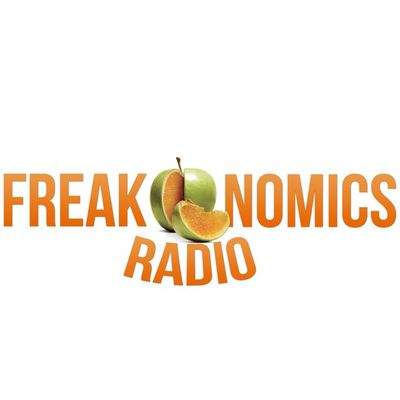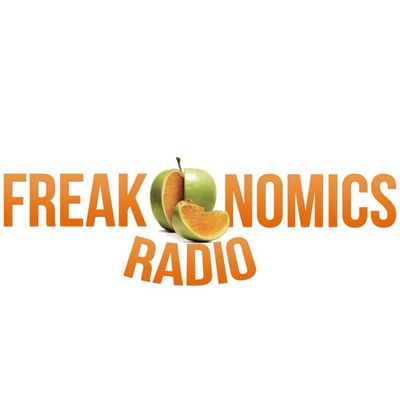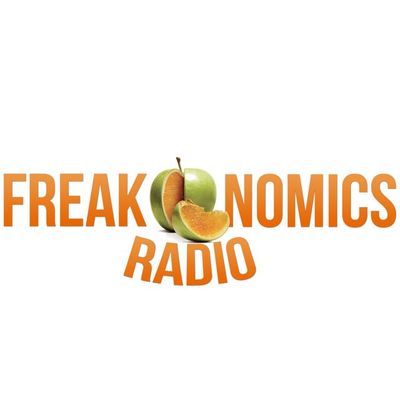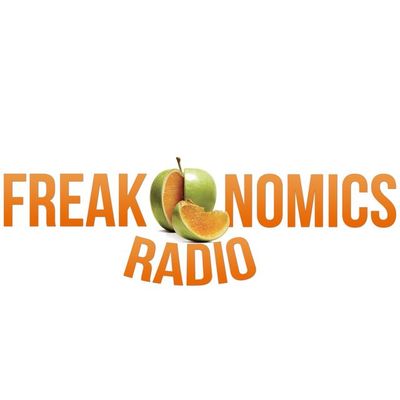
647. China Is Run by Engineers. America Is Run by Lawyers.
<p>In his new book “Breakneck,” Dan Wang argues that the U.S. has a lot to learn from China. He also says that “no two peoples are more alike.” We have questions.</p><p> </p><ul><li><strong>SOURCES:</strong><ul><li><a href="https://danwang.co/about/">Dan Wang</a>, research fellow at the Hoover Institution at Stanford University, author of <i>Breakneck: China's Quest to Engineer the Future.</i></li></ul></li></ul><p> </p><ul><li><strong>RESOURCES:</strong><ul><li><a href="https://amzn.to/4mtxGTX"><i>Breakneck: China's Quest to Engineer the Future</i></a><i>, </i>by Dan Wang (2025).</li><li><a href="https://amzn.to/4nHlobM"><i>The Anaconda in the Chandelier: Writings on China</i></a><i>, </i>by Perry Link (2025).</li><li>"<a href="https://www.newyorker.com/magazine/2025/07/21/is-the-us-ready-for-the-next-war">Is the U.S. Ready for the Next War?</a>" by Dexter Filkins <i>(The New Yorker,</i> 2025).</li><li>"<a href="https://www.vox.com/new-money/2016/11/4/13498504/shenzhen-smartphone-innovation-capital">How smartphones made Shenzhen China’s innovation capital</a>," by Dan Wang (2016).</li><li><a href="https://www.cornellpress.cornell.edu/book/9781501764561/how-china-escaped-the-poverty-trap/"><i>How China Escaped the Poverty Trap</i></a><i>, </i>by Yuen Yuen Ang (2016).</li><li><a href="https://yalebooks.yale.edu/book/9780300169171/the-art-of-not-being-governed/"><i>The Art of Not Being Governed</i></a><i>, </i>by Jame Scott (2009).</li></ul></li></ul><p> </p><ul><li><strong>EXTRAS:</strong><ul><li>"<a href="https://www.sinicapodcast.com/p/the-engineering-state-and-the-lawyerly">The Engineering State and the Lawyerly Society: Dan Wang on his new book 'Breakneck</a>,'" by the <i>Sinica Podcast</i> (2025).</li><li>"<a href="https://freakonomics.com/podcast/is-the-u-s-really-less-corrupt-than-china/">Is the U.S. Really Less Corrupt Than China?</a>" by <i>Freakonomics Radio </i>(2021).</li></ul></li></ul><br/> <p>Hosted by Simplecast, an AdsWizz company. See <a href="https://pcm.adswizz.com">pcm.adswizz.com</a> for information about our collection and use of personal data for advertising.</p>

Is the World Ready for a Guaranteed Basic Income? (Update)
<p>A lot of jobs in the modern economy don’t pay a living wage, and some of those jobs may be wiped out by new technologies. So what’s to be done? We revisit an episode from 2016 for a potential solution.</p><p> </p><ul><li><strong>SOURCES:</strong><ul><li><a href="https://www.brynjolfsson.com/">Erik Brynjolfsson</a>, professor of economics at Stanford University.</li><li><a href="https://umanitoba.ca/medicine/faculty-staff/evelyn-forget">Evelyn Forget</a>, professor of economics and community health sciences at the University of Manitoba.</li><li><a href="https://blog.samaltman.com/">Sam Altman</a>, C.E.O. of OpenAI.</li><li><a href="https://economics.northwestern.edu/people/directory/robert-gordon.html">Robert Gordon</a>, professor emeritus of economics at Northwestern University.</li><li><a href="https://www.arch.ox.ac.uk/people/larson-greger#tab-615061">Greger Larson</a>, professor of archeology at the University of Oxford.</li></ul></li></ul><p> </p><ul><li><strong>RESOURCES:</strong><ul><li>"<a href="https://www.cbsnews.com/news/sam-altman-universal-basic-income-study-open-research/">Here's what a Sam Altman-backed basic income experiment found</a>," by Megan Cerullo <i>(CBS News,</i> 2024).</li><li><a href="https://thecorrespondent.com/utopia-for-realists/"><i>Utopia for Realists,</i></a> by Rutger Bregman. The Correspondent (2016).</li><li><a href="https://www.amazon.com/The-Second-Machine-Age-Technologies/dp/0393239357/ref=as_li_ss_tl?ie=UTF8&linkCode=sl1&tag=freakonomic08-20&linkId=2efae8813abd00df2f0242f64a3839c6"><i>The Second Machine Age</i></a><i>,</i> by Erik Brynjolfsson and Andrew McAfee (2014).</li><li>"<a href="https://www.jstor.org/stable/23050182">The Town With No Poverty: Using Health Administration Data To Revisit Outcomes of a Canadian Guaranteed Annual Income Field Experiment</a>," by Evelyn Forget (<i>Canadian Public Policy</i>, 2011).</li><li>"<a href="http://inequality.stanford.edu/_media/pdf/Reference%20Media/Moffitt_2003_Policy.pdf">The Negative Income Tax and the Evolution of U.S. Welfare Policy</a>," by Robert Moffitt (<i>Journal of Economic Perspectives,</i> 2003).</li><li><a href="http://www.amazon.com/Capitalism-Freedom-Fortieth-Anniversary-Edition/dp/0226264211"><i>Capitalism and Freedom</i></a>, by Milton Freidman (2002).</li><li>"<a href="https://www.bostonfed.org/economic/conf/conf30/conf30.pdf">Lesson from the Income Maintenance Experiments</a>," <i>(Federal Reserve Bank of Boston and The Brookings Institution</i>, 1986).</li><li><a href="http://www.amazon.com/Law-Legislation-Liberty-Volume-Political/dp/0226320901"><i>Law, Legislation and Liberty, Volume 3: The Political Order of A Free People</i></a>, by Frederick Hayek (1981).</li><li>"<a href="https://www.nytimes.com/books/98/10/04/specials/moynihan-income.html">Daniel Moynihan and President-elect Nixon: How charity didn't begin at home</a>," by Peter Passell and Leonard Ross (<i>New York Times</i>, 1973).</li><li>"<a href="http://www.jec.senate.gov/reports/90th%20Congress/Income%20Maintenance%20Programs%20Volume%20II%20(423).pdf">Income Maintenance Programs</a>," (<i>Hearings Before The Subcommittee On Fiscal Policy Of The Joint Economic Committee Congress Of The United States</i>, 1968).</li></ul></li></ul><p> </p><ul><li><strong>EXTRAS:</strong><ul><li>"<a href="https://www.youtube.com/watch?v=6vHYFzYvCak">President Nixon Unveils the Family Assistance Program</a>," (1969).</li><li>"<a href="https://www.youtube.com/watch?v=xtpgkX588nM">Milton Friedman interview with William F Buckley Jr</a>.,"<i> </i>(1968).</li><li>"<a href="https://www.youtube.com/watch?v=BY1OKSObkH0">Martin Luther King Jr. advocates for Guaranteed Income at Stanford</a>,"<i> </i>(1967).</li></ul></li></ul><br/> <p>Hosted by Simplecast, an AdsWizz company. See <a href="https://pcm.adswizz.com">pcm.adswizz.com</a> for information about our collection and use of personal data for advertising.</p>

646. An Air Traffic Controller Walks Into a Radio Studio ...
<p>What does it take to “play 3D chess at 250 miles an hour”? And how far will $12.5 billion of “Big, Beautiful” funding go toward modernizing the F.A.A.? (Part two of a <a href="https://freakonomics.com/is-the-air-traffic-control-system-broken/">two-part series</a>.)</p><p> </p><ul><li><strong>SOURCES:</strong><ul><li><a href="https://psych.utah.edu/people/faculty/strayer-david.php">David Strayer</a>, professor of cognition and neural science at the University of Utah.</li><li><a href="https://itif.org/person/dorothy-robyn/">Dorothy Robyn</a>, senior fellow at I.T.I.F.</li><li><a href="https://news.delta.com/leader-bio-ed-bastian-chief-executive-officer">Ed Bastian</a>, C.E.O. of Delta Airlines.</li><li><a href="https://nbaa.org/about/contact-nbaa/senior-executives/edward-m-bolen-president-and-ceo/">Ed Bolen</a>, president and C.E.O. of the National Business Aviation Association.</li><li><a href="https://mason.wm.edu/faculty/directory/strong-j.php">John Strong</a>, professor of finance and economics at the William and Mary School of Business.</li><li>Kenneth Levin, retired air traffic controller.</li><li><a href="https://www.linkedin.com/in/oliviadgrace/">Olivia Grace</a>, former product manager at Slack.</li><li><a href="https://www.nyu.edu/about/news-publications/news/2025/july/polly-trottenberg-named-dean-of-nyu-s-robert-f--wagner-graduate-.html">Polly Trottenberg</a>, former deputy secretary of the U.S. Department of Transportation.</li></ul></li></ul><p> </p><ul><li><strong>RESOURCES:</strong><ul><li>“<a href="https://www.wsj.com/podcasts/the-journal/an-air-traffic-controller-speaks-out-about-newark-airport/6d96deb3-65f4-414f-bfdf-d7c468b94755?gaa_at=eafs&gaa_n=ASWzDAg-sBMumm0ey-pWMek4NmrAGs8Q5au46HgqvwOdXzo_GECEDBH40nBJsUdTdLg%3D&gaa_ts=68c2d7be&gaa_sig=H6Im0mPdqjAPs1T6HZMzlsVuZd9Q07sJ4fNvUQd6QeYYYTDflB2icDR7UhaOyn2PsbdOTHK9HLk_ozZB2NoNWw%3D%3D">An Air Traffic Controller Speaks Out About Newark Airport</a>,” by <i>The Journal </i>(2025).</li><li>"<a href="https://enotrans.org/article/why-did-air-traffic-control-reform-efforts-fail-again/">Why Did Air Traffic Control Reform Efforts Fail (Again)?</a>" by Jeff Davis (<i>Eno Center for Transportation,</i> 2023).</li><li>"<a href="https://link.springer.com/content/pdf/10.3758/PBR.17.4.479">Supertaskers: Profiles in extraordinary multitasking ability</a>," by Jason Watson and David Strayer (<i>Psychonomic Bulletin & Review,</i> 2021).</li><li><a href="https://www.amazon.com/Managing-Skies-Organization-Financing-Management/dp/1138247405"><i>Managing the Skies: Public Policy, Organization, and Financing of Air Traffic Management</i></a><i>,</i> by John Strong and Clinton Oster (2016).</li></ul></li></ul><p> </p><ul><li><strong>EXTRAS:</strong><ul><li>"<a href="https://freakonomics.com/podcast/multitasking-doesnt-work-so-why-do-we-keep-trying/">Multitasking Doesn't Work. So Why Do We Keep Trying?</a>" by <i>Freakonomics Radio</i> (2024).</li></ul></li></ul>

645. Is the Air Traffic Control System Broken?
<p>Flying in the U.S. is still exceptionally safe, but the system relies on outdated tech and is under tremendous strain. Six experts tell us how it got this way and how it can (maybe) be fixed. (Part one of a <a href="https://freakonomics.com/podcast-tag/is-the-air-traffic-control-system-broken/">two-part series</a>.)</p><p> </p><ul><li><strong>SOURCES:</strong><ul><li><a href="https://itif.org/person/dorothy-robyn/">Dorothy Robyn</a>, senior fellow at I.T.I.F.</li><li><a href="https://news.delta.com/leader-bio-ed-bastian-chief-executive-officer">Ed Bastian</a>, C.E.O. of Delta Airlines.</li><li><a href="https://mason.wm.edu/faculty/directory/strong-j.php">John Strong</a>, professor of finance and economics at the William and Mary School of Business.</li><li>Kenneth Levin, retired air traffic controller.</li><li><a href="https://www.nyu.edu/about/news-publications/news/2025/july/polly-trottenberg-named-dean-of-nyu-s-robert-f--wagner-graduate-.html">Polly Trottenberg</a>, former deputy secretary of the U.S. Department of Transportation.</li></ul></li></ul><p> </p><ul><li><strong>RESOURCES:</strong><ul><li>"<a href="https://www.transportation.gov/sites/dot.gov/files/2025-05/Brand%20New%20Air%20Traffic%20Control%20System%20Plan.pdf">Brand New Air Traffic Control System Plan</a><i>,"</i> (<i>Federal Aviation Administration, </i>2025).</li><li><a href="https://nap.nationalacademies.org/catalog/29112/the-air-traffic-controller-workforce-imperative-staffing-models-and-their"><i>The Air Traffic Controller Workforce Imperative: Staffing Models and Their Implementation to Ensure Safe and Efficient Airspace Operations</i></a><i>,</i> by the National Academies of Sciences, Engineering, and Medicine (2025).</li><li>"<a href="https://reason.org/wp-content/uploads/annual-aviation-infrrastructure-report-2025.pdf">Annual Aviation Infrastructure Report: 2025</a>," by Marc Scribner <i>(Reason Foundation,</i> 2025).</li><li>"<a href="https://www.washingtonpost.com/business/2025/02/24/faa-air-traffic-control-academy-oklahoma-lawmakers/">New air traffic academy died in Congress despite dire need for more staff</a>," by Lori Aratani <i>(The Washington Post,</i> 2025).</li><li>"<a href="https://www.theatlantic.com/ideas/archive/2025/05/air-traffic-control-system-faa/682842/">The Real Problem With the FAA</a>," by Dorothy Robyn <i>(The Atlantic,</i> 2025).</li><li>"<a href="https://enotrans.org/wp-content/uploads/2018/05/ATC-infographic-w-2018-numbers.pdf">How Much Do Jet Aircraft Pay into the Airport and Airway Trust Fund to Fly from Dallas to D.C.?</a><i>"</i> by Ann Henebery, (<i>Eno Center for Transportation</i>, 2018).</li><li><a href="https://amzn.to/3VzuevU"><i>Managing the Skies</i></a><i>, </i>by John Strong and Clinton Oster (2016).</li></ul></li></ul><p> </p><ul><li><strong>EXTRAS:</strong><ul><li>"<a href="https://freakonomics.com/podcast-tag/freakonomics-radio-takes-to-the-skies/">Freakonomics Radio Takes to the Skies</a>," series by <i>Freakonomics Radio</i> (2023).</li><li>"<a href="https://freakonomics.com/podcast/in-praise-of-maintenance/">In Praise of Maintenance</a>," by <i>Freakonomics Radio (</i>2016).</li></ul></li></ul>

644. Has America Lost Its Appetite for the Common Good?
<p>Patrick Deneen, a political philosopher at Notre Dame, says yes. He was a Democrat for years, and has now come to be seen as an “ideological guru” of the Trump administration. But that only tells half the story ...</p><p> </p><ul><li><strong>SOURCES:</strong><ul><li><a href="https://politicalscience.nd.edu/people/patrick-deneen/">Patrick Deneen</a>, professor of political science at the University of Notre Dame.</li></ul></li></ul><p> </p><ul><li><strong>RESOURCES:</strong><ul><li>"<a href="https://www.wsj.com/politics/maga-idiology-curtis-yarvin-patrick-deneen-9f93d566?">The Ideological Gurus Battling for the Soul of Trump World</a>," by Joshua Chaffin and Zusha Elinson <i>(Wall Street Journal,</i> 2025).</li><li>"<a href="https://unherd.com/2025/04/why-the-maga-doge-coalition-will-hold/">Why the MAGA-DOGE coalition will hold</a>," by Patrick Deneen <i>(UnHerd,</i> 2025).</li><li>"<a href="https://www.politico.com/news/magazine/2023/06/08/the-new-right-patrick-deneen-00100279">‘I Don’t Want to Violently Overthrow the Government. I Want Something Far More Revolutionary</a>,’" by Ian Ward <i>(POLITICO,</i> 2023).</li><li><a href="https://amzn.to/3JBeOEK"><i>Regime Change: Toward a Postliberal Future</i></a><i>, </i>by Patrick Deneen (2023).</li><li><a href="https://yalebooks.yale.edu/book/9780300240023/why-liberalism-failed/"><i>Why Liberalism Failed</i></a><i>, </i>by Patrick Deneen (2018).</li></ul></li></ul><p> </p><ul><li><strong>EXTRAS:</strong><ul><li>"<a href="https://freakonomics.com/podcast-tag/in-search-of-the-real-adam-smith/">In Search of the Real Adam Smith</a>," series by <i>Freakonomics Radio </i>(2022).</li></ul></li></ul>
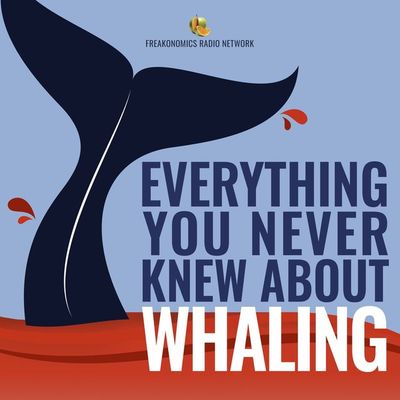
Extra: A Modern Whaler Speaks Up (Update)
<p>Bjørn Andersen has killed hundreds of minke whales. He tells us how he does it, why he does it, and what he thinks would happen if whale-hunting ever stopped. (This bonus episode is a follow-up to our series “<a href="https://freakonomics.com/podcast-tag/everything-you-never-knew-about-whaling/">Everything You Never Knew About Whaling</a>.”)</p><p> </p><ul><li><strong>SOURCES:</strong><ul><li>Bjørn Andersen, Norwegian whaler.</li></ul></li></ul><p> </p><ul><li><strong>RESOURCES:</strong><ul><li>"<a href="https://www.sciencedirect.com/science/article/abs/pii/S0163699506800363#:~:text=The%20stomach%20consists%20of%20four,and%20caecum%20are%20poorly%20developed">Digestive physiology of minke whales</a>," by S.D. Mathiesen, T.H. Aagnes, W. Sørmo, E.S. Nordøy, A.S. Blix, M.A. Olsen <i>(Developments in Marine Biology,</i> 1995).</li><li>"<a href="https://www.nytimes.com/1992/06/30/world/norway-is-planning-to-resume-whaling-despite-world-ban.html">Norway Is Planning to Resume Whaling Despite World Ban</a>," by Craig Whitney <i>(New York Times,</i> 1992).</li><li>"<a href="https://www.nytimes.com/1982/07/24/us/commission-votes-to-ban-hunting-of-whales.html">Commission Votes to Ban Hunting of Whales</a>," by Philip Shabecoff <i>(New York Times,</i> 1982).</li></ul></li></ul><p> </p><ul><li><strong>EXTRAS:</strong><ul><li>"<a href="https://freakonomics.com/podcast-tag/everything-you-never-knew-about-whaling/">Everything You Never Knew About Whaling</a>," series by <i>Freakonomics Radio </i>(2023).</li></ul></li></ul>
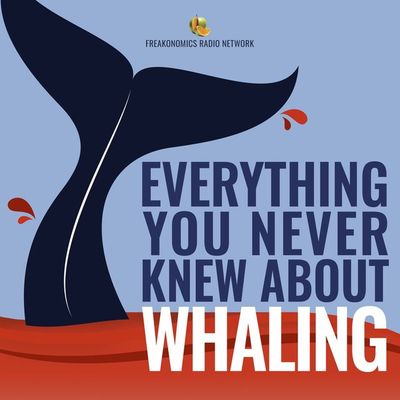
What Can Whales Teach Us About Clean Energy, Workplace Harmony, and Living the Good Life? (Update)
<p>In the final episode of our whale series, we learn about fecal plumes, shipping noise, and why <i>Moby-Dick</i> is still worth reading. (Part 3 of "<a href="https://freakonomics.com/podcast-tag/everything-you-never-knew-about-whaling/">Everything You Never Knew About Whaling.</a>")</p><p> </p><ul><li><strong>SOURCES:</strong><ul><li><a href="https://econ.uconn.edu/person/michele-baggio/">Michele Baggio</a>, professor of economics at the University of Connecticut.</li><li><a href="https://voices.nmfs.noaa.gov/mary-k-bercaw-edwards">Mary K. Bercaw-Edwards</a>, professor of maritime English at the University of Connecticut and lead foreman at the Mystic Seaport Museum.</li><li><a href="https://english.wustl.edu/people/hester-blum">Hester Blum</a>, professor of English at Washington University in St. Louis.</li><li><a href="https://www.wellesley.edu/economics/faculty/hilte">Eric Hilt</a>, professor of economics at Wellesley College.</li><li><a href="https://awionline.org/content/our-team">Kate O’Connell</a>, senior policy consultant for the marine life program at the Animal Welfare Institute.</li><li><a href="https://www.linkedin.com/in/maria-petrillo-7b8057174">Maria Petrillo</a>, director of interpretation at the Mystic Seaport Museum.</li><li><a href="http://joeroman.com/">Joe Roman</a>, fellow and writer-in-residence at the Gund Institute for Environment, University of Vermont.</li></ul></li></ul><p> </p><ul><li><strong>RESOURCES:</strong><ul><li><a href="https://amzn.to/3KkQwwf"><i>Eat, Poop, Die: How Animals Make Our World</i></a><i>, </i>by Joe Roman (2023).</li><li>“<a href="https://papers.ssrn.com/sol3/papers.cfm?abstract_id=4398892">Racial Diversity and Team Performance: Evidence from the American Offshore Whaling Industry</a>,” by Michele Baggio and Metin M. Cosgel (<i>S.S.R.N., </i>2023).</li><li>“<a href="https://www.nytimes.com/2023/02/28/nyregion/east-coast-whale-deaths.html">Why 23 Dead Whales Have Washed Up on the East Coast Since December</a>,” by Tracey Tully and Winston Choi-Schagrin (<i>The New York Times, </i>2023).</li><li>“<a href="https://www.theguardian.com/world/2023/may/29/suspected-russia-trained-spy-whale-reappears-off-swedens-coast">Suspected Russia-Trained Spy Whale Reappears Off Sweden’s Coast</a>,” by A.F.P. in Stockholm (<i>The Guardian, </i>2023).</li><li>“<a href="https://www.nber.org/papers/w31390">International Trade, Noise Pollution, and Killer Whales</a>,” by M. Scott Taylor and Fruzsina Mayer (<i>N.B.E.R. Working Paper, </i>2023).</li><li>“<a href="https://wwfwhales.org/news-stories/protecting-blue-corridors-report">World-First Map Exposes Growing Dangers Along Whale Superhighways</a>,” by the World Wildlife Fund (2022).</li><li>“<a href="https://www.sciencedirect.com/science/article/abs/pii/S0169534715000932">Lifting Baselines to Address the Consequences of Conservation Success</a>,” by Joe Roman, Meagan M. Dunphy-Daly, David W. Johnston, and Andrew J. Read (<i>Trends in Ecology & Evolution, </i>2015).</li><li>“<a href="https://www.jstor.org/stable/1884458">Wages, Risk, and Profits in the Whaling Industry</a>,” by Elmo P. Hohman (<i>The Quarterly Journal of Economics, </i>1926).</li><li><a href="https://amzn.to/43H8wIc"><i>Moby-Dick</i></a><i>, </i>by Herman Melville (1851).</li></ul></li></ul><p> </p><ul><li><strong>EXTRAS:</strong><ul><li>“<a href="https://freakonomics.com/podcast/why-do-people-still-hunt-whales-update/">Why Do People Still Hunt Whales? (Update)</a>” by <i>Freakonomics Radio </i>(2025).</li><li>“<a href="https://freakonomics.com/podcast/how-much-does-discrimination-hurt-the-economy/">How Much Does Discrimination Hurt the Economy?</a>” by <i>Freakonomics Radio </i>(2021).</li></ul></li></ul>
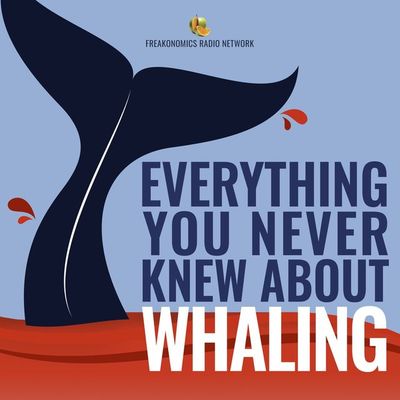
Why Do People Still Hunt Whales? (Update)
<p>For years, whale oil was used as lighting fuel, industrial lubricant, and the main ingredient in (yum!) margarine. Whale meat was also on a few menus. But today, demand for whale products is at a historic low. And yet some countries still have a whaling industry. We find out why. (Part 2 of “<a href="https://freakonomics.com/podcast-tag/everything-you-never-knew-about-whaling/">Everything You Never Knew About Whaling</a>.”)</p><p> </p><ul><li><strong>SOURCES:</strong><ul><li><a href="https://featured.japan-forward.com/whalingtoday/author/jay-alabaster/">Jay Alabaster</a>, doctoral student at Arizona State University’s Walter Cronkite School of Journalism.</li><li><a href="https://www.nhh.no/en/employees/faculty/bjorn-lorens-basberg/">Bjorn Basberg</a>, professor emeritus of economic history at the Norwegian School of Economics.</li><li><a href="https://www.wellesley.edu/economics/faculty/hilte">Eric Hilt</a>, professor of economics at Wellesley College.</li><li><a href="https://awionline.org/content/our-team">Kate O’Connell</a>, senior policy consultant for the marine life program at the Animal Welfare Institute.</li><li><a href="https://www.thecanadianencyclopedia.ca/en/article/paul-watson">Paul Watson</a>, environmental activist and founder of the Sea Shepherd Conservation Society.</li></ul></li></ul><p> </p><ul><li><strong>RESOURCES:</strong><ul><li>“<a href="https://slate.com/news-and-politics/2022/06/history-of-soviet-whaling-greenpeace-twentieth-century.html">The Soviet Union Killed an Appalling Number of Whales. I Wanted to Know Why</a>,” by Ryan Tucker Jones (<i>Slate, </i>2022).</li><li>“<a href="https://www.worldanimalprotection.org/sites/default/files/media/int_files/behind_the_smile_-_dolphins_in_entertainment_report_final_011019.pdf">Behind the Smile: The Multi-Billion Dollar Dolphin Entertainment Industry</a>,” by World Animal Protection (2019).</li><li>“<a href="https://www.nytimes.com/2018/12/26/world/asia/japan-whaling-withdrawal.html">Japan to Resume Commercial Whaling, Defying International Ban</a>,” by Daniel Victor (<i>The New York Times, </i>2018).</li><li>“<a href="https://www.telegraph.co.uk/news/2018/12/30/not-outrage-japans-barbaric-practice-whaling/">Why Is There Not More Outrage About Japan’s Barbaric Practice of Whaling?</a>” by Boris Johnson (<i>The Telegraph, </i>2018).</li><li>“<a href="https://www.atlasobscura.com/articles/what-is-margarine-made-of">Margarine Once Contained a Whole Lot More Whale</a>,” by Sarah Laskow (<i>Gastro Obscura, </i>2017).</li><li>“<a href="https://www.nbcnews.com/science/environment/3-million-whales-were-killed-20th-century-report-n322961">3 Million Whales Were Killed in the 20th Century: Report</a>,” (<i>N.B.C. News, </i>2015).</li><li>“<a href="https://www.theatlantic.com/business/archive/2012/02/the-spectacular-rise-and-fall-of-us-whaling-an-innovation-story/253355/">The Spectacular Rise and Fall of U.S. Whaling: An Innovation Story</a>,” by Derek Thompson (<i>The Atlantic, </i>2012).</li><li><a href="https://www.nber.org/books-and-chapters/pursuit-leviathan-technology-institutions-productivity-and-profits-american-whaling-1816-1906"><i>In Pursuit of Leviathan: Technology, Institutions, Productivity, and Profits in American Whaling, 1816-1906</i></a>, by Lance E. Davis, Robert E. Gallman, and Karin Gleiter (1997).</li><li>“<a href="https://www.nytimes.com/1992/06/30/world/norway-is-planning-to-resume-whaling-despite-world-ban.html">Norway Is Planning to Resume Whaling Despite World Ban</a>,” by Craig R. Whitney (<i>The New York Times, </i>1992).</li></ul></li></ul><p> </p><ul><li><strong>EXTRAS:</strong><ul><li>“<a href="https://freakonomics.com/podcast/the-first-great-american-industry/">The First Great American Industry</a>,” by <i>Freakonomics Radio </i>(2023).</li></ul></li></ul>
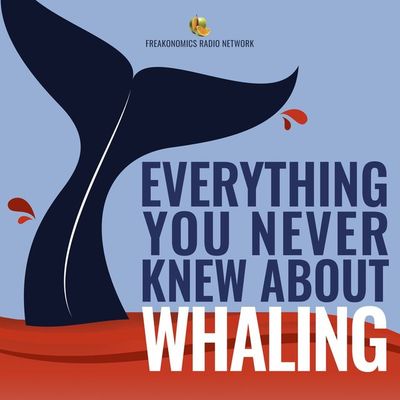
The First Great American Industry (Update)
<p>Whaling was, in the words of one scholar, “early capitalism unleashed on the high seas.” How did the U.S. come to dominate the whale market? Why did whale hunting die out here — and continue to grow elsewhere? And is that whale vomit in your perfume? (Part 1 of “<a href="https://freakonomics.com/podcast-tag/everything-you-never-knew-about-whaling/">Everything You Never Knew About Whaling</a>.”)</p><p> </p><ul><li><strong>SOURCES:</strong><ul><li><a href="https://www.wellesley.edu/economics/faculty/hilte">Eric Hilt</a>, professor of economics at Wellesley College.</li><li><a href="https://www.nathanielphilbrick.com/">Nathaniel Philbrick</a>, writer and historian.</li><li><a href="https://www.thecanadianencyclopedia.ca/en/article/paul-watson">Paul Watson</a>, environmental activist and founder of the Sea Shepherd Conservation Society.</li></ul></li></ul><p> </p><ul><li><strong>RESOURCES:</strong><ul><li>“<a href="https://www.theguardian.com/environment/2020/dec/31/calls-from-the-deep-do-we-need-to-save-the-whales-all-over-again">Calls From the Deep: Do We Need to Save the Whales All Over Again?</a>” by Sophy Grimshaw (<i>The Guardian, </i>2020).</li><li>“<a href="https://newrepublic.com/article/154490/small-world-vc">The Very Small World of V.C.</a>,” by Avi Asher-Schapiro (<i>The New Republic, </i>2019).</li><li>“<a href="https://www.smithsonianmag.com/history/nantucket-came-to-be-whaling-capital-of-world-180957198/">How Nantucket Came to Be the Whaling Capital of the World</a>,” by Nathaniel Philbrick (<i>Smithsonian Magazine, </i>2015).</li><li>“<a href="https://www.economist.com/finance-and-economics/2015/12/30/fin-tech?frsc=dg%7Ca">Fin-tech</a>,” (<i>The Economist, </i>2015).</li><li>“<a href="https://www.theatlantic.com/business/archive/2012/02/the-spectacular-rise-and-fall-of-us-whaling-an-innovation-story/253355/">The Spectacular Rise and Fall of U.S. Whaling: An Innovation Story</a>,” by Derek Thompson (<i>The Atlantic, </i>2012).</li><li><a href="https://amzn.to/44LI9Sl"><i>Leviathan: The History of Whaling in America</i></a><i>, </i>by Eric Jay Dolin (2007).</li><li>“<a href="https://www.nber.org/papers/w10403">Incentives in Corporations: Evidence from the American Whaling Industry</a>,” by Eric Hilt (<i>NBER Working Papers, </i>2004).</li><li><a href="https://amzn.to/3NHiT8E"><i>In the Heart of the Sea: The Tragedy of the Whaleship Essex</i></a><i>, </i>by Nathaniel Philbrick (2000).</li><li>“<a href="https://www.nber.org/system/files/working_papers/w2477/w2477.pdf">Productivity in American Whaling: The new Bedford Fleet in the Nineteenth Century</a>,” by Lance Davis, Robert Galiman, and Teresa Hutchins (<i>NBER Working Paper, </i>1987).</li></ul></li></ul><p> </p><ul><li><strong>EXTRAS:</strong><ul><li>“<a href="https://freakonomics.com/podcast/is-venture-capital-the-secret-sauce-of-the-american-economy/">Is Venture Capital the Secret Sauce of the American Economy?</a>” by <i>Freakonomics Radio </i>(2021).</li><li>“<a href="https://freakonomics.com/podcast/is-the-future-of-farming-in-the-ocean-ep-467/">Is the Future of Farming in the Ocean?</a>” by <i>Freakonomics Radio </i>(2021).</li></ul></li></ul>

Why Does Tipping Still Exist? (Update)
<p>It’s a haphazard way of paying workers, and yet it keeps expanding. With federal tax policy shifting in a pro-tip direction, we revisit an episode from 2019 to find out why.</p><p> </p><ul><li><strong>SOURCES:</strong><ul><li><a href="https://economics.uchicago.edu/directory/john-list">John List</a>, economist at the University of Chicago.</li><li><a href="https://sha.cornell.edu/faculty-research/faculty/wml3/">Michael Lynn</a>, professor of consumer behavior and marketing at Cornell University’s School of Hotel Administration.</li><li><a href="https://rady.ucsd.edu/people/faculty/gneezy/">Uri Gneezy</a>, economist at the University of California, San Diego’s Rady School of Management.</li><li><a href="https://www.ushgnyc.com/team_member/danny-meyer/">Danny Meyer</a>, founder of Union Square Hospitality Group, and founder and chairman of the board of Shake Shack.</li></ul></li></ul><p> </p><ul><li><strong>RESOURCES:</strong><ul><li>"<a href="https://www.nytimes.com/2025/05/21/dining/no-tax-on-tips-bill.html">How ‘No Tax on Tips’ Will Affect Waiters, Drivers and Diners</a>," by Julia Moskin <i>(New York Times,</i> 2025).</li><li>“<a href="https://ideas.repec.org/p/feb/natura/00680.html">The Drivers of Social Preferences: Evidence from a Nationwide Tipping Field Experiment</a>,” by Bharat Chandar, Uri Gneezy, John List, and Ian Muir (<i>The</i> <i>National Bureau of Economic Research</i>, 2019).</li><li>“<a href="https://ideas.repec.org/p/feb/natura/00681.html">Design and Analysis of Cluster-Randomized Field Experiments in Panel Data Settings</a>,” by Bharat Chandar, Ali Hortacsu, John List, Ian Muir, and Jeffrey Wooldridge (<i>The National Bureau of Economic Research, </i>2019)<i>.</i></li><li>“<a href="https://onlinelibrary.wiley.com/doi/abs/10.1111/joca.12171">The Effects of Tipping on Consumers’ Satisfaction with Restaurants</a>,” by Michael Lynn (<i>The Journal of Consumer Affairs</i>, 2018).</li><li>“<a href="https://voices.uchicago.edu/jlist/research/charitable-giving/">The Importance of Being Marginal: Gender Differences in Generosity</a>,” Stefano DellaVigna, John List, Ulrike Malmendier, and Gautam Rao (<i>The</i> <i>American Economic Review</i>, 2013).</li><li>“<a href="https://ecommons.cornell.edu/items/042e8740-5c44-486e-ab28-00f05781d153">Restaurant Tipping and Service Quality: A Tenuous Relationship</a>,” by Michael Lynn (<i>The Cornell Hotel and Restaurant Administration Quarterly</i>, 2001).</li></ul></li></ul><p> </p><ul><li><strong>EXTRAS:</strong><ul><li>“<a href="https://freakonomics.com/podcast/danny-meyer/">The No-Tipping Point</a>,” by <i>Freakonomics Radio</i> (2016).</li><li>“<a href="https://freakonomics.com/podcast/should-tipping-be-banned-a-new-freakonomics-radio-podcast/">Should Tipping Be Banned?</a>” by <i>Freakonomics Radio</i> (2013).</li></ul></li></ul>

643. Why Do Candles Still Exist?
<p>They should have died out when the lightbulb was invented. Instead they’re a $10 billion industry. What does it mean that we still want tiny fires inside our homes?</p><p> </p><ul><li><strong>SOURCES:</strong><ul><li><a href="https://www.ntu.ac.uk/staff-profiles/architecture-design-built-environment/tim-cooper">Tim Cooper</a>, professor emeritus of sustainable design and consumption at Nottingham Trent University.</li><li><a href="https://profiles.rice.edu/faculty/gokce-gunel">Gökçe Günel</a>, professor of anthropology at Rice University.</li><li><a href="https://www.linkedin.com/in/steve-horenziak-045252/">Steve Horenziak</a>, president of the National Candle Association.</li><li><a href="https://www.happinessresearchinstitute.com/experts/meik-wiking">Meik Wiking</a>, Danish happiness researcher, C.E.O. of the Happiness Research Institute.</li></ul></li></ul><p> </p><ul><li><strong>RESOURCES:</strong><ul><li>"<a href="https://spectrum.ieee.org/the-great-lightbulb-conspiracy">The Great Lightbulb Conspiracy</a>," by Markus Krajewski <i>(IEEE Spectrum,</i> 2024).</li><li>"<a href="https://limn.press/issue/obsolescence/">The Obsolescence Issue</a>," edited by Townsend Middleton, Gökçe Günel, and Ashley Carse <i>(Limn,</i> 2024).</li><li><a href="https://amzn.to/41lLIz8"><i>More and More and More</i></a><i>,</i> by Jean-Baptiste Fressoz (2024).</li><li>"<a href="https://www.npr.org/2022/10/17/1129542486/what-yankee-candle-reviews-can-tell-us-about-covid">What Yankee Candle reviews can tell us about COVID</a>," by Manuela López Restrepo, Christopher Intagliata, Ailsa Chang, and Sacha Pfeiffer <i>(NPR,</i> 2022).</li><li><a href="https://www.dukeupress.edu/spaceship-in-the-desert"><i>Spaceship in the Desert</i></a><i>, </i>by Gökçe Günel (2019).</li><li>"<a href="https://daily.jstor.org/the-birth-of-planned-obsolescence/">The Birth of Planned Obsolescence</a>," by Livia Gershon <i>(JSTOR Daily, </i>2017).</li><li>"<a href="https://livingchurch.org/news/beeswax-ages/">Beeswax for the Ages</a>," by G. Jeffrey MacDonald <i>(The Living Church,</i> 2016).</li><li><a href="https://amzn.to/3J9CPSZ"><i>The Waste Makers</i></a><i>, </i>by Vance Packard (2011).</li></ul></li></ul><p> </p><ul><li><strong>EXTRAS:</strong><ul><li>"<a href="https://freakonomics.com/podcast/why-do-people-still-hunt-whales/">Why Do People Still Hunt Whales?</a>" by <i>Freakonomics Radio </i>(2023).</li><li>"<a href="https://freakonomics.com/podcast/how-to-be-happy-2/">How to Be Happy</a>," by <i>Freakonomics Radio </i>(2018).</li></ul></li></ul>

642. How to Wage Peace, According to Tony Blinken
<p>The former secretary of state isn’t a flamethrower, but he certainly has strong opinions. In this wide-ranging conversation with Stephen Dubner, he gives them all: on Israel, Gaza, China, Iran, Russia, Biden, Trump — and the rest of the world.</p><p> </p><ul><li><strong>SOURCES:</strong><ul><li><a href="https://www.instagram.com/secblinken/?hl=en">Antony Blinken</a>, former Secretary of State.</li></ul></li></ul><p> </p><ul><li><strong>RESOURCES:</strong><ul><li>"<a href="https://www.thelancet.com/journals/lancet/article/PIIS0140-6736(25)01186-9/fulltext">Evaluating the impact of two decades of USAID interventions and projecting the effects of defunding on mortality up to 2030: a retrospective impact evaluation and forecasting analysis</a>," by Daniella Cavalcanti, Lucas de Oliveira Ferreira de Sales, Andrea Ferreira da Silva, Elisa Basterra, Daiana Pena, Caterina Monti, Gonzalo Barreix, Natanael Silva, Paula Vaz, Francisco Saute, Gonzalo Fanjul, Quique Bassat, Denise Naniche, James Macinko, and Davide Rasella <i>(The Lancet,</i> 2025).</li><li>"<a href="https://www.nytimes.com/2025/06/23/opinion/iran-iranians-regime.html">What Bombs Can’t Do in Iran</a>," by Karim Sadjadpour <i>(New York Times,</i> 2025).</li><li>"<a href="https://www.wsj.com/opinion/new-palestinian-offer-peace-israel-hebron-sheikh-emirate-36dd39c3?mod=article_inline">A New Palestinian Offer for Peace With Israel</a>," by Elliot Kaufman <i>(Wall Street Journal,</i> 2025).</li><li>"<a href="https://www.foreignaffairs.com/united-states/antony-blinken-americas-strategy-renewal-leadership-new-world">America’s Strategy of Renewal</a>," by Antony Blinken <i>(Foreign Affairs,</i> 2024).</li></ul></li></ul>

Why Does One Tiny State Set the Rules for Everyone? (Update)
<p>Until recently, Delaware was almost universally agreed to be the best place for companies to incorporate. Now, with Elon Musk leading a corporate stampede out of the First State, we revisit an episode from 2023 that asked if Delaware’s “franchise” is wildly corrupt, wildly efficient … or both?</p><p> </p><ul><li><strong>SOURCES:</strong><ul><li><a href="https://www.johncassara.com/index.html">John Cassara</a>, retired Special Agent detailee to the U.S. Department of Treasury’s Office of Terrorism Finance and Financial Intelligence.</li><li><a href="https://www.rlf.com/lawyers/doneene-keemer-damon/">Doneene Damon</a>, director with Richards, Layton, and Finger.</li><li><a href="https://courts.delaware.gov/chancery/judges.aspx">Travis Laster</a>, Vice Chancellor of the Delaware Court of Chancery.</li><li><a href="https://liberalarts.utexas.edu/government/faculty/dn5373">Dan Nielson</a>, professor of government at the University of Texas.</li><li><a href="https://www.chicagobooth.edu/faculty/directory/w/hal-weitzman">Hal Weitzman</a>, professor of behavioral science, editor-in-chief of <i>Chicago Booth Review,</i> and executive director for intellectual capital at the University of Chicago's Booth School of Business.</li></ul></li></ul><p> </p><ul><li><strong>RESOURCES:</strong><ul><li>“<a href="https://www.nytimes.com/2025/07/10/business/dealbook/andreessen-horowitz-delaware.html">A Silicon Valley Giant Calls for a Delaware Exodus</a>,” by Andrew Ross Sorkin, Bernhard Warner, Sarah Kessler, Michael J. de la Merced, and Danielle Kaye (<i>New York Times, </i>2025).</li><li>"<a href="https://fsi.taxjustice.net/">Financial Secrecy Index</a>," by Tax Justice Network (2025).</li><li>"<a href="https://corp.delaware.gov/stats/">Annual Report Statistics</a>," by Delaware Division of Corporations (2023).</li><li><a href="https://amzn.to/3GDO8iv"><i>What’s the Matter with Delaware? How the First State Has Favored the Rich, Powerful, and Criminal — and How It Costs Us All</i></a><i>, </i>by Hal Weitzman (2022).</li><li><a href="https://amzn.to/43v5GXS"><i>Global Shell Games: Experiments in Transnational Relations, Crime, and Terrorism</i></a><i>, </i>by Michael G. Findley, Daniel L. Nielson, and J. C. Sharman (2014).</li><li>"<a href="https://www.fatf-gafi.org/en/publications/Fatfrecommendations/Fatf-recommendations.html">The FATF Recommendations</a>," by the Financial Action Task Force (2012).</li></ul></li></ul><p> </p><ul><li><strong>EXTRAS:</strong><ul><li>"<a href="https://freakonomics.com/podcast/will-the-democrats-make-america-great-again/">Will the Democrats 'Make America Great Again'?</a>" by <i>Freakonomics Radio </i>(2023).</li></ul></li></ul>

641. What Does It Cost to Lead a Creative Life?
<p>For years, the playwright David Adjmi was considered “polarizing and difficult.” But creating <i>Stereophonic </i>seems to have healed him. Stephen Dubner gets the story — and sorts out what Adjmi has in common with Richard Wagner.</p><p> </p><ul><li><strong>SOURCES:</strong><ul><li><a href="https://www.davidadjmi.com/">David Adjmi</a>, author and playwright.</li></ul></li></ul><p> </p><ul><li><strong>RESOURCES:</strong><ul><li>"<a href="https://www.ft.com/content/aadca358-75a4-47aa-ab7d-fe46608285df">The West End is enjoying a theatre revival. Can Broadway keep up?</a>" by Daniel Thomas <i>(Financial Times,</i> 2025).</li><li><a href="https://amzn.to/4lZUydU"><i>Lot Six: A Memoir</i></a><i>, </i>by David Adjmi (2020).</li><li><a href="https://stereophonicplay.co.uk/"><i>Stereophonic</i></a><i>,</i> (2023).</li></ul></li></ul><p> </p><ul><li><strong>EXTRAS:</strong><ul><li>"<a href="https://freakonomics.com/podcast-tag/how-is-live-theater-still-alive/">How Is Live Theater Still Alive?</a>" by <i>Freakonomics Radio </i>(2025).</li><li>"<a href="https://freakonomics.com/podcast/how-to-make-the-coolest-show-on-broadway/">How to Make the Coolest Show on Broadway</a>," by <i>Freakonomics Radio </i>(2024).</li></ul></li></ul>

640. Why Governments Are Betting Big on Sports
<p>The Gulf States and China are spending billions to build stadiums and buy up teams — but what are they really buying? And can an entrepreneur from Cincinnati make his own billions by bringing baseball to Dubai?</p><p> </p><ul><li><strong>SOURCES:</strong><ul><li><a href="https://en.em-lyon.com.cn/faculty/view/46">Simon Chadwick</a>, professor of afroeurasian sport at Emlyon Business School.</li><li><a href="https://www.instagram.com/dereklfisher/?hl=en">Derek Fisher</a>, high school basketball coach, former N.B.A. coach and player.</li><li><a href="https://www.linkedin.com/in/kashshaikh/">Kash Shaikh</a>, chairman, C.E.O., and co-founder of Baseball United.</li><li><a href="https://observer.co.uk/contributor/rory-smith?type=read">Rory Smith</a>, football correspondent at The Observer.</li></ul></li></ul><p> </p><ul><li><strong>RESOURCES:</strong><ul><li>"<a href="https://www.nytimes.com/2024/02/10/world/africa/china-africa-stadiums.html">China Keeps Building Stadiums in Africa. But at What Cost?</a>" by Elian Peltier <i>(New York Times,</i> 2024).</li><li>"<a href="https://www.dropbox.com/scl/fi/j8w46x805bnvabum46j33/Centripetal-Cities-Report-FINAL-FORMATTED_0.pdf?rlkey=mptchxc6lp9crteel06wjmwvw&e=1&st=hghsbst4&dl=0">Manchester Off-Shored: A Public Interest Report on the Manchester Life Partnership Between Manchester City Council + The Abu Dhabi United Group</a>," by Richard Goulding, Adam Leaver, and Jonathan Silver <i>(Centripetal Cities,</i> 2022).</li><li>"<a href="https://www.spiegel.de/international/europe/sponsorship-money-paid-for-by-the-state-a-2ad5b586-1d82-4a21-8065-f3c081cd91a4">Manchester City's Cozy Ties to Abu Dhabi: Sponsorship Money – Paid for by the State</a>," by Rafael Buschmann, Nicola Naber, and Christoph Winterbach <i>(Spiegel International,</i> 2022).</li><li>"<a href="https://www.nytimes.com/2020/01/15/business/china-belt-and-road.html">China Renews Its ‘Belt and Road’ Push for Global Sway</a>," by Keith Bradsher <i>(New York Times,</i> 2020).</li></ul></li></ul><p> </p><ul><li><strong>EXTRAS:</strong><ul><li>"<a href="https://freakonomics.com/podcast/what-is-sportswashing-and-does-it-work-update/">What Is Sportswashing — and Does It Work? (Update)</a>," by <i>Freakonomics Radio </i>(2024).</li></ul></li></ul>

How to Make Your Own Luck (Update)
<p>Before she decided to become a poker pro, Maria Konnikova didn’t know how many cards are in a deck. But she did have a Ph.D. in psychology, a brilliant coach, and a burning desire to know whether life is driven more by skill or chance. She found some answers in poker — and she’s willing to tell us everything she learned.</p><p> </p><ul><li><strong>SOURCES:</strong><ul><li><a href="http://www.mariakonnikova.com/about/">Maria Konnikova</a>, author of <i>The Biggest Bluff.</i></li></ul></li></ul><p> </p><ul><li><strong>RESOURCES:</strong><ul><li>“<a href="https://www.ncbi.nlm.nih.gov/pmc/articles/PMC5089055/">Gender Differences in Performance Predictions: Evidence from the Cognitive Reflection Test</a>,” by Patrick Ring, Levent Neyse, Tamas David-Barett, and Ulrich Schmidt (<i>Frontiers in Psychology, </i>2016).</li><li>“<a href="https://pubmed.ncbi.nlm.nih.gov/27869473/">The headwinds/tailwinds Asymmetry: An Availability Bias in Assessments of Barriers and Blessings</a>,” by Shai Davidai and Thomas Gilovich (<i>Journal of Personality and Social Psychology, </i>2016).</li><li>“<a href="https://pdfs.semanticscholar.org/5c5d/33b858eaf38f6a14b3f042202f1f44e04326.pdf">The Two Settings of Kind and Wicked Learning Environments</a>,” by Robin M. Hogarth, Tomás Lejarraga, and Emre Soyer (<i>Current Directions in Psychological Science, </i>2015).</li><li>"<a href="https://academiccommons.columbia.edu/doi/10.7916/D8QR54B5">The Limits of Self-Control: Self-Control, Illusory Control, and Risky Financial Decision Making</a>,” by Maria Konnikova (<i>Columbia University, </i>2013).</li><li>“<a href="https://psycnet.apa.org/record/2011-19211-001">Generalized expectancies for internal versus external control of reinforcement</a>” by J.B. Rotter (<i>Psychological Monographs: General and Applied, </i>1966).</li></ul></li></ul><p> </p><ul><li><strong>EXTRAS:</strong><ul><li><a href="https://www.amazon.com/gp/product/052552262X/ref=as_li_qf_asin_il_tl?ie=UTF8&tag=freakonomic08-20&creative=9325&linkCode=as2&creativeASIN=052552262X&linkId=586bf6b46d43f6d1a06f3ef3bd662d1d"><i>The Biggest Bluff: How I Learned to Pay Attention, Master Myself, and Win</i></a><i>, </i>by Maria Konnikova.</li><li><a href="https://www.amazon.com/gp/product/014312434X/ref=as_li_qf_asin_il_tl?ie=UTF8&tag=freakonomic08-20&creative=9325&linkCode=as2&creativeASIN=014312434X&linkId=ebf7760d699a97c5b9e2cb62bdcb22f4"><i>Mastermind: How to Think Like Sherlock Holmes</i></a><i>, </i>by Maria Konnikova.</li><li><a href="https://www.amazon.com/gp/product/0143109871/ref=as_li_qf_asin_il_tl?ie=UTF8&tag=freakonomic08-20&creative=9325&linkCode=as2&creativeASIN=0143109871&linkId=fa7b44245528020806a8781bbadd58f1"><i>The Confidence Game</i></a><i>, </i>by Maria Konnikova.</li><li><a href="https://www.amazon.com/gp/product/0691130612/ref=as_li_qf_asin_il_tl?ie=UTF8&tag=freakonomic08-20&creative=9325&linkCode=as2&creativeASIN=0691130612&linkId=5ec5b9d5a08678e0bae0a77bb198c90e"><i>Theory of Games and Economic Behavior</i></a><i>,</i> by John Von Neumann and Oskar Morgenstern.</li><li>"<a href="https://podcasts.apple.com/us/podcast/this-years-world-series-of-poker-is-different/id1743213122?i=1000712504037">This Year’s World Series Of Poker Is Different</a>," by <i>Risky Business with Nate Silver and Maria Konnikova </i>(2025).</li></ul></li></ul>

639. “This Country Kicks My Ass All the Time”
<p>Cory Booker on the politics of fear, the politics of hope, and how to split the difference.</p><p> </p><ul><li>SOURCES:<ul><li><a href="https://www.booker.senate.gov/">Cory Booker</a>, senior United States Senator from New Jersey.</li></ul></li></ul><p> </p><ul><li>RESOURCES:<ul><li>"<a href="https://www.newyorker.com/podcast/the-new-yorker-radio-hour/cory-booker-america-needs-moral-leadership-and-not-political-leadership">'When Are More Americans Going to Speak Up?</a>'" by <i>The New Yorker Radio Hour </i>(2025).</li><li>"<a href="https://www.youtube.com/watch?v=v2utlMxAwtE&t=51059s">Cory Booker’s Marathon Floor Speech</a>," (2025).</li><li>"<a href="https://www.wsj.com/tech/personal-tech/facebook-knows-instagram-is-toxic-for-teen-girls-company-documents-show-11631620739">Facebook Knows Instagram Is Toxic for Teen Girls, Company Documents Show</a>," by Georgia Wells, Jeff Horwitz, and Deepa Seetharaman <i>(Wall Street Journal,</i> 2021).</li><li>"<a href="https://www.nytimes.com/2018/01/29/business/tax-bill-economic-recovery-opportunity-zones.html">Tucked Into the Tax Bill, a Plan to Help Distressed America</a>," by Jim Tankersley <i>(New York Times,</i> 2018).</li><li><a href="https://amzn.to/3ZYw3W6"><i>United: Thoughts on Finding Common Ground and Advancing the Common Good</i></a><i>, </i>by Cory Booker (2017).</li><li>"<a href="https://www.governing.com/archive/gov-what-cory-booker-accomplished.html">But What Did Cory Booker Actually Accomplish in Newark?</a>" by J.B. Wogan <i>(Governing,</i> 2013).</li></ul></li></ul><p> </p><ul><li>EXTRAS:<ul><li>"<a href="https://freakonomics.com/podcast/ten-myths-about-the-u-s-tax-system/">Ten Myths About the U.S. Tax System</a>," by <i>Freakonomics Radio </i>(2025).</li><li>"<a href="https://freakonomics.com/podcast/the-united-states-of-cory-booker/">The United States of Cory Booker</a>," by <i>Freakonomics Radio </i>(2016).</li></ul></li></ul>
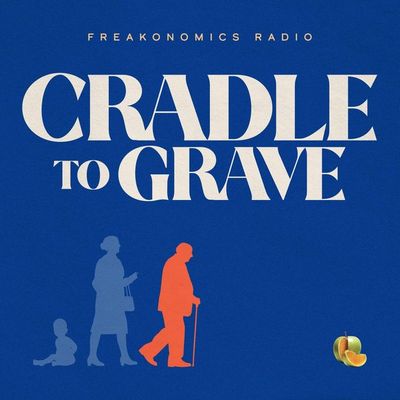
638. Are You Ready for the Elder Swell?
<p>In the U.S., there will soon be more people over 65 than there are under 18 — and it’s not just lifespan that’s improving, it’s “healthspan” too. Unfortunately, the American approach to aging is stuck in the 20th century. In less than an hour, we try to unstick it. (Part three of a three-part series, “<a href="https://freakonomics.com/podcast-tag/cradle-to-grave/">Cradle to Grave</a>.”)</p><p> </p><ul><li><strong>SOURCES:</strong><ul><li><a href="https://scholars.duke.edu/person/james.chappel">James Chappel</a>, professor of history at Duke University.</li><li><a href="https://generatorvc.com/team">Katy Fike</a>, co-founder of Aging 2.0 and managing partner of Generator Ventures.</li><li><a href="https://bioagelabs.com/team">Kristen Fortney</a>, co-founder and C.E.O. of BioAge.</li><li><a href="https://www.celinehh.com/about">Celine Halioua</a>, founder and C.E.O. of Loyal.</li><li><a href="https://kylascanlon.com/">Kyla Scanlon</a>, economic commentator.</li><li><a href="https://profandrewjscott.com/">Andrew Scott</a>, professor of economics at London Business School.</li></ul></li></ul><p> </p><ul><li><strong>RESOURCES:</strong><ul><li><a href="https://amzn.to/4l1Q1Yp"><i>In This Economy?: How Money & Markets Really Work</i></a><i>, </i>by Kyla Scanlon (2024).</li><li><a href="https://amzn.to/3HZXLeY"><i>Golden Years: How Americans Invented and Reinvented Old Age</i></a><i>, </i>by James Chappel (2024).</li><li><a href="https://amzn.to/44hswU5"><i>The Longevity Imperative: How to Build a Healthier and More Productive Society to Support Our Longer Lives</i></a><i>, </i>by Andrew Scott (2024).</li></ul></li></ul><p> </p><ul><li><strong>EXTRAS:</strong><ul><li>"<a href="https://freakonomics.com/series/off-leash/">Off Leash</a>," by <i>The Freakonomics Radio Network </i>(2022).</li><li>"<a href="https://freakonomics.com/podcast/are-you-ready-for-a-glorious-sunset/">Are You Ready for a Glorious Sunset?</a>" by <i>Freakonomics Radio </i>(2015).</li></ul></li></ul>

What Do Medieval Nuns and Bo Jackson Have in Common? (Update)
<p>In this episode from 2013, we look at whether spite pays — and if it even exists.</p><p> </p><ul><li><strong>SOURCES:</strong><ul><li><a href="https://cepr.org/about/people/benedikt-herrmann">Benedikt Herrmann</a>, research officer at the European Commission.</li><li><a href="https://freakonomics.com/series/people-i-mostly-admire/">Steve Levitt</a>, co-author of <i>Freakonomics </i>and host of <i>People I (Mostly) Admire</i>.</li><li><a href="https://www.linkedin.com/in/dave-o-connor-a75a829/">Dave O'Connor</a>, president of Times Studios.</li><li><a href="https://www.oenewsletter.org/OEN/archive/46_1/oliver.php">Lisi Oliver</a>, professor of English at Louisiana State University.</li><li><a href="https://eowilsonfoundation.org/about-us/e-o-wilson/">E.O. Wilson</a>, naturalist and university research professor emeritus at Harvard University.</li></ul></li></ul><p> </p><ul><li><strong>RESOURCES:</strong><ul><li><a href="https://www.imdb.com/title/tt2356302/?ref_=ttfc_ov_i"><i>You Don't Know Bo: The Legend of Bo Jackson</i></a><i>, </i>documentary (2012).</li><li>"<a href="https://pmc.ncbi.nlm.nih.gov/articles/PMC2689568/pdf/0392-100X.29.044.pdf">Amputation of the nose throughout history</a>," by G. Sperati <i>(ACTA Otorhinolaryngologica Italica,</i> 2009).</li><li>"<a href="https://www.nottingham.ac.uk/cedex/documents/papers/2008-10.pdf">The Appearance of Homo Rivalis: Social Preferences and the Nature of Rent Seeking</a>," by Benedikt Herrmann and Henrik Orzen <i>(Center for Decision Research and Experimental</i> Economics, 2008).</li></ul></li></ul><p> </p><ul><li><strong>EXTRAS:</strong><ul><li>"<a href="https://freakonomics.com/podcast/what-its-like-to-be-middle-aged-in-the-middle-ages/">What It’s Like to Be Middle-Aged (in the Middle Ages)</a>," by <i>Freakonomics Radio </i>(2025).</li></ul></li></ul>
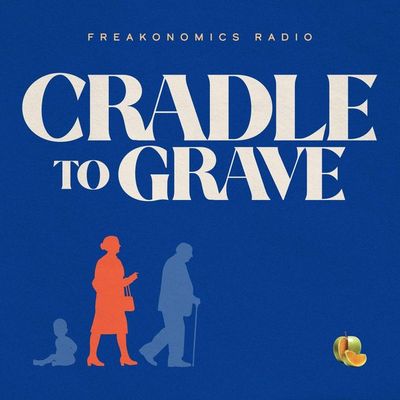
637. What It’s Like to Be Middle-Aged (in the Middle Ages)
<p>The simplicity of life back then is appealing today, as long as you don’t mind Church hegemony, the occasional plague, trial by gossip — and the lack of ibuprofen. (Part two of a three-part series, “<a href="https://freakonomics.com/podcast-tag/cradle-to-grave/">Cradle to Grave</a>.”)</p><p> </p><ul><li><strong>SOURCES:</strong><ul><li><a href="https://jordancavalier.com/about-me">Jordan Cavalier</a>, performer at the New Jersey Renaissance Faire.</li><li><a href="https://njrenfaire.com/wordpress/matt-schwarz-harper/">Matt Schwarz</a>, harpist at the New Jersey Renaissance Faire.</li><li><a href="https://www.aber.ac.uk/en/history/staff-profiles/listing/profile/prs/">Phillipp Schofield</a>, professor of history at Aberystywth University.</li><li><a href="https://history.columbia.edu/person/neslihan-senocak/">Neslihan Şenocak</a>, professor of history at Columbia University.</li></ul></li></ul><p> </p><ul><li><strong>RESOURCES:</strong><ul><li><a href="https://amzn.to/3ZAnEYK"><i>A People's Church: Medieval Italy and Christianity, 1050–1300</i></a><i>, </i>co-edited by Agostino Paravicini Bagliani and Neslihan Şenocak (2023).</li><li><a href="https://www.taylorfrancis.com/chapters/edit/10.4324/9781003194866-12/famine-medieval-england-phillipp-schofield"><i>The Routledge Handbook of Medieval Rural Life</i></a><i>, </i>edited by Miriam Müller with a contribution by Phillip Schofield (2021).</li><li><a href="https://www.imdb.com/title/tt0071853/"><i>Monty Python and the Holy Grail</i></a><i>, </i>film (1975).</li></ul></li></ul><p> </p><ul><li><strong>EXTRAS:</strong><ul><li>"<a href="https://freakonomics.com/podcast/are-you-having-a-midlife-crisis/">Are You Having a Midlife Crisis?</a>" by <i>No Stupid Questions</i> (2022).</li></ul></li></ul>
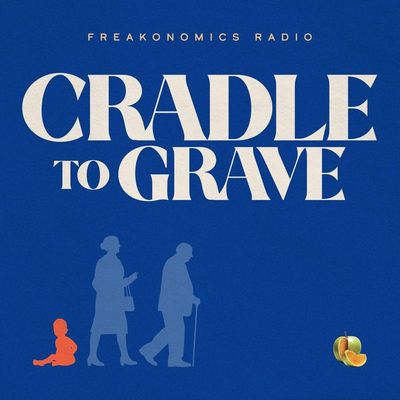
636. Why Aren’t We Having More Babies?
<p>For decades, the great fear was overpopulation. Now it’s the opposite. How did this happen — and what’s being done about it? (Part one of a <a href="https://freakonomics.com/podcast-tag/cradle-to-grave/">three-part series</a>, “Cradle to Grave.”)</p><p> </p><ul><li><strong>SOURCES:</strong><ul><li><a href="https://www.lse.ac.uk/economics/people/faculty/matthias-doepke">Matthias Doepke</a>, professor of economics at the London School of Economics.</li><li><a href="https://history.umbc.edu/facultystaff/full-time/amy-froide/">Amy Froide</a>, professor of history at the University of Maryland, Baltimore County.</li><li><a href="https://profiles.ucsf.edu/diana.laird">Diana Laird</a>, professor of obstetrics and gynecology at the University of California, San Francisco.</li><li><a href="https://business.catholic.edu/faculty-and-research/faculty-profiles/pakaluk-catherine/index.html">Catherine Pakaluk</a>, professor of economics at The Catholic University of America.</li></ul></li></ul><p> </p><ul><li><strong>RESOURCES:</strong><ul><li>"<a href="https://fred.stlouisfed.org/series/SPDYNTFRTINUSA">Fertility Rate, Total for the United States</a>," <i>(Federal Reserve Bank of St. Louis,</i> 2025).</li><li>"<a href="https://www.thelancet.com/journals/lancet/article/PIIS0140-6736(24)00550-6/fulltext">Global fertility in 204 countries and territories, 1950–2021, with forecasts to 2100: a comprehensive demographic analysis for the Global Burden of Disease Study 2021</a>," <i>(The Lancet, </i>2024).</li><li>"<a href="https://www.wsj.com/world/birthrates-global-decline-cause-ddaf8be2">Suddenly There Aren’t Enough Babies. The Whole World Is Alarmed</a>." by Greg Ip and Janet Adamy <i>(The Wall Street Journal,</i> 2024).</li><li>"<a href="https://umbc.edu/stories/taxing-bachelors-and-proposing-marriage-lotteries-how-superpowers-addressed-declining-birthrates-in-the-past/">Taxing bachelors and proposing marriage lotteries – how superpowers addressed declining birthrates in the past</a>," by Amy Froide <i>(University of Maryland,</i> 2021).</li><li>"<a href="https://www.nber.org/system/files/working_papers/w24355/w24355.pdf">Is Fertility a Leading Economic Indicator?</a>" by Kasey Buckles, Daniel Hungerman, and Steven Lugauer <i>(National Bureau of Economic Research,</i> 2018).</li><li><a href="https://amzn.to/4kzHRGj"><i>The King's Midwife: A History and Mystery of Madame du Coudray</i></a><i>, </i>by Nina Rattner Gelbart (1999).</li><li><a href="https://amzn.to/3HDahkj"><i>The Population Bomb</i></a><i>, </i>by Paul Ehrlich (1970).</li><li>"<a href="https://ideas.repec.org/h/nbr/nberch/2387.html">An Economic Analysis of Fertility</a>," by Gary Becker <i>(National Bureau of Economic Research,</i> 1960).</li></ul></li></ul><p> </p><ul><li><strong>EXTRAS:</strong><ul><li>"<a href="https://freakonomics.com/2011/06/what-will-be-the-consequences-of-the-latest-prenatal-testing-technologies/">What Will Be the Consequences of the Latest Prenatal-Testing Technologies?</a>" by <i>Freakonomics Radio </i>(2011).</li></ul></li></ul>

An Economics Lesson from a Talking Pencil (Update)
<p>A famous essay argues that “not a single person on the face of this earth” knows how to make a pencil. How true is that? In this 2016 episode, we looked at what pencil-making can teach us about global manufacturing — and the proper role of government in the economy.</p><p> </p><ul><li><strong>SOURCES:</strong><ul><li><a href="https://thelocavore.com/about">Caroline Weaver</a>, creator of the Locavore Guide.</li><li><a href="https://www.mattridley.co.uk/biography/">Matt Ridley</a>, science writer, British viscount and retired member of the House of Lords</li><li><a href="https://timharford.com/">Tim Harford</a>, economist, author and columnist for the Financial Times</li><li><a href="https://generalpencil.com/">Jim Weissenborn</a>, former CEO of General Pencil Company</li><li><a href="https://www.thomasthwaites.com/about/">Thomas Thwaites</a>, freelance designer and associate lecturer at Central Saint Martins.</li></ul></li></ul><p> </p><ul><li><strong>RESOURCES:</strong><ul><li>"<a href="https://www.ted.com/talks/matt_ridley_when_ideas_have_sex?language=en">When ideas have sex</a>," by Matt Ridley <i>(TED,</i> 2010).</li><li>"<a href="https://www.ted.com/talks/thomas_thwaites_how_i_built_a_toaster_from_scratch?language=en">How I built a toaster — from scratch</a>," by Thomas Thwaites <i>(TED,</i> 2010).</li><li>"<a href="https://www.ft.com/content/d92708ce-74ec-11de-9ed5-00144feabdc0">Look on this toaster, ye mighty, and despair!</a>" by Tim Harford <i>(Financial Times,</i> 2009).</li><li>"<a href="https://fee.org/ebooks/i-pencil/?gad_source=1&gad_campaignid=21337476191&gbraid=0AAAAADkIVmfTxTVDSg_kMSbB0zlucqKyV&gclid=CjwKCAjwr5_CBhBlEiwAzfwYuIpXqI8EpJMJddb4y9ozT3CcgwPvVxH2ydQ7EgPrUuP4nMtaFuat7xoCdQsQAvD_BwE">I, Pencil</a>," by Leonard Read <i>(Foundation for Economic Education,</i> 1958).</li></ul></li></ul><p> </p><ul><li><strong>EXTRAS:</strong><ul><li>“<a href="https://freakonomics.com/podcast/fault-finder-is-a-minimum-wage-job/">Fault-Finder Is a Minimum-Wage Job</a>,” by <i>Freakonomics Radio </i>(2025).</li></ul></li></ul>

635. Can a Museum Be the Conscience of a Nation?
<p>Nicholas Cullinan, the new director of the British Museum, seems to think so. “I'm not afraid of the past,” he says — which means talking about looted objects, the basement storerooms, and the leaking roof. We take the guided tour.</p><p> </p><ul><li><strong>SOURCES:</strong><ul><li><a href="https://www.britishmuseum.org/sites/default/files/2024-03/Dr_Nicholas_Cullinan_appointed_as_new_Director_of_the_British_Museum.pdf">Nicholas Cullinan</a>, director of the British Museum.</li></ul></li></ul><p> </p><ul><li><strong>RESOURCES:</strong><ul><li>"<a href="https://www.thetimes.com/culture/art/article/inside-the-british-museum-stolen-treasures-and-a-1bn-revamp-wp2zwcs53?t=1747171737800">Inside the British Museum: stolen treasures and a £1bn revamp</a>," by Alice Thomson <i>(The Times,</i> 2025).</li><li>"<a href="https://www.bbc.com/news/articles/cpegg27g74do">British Museum gems for sale on eBay - how a theft was exposed</a>," by Katie Razzall, Larissa Kennelly, and Darin Graham <i>(BBC,</i> 2024).</li><li>"<a href="https://www.ft.com/content/9ed91396-d77a-4205-83b4-e97348d45749">British Museum chief Nicholas Cullinan: ‘I start with the idea that everything is possible,'</a>" by Jan Dalley <i>(Financial Times,</i> 2024).</li><li>"<a href="https://www.theatlantic.com/magazine/archive/2022/10/benin-bronzes-nigeria-return-stolen-art/671245/">Who Benefits When Western Museums Return Looted Art?</a>" by David Frum <i>(The Atlantic,</i> 2022).</li><li><a href="https://archive.org/details/bim_eighteenth-century_the-will-of-sir-hans-slo_sloane-hans-sir_1753/mode/2up"><i>The Will of Sir Hans Sloane</i></a><i>, </i>by Sir Hans Sloane (1753).</li><li><a href="https://www.britishmuseum.org/collection/object/G_1945-0927-1">The Portland Vase</a> <i>(The British Museum)</i>.</li></ul></li></ul><p> </p><ul><li><strong>EXTRAS:</strong><ul><li>"<a href="https://freakonomics.com/podcast-tag/stealing-art-is-easy-giving-it-back-is-hard/">Stealing Art Is Easy. Giving It Back Is Hard</a>." by <i>Freakonomics Radio </i>(2023).</li></ul></li></ul>

634. “Fault-Finder Is a Minimum-Wage Job”
<p>Austan Goolsbee, president of the Federal Reserve Bank of Chicago, is less reserved than the average banker. He explains why vibes are overrated, why the Fed’s independence is non-negotiable, and why tariffs could bring the economy back to the Covid era.</p><p> </p><ul><li><strong>SOURCES:</strong><ul><li><a href="https://www.chicagofed.org/utilities/about-us/office-of-the-president/office-of-the-president-home">Austan Goolsbee</a>, president and chief executive officer of the Federal Reserve Bank of Chicago.</li></ul></li></ul><p> </p><ul><li><strong>RESOURCES:</strong><ul><li>"<a href="http://klenow.com/internet-rising-prices-falling_GoolsbeeKlenow.pdf">Internet Rising, Prices Falling: Measuring Inflation in a World of E-Commerce</a>," by Austan Goolsbee and Peter Klenow <i>(American Economic Association Papers and Proceedings,</i> 2018).</li><li><a href="https://amzn.to/3SntxV7"><i>Microeconomics</i></a><i>, </i>by Austan Goolsbee, Steven Levitt, and Chad Syverson (2012).</li><li>"<a href="https://www.journals.uchicago.edu/doi/abs/10.1086/339714?journalCode=jpe">Does the Internet Make Markets More Competitive? Evidence from the Life Insurance Industry</a>," by Jeffrey Brown and Austan Goolsbee <i>(Journal of Political Economy,</i> 2002).</li><li><a href="https://www.sca.isr.umich.edu/">Survey of Consumers</a> <i>(University of Michigan).</i></li><li><a href="https://business.adobe.com/resources/digital-price-index.html">Adobe Digital Price Index</a>.</li></ul></li></ul><p> </p><ul><li><strong>EXTRAS:</strong><ul><li>"<a href="https://freakonomics.com/podcast/was-austan-goolsbees-first-visit-to-the-oval-office-almost-his-last/">Was Austan Goolsbee’s First Visit to the Oval Office Almost His Last?</a>" by <i>People I (Mostly) Admire </i>(2022).</li><li>"<a href="https://freakonomics.com/podcast/is-2-trillion-the-right-medicine-for-a-sick-economy-ep-411/">Is $2 Trillion the Right Medicine for a Sick Economy?</a>" by <i>Freakonomics Radio </i>(2020).</li><li>"<a href="https://freakonomics.com/podcast/fed-up-ep-390/">Fed Up,</a>" by <i>Freakonomics Radio </i>(2019).</li><li>"<a href="https://freakonomics.com/podcast/why-the-trump-tax-cuts-are-terrible-awesome-part-2/">Why the Trump Tax Cuts Are Terrible/Awesome (Part 2)</a>" by <i>Freakonomics Radio </i>(2018).</li><li>"<a href="https://freakonomics.com/podcast/ben-bernanke-gives-himself-a-grade/">Ben Bernanke Gives Himself a Grade</a>," by <i>Freakonomics Radio </i>(2015).</li><li>"<a href="https://freakonomics.com/podcast/should-the-u-s-merge-with-mexico/">Should the U.S. Merge With Mexico?</a>" by <i>Freakonomics Radio </i>(2014).</li></ul></li></ul>

633. The Most Powerful People You’ve Never Heard Of
<p>Just beneath the surface of the global economy, there is a hidden layer of dealmakers for whom war, chaos, and sanctions can be a great business opportunity. Javier Blas and Jack Farchy, the authors of <i>The World for Sale</i>, help us shine a light on the shadowy realm of commodity traders.</p><p> </p><ul><li><strong>SOURCES:</strong><ul><li><a href="https://www.bloomberg.com/authors/ASIsQsgx0V8/javier-blas?sref=6DPKmIax">Javier Blas</a>, opinion columnist at Bloomberg News.</li><li><a href="https://www.linkedin.com/in/jack-farchy-5a3a6723/?originalSubdomain=uk">Jack Farchy</a>, energy and commodities senior reporter at Bloomberg News.</li></ul></li></ul><p> </p><ul><li><strong>RESOURCES:</strong><ul><li><a href="https://amzn.to/438t0fN"><i>The World For Sale: Money, Power, and the Traders Who Barter the Earth's Resources</i></a><i>, </i>by Javier Blas and Jack Farchy (2021)</li><li><a href="https://amzn.to/3Fjj7To"><i>The King of Oil: The Secret Lives of Marc Rich</i></a><i>, </i>by Daniel Ammann (2010).</li></ul></li></ul><p> </p><ul><li><strong>EXTRAS:</strong><ul><li>"<a href="https://freakonomics.com/podcast/how-the-supermarket-helped-america-win-the-cold-war-update/">How the Supermarket Helped America Win the Cold War (Update)</a>" by <i>Freakonomics Radio </i>(2024).</li><li>"<a href="https://freakonomics.com/podcast/the-first-great-american-industry/">The First Great American Industry</a>," by <i>Freakonomics Radio </i>(2023).</li></ul></li></ul>
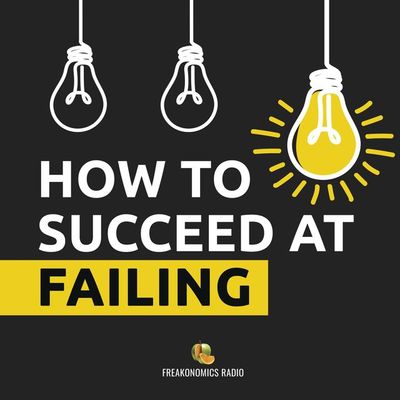
How to Succeed at Failing, Part 4: Extreme Resiliency (Update)
<p>Everyone makes mistakes. How do we learn from them? Lessons from the classroom, the Air Force, and the world’s deadliest infectious disease.</p><p> </p><ul><li><strong>SOURCES:</strong><ul><li><a href="https://www.linkedin.com/in/will-coleman/">Will Coleman</a>, founder and C.E.O. of Alto.</li><li><a href="https://www.hbs.edu/faculty/Pages/profile.aspx?facId=6451">Amy Edmondson</a>, professor of leadership management at Harvard Business School.</li><li><a href="https://tb.ucsf.edu/people/babak-javid-mb-phd">Babak Javid</a>, physician-scientist and associate director of the University of California, San Francisco Center for Tuberculosis.</li><li><a href="https://www.gary-klein.com/welcome">Gary Klein</a>, cognitive psychologist and pioneer in the field of naturalistic decision making.</li><li><a href="https://theresamacphail.com/">Theresa MacPhail</a>, medical anthropologist and associate professor of science & technology studies at the Stevens Institute of Technology.</li><li><a href="https://english.tau.ac.il/profile/shalemro">Roy Shalem</a>, lecturer at Tel Aviv University.</li><li><a href="https://www.linkedin.com/in/samuelwest/?originalSubdomain=es">Samuel West</a>, curator and founder of The Museum of Failure.</li></ul></li></ul><p> </p><ul><li><strong>RESOURCES:</strong><ul><li>"<a href="https://www.wsj.com/arts-culture/museum-of-failure-samuel-west-martin-biallas-7c1dfdcf?mod=hp_featst_pos3">A Golf Club Urinal, Colgate Lasagna and the Bitter Fight Over the Museum of Failure</a>," by Zusha Elinson <i>(Wall Street Journal,</i> 2025).</li><li><a href="https://amzn.to/45mpkoA"><i>Right Kind of Wrong: The Science of Failing Well</i></a><i>, </i>by Amy Edmondson (2023).</li><li>“<a href="https://journals.sagepub.com/doi/abs/10.1177/17456916211059817">You Think Failure Is Hard? So Is Learning From It</a>,” by Lauren Eskreis-Winkler and Ayelet Fishbach (<i>Perspectives on Psychological Science, </i>2022).</li><li>“<a href="https://papers.ssrn.com/sol3/papers.cfm?abstract_id=1547268">The Market for R&D Failures</a>,” by Manuel Trajtenberg and Roy Shalem (<i>SSRN, </i>2010).</li><li>“<a href="https://cltr.nl/wp-content/uploads/2020/11/Project-Pre-Mortem-HBR-Gary-Klein.pdf">Performing a Project <i>Pre</i>mortem</a>,” by Gary Klein (<i>Harvard Business Review, </i>2007).</li></ul></li></ul><p> </p><ul><li><strong>EXTRAS:</strong><ul><li>"<a href="https://freakonomics.com/podcast/the-deadliest-disease-in-human-history/">The Deadliest Disease in Human History</a>," by <i>People I (Mostly) Admire </i>(2025).</li><li>“<a href="https://freakonomics.com/podcast-tag/how-to-succeed-at-failing/">How to Succeed at Failing</a>,” series by <i>Freakonomics Radio </i>(2023).</li><li>“<a href="https://freakonomics.com/podcast/moncef-slaoui-its-unfortunate-that-it-takes-a-crisis-for-this-to-happen/">Moncef Slaoui: ‘It’s Unfortunate That It Takes a Crisis for This to Happen</a>,'” by <i>People I (Mostly) Admire </i>(2020).</li></ul></li></ul>
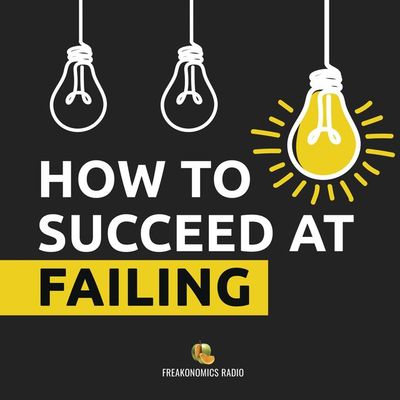
How to Succeed at Failing, Part 3: Grit vs. Quit (Update)
<p>Giving up can be painful. That's why we need to talk about it. Today: stories about glitchy apps, leaky paint cans, broken sculptures — and a quest for the perfect bowl of ramen.</p><p> </p><ul><li><strong>SOURCES:</strong><ul><li><a href="https://applegatellc.com/john/">John Boykin</a>, website designer and failed paint can re-inventor.</li><li><a href="https://angeladuckworth.com/">Angela Duckworth</a>, host of <i>No Stupid Questions</i>, co-founder of Character Lab, and professor of psychology at the University of Pennsylvania.</li><li><a href="https://www.hbs.edu/faculty/Pages/profile.aspx?facId=6451">Amy Edmondson</a>, professor of leadership management at Harvard Business School.</li><li><a href="https://helenfisher.com/">Helen Fisher</a>, former senior research fellow at The Kinsey Institute and former chief science advisor to Match.com.</li><li><a href="https://evhippel.mit.edu/">Eric von Hippel,</a> professor of technological innovation at M.I.T.’s Sloan School of Management.</li><li><a href="https://www.linkedin.com/in/jillrutanhoffman/">Jill Hoffman</a>, founder and C.E.O. of Path 2 Flight.</li><li><a href="https://www.gary-klein.com/welcome">Gary Klein</a>, cognitive psychologist and pioneer in the field of naturalistic decision making.</li><li><a href="https://pricetheory.uchicago.edu/levitt/">Steve Levitt</a>, host of <i>People I (Mostly) Admire</i>, co-author of the <i>Freakonomics</i> books, and professor of economics at the University of Chicago.</li><li><a href="https://www.josephoconnell.art/">Joseph O’Connell</a>, artist.</li><li><a href="https://www.linkedin.com/in/mike-ridgeman-211428248">Mike Ridgeman</a>, government affairs manager at the Wisconsin Bike Fed.</li><li><a href="http://melaniestefan.net/">Melanie Stefan</a>, professor of physiology at Medical School Berlin.</li><li><a href="https://www.linkedin.com/in/travismthul/">Travis Thul</a>, vice president for Student Success and Engagement at Minnesota State University, Mankato.</li></ul></li></ul><p> </p><ul><li><strong>RESOURCES:</strong><ul><li>“<a href="https://www.aaup.org/sites/default/files/AAUP%20Data%20Snapshot.pdf">Data Snapshot: Tenure and Contingency in US Higher Education</a>,” by Glenn Colby (<i>American Association of University Professors</i>, 2023).</li><li><a href="https://amzn.to/3SejjaI"><i>Grit: The Power of Passion and Perseverance</i></a><i>, </i>by Angela Duckworth (2016).</li><li>“<a href="https://www.bls.gov/bdm/entrepreneurship/bdm_chart3.htm">Entrepreneurship and the U.S. Economy</a>,” by the U.S. Bureau of Labor Statistics (2016).</li><li>“<a href="https://www.nature.com/articles/nj7322-467a">A C.V. of Failures</a>,” by Melanie Stefan (<i>Nature, </i>2010).</li><li><a href="http://www.theramennow.com/">Ramen Now!</a> official website.</li></ul></li></ul><p> </p><ul><li><strong>EXTRAS: </strong><ul><li>“<a href="https://freakonomics.com/podcast-tag/how-to-succeed-at-failing/">How to Succeed at Failing</a>,” series by <i>Freakonomics Radio </i>(2023).</li><li>“<a href="https://freakonomics.com/podcast/annie-duke-thinks-you-should-quit/">Annie Duke Thinks You Should Quit</a>,” by <i>People I (Mostly) Admire </i>(2022).</li><li>“<a href="https://freakonomics.com/podcast/how-do-you-know-when-its-time-to-quit-nsq-ep-29/">How Do You Know When It’s Time to Quit?</a>” by <i>No Stupid Questions </i>(2020).</li><li>“<a href="https://freakonomics.com/podcast/honey-i-grew-the-economy/">Honey, I Grew the Economy,</a>” by <i>Freakonomics Radio </i>(2019).</li><li>“<a href="https://freakonomics.com/podcast/the-upside-of-quitting-3/">The Upside of Quitting</a>,” by <i>Freakonomics Radio </i>(2011).</li></ul></li></ul>
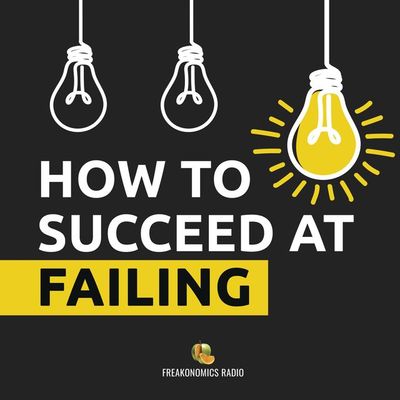
How to Succeed at Failing, Part 2: Life and Death (Update)
<p>In medicine, failure can be catastrophic. It can also produce discoveries that save millions of lives. Tales from the front line, the lab, and the I.T. department.</p><p> </p><ul><li><strong>SOURCES:</strong><ul><li><a href="https://www.hbs.edu/faculty/Pages/profile.aspx?facId=6451">Amy Edmondson</a>, professor of leadership management at Harvard Business School.</li><li><a href="https://gufaculty360.georgetown.edu/s/contact/0033600001MfbNuAAJ/carole-hemmelgarn">Carole Hemmelgarn</a>, co-founder of Patients for Patient Safety U.S. and director of the Clinical Quality, Safety & Leadership Master’s program at Georgetown University.</li><li><a href="https://www.gary-klein.com/welcome">Gary Klein</a>, cognitive psychologist and pioneer in the field of naturalistic decision making.</li><li><a href="https://langerlab.mit.edu/langer-bio/">Robert Langer</a>, institute professor and head of the Langer Lab at the Massachusetts Institute of Technology.</li><li><a href="https://www.lse.ac.uk/economics/people/faculty/john-van-reenen">John Van Reenen</a>, professor at the London School of Economics.</li></ul></li></ul><p> </p><ul><li><strong>RESOURCES:</strong><ul><li><a href="https://amzn.to/45mpkoA"><i>Right Kind of Wrong: The Science of Failing Well</i></a><i>, </i>by Amy Edmondson (2023).</li><li>“<a href="https://www.ncbi.nlm.nih.gov/pmc/articles/PMC9724400/">Reconsidering the Application of Systems Thinking in Healthcare: The RaDonda Vaught Case</a>,” by Connor Lusk, Elise DeForest, Gabriel Segarra, David M. Neyens, James H. Abernathy III, and Ken Catchpole (<i>British Journal of Anaesthesia, </i>2022).</li><li>"<a href="https://news.yale.edu/2020/01/28/estimates-preventable-hospital-deaths-are-too-high-new-study-shows">Estimates of preventable hospital deaths are too high, new study shows</a>," by Bill Hathaway <i>(Yale News,</i> 2020).</li><li>“<a href="https://papers.ssrn.com/sol3/papers.cfm?abstract_id=2776873">Dispelling the Myth That Organizations Learn From Failure</a>,” by Jeffrey Ray (<i>SSRN, </i>2016).</li><li>“<a href="https://journals.lww.com/journalpatientsafety/Fulltext/2013/09000/A_New,_Evidence_based_Estimate_of_Patient_Harms.2.aspx">A New, Evidence-Based Estimate of Patient Harms Associated With Hospital Care</a>,” by John T. James (<i>Journal of Patient Safety, </i>2013).</li><li><a href="https://pubmed.ncbi.nlm.nih.gov/25077248/"><i>To Err is Human: Building a Safer Health System</i></a><i>, </i>by the National Academy of Sciences (1999).</li><li>“<a href="https://www.nature.com/articles/263797a0">Polymers for the Sustained Release of Proteins and Other Macromolecules</a>,” by Robert Langer and Judah Folkman (<i>Nature, </i>1976).</li><li><a href="https://podcasts.apple.com/us/podcast/the-innovation-and-diffusion-podcast/id1708817309"><i>The Innovation and Diffusion Podcast</i></a><i>, </i>by John Van Reenen and Ruveyda Gozen.</li></ul></li></ul><p> </p><ul><li><strong>EXTRAS:</strong><ul><li>"<a href="https://freakonomics.com/the-curious-brilliant-vanishing-mr-feynman/">The Curious, Brilliant, Vanishing Mr. Feynman</a>," series by <i>Freakonomics Radio </i>(2024).</li><li>“<a href="https://freakonomics.com/podcast/will-a-covid-19-vaccine-change-the-future-of-medical-research-ep-430/">Will a Covid-19 Vaccine Change the Future of Medical Research?</a>” by <i>Freakonomics Radio </i>(2020).</li><li>“<a href="https://freakonomics.com/podcast/bad-medicine-part-3-death-by-diagnosis/">Bad Medicine, Part 3: Death by Diagnosis</a>,” by <i>Freakonomics Radio </i>(2016).</li></ul></li></ul>
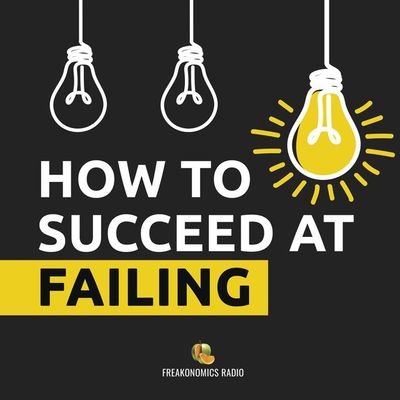
How to Succeed at Failing, Part 1: The Chain of Events (Update)
<p>We tend to think of tragedies as a single terrible moment, rather than the result of multiple bad decisions. Can this pattern be reversed? We try — with stories about wildfires, school shootings, and love.</p><p> </p><ul><li><strong>SOURCES:</strong><ul><li><a href="https://www.hbs.edu/faculty/Pages/profile.aspx?facId=6451">Amy Edmondson</a>, professor of leadership management at Harvard Business School.</li><li><a href="https://helenfisher.com/">Helen Fisher</a>, former senior research fellow at The Kinsey Institute and former chief science advisor to Match.com.</li><li><a href="https://www.gre.ac.uk/people/rep/faculty-of-engineering-and-science/ed-galea">Ed Galea</a>, founding director of the Fire Safety Engineering Group at the University of Greenwich.</li><li><a href="https://www.gary-klein.com/welcome">Gary Klein</a>, cognitive psychologist and pioneer in the field of naturalistic decision making.</li><li><a href="https://www.linkedin.com/in/david-riedman/">David Riedman</a>, founder of the K-12 School Shooting Database.</li><li><a href="https://en.wikipedia.org/wiki/Aaron_Stark">Aaron Stark</a>, head cashier at Lowe's and keynote speaker.</li><li><a href="https://www.lse.ac.uk/economics/people/faculty/john-van-reenen">John Van Reenen</a>, professor at the London School of Economics.</li></ul></li></ul><p> </p><ul><li><strong>RESOURCES:</strong><ul><li>"<a href="https://www.bbc.com/news/world-us-canada-68773119">Ethan Crumbley: Parents of Michigan school gunman sentenced to at least 10 years</a>," by Brandon Drenon <i>(New York Times,</i> 2024).</li><li><a href="https://amzn.to/45mpkoA"><i>Right Kind of Wrong: The Science of Failing Well</i></a><i>, </i>by Amy Edmondson (2023).</li><li>"<a href="https://www.nytimes.com/2023/08/15/us/hawaii-maui-lahaina-fire.html">How Fire Turned Lahaina Into a Death Trap</a>," by Nicholas Bogel-Burroughs, Serge F. Kovaleski, Shawn Hubler, and Riley Mellen (<i>The New York Times, </i>2023).</li><li><a href="https://amzn.to/3rF24EF"><i>The Violence Project: How to Stop a Mass Shooting Epidemic</i></a><i>, </i>by Jillian Peterson and James Densley (2021).</li><li>"<a href="https://www.youtube.com/watch?v=azRl1dI-Cts">I Was Almost A School Shooter</a>," by Aaron Stark (<i>TEDxBoulder, </i>2018).</li></ul></li></ul><p> </p><ul><li><strong>EXTRAS: </strong><ul><li>"<a href="https://freakonomics.com/podcast/is-perfectionism-ruining-your-life/">Is Perfectionism Ruining Your Life?</a>" by <i>People I (Mostly) Admire </i>(2023).</li><li>"<a href="https://freakonomics.com/podcast/why-did-you-marry-that-person/">Why Did You Marry That Person?</a>" by <i>Freakonomics Radio </i>(2022).</li><li>"<a href="https://freakonomics.com/podcast/what-do-we-really-learn-from-failure/">What Do We Really Learn From Failure?</a>" by <i>No Stupid Questions </i>(2021).</li><li>"<a href="https://freakonomics.com/podcast/how-to-fail-like-a-pro/">How to Fail Like a Pro</a>," by <i>Freakonomics Radio </i>(2019).</li><li>"<a href="https://freakonomics.com/podcast/failure-is-your-friend-2/">Failure Is Your Friend</a>," by <i>Freakonomics Radio </i>(2014).</li></ul></li></ul>

632. When Did We All Start Watching Documentaries?
<p>It used to be that making documentary films meant taking a vow of poverty (and obscurity). The streaming revolution changed that. Award-winning filmmaker R.J. Cutler talks to Stephen Dubner about capturing Billie Eilish’s musical genius and Martha Stewart’s vulnerability — and why he really, really, really needs to make a film about the New York Mets.</p><p> </p><ul><li><strong>SOURCES:</strong><ul><li><a href="https://www.imdb.com/name/nm0191712/">R.J. Cutler</a>, filmmaker.</li></ul></li></ul><p> </p><ul><li><strong>RESOURCES:</strong><ul><li><a href="https://tv.apple.com/us/show/fight-for-glory-2024-world-series/umc.cmc.6x620ggn8n2yamemiuk7ys8yt"><i>Fight for Glory</i></a><i>, </i>documentary (2025).</li><li><a href="https://www.netflix.com/title/81479059"><i>Martha</i></a><i>, </i>documentary (2024).</li><li>"<a href="https://www.vulture.com/article/tv-documentaries-ethical-standards.html">Reality Check: The Boom—or Glut—in Streaming Documentaries Has Sparked a Reckoning Among Filmmakers and Their Subjects</a>," by Reeves Wiedeman <i>(Vulture,</i> 2023).</li><li>"<a href="https://www.hollywoodreporter.com/movies/movie-features/documentary-streaming-age-filmmaker-debate-ethics-payments-1235221541/">Inside the Documentary Cash Grab</a>," by Mia Galuppo and Katie Kilkenny <i>(The Hollywood Reporter,</i> 2022).</li><li><a href="https://tv.apple.com/us/movie/billie-eilish-the-worlds-a-little-blurry/umc.cmc.5waz3hfo9r1133t8arap8b6nq?action=play"><i>Billie Eilish: The World’s a Little Blurry,</i></a> documentary (2021).</li></ul></li></ul><p> </p><ul><li><strong>EXTRAS:</strong><ul><li>“<a href="https://freakonomics.com/podcast/ari-emanuel-is-never-indifferent/">Ari Emanuel Is Never Indifferent,</a>” by <i>Freakonomics Radio </i>(2023).</li></ul></li></ul>
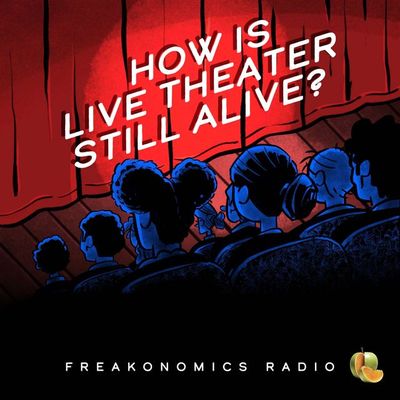
631. Will "3 Summers of Lincoln" Make It to Broadway?
<p>It’s been in development for five years and has at least a year to go. On the eve of its out-of-town debut, the actor playing Lincoln quit. And the producers still need to raise another $15 million to bring the show to New York. There really is no business like show business. (Part three of a<a href="https://freakonomics.com/podcast-tag/how-is-live-theater-still-alive/"> three-part series</a>.)</p><p> </p><ul><li><strong>SOURCES:</strong><ul><li><a href="https://lajollaplayhouse.org/who-we-are/the-team/">Christopher Ashley</a>, artistic director of La Jolla Playhouse.</li><li><a href="https://lajollaplayhouse.org/who-we-are/the-team/">Debby Buchholz</a>, managing director of La Jolla Playhouse.</li><li><a href="https://www.instagram.com/cusackcarmen/?hl=en">Carmen Cusack</a>, actor.</li><li><a href="https://playbill.com/person/quentin-earl-darrington-vault-0000031341">Quentin Earl Darrington</a>, actor.</li><li><a href="https://playbill.com/person/joe-dipietro-vault-0000006553">Joe DiPietro</a>, playwright and lyricist.</li><li><a href="https://www.crystalmoneehall.com/">Crystal Monee Hall</a>, composer, singer, actor<i>.</i></li><li><a href="https://playbill.com/person/ivan-hernandez-vault-0000126520">Ivan Hernandez</a>, actor.</li><li><a href="https://oneill.indiana.edu/faculty-research/directory/profiles/faculty/full-time/rushton-michael.html">Michael Rushton</a>, professor of arts administration at Indiana University.</li><li><a href="https://www.jeffreyseller.com/">Jeffrey Seller</a>, Broadway producer.</li><li><a href="https://broadwaylive.net/">Alan Shorr</a>, Broadway producer<i>.</i></li><li><a href="https://www.instagram.com/dwattswords/?hl=en">Daniel Watts</a>, writer, choreographer, actor<i>.</i></li></ul></li></ul><p> </p><ul><li><strong>RESOURCES:</strong><ul><li><a href="https://lajollaplayhouse.org/show/3-summers-of-lincoln/"><i>3 Summers of Lincoln</i></a><i> </i>(2025).</li><li>"<a href="https://www.sandiegouniontribune.com/2025/03/03/review-visceral-3-summers-of-lincoln-is-thrilling-and-thought-provoking/">Review: Visceral ‘3 Summers of Lincoln’ is thrilling and thought-provoking</a>," by Pam Kragen <i>(San Diego Union-Tribune,</i> 2025).</li><li>"<a href="https://www.artsjournal.com/worth/2023/07/whats-wrong-with-the-theatre-is-whats-wrong-with-society/">What’s Wrong with the Theatre is What’s Wrong With Society,</a>" by Michael Rushton <i>(ArtsJournal,</i> 2023).</li><li>"<a href="https://www.nytimes.com/2023/07/19/opinion/theater-collapse-bailout.html">American Theater Is Imploding Before Our Eyes</a>," by Isaac Butler <i>(New York Times,</i> 2023).</li><li><a href="https://amzn.to/4cIRK1f"><i>The Moral Foundations of Public Funding for the Arts</i></a><i>, </i>by Michael Rushton (2023).</li></ul></li></ul><p> </p><ul><li><strong>EXTRAS:</strong><ul><li>“<a href="https://freakonomics.com/podcast/how-to-make-the-coolest-show-on-broadway/">How to Make the Coolest Show on Broadway</a>,” by <i>Freakonomics Radio</i> (2024).</li><li>“<a href="https://freakonomics.com/podcast/you-can-make-a-killing-but-not-a-living/">You Can Make a Killing, but Not a Living</a>,” by <i>Freakonomics Radio</i> (2024).</li></ul></li></ul>

Is It a Theater Piece or a Psychological Experiment? (Update)
<p>In an episode from 2012, we looked at what<i> Sleep No More</i> and the Stanford Prison Experiment can tell us about who we really are.</p><p> </p><ul><li><strong>SOURCES:</strong><ul><li><a href="https://www.punchdrunk.com/our-team/">Felix Barrett</a>, artistic director of Punchdrunk.</li><li><a href="https://pricetheory.uchicago.edu/levitt/">Steven Levitt</a>, professor of economics at the University of Chicago.</li><li><a href="https://www.linkedin.com/in/philzimbardo/">Philip Zimbardo</a>, professor emeritus at Stanford University.</li></ul></li></ul><p> </p><ul><li><strong>RESOURCES:</strong><ul><li>“<a href="https://news.stanford.edu/stories/2024/10/philip-zimbardo-the-psychologist-behind-stanford-prison-experiment-dies-at-age-91">Philip Zimbardo, the psychologist behind the ‘Stanford Prison Experiment,’ dies at 91,</a>” by Melissa De Witte (<i>Stanford Report, </i>2024).</li><li>“<a href="https://gwern.net/doc/psychology/2019-letexier.pdf">Debunking the Stanford Prison Experiment,</a>” by Thibault Le Texier (<i>American Psychologist, </i>2019).</li><li>“<a href="https://gen.medium.com/the-lifespan-of-a-lie-d869212b1f62">The Lifespan of a Lie,</a>” by Ben Blum (<i>GEN, </i>2018).</li><li><a href="https://www.punchdrunk.com/">Punchdrunk</a>.</li></ul></li></ul><p> </p><ul><li><strong>EXTRAS:</strong><ul><li>“<a href="https://freakonomics.com/podcast/how-is-live-theater-still-alive/">How Is Live Theater Still Alive?</a>” by <i>Freakonomics Radio </i>(2025).</li></ul></li></ul>
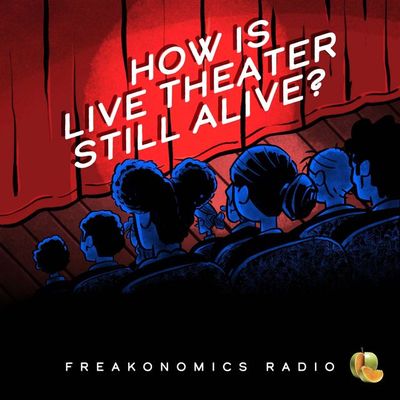
630. On Broadway, Nobody Knows Nothing
<p>A hit like <i>Hamilton</i> can come from nowhere while a sure bet can lose $20 million in a flash. We speak with some of the biggest producers in the game — Sonia Friedman, Jeffrey Seller, Hal Luftig — and learn that there is only one guarantee: the theater owners always win. (Part two of a <a href="https://freakonomics.com/podcast-tag/how-is-live-theater-still-alive/">three-part series</a>.)</p><p> </p><ul><li><strong>SOURCES:</strong><ul><li><a href="https://lajollaplayhouse.org/who-we-are/the-team/">Debby Buchholz</a>, managing director of La Jolla Playhouse.</li><li><a href="https://www.soniafriedman.com/about">Sonia Friedman</a>, Broadway producer.</li><li><a href="https://www.arts.gov/about/what-is-the-nea/rocco-landesman-2009-12">Rocco Landesman</a>, Broadway producer, former owner of Jujamcyn Theaters, former chairman of the National Endowment for the Arts.</li><li><a href="https://www.halluftig.com/">Hal Luftig</a>, Broadway producer.</li><li><a href="https://www.relentlessthebook.com/">Luis Miranda Jr.</a>, political strategist, founding president of the Hispanic Federation, the Northern Manhattan Arts Alliance, Viva Broadway, and The Public Theater.</li><li><a href="https://oneill.indiana.edu/faculty-research/directory/profiles/faculty/full-time/rushton-michael.html">Michael Rushton</a>, professor of arts administration at Indiana University.</li><li><a href="https://www.jeffreyseller.com/">Jeffrey Seller</a>, Broadway producer.</li><li><a href="http://www.redhangerproductions.com/">Richard Winkler</a>, Broadway producer.</li><li><a href="https://effroncenter.princeton.edu/people/stacy-wolf">Stacy Wolf</a>, professor of theater at Princeton University.</li></ul></li></ul><p> </p><ul><li><strong>RESOURCES:</strong><ul><li><a href="https://amzn.to/3EmlK6y"><i>Theater Kid: A Broadway Memoir</i></a><i>, </i>by Jeffrey Seller (2025).</li><li><a href="https://amzn.to/42hgavq"><i>Relentless: My Story of the Latino Spirit That Is Transforming America</i></a><i>, </i>by Luis Miranda Jr. (2024).</li><li><a href="https://amzn.to/4lzU52w"><i>Beyond Broadway: The Pleasure and Promise of Musical Theatre Across America</i></a><i>, </i>by Stacy Wolf (2019).</li><li>"<a href="https://www.nytimes.com/2016/06/12/theater/hamilton-inc-the-path-to-a-billion-dollar-show.html">‘Hamilton’ Inc.: The Path to a Billion-Dollar Broadway Show</a>," by Michael Paulson and David Gelles <i>(New York Times,</i> 2016).</li><li>"<a href="https://pages.stern.nyu.edu/~wbaumol/OnThePerformingArtsTheAnatomyOfTheirEcoProbs.pdf">On the Performing Arts: The Anatomy of Their Economic Problems</a>," by W.J. Baumol and W.G. Bowen <i>(The American Economic Review,</i> 1965).</li></ul></li></ul><p> </p><ul><li><strong>EXTRAS:</strong><ul><li>“<a href="https://freakonomics.com/podcast/how-to-make-the-coolest-show-on-broadway/">How to Make the Coolest Show on Broadway</a>,” by <i>Freakonomics Radio</i> (2024).</li><li>“<a href="https://freakonomics.com/podcast/you-can-make-a-killing-but-not-a-living/">You Can Make a Killing, but Not a Living</a>,” by <i>Freakonomics Radio</i> (2024).</li></ul></li></ul>
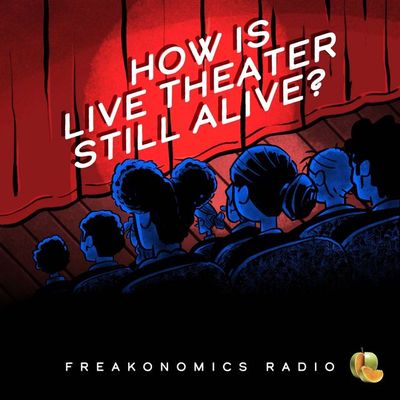
629. How Is Live Theater Still Alive?
<p>It has become fiendishly expensive to produce, and has more competition than ever. And yet the believers still believe. Why? And does the world really want a new musical about ... Abraham Lincoln?! (Part one of <a href="https://freakonomics.com/podcast-tag/how-is-live-theater-still-alive/">a three-part series</a>.)</p><p> </p><ul><li><strong>SOURCES:</strong><ul><li><a href="https://lajollaplayhouse.org/who-we-are/the-team/">Christopher Ashley</a>, artistic director of La Jolla Playhouse.</li><li><a href="https://www.broadwayworld.com/people/Quentin-Earl-Darrington/">Quentin Darrington</a>, actor.</li><li><a href="https://www.broadwayworld.com/people/Joe-DiPietro/">Joe DiPietro</a>, playwright and lyricist.</li><li><a href="https://www.crystalmoneehall.com/">Crystal Monee Hall</a>, composer, singer, actor.</li><li><a href="https://www.arts.gov/about/what-is-the-nea/rocco-landesman-2009-12">Rocco Landesman</a>, Broadway producer, former owner of Jujamcyn Theaters, former chairman of the National Endowment for the Arts.</li><li><a href="https://broadwaylive.net/">Alan Shorr</a>, Broadway producer.</li><li><a href="https://www.instagram.com/dwattswords/">Daniel Watts</a>, writer, choreographer, actor.</li><li><a href="http://www.redhangerproductions.com/">Richard Winkler</a>, Broadway producer.</li></ul></li></ul><p> </p><ul><li><strong>RESOURCES:</strong><ul><li><a href="https://lajollaplayhouse.org/show/3-summers-of-lincoln/"><i>3 Summers of Lincoln</i></a> (2025)</li><li>“<a href="https://www.ibisworld.com/united-states/industry/live-performance-theaters/5359/">Live Performance Theaters in the US - Market Research Report (2014-2029)</a>,” by Grace Wood (IBISWorld, 2024). </li><li><a href="https://www.amazon.com/Leadership-Turbulent-Doris-Kearns-Goodwin/dp/1476795924"><i>Leadership: In Turbulent Times</i></a>, by Doris Kearns Goodwin (2018).</li><li><a href="https://www.concordtheatricals.com/p/44758/big-river"><i>Big River</i></a><i> </i>(1984)</li></ul></li></ul><p> </p><ul><li><strong>EXTRAS:</strong><ul><li>“<a href="https://freakonomics.com/podcast/how-to-make-the-coolest-show-on-broadway/">How to Make the Coolest Show on Broadway</a>,” by <i>Freakonomics Radio</i> (2024).</li><li>“<a href="https://freakonomics.com/podcast/you-can-make-a-killing-but-not-a-living/">You Can Make a Killing, but Not a Living</a>,” by <i>Freakonomics Radio</i> (2024).</li></ul></li></ul>

Policymaking Is Not a Science — Yet (Update)
<p>Why do so many promising solutions in education, medicine, and criminal justice fail to scale up into great policy? And can a new breed of “implementation scientists” crack the code?</p><p> </p><ul><li><strong>SOURCES:</strong><ul><li><a href="https://www.oslc.org/blog/scientist/patricia-chamberlain/">Patti Chamberlain</a>, senior research scientist at the Oregon Social Learning Center.</li><li><a href="https://voices.uchicago.edu/jlist/">John List</a>, professor of economics at the University of Chicago.</li><li><a href="https://www.linkedin.com/in/lauren-supplee-83aaba7/">Lauren Supplee</a>, former deputy chief operating officer at Child Trends.</li><li><a href="https://www.uchicagomedicine.org/find-a-physician/physician/dana-l-suskind">Dana L. Suskind</a>, professor of surgery at the University of Chicago.</li></ul></li></ul><p> </p><ul><li><strong>RESOURCES:</strong><ul><li>“<a href="https://ideas.repec.org/p/feb/artefa/00679.html">How Can Experiments Play a Greater Role in Public Policy? 12 Proposals from an Economic Model of Scaling</a>,” by Omar Al-Ubaydli, John List, Claire Mackevicius, Min Sok Lee, and Dana Suskind.</li><li>“<a href="https://ideas.repec.org/p/feb/artefa/00670.html">The Science of Using Science: Towards an Understanding of the Threats to Scaling Experiments</a>,” by Omar Al-Ubaydli, John List, and Dana Suskind (<i>The Field Experiments Website</i>, 2019).</li><li>“<a href="https://www.ncbi.nlm.nih.gov/pubmed/29299970">Inconsistent Device Use in Pediatric Cochlear Implant Users: Prevalence and Risk Factors</a>,” by K.B.Wiseman and A.D. Warner-Czyz (<i>U.S. National Library of Medicine National Institutes of Health</i>, 2018).</li></ul></li></ul><p> </p><ul><li><strong>EXTRAS:</strong><ul><li>"<a href="https://freakonomics.com/podcast/why-do-most-ideas-fail-to-scale/">Why Do Most Ideas Fail to Scale?</a>" by <i>Freakonomics Radio </i>(2022).</li><li>"<a href="https://freakonomics.com/podcast/the-price-of-doing-business-with-john-list/">The Price of Doing Business with John List,</a>" by <i>People I (Mostly) Admire </i>(2022).</li><li><a href="https://www.childtrends.org/about-us"><i>Child Trends.</i></a></li><li><a href="https://www.oslc.org/"><i>Oregon Social Learning Center.</i></a></li><li><a href="https://tmwcenter.uchicago.edu/"><i>T.M.W. Center for Early Learning and Public Health.</i></a></li><li><a href="http://www.fieldexperiments.com/"><i>The Field Experiments Website</i></a>.</li></ul></li></ul>

628. Sludge, Part 2: Is Government the Problem, or the Solution?
<p>There is no sludgier place in America than Washington, D.C. But there are signs of a change. We’ll hear about this progress — and ask where Elon Musk and DOGE fit in. (Part two of a <a href="https://freakonomics.com/podcast-tag/sludge/">two-part series</a>.)</p><p> </p><ul><li><strong>SOURCES:</strong><ul><li><a href="https://www.benjaminhandel.com/">Benjamin Handel</a>, professor of economics at UC Berkeley.</li><li><a href="https://nmahoney.people.stanford.edu/">Neale Mahoney</a>, professor of economics at Stanford University.</li><li><a href="https://www.jenniferpahlka.com/about">Jennifer Pahlka</a>, founder of Code for America.</li><li><a href="https://www.chicagobooth.edu/faculty/directory/t/richard-h-thaler">Richard Thaler</a>, professor of economics at The University of Chicago.</li></ul></li></ul><p> </p><ul><li><strong>RESOURCES:</strong><ul><li>"<a href="https://www.briefingbook.info/p/how-big-is-the-subscription-cancellation">How Big Is the Subscription Cancellation Problem?</a>" by Giacomo Fraccaroli, Neale Mahoney, and Zahra Thabet <i>(Briefing Book,</i> 2024).</li><li><a href="https://amzn.to/3YdTp8Y"><i>Recoding America: Why Government Is Failing in the Digital Age and How We Can Do Better</i></a>, by Jennifer Pahlka (2023).</li><li><a href="https://amzn.to/4iIjWDN"><i>Nudge: The Final Edition</i></a><i>,</i> by Richard Thaler and Cass Sunstein (2021).</li><li>"<a href="https://oig.hhs.gov/oei/reports/oei-06-14-00350.pdf">HealthCare.gov: Case Study of CMS Management of the Federal Marketplace</a>," by Daniel Levinson <i>(U.S. Department of Health and Human Services,</i> 2016).</li></ul></li></ul><p> </p><ul><li><strong>EXTRAS:</strong><ul><li>"<a href="https://freakonomics.com/podcast/sludge-part-1-the-world-is-drowning-in-it/">Sludge, Part 1: The World Is Drowning in It</a>," by <i>Freakonomics Radio </i>(2025).</li></ul></li></ul>

627. Sludge, Part 1: The World Is Drowning in It
<p>Insurance forms that make no sense. Subscriptions that can’t be cancelled. A never-ending blizzard of automated notifications. Where does all this sludge come from — and how much is it costing us? (Part one of a <a href="https://freakonomics.com/podcast-tag/sludge">two-part series</a>.)</p><p> </p><ul><li><strong>SOURCES:</strong><ul><li><a href="https://www.benjaminhandel.com/">Benjamin Handel,</a> professor of economics at UC Berkeley.</li><li><a href="https://nmahoney.people.stanford.edu/">Neale Mahoney,</a> professor of economics at Stanford University.</li><li><a href="https://www.chicagobooth.edu/faculty/directory/t/richard-h-thaler">Richard Thaler,</a> professor of economics at The University of Chicago.</li></ul></li></ul><p> </p><ul><li><strong>RESOURCES:</strong><ul><li>"<a href="https://nmahoney.people.stanford.edu/sites/g/files/sbiybj23976/files/media/file/mahoney_subscriptions.pdf">Selling Subscriptions,</a>" by Liran Einav, Ben Klopack, and Neale Mahoney <i>(Stanford University,</i> 2023).</li><li>"<a href="https://www.wired.com/story/tiktok-platforms-cory-doctorow/">The ‘Enshittification’ of TikTok,</a>" by Cory Doctorow <i>(WIRED,</i> 2023).</li><li>"<a href="https://www.aeaweb.org/articles?id=10.1257/pol.20190312">Dominated Options in Health Insurance Plans,</a>" by Chenyuan Liu and Justin Sydnor <i>(American Economic Journal: Economic Policy,</i> 2022).</li><li><a href="https://amzn.to/4iIjWDN"><i>Nudge (The Final Edition)</i></a><i>,</i> by Richard Thaler and Cass Sunstein (2021).</li><li>"<a href="https://eml.berkeley.edu/~bhandel/wp/JEP_Frictions.pdf">Frictions or Mental Gaps: What’s Behind the Information We (Don’t) Use and When Do We Care?</a>" by Benjamin Handel and Joshua Schwartzstein <i>(Journal of Economic Perspectives,</i> 2018).</li><li>"<a href="https://www.nber.org/system/files/working_papers/w17459/w17459.pdf">Adverse Selection and Switching Costs in Health Insurance Markets: When Nudging Hurts,</a>" by Benjamin Handel <i>(National Bureau of Economic Research,</i> 2011).</li></ul></li></ul><p> </p><ul><li><strong>EXTRAS:</strong><ul><li>"<a href="https://freakonomics.com/podcast/people-arent-dumb-the-world-is-hard-update/">People Aren’t Dumb. The World Is Hard. (Update)</a>" by <i>Freakonomics Radio </i>(2024).</li><li>"<a href="https://freakonomics.com/podcast/all-you-need-is-nudge/">All You Need is Nudge,</a>" by <i>Freakonomics Radio </i>(2021).</li><li>"<a href="https://freakonomics.com/podcast/how-to-fix-the-hot-mess-of-u-s-healthcare-ep-456/">How to Fix the Hot Mess of U.S. Healthcare,</a>" by <i>Freakonomics Radio </i>(2021).</li><li>"<a href="https://freakonomics.com/podcast/should-we-really-behave-like-economists-say-we-do/">Should We Really Behave Like Economists Say We Do?</a>" by <i>Freakonomics Radio </i>(2015).</li></ul></li></ul>

Should America Be Run by … Trader Joe’s? (Update)
<p>The quirky little grocery chain with California roots and German ownership has a lot to teach all of us about choice architecture, efficiency, frugality, collaboration, and team spirit.</p><p> </p><ul><li><strong>SOURCES:</strong><ul><li><a href="https://www.linkedin.com/in/kirk-desermia-95954186">Kirk DesErmia</a>, facilities manager in Seward, Alaska.</li><li><a href="http://revolutionaryoldidea.squarespace.com/">Mark Gardiner</a>, journalist and author.</li><li><a href="https://www.sheenaiyengar.com/">Sheena Iyengar</a>, professor of business at Columbia Business School.</li><li><a href="http://michael-roberto.blogspot.com/">Michael Roberto</a>, professor of management at Bryant University.</li></ul></li></ul><p> </p><ul><li><strong>RESOURCES:</strong><ul><li>“<a href="https://www.hbs.edu/faculty/Pages/item.aspx?num=45557">Trader Joe’s</a>,” David Ager and Michael Roberto (<i>Harvard Business School Case, </i>2014).</li><li>“<a href="https://www.eater.com/2017/8/9/16099028/trader-joes-products">What Brands Are Actually Behind Trader Joe’s Snacks?</a>,” Vince Dixon (<i>Eater,</i> 2017).</li><li><a href="https://www.amazon.com/gp/product/0979167337/ref=as_li_qf_asin_il_tl?ie=UTF8&tag=freakonomic08-20&creative=9325&linkCode=as2&creativeASIN=0979167337&linkId=8a85b1b699c570d4d90d2d656e845f20"><i>Build a Brand Like Trader Joe’s</i></a><i> </i>by Mark Gardiner (2012).</li><li>“<a href="https://faculty.washington.edu/jdb/345/345%20Articles/Iyengar%20%26%20Lepper%20(2000).pdf">When Choice is Demotivating: Can One Desire Too Much of a Good Thing?</a>,” Sheena Iyengar and Mark Lepper (<i>Journal of Personality and Social Psychology, </i>2000).</li><li><a href="https://www.amazon.com/gp/product/111954579X/ref=as_li_qf_asin_il_tl?ie=UTF8&tag=freakonomic08-20&creative=9325&linkCode=as2&creativeASIN=111954579X&linkId=9ffa80f738fbab40333e5ba748b8ecb5"><i>Unlocking Creativity</i></a><i>, </i>by Michael Roberto (2019).</li></ul></li></ul><p> </p><ul><li><strong>EXTRAS:</strong><ul><li>“<a href="https://freakonomics.com/podcast/i-pencil/">How Can This Possibly Be True?</a>,” by <i>Freakonomics Radio </i>(2016).</li><li>“<a href="https://freakonomics.com/podcast/how-to-save-1-billion-without-even-trying-a-new-freakonomics-radio-podcast/">How to Save $1 Billion Without Even Trying</a>,” by<i> Freakonomics Radio </i>(2016).</li></ul></li></ul>

626. Ten Myths About the U.S. Tax System
<p>Nearly everything that politicians say about taxes is at least half a lie. They are also dishonest when it comes to the national debt. Stephen Dubner finds one of the few people in Washington who is willing to tell the truth — and it’s even worse than you think.</p><p> </p><ul><li><strong>SOURCES:</strong><ul><li><a href="https://manhattan.institute/person/jessica-riedl">Jessica Riedl,</a> senior fellow in budget, tax, and economic policy at the Manhattan Institute.</li></ul></li></ul><p> </p><ul><li><strong>RESOURCES:</strong><ul><li>"<a href="https://www.nytimes.com/interactive/2025/02/21/upshot/house-gop-budget-blueprint.html">The House Wants to Pass Trump’s Agenda in One Big Bill. Here’s What’s in It.</a>" by Margot Sanger-Katz and Alicia Parlapiano <i>(New York Times,</i> 2025).</li><li>"<a href="https://manhattan.institute/article/correcting-the-top-10-tax-myths?utm_source=press_release&utm_medium=email">Correcting the Top 10 Tax Myths,</a>" by Jessica Riedl <i>(Manhattan Institute,</i> 2024).</li><li>"<a href="https://media4.manhattan-institute.org/wp-content/uploads/Budget-Chart-Book-2024.pdf">Spending, Taxes, and Deficits: A Book of Charts,</a>" by Jessica Riedl <i>(Manhattan Institute,</i> 2024).</li><li>"<a href="https://reason.com/2024/07/13/the-debt-lies-we-tell-ourselves/">Why Did Americans Stop Caring About the National Debt?</a>" by Jessica Riedl <i>(Reason,</i> 2024).</li><li>"<a href="https://manhattan.institute/article/a-comprehensive-federal-budget-plan-to-avert-a-debt-crisis-2024">A Comprehensive Federal Budget Plan to Avert a Debt Crisis,</a>" by Jessica Riedl <i>(Manhattan Institute,</i> 2024).</li><li>"<a href="https://budgetmodel.wharton.upenn.edu/issues/2023/10/6/when-does-federal-debt-reach-unsustainable-levels">When Does Federal Debt Reach Unsustainable Levels?</a>" by Jagadeesh Gokhale, Kent Smetters, and Mariko Paulson <i>(The Wharton School of Business,</i> 2023).</li><li>"<a href="https://manhattan.institute/article/the-limits-of-taxing-the-rich">The Limits of Taxing the Rich,</a>" by Jessica Riedl <i>(Manhattan Institute,</i> 2023).</li></ul></li></ul><p> </p><ul><li><strong>EXTRAS:</strong><ul><li>"<a href="https://freakonomics.com/podcast/farewell-to-a-generational-talent/">Farewell to a Generational Talent,</a>" by <i>Freakonomics Radio </i>(2024).</li></ul></li></ul>

625. The Biden Policy That Trump Hasn’t Touched
<p>Lina Khan, the youngest F.T.C. chair in history, reset U.S. antitrust policy by thwarting mega-mergers and other monopolistic behavior. This earned her enemies in some places, and big fans in others — including the Trump administration. Stephen Dubner speaks with Khan about her tactics, her track record, and her future.</p><p> </p><ul><li><strong>SOURCES:</strong><ul><li><a href="https://www.law.columbia.edu/faculty/lina-khan">Lina Khan,</a> former commissioner of the Federal Trade Commission and professor of law at Columbia Law School.</li></ul></li></ul><p> </p><ul><li><strong>RESOURCES:</strong><ul><li>"<a href="https://www.ftc.gov/system/files/ftc_gov/pdf/2023_merger_guidelines_final_12.18.2023.pdf">Merger Guidelines</a>" <i>(U.S. Department of Justice and the Federal Trade Commission,</i> 2023).</li><li>"<a href="https://www.janeeckhout.com/wp-content/uploads/RMP.pdf">The Rise of Market Power and the Macroeconomic Implications,</a>" by Jan De Loecker, Jan Eeckhout, and Gabriel Unger <i>(National Bureau of Economic Research,</i> 2019).</li><li>"<a href="https://www.hbs.edu/ris/Publication%20Files/19-110_e21447ad-d98a-451f-8ef0-ba42209018e6.pdf">US Antitrust Law and Policy in Historical Perspective,</a>" by Laura Phillips Sawyer <i>(Harvard Business School,</i> 2019).</li><li><a href="https://amzn.to/4ibv5wz"><i>The Curse of Bigness: Antitrust in the New Gilded Age,</i></a><i> </i>by Tim Wu (2018).</li><li>"<a href="https://www.yalelawjournal.org/note/amazons-antitrust-paradox">Amazon’s Antitrust Paradox,</a>" by Lina Khan <i>(Yale Law Journal,</i> 2017).</li><li>"<a href="https://www.nytimes.com/2004/10/17/nyregion/education/a-tempest-in-a-coffee-shop.html">A Tempest In a Coffee Shop,</a>" by Tanya Mohn <i>(New York Times,</i> 2004).</li></ul></li></ul><p> </p><ul><li><strong>EXTRAS:</strong><ul><li>"<a href="https://freakonomics.com/podcast-tag/the-economics-of-eyeglasses/">The Economics of Eyeglasses,</a>" by <i>Freakonomics Radio </i>(2024).</li><li>"<a href="https://freakonomics.com/podcast/should-you-trust-private-equity-to-take-care-of-your-dog/">Should You Trust Private Equity to Take Care of Your Dog?</a>" by <i>Freakonomics Radio </i>(2023).</li><li>"<a href="https://freakonomics.com/podcast/are-private-equity-firms-plundering-the-u-s-economy/">Are Private Equity Firms Plundering the U.S. Economy?</a>" by <i>Freakonomics Radio </i>(2023).</li><li>"<a href="https://freakonomics.com/podcast/is-the-u-s-really-less-corrupt-than-china-and-how-about-russia-update/">Is the U.S. Really Less Corrupt Than China — and How About Russia? (Update)</a>" by <i>Freakonomics Radio </i>(2022).</li></ul></li></ul>

EXTRA: The Downside of Disgust (Update)
<p>It’s a powerful biological response that has preserved our species for millennia. But now it may be keeping us from pursuing strategies that would improve the environment, the economy, even our own health. So is it time to dial down our disgust reflex? You can help fix things — as Stephen Dubner does in this 2021 episode — by chowing down on some delicious insects.</p><p> </p><ul><li><strong>SOURCES:</strong><ul><li><a href="https://psychology.sas.upenn.edu/people/paul-rozin">Paul Rozin,</a> professor of psychology at the University of Pennsylvania.</li><li><a href="https://www.lshtm.ac.uk/newsevents/news/2020/lshtm-pays-tribute-professor-val-curtis">Val Curtis</a>, late disgustologist at the London School of Hygiene and Tropical Medicine.</li><li><a href="https://sites.google.com/site/sandroambuehl/">Sandro Ambuehl</a>, economist at the University of Zurich.</li><li><a href="https://www.linkedin.com/in/emily-kimmins-66535b10/">Emily Kimmins,</a> R&D lead for the sensory and consumer-science team for Kraft Heinz.</li><li>Iliana Sermeno, former chef at The Black Ant.</li></ul></li></ul><p> </p><ul><li><strong>RESOURCES:</strong><ul><li>“<a href="https://www.livescience.com/57626-stink-bugs-add-flavor-to-red-wine.html">Stink Bugs Could Add Cilantro Flavor to Red Win</a>e,” by Alex Berezow (<i>Live Science, </i>2017).</li><li>“<a href="http://www.fao.org/3/i3253e/i3253e.pdf">Edible insects: Future Prospects for Food and Feed Security</a>,” by the F.A.O. (<i>United Nations, </i>2013).</li><li>“<a href="https://blogs.scientificamerican.com/but-not-simpler/i-hate-to-break-it-to-you-but-you-already-eat-bugs/">I Hate to Break it to You, but You Already Eat Bugs</a>,” by Kyle Hill (<i>Scientific American, </i>2013).</li><li>“<a href="https://www.smithsonianmag.com/arts-culture/five-banned-foods-and-one-that-maybe-should-be-48687965/">Five Banned Foods and One That Maybe Should Be</a>,” by Leah Binkovitz (<i>Smithsonian Magazine, </i>2012).</li><li>“<a href="https://www.ncbi.nlm.nih.gov/pmc/articles/PMC2775761/">Effects of Different Types of Antismoking Ads on Reducing Disparities in Smoking Cessation Among Socioeconomic Subgroups</a>,” by Sarah J. Durkin, Lois Biener, and Melanie A. Wakefield (<i>American Journal of Public Health, </i>2009).</li><li>“<a href="https://www.nytimes.com/2006/07/09/magazine/09wwln_freak.html">Flesh Trade</a>,” by Stephen Dubner and Steven Levitt (<i>The New York Times, </i>2006).</li><li>“<a href="https://extension.missouri.edu/publications/g2077">Feeding Poultry Litter to Beef Cattle</a>,” by Jay Daniel and K.C. Olson (<i>University of Missouri,</i> 2005).</li></ul></li></ul><p> </p><ul><li><strong>EXTRAS:</strong><ul><li>"<a href="https://freakonomics.com/podcast/why-does-everyone-hate-rats/">Why Does Everyone Hate Rats?</a>" by <i>Freakonomics Radio </i>(2025).</li></ul></li></ul>
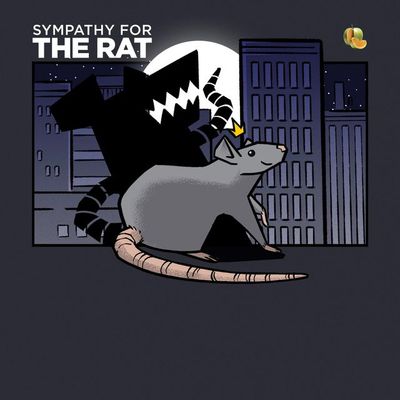
624. The Animal No One Loves, Until They Do
<p>To most people, the rat is vile and villainous. But not to everyone! We hear from a scientist who befriended rats and another who worked with them in the lab — and from the animator who made one the hero of a Pixar blockbuster. (Part three of a <a href="https://freakonomics.com/podcast-tag/sympathy-for-the-rat/" target="_blank">three-part series</a>, “Sympathy for the Rat.”)</p><p> </p><ul><li><strong>SOURCES:</strong><ul><li><a href="https://bethanybrookshire.com/">Bethany Brookshire</a>, author of <i>Pests: How Humans Create Animal Villains</i></li><li><a href="https://www.linkedin.com/in/jan-pinkava-202aa82a/?originalSubdomain=de">Jan Pinkava,</a> creator and co-writer of "Ratatouille," and director of the Animation Institute at the Film Academy Baden-Württemberg.</li><li><a href="https://hunter.cuny.edu/people/julia-marie-zichello/">Julia Zichello,</a> evolutionary biologist at Hunter College.</li></ul></li></ul><p> </p><ul><li><strong>RESOURCES:</strong><ul><li>"<a href="https://www.westsiderag.com/2024/10/05/weekend-column-rats-end-or-how-a-rat-dies">Weekend Column: Rat’s End, or, How a Rat Dies,</a>" by Julia Zichello <i>(West Side Rag,</i> 2024).</li><li><a href="https://amzn.to/4hQ725I"><i>Pests: How Humans Create Animal Villains</i></a><i> </i>by Bethany Brookshire (2022).</li><li>"<a href="https://www.theguardian.com/artanddesign/shortcuts/2015/nov/18/rats-the-history-of-an-incendiary-cartoon-trope">Rats: the history of an incendiary cartoon trope,</a>" by Archie Bland <i>(The Guardian,</i> 2015).</li><li>"<a href="https://brill.com/view/journals/soan/22/1/article-p8_2.xml">Catching the Rat: Understanding Multiple and Contradictory Human-Rat Relations as Situated Practices,</a>" by Koen Beumer <i>(Society & Animals,</i> 2014).</li><li>"<a href="https://wakespace.lib.wfu.edu/bitstream/handle/10339/14812/brookshirebr_04_2010.pdf">Effects of Chronic Methylphenidate on Dopamine/Serotonin Interactions in the Mesolimbic DA System of the Mouse,</a>" by Bethany Brookshire <i>(Wake Forest University,</i> 2010).</li><li>"<a href="https://www.scientificamerican.com/article/a-new-deal-for-mice/">A New Deal For Mice,</a>" by C.C. Little <i>(Scientific American,</i> 1935).</li></ul></li></ul>
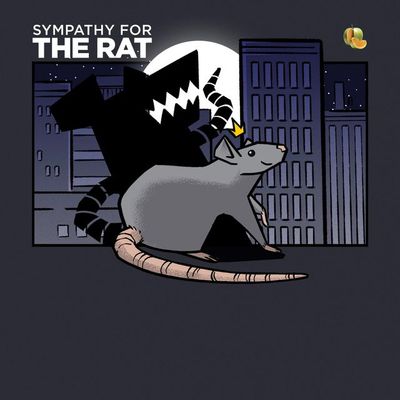
623. Can New York City Win Its War on Rats?
<p>Even with a new rat czar, an arsenal of poisons, and a fleet of new garbage trucks, it won’t be easy — because, at root, the enemy is us. (Part two of <a href="https://freakonomics.com/podcast-tag/sympathy-for-the-rat/">a three-part series</a>, “Sympathy for the Rat.”)</p><p> </p><ul><li><strong>SOURCES:</strong><ul><li><a href="https://www.linkedin.com/in/kathleen-corradi-0678514a/">Kathy Corradi,</a> director of rodent mitigation for New York City.</li><li><a href="https://www.linkedin.com/in/bobby-corrigan-4aa02076/">Robert Corrigan,</a> urban rodentologist and pest consultant for New York City.</li><li><a href="https://scholar.harvard.edu/glaeser/home">Ed Glaeser,</a> professor of economics at Harvard University.</li><li><a href="https://us.macmillan.com/author/robertsullivanhttps://us.macmillan.com/author/robertsullivan">Robert Sullivan,</a> author of <i>Rats: Observations on the History and Habitat of the City’s Most Unwanted Inhabitant.</i></li><li><a href="https://www.nyc.gov/site/nypd/about/leadership/commissioner.page">Jessica Tisch,</a> New York City police commissioner.</li></ul></li></ul><p> </p><ul><li><strong>RESOURCES:</strong><ul><li>"<a href="https://www.science.org/doi/10.1126/sciadv.ads6782">Increasing rat numbers in cities are linked to climate warming, urbanization, and human population,</a>" by Jonathan Richardson, Elizabeth McCoy, Nicholas Parlavecchio, Ryan Szykowny, Eli Beech-Brown, Jan Buijs, Jacqueline Buckley, Robert Corrigan, Federico Costa, Ray Delaney, Rachel Denny, Leah Helms, Wade Lee, Maureen Murray, Claudia Riegel, Fabio Souza, John Ulrich, Adena Why, and Yasushi Kiyokawa <i>(Science Advances,</i> 2025).</li><li>"<a href="https://www.nytimes.com/2024/04/10/nyregion/nyc-rat-contraception-birth-control.html">The Next Frontier in New York's War on Rats: Birth Control,</a>" by Emma Fitzsimmons <i>(New York Times,</i> 2024).</li><li>"<a href="https://www.nytimes.com/interactive/2024/03/02/upshot/nyc-trash-rules.html">The Absurd Problem of New York City Trash,</a>" by Emily Badger and Larry Buchanan <i>(New York Times,</i> 2024).</li><li>"<a href="https://www.newyorker.com/news/our-local-correspondents/mourning-flaco-the-owl-who-escaped">Mourning Flaco, the Owl Who Escaped,</a>" by Naaman Zhou <i>(The New Yorker,</i> 2024).</li><li><a href="https://amzn.to/416Nvas"><i>Rats: Observations on the History & Habitat of the City's Most Unwanted Inhabitants,</i></a><i> </i>by Robert Sullivan (2005).</li></ul></li></ul><p> </p><ul><li><strong>EXTRAS:</strong><ul><li>"<a href="https://freakonomics.com/podcast/the-downside-of-disgust-ep-448/">The Downside of Disgust,</a>" by <i>Freakonomics Radio </i>(2021)</li></ul></li></ul>

The Show That Never Happened
<p>A brief meditation on loss, relativity, and the vagaries of show business.</p><ul><li><strong>RESOURCES:</strong><ul><li><a href="https://tv.apple.com/us/movie/billie-eilish-the-worlds-a-little-blurry/umc.cmc.5waz3hfo9r1133t8arap8b6nq?action=play"><i>Billie Eilish: The World's a Little Blurry,</i></a><i> documentary (2021)</i></li><li><a href="https://amzn.to/3QqHi4k"><i>Genius & Anxiety: How Jews Changed the World, 1847-1947</i></a><i>, by Norman Lebrecht (2019)</i></li><li><a href="https://play.max.com/movie/dea336e8-4feb-4628-93b7-f902380831a9?utm_source=universal_search"><i>The War Room</i></a><i>, documentary (1993)</i></li></ul></li></ul><p> </p><ul><li><strong>EXTRAS:</strong><ul><li>“<a href="https://freakonomics.com/podcast/is-san-francisco-a-failed-state-and-other-questions-you-shouldnt-ask-the-mayor/">Is San Francisco a Failed State? (And Other Questions You Shouldn’t Ask the Mayor)</a>” by <i>Freakonomics Radio </i>(2025)</li><li>“<a href="https://freakonomics.com/podcast/ari-emanuel-is-never-indifferent/">Ari Emanuel Is Never Indifferent,</a>” by <i>Freakonomics Radio </i>(2023)</li></ul></li></ul>
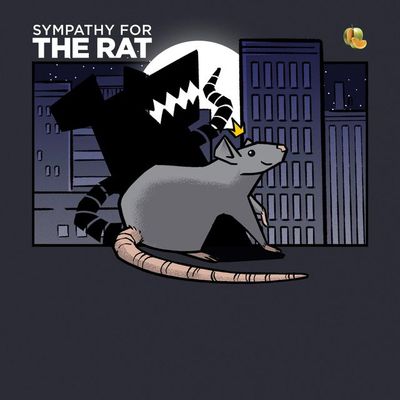
622. Why Does Everyone Hate Rats?
<p>New York City’s mayor calls them “public enemy number one.” History books say they caused the Black Death — although recent scientific evidence disputes that claim. So is the rat a scapegoat? And what does our rat hatred say about us? (Part one of a <a href="https://freakonomics.com/podcast-tag/sympathy-for-the-rat/">three-part series</a>.)</p><p> </p><ul><li><strong>SOURCES:</strong><ul><li><a href="https://bethanybrookshire.com/">Bethany Brookshire</a>, author of <i>Pests: How Humans Create Animal Villains.</i></li><li><a href="https://www.linkedin.com/in/kathleen-corradi-0678514a/">Kathy Corradi</a>, director of rodent mitigation for New York City.</li><li><a href="https://scholar.harvard.edu/glaeser/home">Ed Glaeser</a>, professor of economics at Harvard University.</li><li><a href="https://www.mn.uio.no/english/people/adm/fac/research/nilsst/">Nils Stenseth</a>, professor of ecology and evolution at the University of Oslo.</li></ul></li></ul><p> </p><ul><li><strong>RESOURCES:</strong><ul><li>"<a href="https://nymag.com/intelligencer/article/rat-czar-kathleen-corradi-eric-adams.html">On Patrol With the Rat Czar,</a>" by Mark Chiusano <i>(Intelligencer,</i> 2024).</li><li>"<a href="https://www.scientificamerican.com/article/how-rats-took-over-north-america/">How Rats Took Over North America,</a>" by Allison Parshall <i>(Scientific American,</i> 2024).</li><li>"<a href="https://www.nytimes.com/2024/10/24/realestate/rats-nyc-boroughs-study.html">Where Are the Rats in New York City,</a>" by Matt Yan <i>(New York Times,</i> 2024).</li><li><i>"</i><a href="https://amzn.to/4hQ725I"><i>Pests: How Humans Create Animal Villains</i></a><i>" </i>by Bethany Brookshire (2023).</li><li>"<a href="https://www.pnas.org/doi/10.1073/pnas.1715640115">Human ectoparasites and the spread of plague in Europe during the Second Pandemic,</a>" by Nils Stenseth, Katharine Dean, Fabienne Krauer, Lars Walløe, Ole Christian Lingjærde, Barbara Bramanti, and Boris Schmid <i>(Proceedings of the National Academy of Sciences,</i> 2018).</li></ul></li></ul><p> </p><ul><li><strong>EXTRAS:</strong><ul><li>"<a href="https://freakonomics.com/podcast/freakonomics-radio-live-jesus-could-have-been-a-pigeon/">Freakonomics Radio Live: 'Jesus Could Have Been a Pigeon.'</a>" by <i>Freakonomics Radio </i>(2018).</li></ul></li></ul>

621. Is Professional Licensing a Racket?
<p>Licensing began with medicine and law; now it extends to 20 percent of the U.S. workforce, including hair stylists and auctioneers. In a new book, the legal scholar Rebecca Allensworth calls licensing boards “a thicket of self-dealing and ineptitude” and says they keep bad workers in their jobs and good ones out — while failing to protect the public.</p><p> </p><ul><li><strong>SOURCES:</strong><ul><li><a href="https://law.vanderbilt.edu/bio/?pid=rebecca-allensworth">Rebecca Allensworth</a>, professor of law at Vanderbilt University.</li></ul></li></ul><p> </p><ul><li><strong>RESOURCES:</strong><ul><li>"<a href="https://amzn.to/4hDxlMm"><i>The Licensing Racket: How We Decide Who Is Allowed to Work, and Why It Goes Wrong</i></a>" by Rebecca Allensworth (2025).</li><li>"<a href="https://www.nybooks.com/online/2020/07/21/licensed-to-pill/">Licensed to Pill,</a>" by Rebecca Allensworth <i>(The New York Review of Books,</i> 2020).</li><li>"<a href="https://research.upjohn.org/up_press/18/">Licensing Occupations: Ensuring Quality or Restricting Competition?</a>" by Morris Kleiner <i>(W.E. Upjohn Institute for Employment Research,</i> 2006).</li><li>"<a href="https://onlinelibrary.wiley.com/doi/10.1111/bjir.12470">How Much of Barrier to Entry is Occupational Licensing?</a>" by Peter Blair and Bobby Chung <i>(British Journal of Industrial Relations,</i> 2019).</li></ul></li></ul><p> </p><ul><li><strong>EXTRAS:</strong><ul><li>"<a href="https://freakonomics.com/podcast/is-ozempic-as-magical-as-it-sounds/">Is Ozempic as Magical as It Sounds?</a>" by <i>Freakonomics Radio </i>(2024).</li></ul></li></ul>
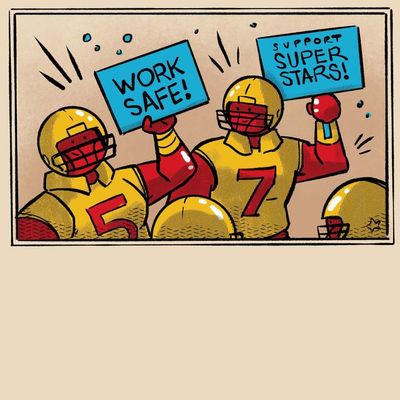
When Is a Superstar Just Another Employee? (Update)
<p>In 2023, the N.F.L. players’ union conducted a workplace survey that revealed clogged showers, rats in the locker room — and some insights for those of us who don’t play football. Today we’re updating that episode, with extra commentary from Omnipresent Football Guy (and former Philadelphia Eagle) Jason Kelce. </p><p> </p><ul><li><strong>SOURCES:</strong><ul><li><a href="https://www.miamidolphins.com/team/front-office-roster/tom-garfinkel">Tom Garfinkel</a>, vice chairman, C.E.O., and president of the Miami Dolphins.</li><li><a href="https://nflpa.com/profile/agent/19607">Jim Ivler</a>, certified contract advisor for players in the National Football League.</li><li><a href="https://www.espn.com/nfl/player/_/id/14124/jason-kelce">Jason Kelce</a>, host of <i>New Heights</i> podcast and former center for the Philadelphia Eagles.</li><li><a href="https://www.detroitlions.com/team/players-roster/jalen-reeves-maybin/">Jalen Reeves-Maybin</a>, linebacker for the Detroit Lions and president of the National Football League Players Association.</li><li><a href="https://fordschool.umich.edu/faculty/betsey-stevenson">Betsey Stevenson</a>, professor of public policy and economics at the University of Michigan.</li><li><a href="https://en.wikipedia.org/wiki/JC_Tretter">J.C. Tretter</a>, former president of the National Football League Players Association and former offensive lineman.</li><li><a href="https://www.vikings.com/team/front-office-roster/mark-wilf">Mark Wilf</a>, owner and president of the Minnesota Vikings.</li></ul></li></ul><p> </p><ul><li><strong>RESOURCES:</strong><ul><li>“<a href="https://nflpa.com/nfl-player-team-report-cards-2024">N.F.L. Player Team Report Cards,</a>” by the National Football League Players Association (2024).</li><li>"<a href="https://www.cbssports.com/nfl/news/nflpa-team-report-cards-dolphins-rank-no-1-jaguars-jump-from-28th-to-fifth-commanders-earn-worst-grade/#:~:text=1%20thing%20they%20want%20changed,the%20start%20of%20training%20camp">NFLPA team report cards: Dolphins rank No. 1; Jaguars jump from 28th to fifth; Commanders earn worst grade,</a>" by Jonathan Jones <i>(CBS Sports,</i> 2024).</li><li><a href="https://amzn.to/3sZL8bZ"><i>Kelce</i></a><i>, </i>documentary (2023).</li><li>“<a href="https://www.si.com/nfl/2022/08/25/jc-tretter-nflpa-president-daily-cover">The N.F.L. Cast Him Out; He Says That Only Makes Him More Powerful</a>,” by Alex Prewitt (<i>Sports Illustrated, </i>2022).</li><li><a href="https://podcasts.apple.com/us/podcast/new-heights-with-jason-and-travis-kelce/id1643745036"><i>New Heights with Jason and Travis Kelce</i></a><i>,</i> (produced by Wave Sports + Entertainment).</li></ul></li></ul><p> </p><ul><li><strong>EXTRAS:</strong><ul><li>"<a href="https://freakonomics.com/podcast/why-dont-running-backs-get-paid-anymore/">Why Don’t Running Backs Get Paid Anymore?</a>" by <i>Freakonomics Radio</i> (2025)</li><li>“<a href="https://freakonomics.com/podcast/how-does-playing-football-affect-your-health/">How Does Playing Football Affect Your Health?</a>” by <i>Freakonomics, M.D. </i>(2023).</li><li>“<a href="https://freakonomics.com/podcast/why-does-the-most-monotonous-job-in-the-world-pay-1-million/">Why Does the Most Monotonous Job in the World Pay $1 Million?</a>” by <i>Freakonomics Radio </i>(2022).</li></ul></li></ul>

620. Why Don’t Running Backs Get Paid Anymore?
<p>They used to be the N.F.L.’s biggest stars, with paychecks to match. Now their salaries are near the bottom, and their careers are shorter than ever. We speak with an analytics guru, an agent, some former running backs (including LeSean McCoy), and the economist Roland Fryer (a former Pop Warner running back himself) to understand why.</p><p> </p><ul><li><strong>SOURCES:</strong><ul><li><a href="https://www.linkedin.com/in/brian-burke-05326354/">Brian Burke,</a> sports data scientist at ESPN</li><li><a href="https://fryer.scholars.harvard.edu/">Roland Fryer,</a> professor of economics at Harvard University</li><li><a href="https://www.foxsports.com/presspass/bios/on-air/lesean-mccoy/">LeSean McCoy,</a> former running back in the N.F.L. and co-host for Fox's daily studio show, "The Facility"</li><li><a href="https://www.foxsports.com/presspass/bios/on-air/robert-smith/">Robert Smith,</a> former running back for the Minnesota Vikings and N.F.L. analyst</li><li><a href="https://www.espn.com/nfl/player/_/id/14894/robert-turbin">Robert Turbin,</a> former running back, N.F.L. analyst for CBS Sports HQ, and college football announcer</li><li><a href="https://www.tsegllc.com/our-team?pgid=ln3hr9f8-69e396f0-25a0-4658-aa4d-91904af25d77">Jeffery Whitney,</a> founder and president at The Sports & Entertainment Group</li></ul></li></ul><p> </p><ul><li><strong>RESOURCES:</strong><ul><li>"<a href="https://www.wsj.com/opinion/the-economics-of-running-backs-football-nfl-salary-43a0fd63">The Economics of Running Backs,</a>" by Roland Fryer <i>(Wall Street Journal,</i> 2024)</li><li><i>"</i><a href="https://amzn.to/4hzu80l"><i>Confessions of a Hero-Worshiper,</i></a><i>" </i>by Stephen Dubner (2007)</li><li>"<i>T</i><a href="https://amzn.to/4ayPN6J"><i>he Rest of the Iceberg: An Insider’s View on the World of Sports and Celebrity,</i></a><i>" </i>by Robert Smith (2004)</li></ul></li></ul><p> </p><ul><li><strong>EXTRAS:</strong><ul><li>"<a href="https://freakonomics.com/podcast/roland-fryer-refuses-to-lie-to-black-america/">Roland Fryer Refuses to Lie to Black America,</a>" by <i>Freakonomics Radio</i> (2022)</li><li>"<a href="https://freakonomics.com/podcast/why-does-the-most-monotonous-job-in-the-world-pay-1-million/">Why Does the Most Monotonous Job in the World Pay $1 Million?</a>" by <i>Freakonomics Radio </i>(2022)</li></ul></li></ul>

619. How to Poison the A.I. Machine
<p>When the computer scientist Ben Zhao learned that artists were having their work stolen by A.I. models, he invented a tool to thwart the machines. He also knows how to foil an eavesdropping Alexa and how to guard your online footprint. The big news, he says, is that the A.I. bubble is bursting.</p><p> </p><ul><li><strong>SOURCES:</strong><ul><li><a href="https://economics.stanford.edu/people/erik-brynjolfsson">Erik Brynjolfsson</a>, professor of economics at Stanford University</li><li><a href="https://people.cs.uchicago.edu/~ravenben/">Ben Zhao</a>, professor of computer science at the University of Chicago</li></ul></li></ul><p> </p><ul><li><strong>RESOURCES:</strong><ul><li>"<a href="https://www.technologyreview.com/2024/11/13/1106837/ai-data-posioning-nightshade-glaze-art-university-of-chicago-exploitation/">The AI lab waging a guerrilla war over exploitative AI,</a>" by Melissa Heikkilä <i>(MIT Technology Review,</i> 2024)</li><li>"<a href="https://arxiv.org/abs/2302.04222">Glaze: Protecting Artists from Style Mimicry by Text-to-Image Models,</a>" by Shawn Shan, Jenna Cryan, Emily Wenger, Haitao Zheng, Rana Hanocka, and Ben Y. Zhao <i>(Cornell University,</i> 2023)</li><li>"<a href="https://arxiv.org/abs/2310.13828">Nightshade: Prompt-Specific Poisoning Attacks on Text-to-Image Generative Models,</a>" by Shawn Shan, Wenxin Ding, Josephine Passananti, Stanley Wu, Haitao Zheng, and Ben Y. Zhao <i>(Cornell University,</i> 2023)</li><li>"<a href="https://a.co/d/eTC9jpQ"><i>A Brief History of Artificial Intelligence: What It Is, Where We Are, and Where We Are Going,</i></a>" by Michael Woodridge (2021)</li></ul></li></ul><p> </p><ul><li><strong>EXTRAS:</strong><ul><li>"<a href="https://freakonomics.com/podcast/nuclear-power-isnt-perfect-is-it-good-enough/">Nuclear Power Isn’t Perfect. Is It Good Enough?</a>" by <i>Freakonomics Radio </i>(2022)</li></ul></li></ul>

Is San Francisco a Failed State? (And Other Questions You Shouldn’t Ask the Mayor)
<p>Stephen Dubner, live on stage, mixes it up with outbound mayor London Breed, and asks economists whether A.I. can be “human-centered” and if Tang is a gateway drug.</p><p> </p><ul><li><strong>SOURCES:</strong><ul><li><a href="https://www.sf.gov/profile--london-breed">London Breed</a>, former mayor of San Francisco.</li><li><a href="https://economics.stanford.edu/people/erik-brynjolfsson">Erik Brynjolfsson</a>, professor of economics at Stanford University</li><li><a href="https://economics.wfu.edu/faculty-and-staff/koleman-strumpf/">Koleman Strumpf</a>, professor of economics at Wake Forest University</li></ul></li></ul><p> </p><ul><li><strong>RESOURCES:</strong><ul><li>"<a href="https://sfstandard.com/2025/01/07/san-francisco-crime-rate-fell-to-23-year-low-in-2024/">SF crime rate at lowest point in more than 20 years, mayor says,</a>" by George Kelly (<i>The San Francisco Standard</i>, 2025)</li><li>"<a href="https://www.wsj.com/politics/elections/how-the-trump-whale-and-prediction-markets-beat-the-pollsters-in-2024-dd11ec4e">How the Trump Whale and Prediction Markets Beat the Pollsters in 2024,</a>" by Niall Ferguson and Manny Rincon-Cruz <i>(Wall Street</i> <i>Journal</i>, 2024)</li><li>"<a href="https://aidantr.github.io/files/AI_innovation.pdf">Artificial Intelligence, Scientific Discovery, and Product Innovation,</a>" by Aidan Toner-Rodgers <i>(MIT Department of Economics,</i> 2024)</li></ul></li></ul><p> </p><ul><li><strong>EXTRAS:</strong><ul><li>"<a href="https://freakonomics.com/podcast/why-are-cities-still-so-expensive-ep-435/">Why Are Cities (Still) So Expensive?</a>" by <i>Freakonomics Radio</i> (2020)</li></ul></li></ul>

618. Are Realtors Having an Existential Crisis?
<p>Their trade organization just lost a huge lawsuit. Their infamous commission model is under attack. And there are way too many of them. If they go the way of travel agents, will we miss them when they’re gone?</p><p> </p><ul><li><strong>SOURCES:</strong><ul><li><a href="https://sites.google.com/site/gilbukh/">Sonia Gilbukh</a>, assistant professor of real estate at CUNY Baruch College.</li><li><a href="https://www.nar.realtor/kevin-sears">Kevin Sears</a>, 2025 president of the National Association of Realtors.</li><li><a href="https://www.chicagobooth.edu/faculty/directory/s/chad-syverson">Chad Syverson</a>, professor of economics at the University of Chicago.</li><li><a href="https://www.nar.realtor/lawrence-yun">Lawrence Yun</a>, chief economist for the National Association of Realtors.</li></ul></li></ul><p> </p><ul><li><strong>RESOURCES:</strong><ul><li>"<a href="https://paulgp.com/papers/Heterogeneous_Real_Estate_Agents_and_the_Housing_Cycle.pdf">Heterogeneous Real Estate Agents and the Housing Cycle</a>," by Sonia Gilbukh and Paul Goldsmith-Pinkham (<i>NBER Working Paper, </i>2024).</li><li>"<a href="https://www.richmondfed.org/-/media/RichmondFedOrg/publications/research/working_papers/2024/wp24-01.pdf">Real Estate Commissions and Homebuying</a>," by Borys Grochulski and Zhu Wang (<i>Federal Reserve Bank of Richmond Working Paper, </i>2024).</li><li>"<a href="https://consumerfed.org/wp-content/uploads/2022/07/Real-Estate-Relationship-between-Home-Prices-and-Commission-Rates-Report-7-18-22.pdf">The Relationship Between Home Prices and Real Estate Commission Rates: Implications for Consumers and Public Policy</a>," by Stephen Brobeck (<i>Consumer Federation of America, </i>2022).</li><li>"<a href="https://consumerfed.org/wp-content/uploads/2021/11/Real-Estate-Commission-Rates-Uniformity-and-Industry-Structure-Report-11-30-21.pdf">The Relationship of Residential Real Estate Commission Rate to Industry Structure and Culture</a>," by Stephen Brobeck (<i>Consumer Federation of America, </i>2021).</li><li>"<a href="https://www.brookings.edu/wp-content/uploads/2019/12/ES-12.12.19-Barwick-Wong.pdf">Competition in the Real Estate Brokerage Industry: A Critical Review</a>," by Panle Jia Barwick and Maisy Wong (<i>Economic Studies at Brookings, </i>2019).</li><li>"<a href="https://consumerfed.org/wp-content/uploads/2019/10/Real-Estate-Commissioner-Report.pdf">Hidden Real Estate Commissions: Consumer Costs and Improved Transparency</a>," by Stephen Brobeck (<i>Consumer Federation of America, </i>2019).</li><li>"<a href="https://www.nber.org/papers/w11053">Market Distortions when Agents are Better Informed: The Value of Information in Real Estate Transactions</a>," by Steven D. Levitt and Chad Syverson (<i>NBER Working Paper, </i>2005).</li><li><a href="https://www.ftc.gov/system/files/ftc_gov/pdf/The-Residential-Real-Estate-Brokerage-Report--Butters-Report.pdf"><i>The Residential Real Estate Brokerage Industry</i></a>, staff report by the Los Angeles Regional Office of the Federal Trade Commission (1983).</li></ul></li></ul>

617. Are You Really Allergic to Penicillin?
<p>Like tens of millions of people, Stephen Dubner thought he had a penicillin allergy. Like the vast majority, he didn’t. This misdiagnosis costs billions of dollars and causes serious health problems, so why hasn’t it been fixed? And how about all the other things we think we’re allergic to?</p><p> </p><ul><li><strong>SOURCES:</strong><ul><li><a href="https://www.massgeneral.org/doctors/20124/kimberly-blumenthal">Kimberly Blumenthal</a>, allergist-immunologist and researcher at Mass General Hospital and Harvard Medical School.</li><li><a href="https://theresamacphail.com/">Theresa MacPhail</a>, associate professor of science and technology studies at Stevens Institute of Technology.</li><li><a href="https://uvahealth.com/findadoctor/Thomas-Platts-Mills-1649395674">Thomas Platts-Mills</a>, professor of medicine at the University of Virginia.</li><li><a href="https://profiles.mountsinai.org/elena-s-resnick">Elena Resnick</a>, allergist and immunologist at Mount Sinai Hospital.</li></ul></li></ul><p> </p><ul><li><strong>RESOURCES:</strong><ul><li><a href="https://amzn.to/4h9Atj2"><i>Allergic: Our Irritated Bodies in a Changing World</i></a><i>, </i>by Theresa MacPhail (2023).</li><li>"<a href="https://jamanetwork.com/journals/jama/article-abstract/2720732">Evaluation and Management of Penicillin Allergy: A Review</a>," by Erica S. Shenoy, Eric Macy, and Theresa Rowe (<i>JAMA, </i>2019).</li><li>"<a href="https://pmc.ncbi.nlm.nih.gov/articles/PMC4617537/">The Allergy Epidemics: 1870–2010</a>," by Thomas Platts-Mills (<i>The Journal of Allergy and Clinical Immunology, </i>2016).</li><li>"<a href="https://www.nejm.org/doi/full/10.1056/NEJMoa1414850">Randomized Trial of Peanut Consumption in Infants at Risk for Peanut Allergy</a>," by George Du Toit, Graham Roberts, et al. (<i>The New England Journal of Medicine, </i>2015).</li></ul></li></ul><p> </p><ul><li><strong>EXTRAS:</strong><ul><li><a href="https://freakonomics.com/series/bapu/"><i>Freakonomics, M.D.</i></a></li></ul></li></ul>

Highway Signs and Prison Labor
<p>Incarcerated people grow crops, fight wildfires, and manufacture everything from prescription glasses to highway signs — often for pennies an hour. Zachary Crockett takes the next exit, in this special episode of <i>The Economics of Everyday Things</i>.</p><p> </p><ul><li><strong>SOURCES:</strong><ul><li><a href="https://www.ali.org/members/member/477358/">Laura Appleman</a>, professor of law at Willamette University.</li><li>Christopher Barnes, inmate at the Franklin Correctional Center.</li><li><a href="https://www.correctionenterprises.com/organization-staff-dps/">Lee Blackman</a>, general manager at Correction Enterprises.</li><li><a href="https://www.kittelson.com/people/gene-hawkins/">Gene Hawkins</a>, senior principal engineer at Kittelson and professor emeritus of civil engineering at Texas A&M University.</li><li>Renee Roach, state signing and delineation engineer for the North Carolina Department of Transportation.</li><li>Brian Scott, ex-inmate, former worker at the Correction Enterprises printing plant.</li><li><a href="https://www.dac.nc.gov/news/press-releases/2023/09/12/louis-southall-named-warden-franklin-correctional-center">Louis Southall</a>, warden of Franklin Correctional Center.</li></ul></li></ul><p> </p><ul><li><strong>RESOURCES:</strong><ul><li>“<a href="https://mutcd.fhwa.dot.gov/pdfs/11th_Edition/mutcd11thedition.pdf">Manual on Uniform Traffic Control Devices for Streets and Highways, 11th Edition</a>,” by the U.S. Department of Transportation Federal Highway Administration (2023).</li><li>“<a href="https://apnews.com/article/prison-to-plate-inmate-labor-investigation-c6f0eb4747963283316e494eadf08c4e#">Prisoners in the U.S. Are Part of a Hidden Workforce Linked to Hundreds of Popular Food Brands</a>,” by Robin McDowell and Margie Mason (<i>AP News, </i>2024).</li><li>“<a href="https://www.nytimes.com/2023/07/06/business/economy/jobs-hiring-after-prison.html">Ex-Prisoners Face Headwinds as Job Seekers, Even as Openings Abound</a>,” by Talmon Joseph Smith (<i>The New York Times, </i>2023).</li><li>“<a href="https://wlr.law.wisc.edu/wp-content/uploads/sites/1263/2022/05/14-Appleman-Camera-Ready.pdf">Bloody Lucre: Carceral Labor and Prison Profit</a>,” by Laura Appleman (<i>Wisconsin Law Review, </i>2022).</li><li>“<a href="https://www.nytimes.com/2007/08/12/magazine/12fonts-t.html">The Road to Clarity</a>,” by Joshua Yaffa (<i>The New York Times Magazine, </i>2007).</li><li><a href="https://www.correctionenterprises.com/">Correction Enterprises</a>.</li></ul></li></ul><p> </p><ul><li><strong>EXTRAS:</strong><ul><li>“<a href="https://freakonomics.com/podcast/do-people-pay-attention-to-signs/">Do People Pay Attention to Signs?</a>” by <i>No Stupid Questions </i>(2022).</li><li><a href="https://freakonomics.com/series/everyday-things/"><i>The Economics of Everyday Things</i></a><i>.</i></li></ul></li></ul>

Can Academic Fraud Be Stopped? (Update)
<p>Probably not — the incentives are too strong. But a few reformers are trying. We check in on their progress, in an update to an episode originally published last year. (Part 2 of 2)</p><p> </p><ul><li><strong>SOURCES:</strong><ul><li><a href="https://www.hbs.edu/faculty/Pages/profile.aspx?facId=6420">Max Bazerman</a>, professor of business administration at Harvard Business School.</li><li><a href="https://haas.berkeley.edu/faculty/nelson-leif/">Leif Nelson</a>, professor of business administration at the University of California, Berkeley Haas School of Business.</li><li><a href="https://www.cos.io/team/brian-nosek">Brian Nosek</a>, professor of psychology at the University of Virginia and executive director at the Center for Open Science.</li><li><a href="https://www.linkedin.com/in/ivanoransky/">Ivan Oransky</a>, distinguished journalist-in-residence at New York University, editor-in-chief of <i>The Transmitter</i>, and co-founder of <i>Retraction Watch.</i></li><li><a href="https://oid.wharton.upenn.edu/profile/jsimmo/">Joseph Simmons</a>, professor of applied statistics and operations, information, and decisions at the Wharton School at the University of Pennsylvania.</li><li><a href="https://www.esade.edu/faculty/uri.simonsohn">Uri Simonsohn</a>, professor of behavioral science at Esade Business School.</li><li><a href="https://www.simine.com/">Simine Vazire</a>, professor of psychology at the University of Melbourne and editor-in-chief of <i>Psychological Science.</i></li></ul></li></ul><p> </p><ul><li><strong>RESOURCES:</strong><ul><li>"<a href="https://www.newyorker.com/news/news-desk/how-a-scientific-dispute-spiralled-into-a-defamation-lawsuit">How a Scientific Dispute Spiralled Into a Defamation Lawsuit</a>," by Gideon Lewis-Kraus (<i>The New Yorker, </i>2024).</li><li>"<a href="https://www.nytimes.com/2023/09/30/business/the-harvard-professor-and-the-bloggers.html">The Harvard Professor and the Bloggers</a>," by Noam Scheiber (<i>The New York Times, </i>2023).</li><li>"<a href="https://www.newyorker.com/magazine/2023/10/09/they-studied-dishonesty-was-their-work-a-lie">They Studied Dishonesty. Was Their Work a Lie?</a>" by Gideon Lewis-Kraus (<i>The New Yorker, </i>2023).</li><li>"<a href="https://www.biorxiv.org/content/10.1101/2023.11.23.568476v1.full.pdf">Evolving Patterns of Extremely Productive Publishing Behavior Across Science</a>," by John P.A. Ioannidis, Thomas A. Collins, and Jeroen Baas (<i>bioRxiv, </i>2023).</li><li>"<a href="https://retractionwatch.com/2023/12/19/hindawi-reveals-process-for-retracting-more-than-8000-paper-mill-articles/">Hindawi Reveals Process for Retracting More Than 8,000 Paper Mill Articles</a>," (<i>Retraction Watch, </i>2023).</li><li>"<a href="https://retractionwatch.com/2019/07/18/exclusive-russian-site-says-it-has-brokered-authorships-for-more-than-10000-researchers/">Exclusive: Russian Site Says It Has Brokered Authorships for More Than 10,000 Researchers</a>," (<i>Retraction Watch, </i>2019).</li><li>"<a href="https://journals.plos.org/plosone/article?id=10.1371/journal.pone.0005738">How Many Scientists Fabricate and Falsify Research? A Systematic Review and Meta-Analysis of Survey Data</a>," by Daniele Fanelli (<i>PLOS One, </i>2009).</li><li><a href="https://www.cos.io/lifecyclejournal"><i>Lifecycle Journal</i></a>.</li></ul></li></ul><p> </p><ul><li><strong>EXTRAS:</strong><ul><li>"<a href="https://freakonomics.com/podcast/why-is-there-so-much-fraud-in-academia-update/">Why Is There So Much Fraud in Academia? (Update)</a>" by <i>Freakonomics Radio </i>(2024).</li><li>"<a href="https://freakonomics.com/podcast/freakonomics-goes-to-college-part-1/">Freakonomics Goes to College, Part 1</a>," by <i>Freakonomics Radio </i>(2012).</li></ul></li></ul>

Why Is There So Much Fraud in Academia? (Update)
<p>Some of the biggest names in behavioral science stand accused of faking their results. Last year, an astonishing 10,000 research papers were retracted. In a series originally published in early 2024, we talk to whistleblowers, reformers, and a co-author who got caught up in the chaos. (Part 1 of 2)</p><p> </p><ul><li><strong>SOURCES:</strong><ul><li><a href="https://www.hbs.edu/faculty/Pages/profile.aspx?facId=6420">Max Bazerman</a>, professor of business administration at Harvard Business School.</li><li><a href="https://haas.berkeley.edu/faculty/nelson-leif/">Leif Nelson</a>, professor of business administration at the University of California, Berkeley Haas School of Business.</li><li><a href="https://www.cos.io/team/brian-nosek">Brian Nosek</a>, professor of psychology at the University of Virginia and executive director at the Center for Open Science.</li><li><a href="https://oid.wharton.upenn.edu/profile/jsimmo/">Joseph Simmons</a>, professor of applied statistics and operations, information, and decisions at the Wharton School at the University of Pennsylvania.</li><li><a href="https://www.esade.edu/faculty/uri.simonsohn">Uri Simonsohn</a>, professor of behavioral science at Esade Business School.</li><li><a href="https://www.simine.com/">Simine Vazire</a>, professor of psychology at the University of Melbourne and editor-in-chief of <i>Psychological Science.</i></li></ul></li></ul><p> </p><ul><li><strong>RESOURCES:</strong><ul><li>"<a href="https://www.nature.com/articles/d41586-023-03974-8">More Than 10,000 Research Papers Were Retracted in 2023 — a New Record</a>," by Richard Van Noorden (<i>Nature, </i>2023).</li><li>"<a href="https://datacolada.org/109">Data Falsificada (Part 1): 'Clusterfake</a>,'" by Joseph Simmons, Leif Nelson, and Uri Simonsohn (<i>Data Colada, </i>2023).</li><li>"<a href="https://www.npr.org/2023/07/27/1190568472/dan-ariely-francesca-gino-harvard-dishonesty-fabricated-data">Fabricated Data in Research About Honesty. You Can't Make This Stuff Up. Or, Can You?</a>" by Nick Fountain, Jeff Guo, Keith Romer, and Emma Peaslee (<i>Planet Money, </i>2023).</li><li><a href="https://amzn.to/48RGBZ7"><i>Complicit: How We Enable the Unethical and How to Stop</i></a><i>, </i>by Max Bazerman (2022).</li><li>"<a href="https://datacolada.org/98">Evidence of Fraud in an Influential Field Experiment About Dishonesty</a>," by Joseph Simmons, Leif Nelson, and Uri Simonsohn (<i>Data Colada, </i>2021).</li><li>"<a href="https://journals.sagepub.com/doi/full/10.1177/0956797611417632">False-Positive Psychology: Undisclosed Flexibility in Data Collection and Analysis Allows Presenting Anything as Significant</a>," by Joseph Simmons, Leif Nelson, and Uri Simonsohn (<i>Psychological Science, </i>2011).</li></ul></li></ul><p> </p><ul><li><strong>EXTRAS:</strong><ul><li>"<a href="https://freakonomics.com/podcast/why-do-we-cheat-and-why-shouldnt-we/">Why Do We Cheat, and Why Shouldn’t We?</a>" by <i>No Stupid Questions </i>(2023).</li><li>"<a href="https://freakonomics.com/podcast/is-everybody-cheating-these-days/">Is Everybody Cheating These Days?</a>" by <i>No Stupid Questions </i>(2021).</li></ul></li></ul>

Your Brain Doesn’t Work the Way You Think
<p>David Eagleman upends myths and describes the vast possibilities of a brainscape that even neuroscientists are only beginning to understand. Steve Levitt interviews him in this special episode of <i>People I (Mostly) Admire.</i></p><p> </p><ul><li><strong>SOURCES:</strong><ul><li><a href="https://eagleman.com/about-david-eagleman/">David Eagleman</a>, professor of cognitive neuroscience at Stanford University and C.E.O. of Neosensory.</li></ul></li></ul><p> </p><ul><li><strong>RESOURCES:</strong><ul><li><a href="https://amzn.to/4hIwZF2"><i>Livewired: The Inside Story of the Ever-Changing Brain</i></a><i>, </i>by David Eagleman (2020).</li><li>"<a href="https://time.com/5925206/why-do-we-dream/">Why Do We Dream? A New Theory on How It Protects Our Brains</a>," by David Eagleman and Don Vaughn (<i>TIME, </i>2020).</li><li>"<a href="https://pmc.ncbi.nlm.nih.gov/articles/PMC4349591/">Prevalence of Learned Grapheme-Color Pairings in a Large Online Sample of Synesthetes</a>," by Nathan Witthoft, Jonathan Winawer, and David Eagleman (<i>PLoS One,</i> 2015).</li><li><a href="https://amzn.to/3YVXVKi"><i>Sum: Forty Tales from the Afterlives</i></a><i>, </i>by David Eagleman (2009).</li><li><a href="https://play.google.com/store/apps/details?id=vOICe.vOICe&hl=en_US&pli=1">The vOICe app</a>.</li><li><a href="https://neosensory.com/">Neosensory</a>.</li></ul></li></ul><p> </p><ul><li><strong>EXTRAS:</strong><ul><li>"<a href="https://freakonomics.com/podcast/feeling-sound-and-hearing-color/">Feeling Sound and Hearing Color</a>," by <i>People I (Mostly) Admire </i>(2024).</li><li>"<a href="https://freakonomics.com/podcast/whats-impacting-american-workers/">What’s Impacting American Workers?</a>" by <i>People I (Mostly) Admire </i>(2024).</li><li>"<a href="https://freakonomics.com/podcast/this-is-your-brain-on-podcasts/">This Is Your Brain on Podcasts</a>," by <i>Freakonomics Radio </i>(2016).</li></ul></li></ul>

616. How to Make Something from Nothing
<p>Adam Moss was the best magazine editor of his generation. When he retired, he took up painting. But he wasn’t very good, and that made him sad. So he wrote a book about how creative people work— and, in the process, he made himself happy again.</p><p> </p><ul><li><strong>SOURCE:</strong><ul><li><a href="https://en.wikipedia.org/wiki/Adam_Moss">Adam Moss</a>, magazine editor and author.</li></ul></li></ul><p> </p><ul><li><strong>RESOURCES:</strong><ul><li><a href="https://amzn.to/4fsnYhd"><i>The Work of Art: How Something Comes from Nothing</i></a><i>, </i>by Adam Moss (2024).</li><li>"<a href="https://www.nytimes.com/2019/01/15/business/media/new-york-magazine-adam-moss-resigns.html">Goodbye, New York. Adam Moss Is Leaving the Magazine He Has Edited for 15 Years</a>," by Michael M. Grynbaum (<i>The New York Times, </i>2019).</li><li><a href="https://amzn.to/3CBWogT"><i>Salt, Fat, Acid, Heat: Mastering the Elements of Good Cooking</i></a><i>, </i>by Samin Nosrat (2017).</li></ul></li></ul><p> </p><ul><li><strong>EXTRAS:</strong><ul><li>"<a href="https://freakonomics.com/podcast/david-simon-is-on-strike-heres-why/">David Simon Is On Strike. Here’s Why</a>," by <i>People I (Mostly) Admire </i>(2023).</li><li>"<a href="https://freakonomics.com/podcast/extra-samin-nosrat-always-wanted-to-be-famous/">Samin Nosrat Always Wanted to Be Famous</a>," by <i>Freakonomics Radio </i>(2023).</li><li>"<a href="https://freakonomics.com/podcast/whats-wrong-with-being-a-one-hit-wonder/">What’s Wrong with Being a One-Hit Wonder?</a>" by <i>Freakonomics Radio </i>(2023).</li></ul></li></ul>
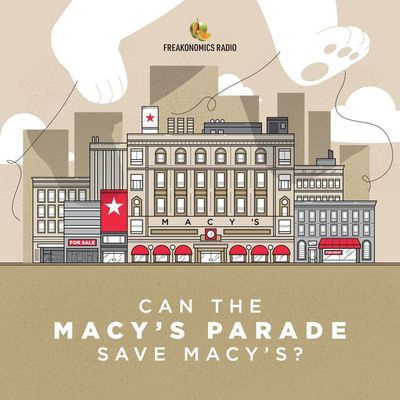
613. Dying Is Easy. Retail Is Hard.
<p>Macy’s wants to recapture its glorious past. The author of the <i>Wimpy Kid </i>books wants to rebuild his dilapidated hometown. We just want to listen in. (Part two of a<a href="https://freakonomics.com/podcast-tag/can-the-macys-parade-save-macys/"> two-part series</a>.)</p><p> </p><ul><li><strong>SOURCES:</strong><ul><li><a href="https://www.linkedin.com/in/mark-cohen-b9886b7/">Mark Cohen</a>, former professor and director of retail studies at Columbia Business School.</li><li><a href="https://www.linkedin.com/in/willcoss/">Will Coss</a>, vice president and executive producer of Macy’s Studios.</li><li><a href="https://wimpykid.com/about-the-author/">Jeff Kinney</a>, author, cartoonist, and owner of An Unlikely Story Bookstore and Café.</li><li><a href="https://macysinc.com/investors/governance/board-of-directors/person-details/default.aspx?ItemId=59e54111-e049-4319-9d8a-260734f6d65a">Tony Spring</a>, chairman and C.E.O. of Macy’s Inc.</li></ul></li></ul><p> </p><ul><li><strong>RESOURCES:</strong><ul><li>"<a href="https://www.nytimes.com/2024/11/25/business/macys-earnings-delay-accounting-error.html">Macy’s Discovers Employee Hid Millions in Delivery Expenses</a>," by Jordyn Holman and Danielle Kaye (<i>The New York Times, </i>2024).</li><li>"<a href="https://www.wsj.com/business/media/nbc-ready-to-pay-triple-to-gobble-up-thanksgiving-parade-broadcast-rights-e18fd95f">NBC Ready to Pay Triple to Gobble Up Thanksgiving Parade Broadcast Rights</a>," by Joe Flint (<i>The Wall Street Journal, </i>2024).</li><li>"<a href="https://www.retaildive.com/news/how-macys-set-out-to-conquer-the-department-store-business-and-lost/608277/">How Macy’s Set Out to Conquer the Department Store Business — and Lost</a>," by Daphne Howland (<i>Retail Dive, </i>2022).</li><li><a href="https://www.anunlikelystory.com/">An Unlikely Story Bookstore and Café</a>.</li></ul></li></ul><p> </p><ul><li><strong>EXTRA:</strong><ul><li>"<a href="https://freakonomics.com/podcast-tag/can-the-macys-parade-save-macys/">Can the Macy's Parade Save Macy's?</a>" series by <i>Freakonomics Radio </i>(2024).</li></ul></li></ul>
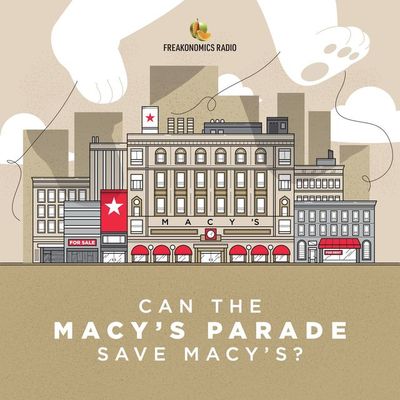
612. Is Macy’s Thanksgiving Parade Its Most Valuable Asset?
<p>The 166-year-old chain, which is fighting extinction, calls the parade its “gift to the nation.” With 30 million TV viewers, it’s also a big moneymaker. At least we think it is — Macy’s is famously tight-lipped about parade economics. We try to loosen them up. (Part one of a<a href="https://freakonomics.com/podcast-tag/can-the-macys-parade-save-macys/"> two-part series</a>.)</p><p>Please take our audience survey at <a href="http://freakonomics.com/survey">freakonomics.com/survey</a>.</p><p> </p><ul><li><strong>SOURCES:</strong><ul><li>John Cheney, carpenter at Macy’s Studios.</li><li><a href="https://www.linkedin.com/in/willcoss/">Will Coss</a>, vice president and executive producer of Macy’s Studios.</li><li><a href="https://wimpykid.com/about-the-author/">Jeff Kinney</a>, author, cartoonist, and owner of An Unlikely Story Bookstore and Café.</li><li><a href="https://www.linkedin.com/in/kevinjlynch23/">Kevin Lynch</a>, vice president of global helium at Messer.</li><li>Jen Neal, executive vice president of live events and specials for NBCUniversal Entertainment</li><li><a href="https://macysinc.com/investors/governance/board-of-directors/person-details/default.aspx?ItemId=59e54111-e049-4319-9d8a-260734f6d65a">Tony Spring</a>, chairman and C.E.O. of Macy's Inc.</li><li><a href="https://www.nyc.gov/office-of-the-mayor/news/847-24/mayor-adams-appoints-jessica-tisch-nypd-commissioner#/0">Jessica Tisch</a>, commissioner of the New York City Department of Sanitation; incoming commissioner of the New York City Police Department.</li><li><a href="https://www.nyc.gov/site/cecm/about/about-the-executive-director.page">Dawn Tolson</a>, executive director of Citywide Event Coordination and Management and the Street Activity Permit Office for the City of New York.</li></ul></li></ul><p> </p><ul><li><strong>RESOURCES:</strong><ul><li><a href="https://amzn.to/40XwtNr"><i>Macy's: The Store. The Star. The Story.</i></a><i>, </i>by Robert M. Grippo (2009).</li><li><a href="https://www.amazon.com/History-1858-1919-Harvard-Studies-Business/dp/0674863704"><i>History of Macy's of New York, 1853-1919: Chapters in the Evolution of the Department Store</i></a>, by Ralph M. Hower (1943).</li><li><a href="https://www.macys.com/s/parade/">Macy's Thanksgiving Day Parade</a>.</li></ul></li></ul><p> </p><ul><li><strong>EXTRA:</strong><ul><li><a href="https://freakonomics.com/series/everyday-things/"><i>The Economics of Everyday Things</i></a><i>. </i></li></ul></li></ul>

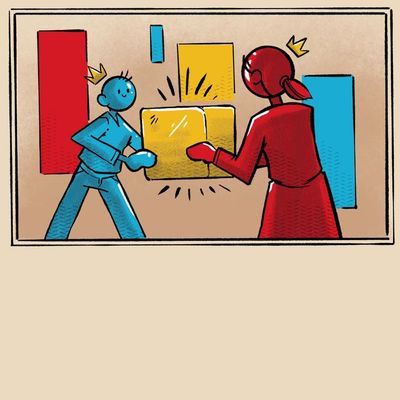
587. Should Companies Be Owned by Their Workers?
<p>The employee ownership movement is growing, and one of its biggest champions is also a private equity heavyweight. Is this meaningful change, or just window dressing?</p><p> </p><ul><li><strong>SOURCES:</strong><ul><li><a href="https://democracycollaborative.org/marjorie-kelly">Marjorie Kelly</a>, distinguished senior fellow at The Democracy Collaborative.</li><li><a href="https://www.nceo.org/NCEO-Speaking-Consulting-Staff/id/53">Corey Rosen</a>, founder and senior staff member of the National Center for Employee Ownership.</li><li><a href="https://www.kkr.com/about/our-people/pete-stavros">Pete Stavros</a>, co-head of Global Private Equity at KKR.</li></ul></li></ul><p> </p><ul><li><strong>RESOURCES:</strong><ul><li>"<a href="https://www.nytimes.com/2024/01/28/business/economy/kkr-private-equity-employee-ownership.html">Private Equity Is Starting to Share With Workers, Without Taking a Financial Hit</a>," by Lydia DePillis (<i>The New York Times, </i>2024).</li><li>"<a href="https://www.youtube.com/watch?v=S0yAK2kiW1M">Private Equity Heavyweight Pushing Employee Ownership</a>," (<i>60 Minutes, </i>2024).</li><li>"<a href="https://www.hbs.edu/faculty/Pages/item.aspx?num=63867">Ownership Works: Scaling a Profitable Social Mission</a>," by Ethan Rouen, Dennis Campbell, and Andrew Robinson (<i>HBS Case Collection, </i>2023).</li><li>"<a href="https://www.nceo.org/article/research-employee-ownership">Research on Employee Ownership</a>," by the National Center for Employee Ownership (2023).</li><li><a href="https://amzn.to/4dvMPRg"><i>Wealth Supremacy: How the Extractive Economy and the Biased Rules of Capitalism Drive Today’s Crises</i></a><i>, </i>by Marjorie Kelly (2023).</li><li>"<a href="https://www.fastcompany.com/90753566/is-private-equity-joining-or-co-opting-the-employee-ownership-movement">Is Private Equity Joining — or Co-Opting—the Employee Ownership Movement?</a>" by Marjorie Kelly and Karen Kahn (<i>Fast Company, </i>2022).</li><li>"<a href="https://hbr.org/1987/09/how-well-is-employee-ownership-working">How Well Is Employee Ownership Working?</a>" by Corey Rosen and Michael Quarrey (<i>Harvard Business Review, </i>1987).</li></ul></li></ul><p> </p><ul><li><strong>EXTRAS:</strong><ul><li>"<a href="https://freakonomics.com/podcast/are-private-equity-firms-plundering-the-u-s-economy/">Are Private Equity Firms Plundering the U.S. Economy?</a>" by <i>Freakonomics Radio </i>(2023).</li><li>"<a href="https://freakonomics.com/podcast/do-you-know-who-owns-your-vet/">Do You Know Who Owns Your Vet?</a>" by <i>Freakonomics Radio </i>(2023).</li><li>"<a href="https://freakonomics.com/podcast/should-you-trust-private-equity-to-take-care-of-your-dog/">Should You Trust Private Equity to Take Care of Your Dog?</a>" by <i>Freakonomics Radio </i>(2023).</li></ul></li></ul>
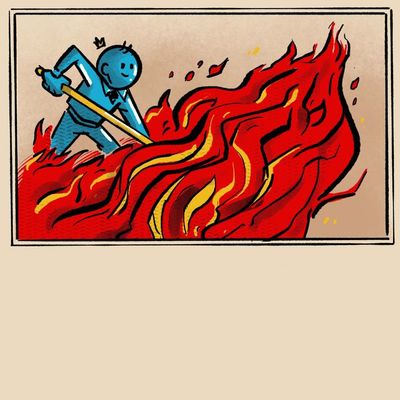
584. How to Pave the Road to Hell
<p>So you want to help people? That’s great — but beware the law of unintended consequences. Three stories from the modern workplace. </p><p> </p><ul><li><strong>SOURCES:</strong><ul><li><a href="https://economics.mit.edu/people/faculty/josh-angrist">Joshua Angrist</a>, professor of economics at the Massachusetts Institute of Technology.</li><li><a href="https://www.hbs.edu/faculty/Pages/profile.aspx?facId=879471">Zoe Cullen</a>, professor of business administration at Harvard Business School.</li><li><a href="https://findanexpert.unimelb.edu.au/profile/955361-marina-gertsberg">Marina Gertsberg</a>, senior lecturer in finance at the University of Melbourne.</li></ul></li></ul><p> </p><ul><li><strong>RESOURCES:</strong><ul><li>"<a href="https://www.aeaweb.org/articles?id=10.1257/jep.38.1.153">Is Pay Transparency Good?</a>" by Zoë Cullen (<i>Journal of Economic Perspectives, </i>2024).</li><li>"<a href="https://cepr.org/publications/dp18969">DP18969 Economics Coauthorships in the Aftermath of MeToo</a>," by Noriko Amano-Patino, Elisa Faraglia, and Chryssi Giannitsarou (<i>CEPR Discussion Paper, </i>2024).</li><li>"<a href="https://www.careerfair.io/company-reviews#intro">The Underground Economy of Company Reviews</a>," by Shikhar Sachdev (<i>Career Fair, </i>2023).</li><li>"<a href="https://www.nber.org/papers/w30821">Why Did Gender Wage Convergence in the United States Stall?</a>" by Peter Q. Blair and Benjamin Posmanick (<i>NBER Working Paper, </i>2023).</li><li>"<a href="https://papers.ssrn.com/sol3/papers.cfm?abstract_id=4105976">The Unintended Consequences of #MeToo: Evidence from Research Collaborations</a>," by Marina Gertsberg (<i>SSRN, </i>2022).</li><li>"<a href="https://www.hbs.edu/faculty/Pages/item.aspx?num=58450">Outsourcing Tasks Online: Matching Supply and Demand on Peer-to-Peer Internet Platforms</a>," by Zoë Cullen and Chiara Farronato (<i>Management Science, </i>2021).</li><li>"<a href="https://zcullen.github.io/assets/docs/w28903_3cf6cf0c-f05e-4665-a638-61986faa4c50.pdf">Equilibrium Effects of Pay Transparency</a>," by Zoe B. Cullen and Bobak Pakzad-Hurson (<i>NBER Working Paper, </i>2021).</li><li>"<a href="https://www.nber.org/papers/w24841">How Much Does Your Boss Make? The Effects of Salary Comparisons</a>," by Zoë Cullen and Ricardo Perez-Truglia (<i>NBER Working Paper, </i>2018).</li><li>"<a href="https://www.bloomberg.com/news/articles/2018-12-03/a-wall-street-rule-for-the-metoo-era-avoid-women-at-all-cost?sref=6DPKmIax">Wall Street Rule for the #MeToo Era: Avoid Women at All Cost</a>," by Gillian Tan and Katia Porzecanski (<i>Bloomberg, </i>2018).</li><li>"<a href="https://www.nber.org/programs-projects/projects-and-centers/retirement-and-disability-research-center/center-papers/drc-nb16-07">A Comprehensive Analysis of the Effects of US Disability Discrimination Laws on the Employment of the Disabled Population</a>," by Patrick Button, Philip Armour, and Simon Hollands (<i>NBER Working Paper, </i>2016).</li><li>"<a href="https://www.jstor.org/stable/10.1086/322836">Consequences of Employment Protection? The Case of the Americans with Disabilities Act</a>," by Daron Acemoglu and Joshua Angrist (<i>Journal of Political Economy, </i>2001).</li></ul></li></ul>
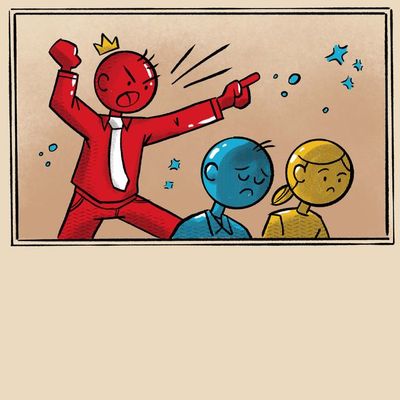
Why Are There So Many Bad Bosses? (Update)
<p>People who are good at their jobs routinely get promoted into bigger jobs they’re bad at. We explain why firms keep producing incompetent managers — and why that’s unlikely to change.</p><p> </p><ul><li><strong>SOURCES:</strong><ul><li><a href="https://nbloom.people.stanford.edu/bio">Nick Bloom</a>, professor of economics at Stanford University.</li><li><a href="https://www.linkedin.com/in/datakatie/">Katie Johnson</a>, freelance data and analytics coach.</li><li><a href="https://som.yale.edu/faculty/kelly-shue">Kelly Shue</a>, professor of finance at the Yale University School of Management.</li><li><a href="https://haas.berkeley.edu/faculty/tadelis-steven/">Steve Tadelis</a>, professor of economics at the University of California, Berkeley Haas School of Business.</li></ul></li></ul><p> </p><ul><li><strong>RESOURCES:</strong><ul><li>“<a href="https://www.journals.uchicago.edu/doi/abs/10.1086/711409">People Management Skills, Employee Attrition, and Manager Rewards: An Empirical Analysis</a>,” by Mitchell Hoffman and Steven Tadelis (<i>Journal of Political Economy,</i> 2021).</li><li>“<a href="https://academic.oup.com/qje/article/134/4/2085/5550760">Promotions and the Peter Principle</a>,” by Alan Benson, Danielle Li, and Kelly Shue (<i>The Quarterly Journal of Economics, </i>2019).</li><li>“<a href="https://wol.iza.org/articles/bosses-matter-the-effects-of-managers-on-workers-performance/long">Bosses Matter: The Effects of Managers on Workers’ Performance</a>,” by Kathryn L. Shaw (IZA World of Labor, 2019).</li><li>“<a href="https://www.journals.uchicago.edu/doi/abs/10.1086/681097">The Value of Bosses</a>,” by Edward P. Lazear, Kathryn L. Shaw, and Christopher T. Stanton (<i>Journal of Labor Economics, </i>2015).</li><li><a href="https://amzn.to/3MltnJp"><i>The Peter Principle: Why Things Always Go Wrong</i></a><i>, </i>by Laurence J. Peter and Raymond Hull (1969).</li></ul></li></ul><p> </p><ul><li><strong>EXTRAS:</strong><ul><li>“<a href="https://freakonomics.com/podcast-tag/the-secret-life-of-c-e-o-s/">The Secret Life of C.E.O.s</a>” series by <i>Freakonomics Radio.</i></li><li>“<a href="https://freakonomics.com/podcast/what-does-a-c-e-o-actually-do/">What Does a C.E.O. Actually Do?</a>” by <i>Freakonomics Radio </i>(2018).</li></ul></li></ul>
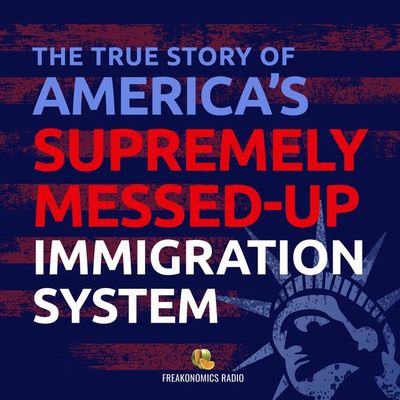
Extra: How Much Do You Know About Immigration?
<p>The political debates over immigration can generate a lot of fuzzy facts. We wanted to test Americans’ knowledge — so, to wrap up our <a href="https://freakonomics.com/podcast-tag/the-true-story-of-americas-supremely-messed-up-immigration-system">special series on immigration</a>, we called some <i>Freakonomics Radio</i> listeners and quizzed them.</p><p> </p><ul><li><strong>SOURCES:</strong><ul><li><a href="http://zekehernandez.net/">Zeke Hernandez</a>, professor at the Wharton School at the University of Pennsylvania.</li></ul></li></ul><p> </p><ul><li><strong>RESOURCES:</strong><ul><li><a href="https://amzn.to/43k5D1s"><i>The Truth About Immigration: Why Successful Societies Welcome Newcomers</i></a><i>, </i>by Zeke Hernandez (2024, available for pre-order).</li></ul></li></ul><p> </p><ul><li><strong>EXTRA:</strong><ul><li>“<a href="https://freakonomics.com/podcast-tag/the-true-story-of-americas-supremely-messed-up-immigration-system/">The True Story of America’s Supremely Messed-Up Immigration System</a>,” series by <i>Freakonomics Radio </i>(2024).</li></ul></li></ul>
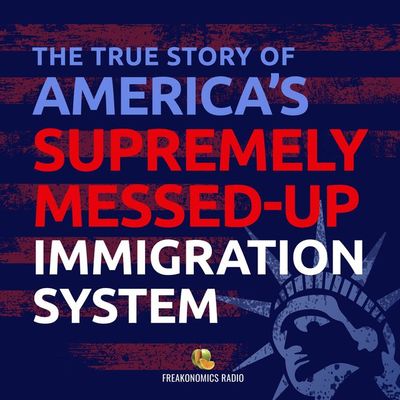
582. Why Is Everyone Moving to Canada?
<p>As the U.S. tries to fix its messy immigration system, our neighbor to the north is scooping up more talented newcomers every year. Are the Canadians stealing America’s bacon? (Part three of <a href="https://freakonomics.com/podcast-tag/the-true-story-of-americas-supremely-messed-up-immigration-system/">a three-part series</a>.)</p><p> </p><ul><li><strong>SOURCES:</strong><ul><li><a href="http://zekehernandez.net/">Zeke Hernandez</a>, professor at the Wharton School at the University of Pennsylvania.</li><li><a href="https://www.hbs.edu/faculty/Pages/profile.aspx?facId=337265">William Kerr</a>, professor of business administration at Harvard Business School.</li><li><a href="https://www.nytimes.com/by/david-leonhardt">David Leonhardt</a>, senior writer at the <i>New York Times</i>.</li><li><a href="https://sindhum.substack.com/">Sindhu Mahadevan</a>, creator of <i>This Immigrant Life </i>newsletter.</li><li><a href="https://www.ourcommons.ca/members/en/marc-miller(88660)">Marc Miller</a>, Member of Parliament and Minister of Immigration, Refugees, and Citizenship of Canada.</li><li><a href="https://observatoirevivreensemble.org/en/mike-savage">Mike Savage</a>, Mayor of Halifax, Nova Scotia.</li></ul></li></ul><p> </p><ul><li><strong>RESOURCES:</strong><ul><li><a href="https://amzn.to/43k5D1s"><i>The Truth About Immigration: Why Successful Societies Welcome Newcomers</i></a><i>, </i>by Zeke Hernandez (2024, available for pre-order).</li><li>"<a href="https://www.nytimes.com/2023/12/06/magazine/us-coast-guard-children-detained.html">The Border Where Different Rules Apply</a>," by Seth Freed Wessler (<i>The New York Times Magazine, </i>2023).</li><li>"<a href="https://www.cbc.ca/news/canada/first-person-feeling-like-a-canadian-1.6717526">Last Year, Canada Became My Home. Feeling Like a Canadian Will Take a Bit Longer</a>," by Sindhu Mahadevan (<i>CBC News, </i>2023).</li><li>"<a href="https://www.economist.com/the-americas/2023/11/02/canadians-are-starting-to-sour-on-migration">Canadians Are Starting to Sour on Migration</a>," (<i>The Economist, </i>2023).</li><li><a href="https://amzn.to/3IQOYZX"><i>The Gift of Global Talent: How Migration Shapes Business, Economy & Society</i></a><i>, </i>by William Kerr (2018).</li></ul></li></ul><p> </p><ul><li><strong>EXTRAS:</strong><ul><li>“<a href="https://freakonomics.com/podcast-tag/the-true-story-of-americas-supremely-messed-up-immigration-system/">The True Story of America’s Supremely Messed-Up Immigration System</a>,” series by <i>Freakonomics Radio </i>(2024).</li><li>"<a href="https://freakonomics.com/podcast/is-the-american-dream-really-dead/">Is the American Dream Really Dead?</a>" by <i>Freakonomics Radio </i>(2017).</li></ul></li></ul>
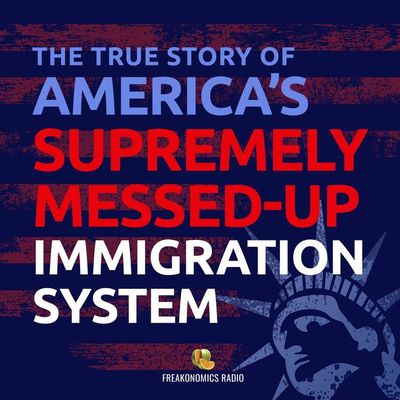
581. What Both Parties Get Wrong About Immigration
<p>The U.S. immigration system is a massively complicated machine, with a lot of worn-out parts. How to fix it? Step one: Get hold of some actual facts and evidence. (We did this step for you.) (Part two of <a href="https://freakonomics.com/podcast-tag/the-true-story-of-americas-supremely-messed-up-immigration-system/">a three-part series</a>.)</p><p> </p><ul><li><strong>SOURCES:</strong><ul><li><a href="http://zekehernandez.net/">Zeke Hernandez</a>, professor at the Wharton School at the University of Pennsylvania.</li><li><a href="https://www.nytimes.com/by/david-leonhardt">David Leonhardt</a>, senior writer at the <i>New York Times</i>.</li><li><a href="https://sindhum.substack.com/">Sindhu Mahadevan</a>, creator of <i>This Immigrant Life </i>newsletter.</li></ul></li></ul><p> </p><ul><li><strong>RESOURCES:</strong><ul><li><a href="https://amzn.to/43k5D1s"><i>The Truth About Immigration: Why Successful Societies Welcome Newcomers</i></a><i>, </i>by Zeke Hernandez (2024, available for pre-order).</li><li>"<a href="https://www.wsj.com/us-news/illegal-immigration-record-border-6db29cad">Illegal Immigration Is a Bigger Problem Than Ever. These Five Charts Explain Why</a>," by Andrew Mollica, Alicia A. Caldwell, Michelle Hackman, and Santiago Pérez (<i>The Wall Street Journal, </i>2023).</li><li><a href="https://amzn.to/4akRYJB"><i>Ours Was the Shining Future: The Story of the American Dream</i></a><i>, </i>by David Leonhardt (2023).</li><li><a href="https://nap.nationalacademies.org/catalog/23550/the-economic-and-fiscal-consequences-of-immigration"><i>The Economic and Fiscal Consequences of Immigration</i></a><i>, </i>by the National Academies of Sciences, Engineering, and Medicine (2017).</li></ul></li></ul><p> </p><ul><li><strong>EXTRAS:</strong><ul><li>“<a href="https://freakonomics.com/podcast-tag/the-true-story-of-americas-supremely-messed-up-immigration-system/">The True Story of America’s Supremely Messed-Up Immigration System</a>,” series by <i>Freakonomics Radio </i>(2024).</li><li>"<a href="https://freakonomics.com/2008/02/and-the-new-six-word-motto-for-the-us-is/">And the New Six-Word Motto for the U.S. Is …</a>," by Stephen Dubner (<i>Freakonomics </i>blog, 2008).</li></ul></li></ul>
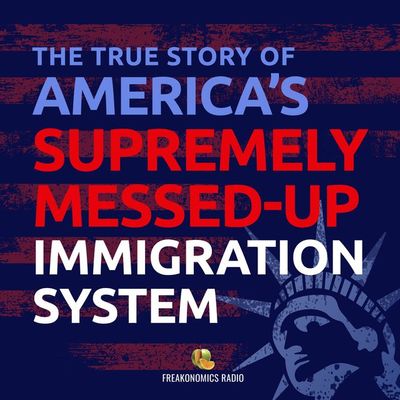
Extra: Madeleine Albright’s Warning on Immigration
<p>She arrived in the U.S. as an 11-year-old refugee, then rose to become Secretary of State. Her views on immigration, nationalism, and borders, from this 2015 interview, are almost strangely appropriate to the present moment. </p><p> </p><ul><li><strong>SOURCE:</strong><ul><li><a href="https://www.britannica.com/biography/Madeleine-Albright">Madeleine Albright</a>, U.S. Secretary of State under President Bill Clinton and former U.S. Ambassador to the United Nations.</li></ul></li></ul><p> </p><ul><li><strong>RESOURCES:</strong><ul><li>"<a href="https://www.nytimes.com/2022/03/23/us/madeleine-albright-dead.html">Madeleine Albright, First Woman to Serve as Secretary of State, Dies at 84</a>," by Robert D. McFadden (<i>The New York Times, </i>2022).</li><li>"<a href="https://www.theatlantic.com/business/archive/2015/10/get-rid-borders-completely/409501/">The Case for Getting Rid of Borders — Completely</a>," by Alex Tabarrok (<i>The Atlantic, </i>2015).</li></ul></li></ul><p> </p><ul><li><strong>EXTRAS:</strong><ul><li>"<a href="https://freakonomics.com/podcast-tag/the-true-story-of-americas-supremely-messed-up-immigration-system/">The True Story of America's Supremely Messed-Up Immigration System</a>," series by <i>Freakonomics Radio </i>(2024).</li><li>"<a href="https://freakonomics.com/podcast/is-migration-a-basic-human-right/">Is Migration a Basic Human Right?</a>" by <i>Freakonomics Radio </i>(2015).</li></ul></li></ul>
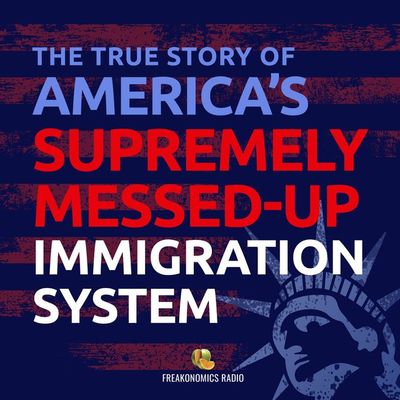
580. The True Story of America’s Supremely Messed-Up Immigration System
<p>How did a nation of immigrants come to hate immigration? We start at the beginning, sort through the evidence, and explain why your grandfather was lying about Ellis Island. (Part one of <a href="https://freakonomics.com/podcast-tag/the-true-story-of-americas-supremely-messed-up-immigration-system/">a three-part series</a>.)</p><p> </p><ul><li><strong>SOURCES:</strong><ul><li><a href="https://lboustan.scholar.princeton.edu/">Leah Boustan</a>, professor of economics at Princeton University.</li><li><a href="http://zekehernandez.net">Zeke Hernandez</a>, professor at the Wharton School at the University of Pennsylvania.</li><li><a href="https://candler.emory.edu/faculty-profiles/roger-s-nam/">Roger Nam</a>, professor of Hebrew Bible at Emory University.</li></ul></li></ul><p> </p><ul><li><strong>RESOURCES:</strong><ul><li><a href="https://amzn.to/43k5D1s"><i>The Truth About Immigration: Why Successful Societies Welcome Newcomers</i></a><i>,</i> by Zeke Hernandez (2024, available for pre-order).</li><li>"<a href="https://www.nber.org/papers/w31730">The Refugee Advantage: English-Language Attainment in the Early Twentieth Century</a>," by Ran Abramitzky, Leah Platt Boustan, Peter Catron, Dylan Connor, and Rob Voigt (<i>NBER Working Paper,</i> 2023).</li><li><a href="https://amzn.to/48XSwE6"><i>Streets of Gold: America's Untold Story of Immigrant Success</i></a><i>,</i> by Leah Boustan and Ran Abramitzky (2022).</li><li>"<a href="https://www.theatlantic.com/magazine/archive/2019/04/david-frum-how-much-immigration-is-too-much/583252/">If Liberals Won't Enforce Borders, Fascists Will</a>," by David Frum (<i>The Atlantic,</i> 2019).</li></ul></li></ul><p> </p><ul><li><strong>EXTRAS:</strong><ul><li>"<a href="https://freakonomics.com/podcast/is-migration-a-basic-human-right/">Is Migration a Basic Human Right?</a>" by <i>Freakonomics Radio</i> (2015).</li><li>"<a href="https://freakonomics.com/podcast/who-are-the-most-successful-immigrants-in-the-world/">Who Are the Most Successful Immigrants in the World?</a>" by <i>Freakonomics Radio</i> (2013).</li></ul></li></ul>
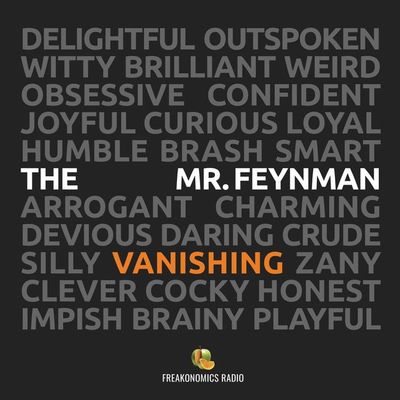
Extra: Mr. Feynman Takes a Trip — But Doesn’t Fall
<p>A wide-open conversation with three women who guided Richard Feynman through some big adventures at the Esalen Institute. (Part of <a href="https://freakonomics.com/podcast-tag/richard-feynman/">our Feynman series</a>.)</p><p> </p><ul><li><strong>SOURCES: </strong><ul><li>Barbara Berg, friend of Richard Feynman.</li><li>Cheryl Haley, friend of Richard Feynman.</li><li>Debby Harlow, friend of Richard Feynma</li><li>Sam Stern, content creator at the Esalen Institute.</li></ul></li></ul><p> </p><ul><li><strong>EXTRAS: </strong><ul><li><a href="https://freakonomics.com/podcast-tag/richard-feynman/">Richard Feynman Series</a>, by <i>Freakonomics Radio</i> (2024).</li><li>"<a href="https://freakonomics.com/podcast/the-future-of-therapy-is-psychedelic/">The Future of Therapy Is Psychedelic</a>," by <i>People I (Mostly) Admire</i> (2023).</li></ul></li></ul>
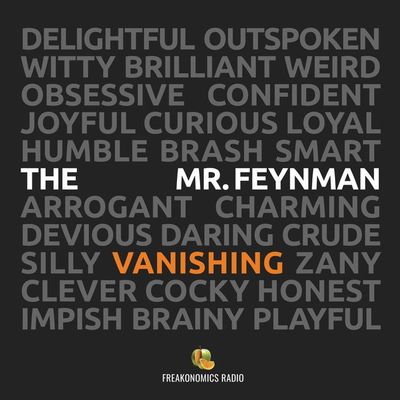
The Vanishing Mr. Feynman
<p>In his final years, Richard Feynman's curiosity took him to some surprising places. We hear from his companions on the trips he took — and one he wasn’t able to. (Part three of <a href="https://freakonomics.com/podcast-tag/richard-feynman/">a three-part series</a>.)</p><p> </p><ul><li><strong>SOURCES: </strong><ul><li><a href="https://www.alanalda.com/">Alan Alda</a>, actor and screenwriter.</li><li>Barbara Berg, friend of Richard Feynman.</li><li><a href="https://www.helenczerski.net/about-helen">Helen Czerski</a>, physicist and oceanographer at University College London.</li><li><a href="http://www.tedxcaltech.com/content/michelle-feynman.html">Michelle Feynman</a>, photographer and daughter of Richard Feynman.</li><li>Cheryl Haley, friend of Richard Feynman.</li><li>Debby Harlow, friend of Richard Feynman.</li><li><a href="https://bookshop.org/search?keywords=Ralph+Leighton">Ralph Leighton</a>, biographer and film producer.</li><li><a href="https://www.penguinrandomhouse.com/authors/60291/charles-c-mann/">Charles Mann</a>, science journalist and author.</li><li><a href="http://theory.caltech.edu/~preskill/bio.html">John Preskill</a>, professor of theoretical physics at the California Institute of Technology.</li><li><a href="https://www.physics.harvard.edu/people/facpages/randall">Lisa Randall</a>, professor of theoretical particle physics and cosmology at Harvard University.</li><li><a href="https://www.imdb.com/name/nm0843051/bio/?ref_=nm_ov_bio_sm">Christopher Sykes</a>, documentary filmmaker.</li><li><a href="https://www.stephenwolfram.com/">Stephen Wolfram</a>, founder and C.E.O. of Wolfram Research; creator of Mathematica, Wolfram|Alpha, and the Wolfram Language.</li></ul></li></ul><p> </p><ul><li><strong>RESOURCES: </strong><ul><li><a href="https://www.youtube.com/watch?v=pd9M-d0fD5I"><i>I Love My Wife...</i></a><i>, </i>directed by Ian Tierney (2020).</li><li><a href="https://amzn.to/4bwHhVC"><i>Quantum Man: Richard Feynman's Life in Science</i></a><i>, </i>by Lawrence M. Krauss (2011).</li><li><a href="https://amzn.to/3SGq3Ov"><i>Perfectly Reasonable Deviations From the Beaten Track: Selected Letters of Richard P. Feynman</i></a><i>, </i>edited by Michelle Feynman (2005).</li><li><a href="https://amzn.to/3vZ1nI0"><i>The Pleasure of Finding Things Out</i></a><i>, </i>by Richard Feynman (1999).</li><li><a href="https://www.amazon.com/Demon-Haunted-World-Science-Candle-Dark/dp/0345409469"><i>The Demon-Haunted World: Science as a Candle in the Dark</i></a>, by Carl Sagan and Ann Druyan (1995).</li><li><a href="https://amzn.to/3UtXMf0"><i>Genius: The Life and Science of Richard Feynman</i></a><i>, </i>by James Gleick (1992).</li><li><a href="https://www.youtube.com/watch?v=Qeauwu2uIwM"><i>The Quest for Tannu Tuva</i></a>, by Christopher Sykes (1988)</li><li><a href="https://bookshop.org/p/books/what-do-you-care-what-other-people-think-further-adventures-of-a-curious-character-richard-p-feynman/10049716?ean=9780393355642"><i>“What Do You Care What Other People Think?” </i></a>by Richard Feynman and Ralph Leighton (1988).</li><li><a href="https://amzn.to/48dJ933"><i>The Second Creation: Makers of the Revolution in Twentieth-century Physics</i></a><i>, </i>by Robert Crease and Charles Mann (1986).</li><li><a href="https://bookshop.org/p/books/surely-you-re-joking-mr-feynman-adventures-of-a-curious-character-richard-p-feynman/8737624?ean=9780393355628"><i>Surely You're Joking, Mr. Feynman!</i></a><i>, </i>by Richard Feynman and Ralph Leighton (1985).</li><li><a href="https://www.imdb.com/title/tt1118155/"><i>Fun to Imagine</i></a>, BBC docuseries (1983).</li></ul></li></ul><p> </p><ul><li><strong>EXTRAS: </strong><ul><li>“<a href="https://freakonomics.com/the-curious-brilliant-vanishing-mr-feynman/">The Curious, Brilliant, Vanishing Mr. Feynman</a>,” series by <i>Freakonomics Radio</i> (2024).</li></ul></li></ul>
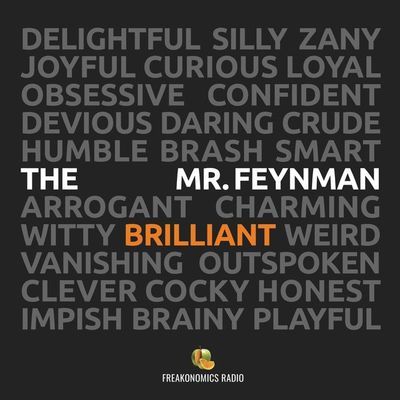
The Brilliant Mr. Feynman
<p>What happens when an existentially depressed and recently widowed young physicist from Queens gets a fresh start in California? We follow Richard Feynman out west, to explore his long and extremely fruitful second act. (Part two of <a href="https://freakonomics.com/podcast-tag/richard-feynman/">a three-part series</a>.)</p><p> </p><ul><li><strong>SOURCES:</strong><ul><li><a href="https://en.wikipedia.org/wiki/Seamus_Blackley">Seamus Blackley</a>, video game designer and creator of the Xbox.</li><li><a href="https://independent.academia.edu/CarlFeynman">Carl Feynman</a>, computer scientist and son of Richard Feynman.</li><li><a href="http://www.tedxcaltech.com/content/michelle-feynman.html">Michelle Feynman</a>, photographer and daughter of Richard Feynman.</li><li><a href="https://bookshop.org/search?keywords=Ralph+Leighton">Ralph Leighton</a>, biographer and film producer.</li><li><a href="https://www.penguinrandomhouse.com/authors/60291/charles-c-mann/">Charles Mann</a>, science journalist and author.</li><li><a href="http://theory.caltech.edu/~preskill/bio.html">John Preskill</a>, professor of theoretical physics at the California Institute of Technology.</li><li><a href="https://www.physics.harvard.edu/people/facpages/randall">Lisa Randall</a>, professor of theoretical particle physics and cosmology at Harvard University.</li><li><a href="https://www.imdb.com/name/nm0843051/bio/?ref_=nm_ov_bio_sm">Christopher Sykes</a>, documentary filmmaker.</li><li><a href="https://www.stephenwolfram.com/">Stephen Wolfram</a>, founder and C.E.O. of Wolfram Research; creator of Mathematica, Wolfram|Alpha, and the Wolfram Language.</li><li><a href="https://www.linkedin.com/in/alan-zorthian-0b122675/">Alan Zorthian</a>, architect.</li></ul></li></ul><p> </p><ul><li><strong>RESOURCES:</strong><ul><li>"<a href="https://www.themarginalian.org/2017/10/17/richard-feynman-arline-letter/">Love After Life: Nobel-Winning Physicist Richard Feynman’s Extraordinary Letter to His Departed Wife</a>," by Maria Popova (<i>The Marginalian, </i>2017).</li><li><a href="https://amzn.to/4bwHhVC"><i>Quantum Man: Richard Feynman's Life in Science</i></a><i>, </i>by Lawrence M. Krauss (2011).</li><li><a href="https://amzn.to/3vZ1nI0"><i>The Pleasure of Finding Things Out</i></a><i>, </i>by Richard Feynman (1999).</li><li><a href="https://amzn.to/3UtXMf0"><i>Genius: The Life and Science of Richard Feynman</i></a><i>, </i>by James Gleick (1992).</li><li>"<a href="https://www.latimes.com/archives/la-xpm-1990-01-03-mn-8-story.html">G. Feynman; Landscape Expert, Physicist’s Widow</a>," (<i>Los Angeles Times, </i>1990).</li><li>"<a href="https://www.latimes.com/archives/la-xpm-1988-02-16-mn-42968-story.html">Nobel Physicist R. P. Feynman of Caltech Dies</a>," by Lee Dye (<i>Los Angeles Times, </i>1988).</li><li><a href="https://amzn.to/48dJ933"><i>The Second Creation: Makers of the Revolution in Twentieth-century Physics</i></a><i>, </i>by Robert Crease and Charles Mann (1986).</li><li><a href="https://bookshop.org/p/books/surely-you-re-joking-mr-feynman-adventures-of-a-curious-character-richard-p-feynman/8737624?ean=9780393355628"><i>Surely You're Joking, Mr. Feynman!</i></a><i>, </i>by Richard Feynman and Ralph Leighton (1985).</li><li><a href="https://www.imdb.com/title/tt1118155/"><i>Fun to Imagine</i></a>, BBC docuseries (1983).</li><li>"<a href="https://calteches.library.caltech.edu/2398/1/Nobel.pdf">Richard P. Feynman: Nobel Prize Winner</a>," by Tim Hendrickson, Stuart Galley, and Fred Lamb (<i>Engineering and Science, </i>1965).</li><li><a href="https://www.muckrock.com/foi/united-states-of-america-10/fbi-files-on-richard-feynman-1165/#file-4617">F.B.I. files on Richard Feynman</a>.</li></ul></li></ul><p> </p><ul><li><strong>EXTRAS:</strong><ul><li>"<a href="https://freakonomics.com/podcast/the-curious-mr-feynman/">The Curious Mr. Feynman</a>," by <i>Freakonomics Radio </i>(2024).</li></ul></li></ul>
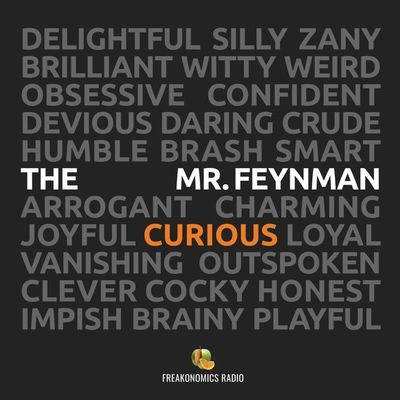
The Curious Mr. Feynman
<p>From the Manhattan Project to the Challenger investigation, the physicist Richard Feynman loved to shoot down what he called “lousy ideas.” Today, the world is awash in lousy ideas — so maybe it’s time to get some more Feynman in our lives? (Part one of a three-part series.)</p><p> </p><ul><li><strong>SOURCES:</strong><ul><li><a href="https://www.helenczerski.net/about-helen">Helen Czerski</a>, physicist and oceanographer at University College London.</li><li><a href="http://www.tedxcaltech.com/content/michelle-feynman.html">Michelle Feynman</a>, photographer and daughter of Richard Feynman.</li><li><a href="https://bookshop.org/search?keywords=Ralph+Leighton">Ralph Leighton</a>, biographer and film producer.</li><li><a href="https://www.penguinrandomhouse.com/authors/60291/charles-c-mann/">Charles Mann</a>, science journalist and author.</li><li><a href="http://theory.caltech.edu/~preskill/bio.html">John Preskill</a>, professor of theoretical physics at the California Institute of Technology.</li><li><a href="https://www.stephenwolfram.com/">Stephen Wolfram</a>, founder and C.E.O. of Wolfram Research; creator of Mathematica, Wolfram|Alpha, and the Wolfram Language.</li></ul></li></ul><p> </p><ul><li><strong>RESOURCES:</strong><ul><li>"<a href="https://lithub.com/how-legendary-physicist-richard-feynman-helped-crack-the-case-on-the-challenger-disaster/">How Legendary Physicist Richard Feynman Helped Crack the Case on the Challenger Disaster</a>," by Kevin Cook (<i>Literary Hub, </i>2021).</li><li><a href="https://www.netflix.com/watch/81012174?trackId=255824129&tctx=0%2C0%2Cd665a67a-45cf-47bf-9dd7-d2309dc5b791-416051258%2Cd665a67a-45cf-47bf-9dd7-d2309dc5b791-416051258%7C2%2Cunknown%2C%2C%2CtitlesResults%2C81012137%2CVideo%3A81012174%2CdetailsPageEpisodePlayButton"><i>Challenger: The Final Flight</i></a>, docuseries (2020).</li><li><a href="https://amzn.to/3SGq3Ov"><i>Perfectly Reasonable Deviations From the Beaten Track: Selected Letters of Richard P. Feynman</i></a><i>, </i>edited by Michelle Feynman (2005).</li><li><a href="https://amzn.to/3vZ1nI0"><i>The Pleasure of Finding Things Out</i></a><i>, </i>by Richard Feynman (1999).</li><li><a href="https://amzn.to/3UtXMf0"><i>Genius: The Life and Science of Richard Feynman</i></a><i>, </i>by James Gleick (1992).</li><li><a href="https://bookshop.org/p/books/what-do-you-care-what-other-people-think-further-adventures-of-a-curious-character-richard-p-feynman/10049716?ean=9780393355642"><i>“What Do You Care What Other People Think?” </i></a>by Richard Feynman and Ralph Leighton (1988).</li><li>"<a href="https://calteches.library.caltech.edu/3570/1/Feynman.pdf">Mr. Feynman Goes to Washington</a>," by Richard Feynman and Ralph Leighton <i>(Engineering & Science,</i> 1987).</li><li><a href="https://amzn.to/48dJ933"><i>The Second Creation: Makers of the Revolution in Twentieth-century Physics</i></a><i>, </i>by Robert Crease and Charles Mann (1986).</li><li><a href="https://bookshop.org/p/books/surely-you-re-joking-mr-feynman-adventures-of-a-curious-character-richard-p-feynman/8737624?ean=9780393355628"><i>Surely You're Joking, Mr. Feynman!</i></a><i>, </i>by Richard Feynman and Ralph Leighton (1985).</li><li>"<a href="https://www.imdb.com/title/tt1024912/">The Pleasure of Finding Things Out</a>," (<i>Horizon</i> S18.E9, 1981).</li><li>"<a href="https://www.youtube.com/watch?v=uY-u1qyRM5w">Los Alamos From Below</a>," by Richard Feynman (UC Santa Barbara lecture, 1975).</li><li>"<a href="https://www.youtube.com/watch?v=GNhlNSLQAFE">The World from Another Point of View</a>," (<i>PBS Nova, </i>1973).</li></ul></li></ul><p> </p><ul><li><strong>EXTRAS:</strong><ul><li>"<a href="https://freakonomics.com/podcast/exploring-physics-from-eggshells-to-oceans/">Exploring Physics, from Eggshells to Oceans</a>," by <i>People I (Mostly) Admire </i>(2023).</li></ul></li></ul>
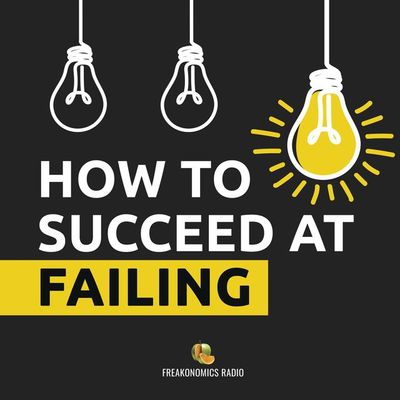
564. How to Succeed at Failing, Part 4: Extreme Resiliency
<p>Everyone makes mistakes. How do you learn from them? Lessons from the classroom, the Air Force, and the world’s deadliest infectious disease.</p><p> </p><p>RESOURCES:</p><ul><li><a href="https://amzn.to/45mpkoA"><i>Right Kind of Wrong: The Science of Failing Well</i></a><i>, </i>by Amy Edmondson (2023).</li><li>"<a href="https://journals.sagepub.com/doi/abs/10.1177/17456916211059817">You Think Failure Is Hard? So Is Learning From It</a>," by Lauren Eskreis-Winkler and Ayelet Fishbach (<i>Perspectives on Psychological Science, </i>2022).</li><li>"<a href="https://papers.ssrn.com/sol3/papers.cfm?abstract_id=1547268">The Market for R&D Failures</a>," by Manuel Trajtenberg and Roy Shalem (<i>SSRN, </i>2010).</li><li>"<a href="https://cltr.nl/wp-content/uploads/2020/11/Project-Pre-Mortem-HBR-Gary-Klein.pdf">Performing a Project <i>Pre</i>mortem</a>," by Gary Klein (<i>Harvard Business Review, </i>2007).</li></ul><p>EXTRAS:</p><ul><li>“<a href="https://freakonomics.com/podcast-tag/how-to-succeed-at-failing/">How to Succeed at Failing</a>,” series by <i>Freakonomics Radio </i>(2023).</li><li>"<a href="https://freakonomics.com/podcast/moncef-slaoui-its-unfortunate-that-it-takes-a-crisis-for-this-to-happen/">Moncef Slaoui: 'It’s Unfortunate That It Takes a Crisis for This to Happen</a>,'" by <i>People I (Mostly) Admire </i>(2020).</li></ul><p>SOURCES:</p><ul><li><a href="https://www.linkedin.com/in/will-coleman/">Will Coleman</a>, founder and C.E.O. of Alto.</li><li><a href="https://www.hbs.edu/faculty/Pages/profile.aspx?facId=6451">Amy Edmondson</a>, professor of leadership management at Harvard Business School.</li><li><a href="https://tb.ucsf.edu/people/babak-javid-mb-phd">Babak Javid</a>, physician-scientist and associate director of the University of California, San Francisco Center for Tuberculosis.</li><li><a href="https://www.gary-klein.com/welcome">Gary Klein</a>, cognitive psychologist and pioneer in the field of naturalistic decision making.</li><li><a href="https://theresamacphail.com/">Theresa MacPhail</a>, medical anthropologist and associate professor of science & technology studies at the Stevens Institute of Technology.</li><li><a href="https://english.tau.ac.il/profile/shalemro">Roy Shalem</a>, lecturer at Tel Aviv University.</li><li><a href="https://samuelwest.org/">Samuel West</a>, curator and founder of The Museum of Failure.</li></ul>
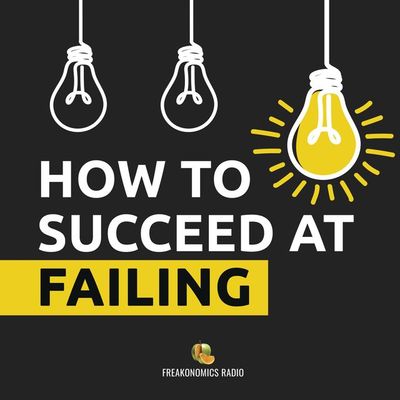
563. How to Succeed at Failing, Part 3: Grit vs. Quit
<p>Giving up can be painful. That's why we need to talk about it. Today: stories about glitchy apps, leaky paint cans, broken sculptures — and a quest for the perfect bowl of ramen. </p><p> </p><p>RESOURCES</p><ul><li>"<a href="https://www.aaup.org/sites/default/files/AAUP%20Data%20Snapshot.pdf">Data Snapshot: Tenure and Contingency in US Higher Education</a>," by Glenn Colby (<i>American Association of University Professors</i>, 2023).</li><li><a href="https://amzn.to/3SejjaI"><i>Grit: The Power of Passion and Perseverance</i></a><i>, </i>by Angela Duckworth (2016).</li><li>"<a href="https://www.bls.gov/bdm/entrepreneurship/bdm_chart3.htm">Entrepreneurship and the U.S. Economy</a>," by the U.S. Bureau of Labor Statistics (2016).</li><li>"<a href="https://www.nature.com/articles/nj7322-467a">A CV of Failures</a>," by Melanie Stefan (<i>Nature, </i>2010).</li></ul><p>EXTRAS</p><ul><li>“<a href="https://freakonomics.com/podcast-tag/how-to-succeed-at-failing/">How to Succeed at Failing</a>,” series by <i>Freakonomics Radio </i>(2023).</li><li>"<a href="https://freakonomics.com/podcast/annie-duke-thinks-you-should-quit/">Annie Duke Thinks You Should Quit</a>," by <i>People I (Mostly) Admire </i>(2022).</li><li>"<a href="https://freakonomics.com/podcast/how-do-you-know-when-its-time-to-quit-nsq-ep-29/">How Do You Know When It’s Time to Quit?</a>" by <i>No Stupid Questions </i>(2020).</li><li>“<a href="https://freakonomics.com/podcast/honey-i-grew-the-economy/">Honey, I Grew the Economy,</a>” by <i>Freakonomics Radio </i>(2019).</li><li>“<a href="https://freakonomics.com/podcast/the-upside-of-quitting-3/">The Upside of Quitting</a>," by <i>Freakonomics Radio </i>(2011).</li><li>"<a href="https://www.kickstarter.com/projects/1644339685/the-ramen-now-rapid-desktop-cooking-for-delicious-meals?ref=discovery&term=ramen%20now">The Ramen Now - Rapid Desktop Cooking for Delicious Meals</a>," Kickstarter campaign by Travis Thul.</li></ul><p>SOURCES:</p><ul><li><a href="https://applegatellc.com/john/">John Boykin</a>, website designer and failed paint can re-inventor.</li><li><a href="https://angeladuckworth.com/">Angela Duckworth</a>, host of <i>No Stupid Questions</i>, co-founder of Character Lab, and professor of psychology at the University of Pennsylvania.</li><li><a href="https://www.hbs.edu/faculty/Pages/profile.aspx?facId=6451">Amy Edmondson</a>, professor of leadership management at Harvard Business School.</li><li><a href="https://helenfisher.com/">Helen Fisher</a>, senior research fellow at The Kinsey Institute and chief science advisor to Match.com.</li><li><a href="https://evhippel.mit.edu/">Eric von Hippel,</a> professor of technological innovation at M.I.T.’s Sloan School of Management.</li><li><a href="https://www.linkedin.com/in/jillrutanhoffman/">Jill Hoffman</a>, founder and C.E.O. of Path 2 Flight.</li><li><a href="https://www.gary-klein.com/welcome">Gary Klein</a>, cognitive psychologist and pioneer in the field of naturalistic decision making.</li><li><a href="https://freakonomics.com/about/the-hosts/#:~:text=New%20York%20City.-,STEVEN%20D.%20LEVITT,-Steve%20is%20the">Steve Levitt</a>, host of <i>People I (Mostly) Admire</i>, co-author of the <i>Freakonomics</i> books, and professor of economics at the University of Chicago.</li><li><a href="https://www.josephoconnell.art/">Joseph O’Connell</a>, artist.</li><li><a href="https://www.linkedin.com/in/mike-ridgeman-211428248">Mike Ridgeman</a>, advocacy manager at Trek Bicycles and former professor.</li><li><a href="http://melaniestefan.net/">Melanie Stefan</a>, professor of physiology at Medical School Berlin.</li><li><a href="https://cse.umn.edu/tli/travis-thul-d-eng-pe">Travis Thul</a>, director of operations and senior fellow at the University of Minnesota Technological Leadership Institute.</li></ul>
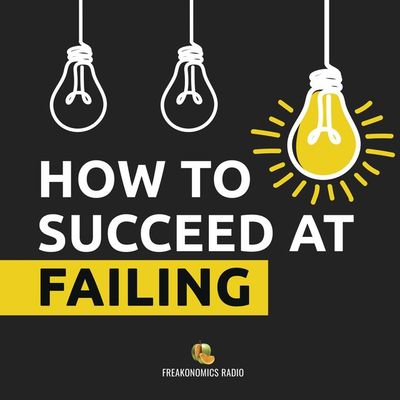
562. How to Succeed at Failing, Part 2: Life and Death
<p>In medicine, failure can be catastrophic. It can also produce discoveries that save millions of lives. Tales from the front line, the lab, and the I.T. department.</p><p> </p><p>RESOURCES:</p><ul><li><a href="https://amzn.to/45mpkoA"><i>Right Kind of Wrong: The Science of Failing Well</i></a><i>, </i>by Amy Edmondson (2023).</li><li>"<a href="https://www.ncbi.nlm.nih.gov/pmc/articles/PMC9724400/">Reconsidering the Application of Systems Thinking in Healthcare: The RaDonda Vaught Case</a>," by Connor Lusk, Elise DeForest, Gabriel Segarra, David M. Neyens, James H. Abernathy III, and Ken Catchpole (<i>British Journal of Anaesthesia, </i>2022).</li><li>"<a href="https://papers.ssrn.com/sol3/papers.cfm?abstract_id=2776873">Dispelling the Myth That Organizations Learn From Failure</a>," by Jeffrey Ray (<i>SSRN, </i>2016).</li><li>"<a href="https://journals.lww.com/journalpatientsafety/Fulltext/2013/09000/A_New,_Evidence_based_Estimate_of_Patient_Harms.2.aspx">A New, Evidence-Based Estimate of Patient Harms Associated With Hospital Care</a>," by John T. James (<i>Journal of Patient Safety, </i>2013).</li><li><a href="https://pubmed.ncbi.nlm.nih.gov/25077248/"><i>To Err is Human: Building a Safer Health System</i></a><i>, </i>by the National Academy of Sciences (1999).</li><li>"<a href="https://www.nature.com/articles/263797a0">Polymers for the Sustained Release of Proteins and Other Macromolecules</a>," by Robert Langer and Judah Folkman (<i>Nature, </i>1976).</li></ul><p>EXTRAS:</p><ul><li>"<a href="https://freakonomics.com/podcast-tag/how-to-succeed-at-failing/">How to Succeed at Failing</a>," series by <i>Freakonomics Radio </i>(2023).</li><li>"<a href="https://freakonomics.com/podcast/will-a-covid-19-vaccine-change-the-future-of-medical-research-ep-430/">Will a Covid-19 Vaccine Change the Future of Medical Research?</a>" by <i>Freakonomics Radio </i>(2020).</li><li>"<a href="https://freakonomics.com/podcast/bad-medicine-part-3-death-by-diagnosis/">Bad Medicine, Part 3: Death by Diagnosis</a>," by <i>Freakonomics Radio </i>(2016).</li></ul><p>SOURCES:</p><ul><li><a href="https://www.hbs.edu/faculty/Pages/profile.aspx?facId=6451">Amy Edmondson</a>, professor of leadership management at Harvard Business School.</li><li><a href="https://www.medstarhealth.org/innovation-and-research/institute-for-quality-and-safety/about-us/iqs-team/carole-hemmelgarn">Carole Hemmelgarn</a>, co-founder of Patients for Patient Safety U.S. and director of the Clinical Quality, Safety & Leadership Master’s program at Georgetown University.</li><li><a href="https://www.gary-klein.com/welcome">Gary Klein</a>, cognitive psychologist and pioneer in the field of naturalistic decision making.</li><li><a href="https://langerlab.mit.edu/langer-bio/">Robert Langer</a>, institute professor and head of the Langer Lab at the Massachusetts Institute of Technology.</li><li><a href="https://www.lse.ac.uk/economics/people/faculty/john-van-reenen">John Van Reenen</a>, professor at the London School of Economics.</li></ul>
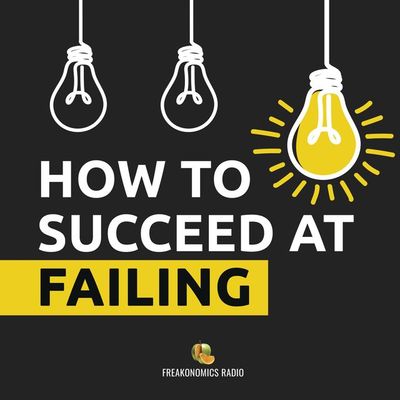
561. How to Succeed at Failing, Part 1: The Chain of Events
<p>We tend to think of tragedies as a single terrible moment, rather than the result of multiple bad decisions. Can this pattern be reversed? We try — with stories about wildfires, school shootings, and love.</p><p> </p><p>RESOURCES</p><ul><li><a href="https://amzn.to/45mpkoA"><i>Right Kind of Wrong: The Science of Failing Well</i></a><i>, </i>by Amy Edmondson (2023).</li><li>"<a href="https://www.nytimes.com/2023/09/29/us/ethan-crumbley-sentence-life-without-parole.html">Michigan School Shooter Is Found Eligible for Life Sentence Without Parole</a>," by Stephanie Saul and Dana Goldstein (<i>The New York Times, </i>2023).</li><li>"<a href="https://www.nytimes.com/2023/08/15/us/hawaii-maui-lahaina-fire.html">How Fire Turned Lahaina Into a Death Trap</a>," by Nicholas Bogel-Burroughs, Serge F. Kovaleski, Shawn Hubler, and Riley Mellen (<i>The New York Times, </i>2023).</li><li><a href="https://amzn.to/3rF24EF"><i>The Violence Project: How to Stop a Mass Shooting Epidemic</i></a><i>, </i>by Jillian Peterson and James Densley (2021).</li><li>"<a href="https://www.youtube.com/watch?v=azRl1dI-Cts">I Was Almost A School Shooter</a>," by Aaron Stark (<i>TEDxBoulder, </i>2018).</li></ul><p>EXTRAS </p><ul><li>"<a href="https://freakonomics.com/podcast/is-perfectionism-ruining-your-life/">Is Perfectionism Ruining Your Life?</a>" by <i>People I (Mostly) Admire </i>(2023).</li><li>"<a href="https://freakonomics.com/podcast/why-did-you-marry-that-person/">Why Did You Marry That Person?</a>" by <i>Freakonomics Radio </i>(2022).</li><li>"<a href="https://freakonomics.com/podcast/what-do-we-really-learn-from-failure/">What Do We Really Learn From Failure?</a>" by <i>No Stupid Questions </i>(2021).</li><li>"<a href="https://freakonomics.com/podcast/how-to-fail-like-a-pro/">How to Fail Like a Pro</a>," by <i>Freakonomics Radio </i>(2019).</li><li>"<a href="https://freakonomics.com/podcast/failure-is-your-friend-2/">Failure Is Your Friend</a>," by <i>Freakonomics Radio </i>(2014).</li></ul><p>SOURCES:</p><ul><li><a href="https://www.hbs.edu/faculty/Pages/profile.aspx?facId=6451">Amy Edmondson</a>, professor of leadership management at Harvard Business School.</li><li><a href="https://helenfisher.com/">Helen Fisher</a>, senior research fellow at The Kinsey Institute and chief science advisor to Match.com.</li><li><a href="https://www.gre.ac.uk/people/rep/faculty-of-engineering-and-science/ed-galea">Ed Galea</a>, founding director of the Fire Safety Engineering Group at the University of Greenwich.</li><li><a href="https://www.gary-klein.com/welcome">Gary Klein</a>, cognitive psychologist and pioneer in the field of naturalistic decision making.</li><li><a href="https://www.linkedin.com/in/david-riedman/">David Riedman</a>, founder of the K-12 School Shooting Database.</li><li><a href="https://en.wikipedia.org/wiki/Aaron_Stark">Aaron Stark</a>, assistant manager at Kum & Go and keynote speaker.</li><li><a href="https://www.lse.ac.uk/economics/people/faculty/john-van-reenen">John Van Reenen</a>, professor at the London School of Economics.</li></ul>
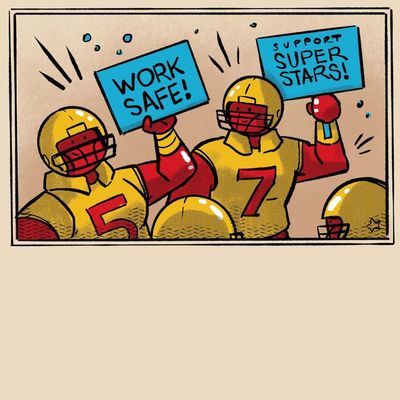
557. When Is a Superstar Just Another Employee?
<p>The union that represents N.F.L. players conducted their first-ever survey of workplace conditions, and issued a report card to all 32 teams. What did the survey reveal? Clogged showers, rats in the locker room — and some helpful insights for those of us who don’t play pro football.</p><p> </p><p>For show notes, visit <a href="https://freakonomics.com/podcast/when-is-a-superstar-just-another-employee/">freakonomics.com/podcast/when-is-a-superstar-just-another-employee/</a></p>
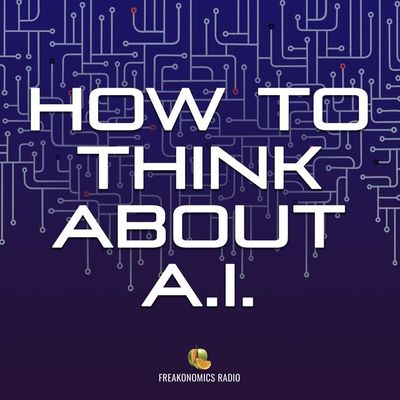
556. A.I. Is Changing Everything. Does That Include You?
<p>For all the speculation about the future, A.I. tools can be useful right now. Adam Davidson discovers what they can help us do, how we can get the most from them — and why the things that make them helpful also make them dangerous. (Part 3 of "<a href="https://freakonomics.com/podcast-tag/how-to-think-about-a-i/">How to Think About A.I."</a>)</p>
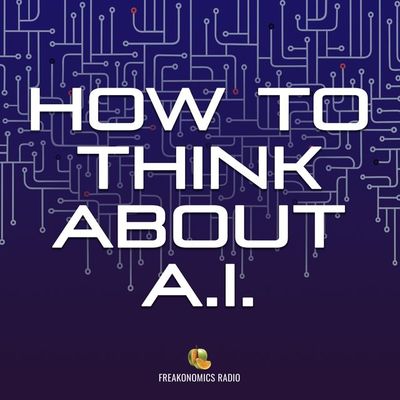
555. New Technologies Always Scare Us. Is A.I. Any Different?
<p>Guest host Adam Davidson looks at what might happen to your job in a world of human-level artificial intelligence, and asks when it might be time to worry that the machines have become too powerful. (Part 2 of "<a href="https://freakonomics.com/podcast-tag/how-to-think-about-a-i/">How to Think About A.I.</a>")</p>
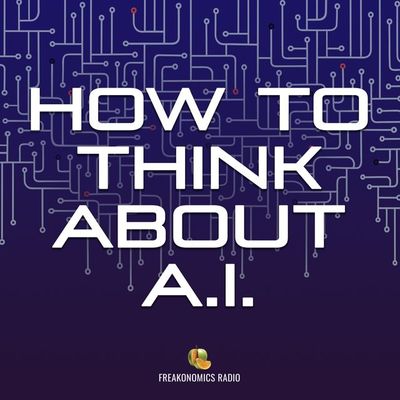
554. Can A.I. Take a Joke?
<p>Artificial intelligence, we’ve been told, will destroy humankind. No, wait — it will usher in a new age of human flourishing! Guest host Adam Davidson (co-founder of <i>Planet Money</i>) sorts through the big claims about A.I.'s future by exploring its past and present — and whether it has a sense of humor. (Part 1 of "<a href="https://freakonomics.com/podcast-tag/how-to-think-about-a-i/">How to Think About A.I.</a>")</p>
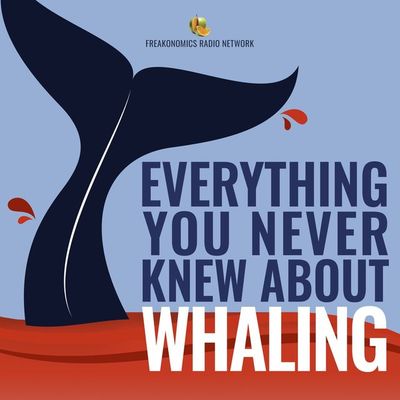
Extra: A Modern Whaler Speaks Up
<p>Bjorn Andersen killed 111 minke whales this season. He tells us how he does it, why he does it, and what he thinks would happen if whale-hunting ever stopped. (This bonus episode is a follow-up to our series “<a href="https://freakonomics.com/podcast-tag/everything-you-never-knew-about-whaling/">Everything You Never Knew About Whaling</a>.")</p>
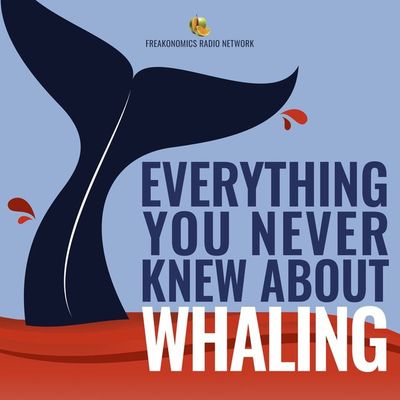
551. What Can Whales Teach Us About Clean Energy, Workplace Harmony, and Living the Good Life?
<p>In the final episode of our whale series, we learn about fecal plumes, shipping noise, and why "Moby-Dick" is still worth reading. (Part 3 of "<a href="https://freakonomics.com/podcast-tag/everything-you-never-knew-about-whaling/">Everything You Never Knew About Whaling</a>.")</p>
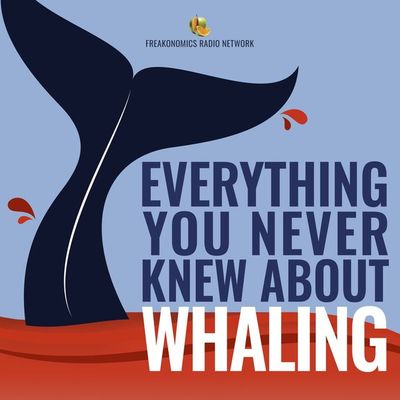
550. Why Do People Still Hunt Whales?
<p>For years, whale oil was used as lighting fuel, industrial lubricant, and the main ingredient in (yum!) margarine. Whale meat was also on a few menus. But today, demand for whale products is at a historic low. And yet some countries still have a whaling industry. We find out why. (Part 2 of “<a href="https://freakonomics.com/podcast-tag/everything-you-never-knew-about-whaling/">Everything You Never Knew About Whaling</a>.”)</p>
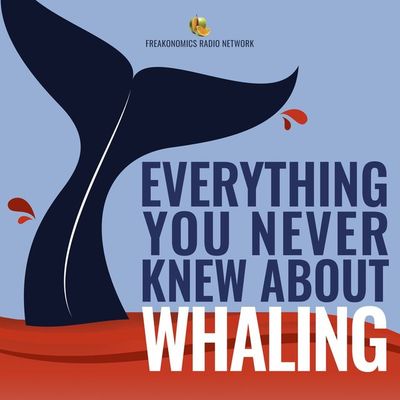
549. The First Great American Industry
<p>Whaling was, in the words of one scholar, “early capitalism unleashed on the high seas.” How did the U.S. come to dominate the whale market? Why did whale hunting die out here — and continue to grow elsewhere? And is that whale vomit in your perfume? (Part 1 of “Everything You Never Knew About Whaling.”)</p>


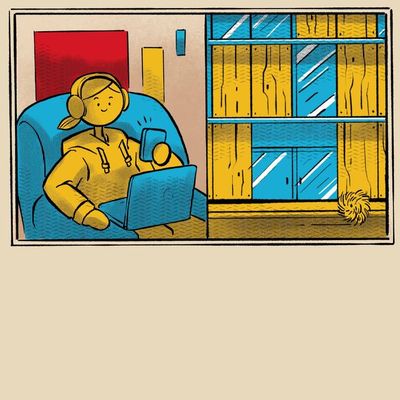


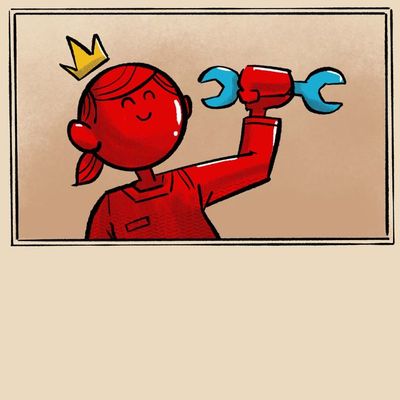
496. Do Unions Still Work?
<p>Organized labor hasn’t had this much public support in 50 years, and yet the percentage of Americans in a union is near a record low. A.F.L-C.I.O. president Liz Shuler tries to explain this gap — and persuade Stephen Dubner that “the folks who brought you the weekend” still have the leverage to fix a broken economy.</p>
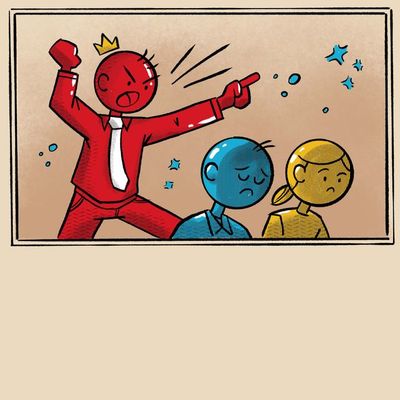



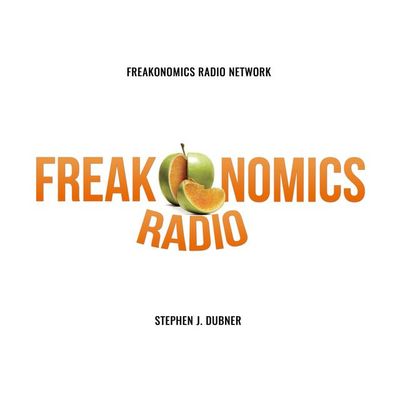
476. What Are the Police for, Anyway?
<p>The U.S. is an outlier when it comes to policing, as evidenced by more than 1,000 fatal shootings by police each year. But we’re an outlier in other ways too: a heavily-armed populace, a fragile mental-health system, and the fact that we spend so much time in our cars. Add in a history of racism and it’s no surprise that barely half of all Americans have a lot of confidence in the police. So what if we start to think about policing as … philanthropy?</p>
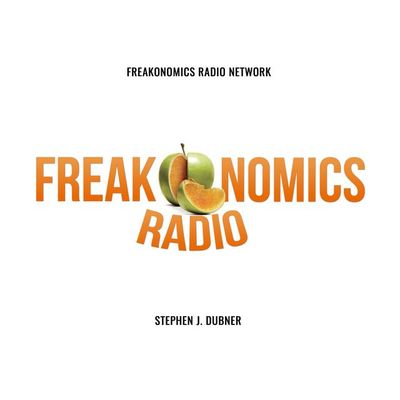
475. Why Does the Richest Country in the World Have So Many Poor Kids?
<p>Among O.E.C.D. nations, the U.S. has one of the highest rates of child poverty. How can that be? To find out, Stephen Dubner speaks with a Republican senator, a Democratic mayor, and a large cast of econo-nerds. Along the way, we hear some surprisingly good news: Washington is finally ready to attack the problem head-on.</p>
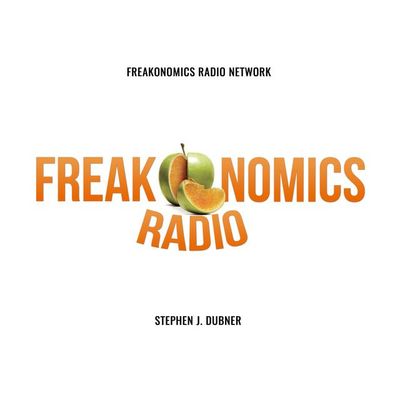
474. All You Need Is Nudge
<p>When Richard Thaler published <em>Nudge</em> in 2008 (with co-author Cass Sunstein), the world was just starting to believe in his brand of behavioral economics. How did nudge theory hold up in the face of a global financial meltdown, a pandemic, and other existential crises? With the publication of a new, radically updated edition, Thaler tries to persuade Stephen Dubner that nudging is more relevant today than ever.</p>
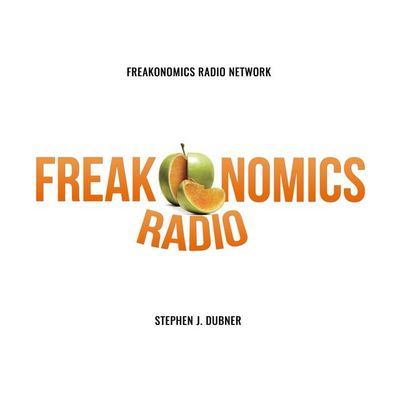
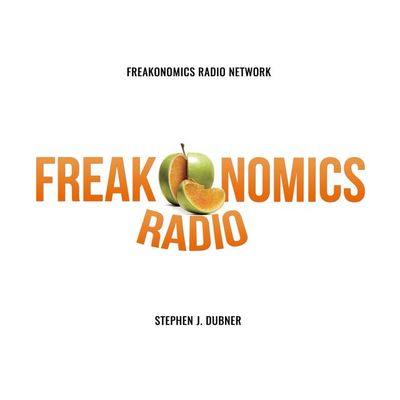
473. These Jobs Were Not Posted on ZipRecruiter
<p>In a conversation fresh from the Freakonomics Radio Network’s podcast laboratory, Michèle Flournoy (one of the highest-ranking women in Defense Department history) speaks with Cecil Haney (one of the U.S. Navy’s first Black four-star admirals) about nuclear deterrence, smart leadership, and how to do inclusion right.</p>
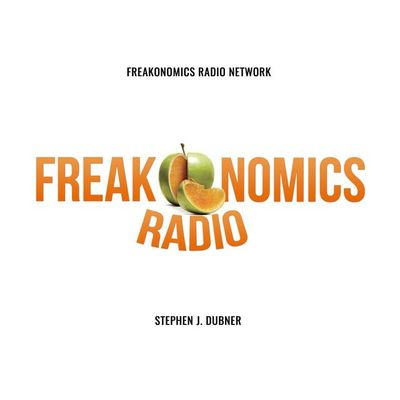
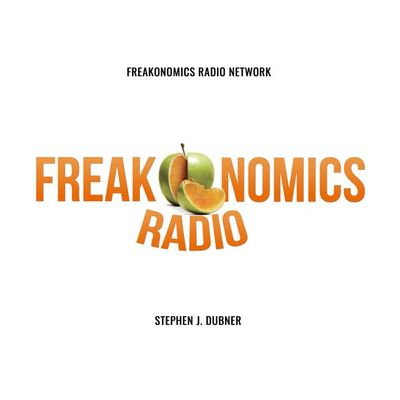
472. This Is Your Brain on Pollution
<p>Air pollution is estimated to cause 7 million deaths a year and cost the global economy nearly $3 trillion. But is the true cost even higher? Stephen Dubner explores the links between pollution and cognitive function, and enlists two fellow Freakonomics Radio Network hosts in a homegrown experiment.</p>
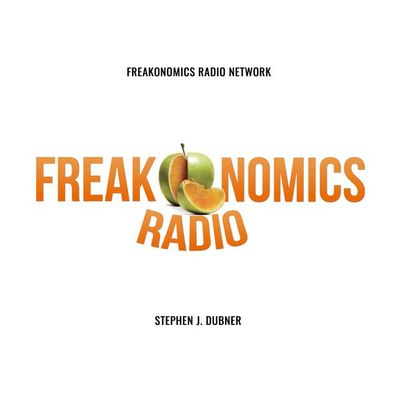
471. Mayor Pete and Elaine Chao Hit the Road
<p>While other countries seem to build spectacular bridges, dams, and even entire cities with ease, the U.S. is stuck in pothole-fixing mode. We speak with an array of transportation nerds — including the secretary of transportation and his immediate predecessor — to see if a massive federal infrastructure package can put America back in the driver’s seat.</p>
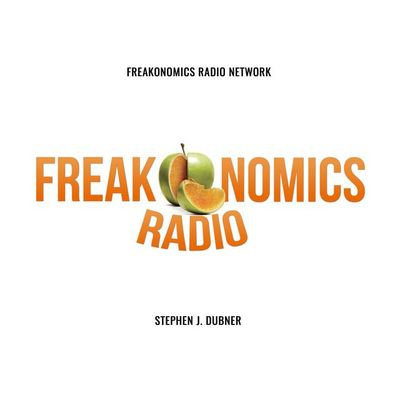
Two (Totally Opposite) Ways to Save the Planet (Ep. 346 Rebroadcast)
<p>The environmentalists say we’re doomed if we don’t drastically reduce consumption. The technologists say that human ingenuity can solve just about any problem. A debate that’s been around for decades has become a shouting match. Is <em>anyone</em> right?</p>
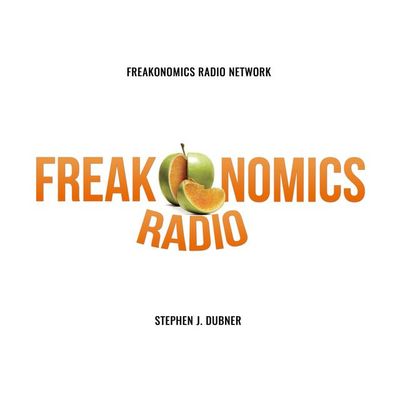
470. The Pros and Cons of America’s (Extreme) Individualism
<p>According to a decades-long research project, the U.S. is not only the most individualistic country on earth; we’re also high on indulgence, short-term thinking, and masculinity (but low on “uncertainty avoidance,” if that makes you feel better). We look at how these traits affect our daily lives and why we couldn’t change them even if we wanted to.</p>
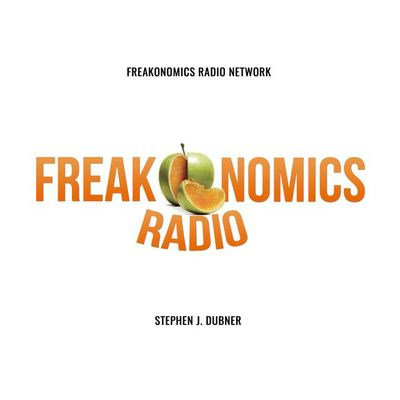
469. The U.S. Is Just Different — So Let’s Stop Pretending We’re Not
<p>We often look to other countries for smart policies on education, healthcare, infrastructure, etc. But can a smart policy be simply transplanted into a country as culturally unusual (and as supremely WEIRD) as America?</p>
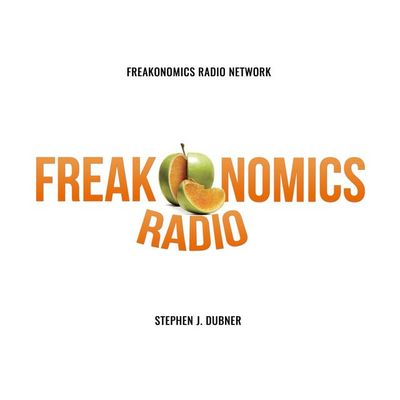
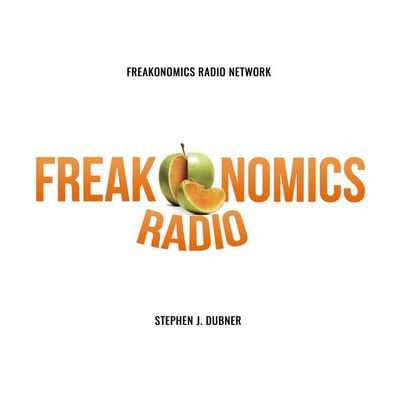
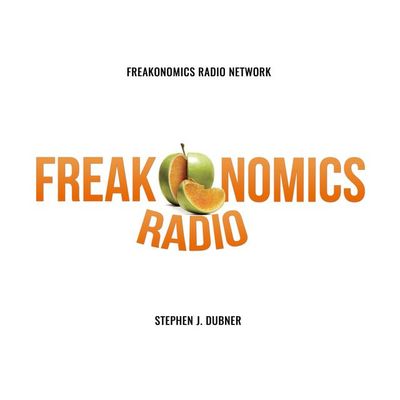
467. Is the Future of Farming in the Ocean?
<p>Bren Smith, who grew up fishing and fighting, is now part of a movement that seeks to feed the planet while putting less environmental stress on it. He makes his argument in a book called <em>Eat Like a Fish</em>; his secret ingredient: kelp. But don’t worry, you won’t have to eat it (not much, at least). An installment of <em>The Freakonomics Radio Book Club</em>.</p>
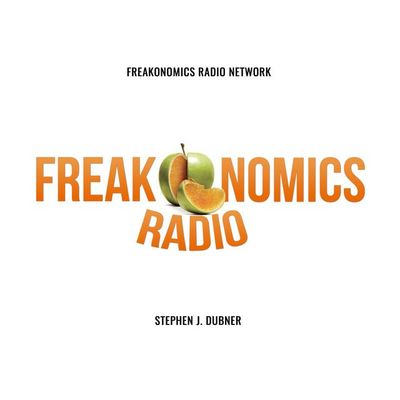
466. She’s From the Government, and She’s Here to Help
<p>Cecilia Rouse, the chair of the White House Council of Economic Advisors, is as cold-blooded as any economist. But she admits that her profession would do well to focus on policy that actually helps people. Rouse explains why President Biden wants to spend trillions of dollars to reshape the economy, and why — as the first Black chair of the C.E.A. — she has a good idea of what needs fixing. </p>
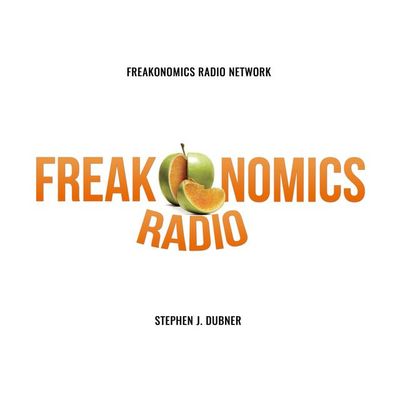
465. Introducing a New “Freakonomics of Medicine” Podcast
<p>Bapu Jena was already a double threat: a doctor who’s also an economist. Now he’s a podcast host too. In this sneak preview of the Freakonomics Radio Network’s newest show, Bapu discovers that marathons can be deadly — but not for the reasons you may think.</p>
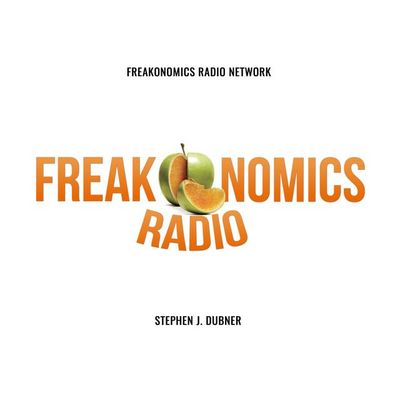
464. Will Work-from-Home Work Forever?
<p>The pandemic may be winding down, but that doesn’t mean we’ll return to full-time commuting and packed office buildings. The greatest accidental experiment in the history of labor has lessons to teach us about productivity, flexibility, and even reversing the brain drain. But don’t buy another dozen pairs of sweatpants just yet.</p>
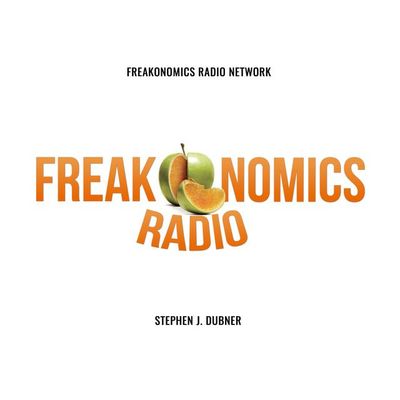
463. How to Get Anyone to Do Anything
<p>The social psychologist Robert Cialdini is a pioneer in the science of persuasion. His 1984 book <em>Influence</em> is a classic, and he has just published an expanded and revised edition. In this episode of the <em>Freakonomics Radio Book Club</em>, he gives a master class in the seven psychological levers that bewitch our rational minds and lead us to buy, behave, or believe without a second thought. </p>
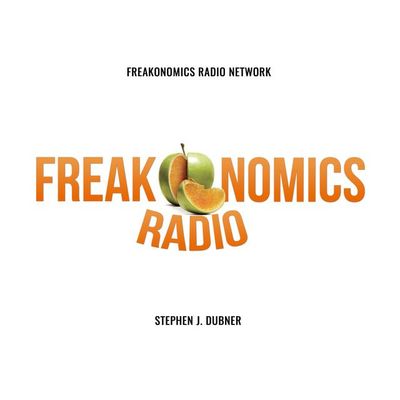
These Shoes Are Killing Me! (Ep. 296 Rebroadcast)
<p>The human foot is an evolutionary masterpiece, far more functional than we give it credit for. So why do we encase it in “a coffin” (as one foot scholar calls it) that stymies so much of its ability — and may create more problems than it solves?</p>
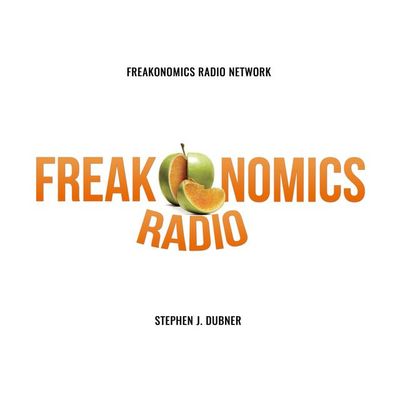
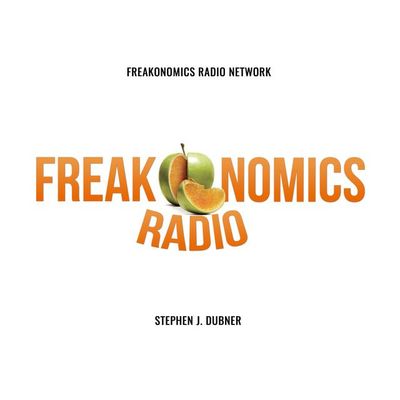
461. How to Stop Worrying and Love the Robot Apocalypse
<p>It’s true that robots (and other smart technologies) will kill many jobs. It may also be true that newer collaborative robots (“cobots”) will totally reinvigorate how work gets done. That, at least, is what the economists are telling us. Should we believe them?</p>
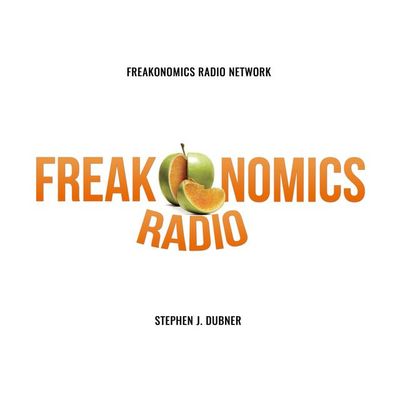
460. The True Story of the Minimum-Wage Fight
<p>Backers of a $15 federal wage say it’s a no-brainer if you want to fight poverty. Critics say it’s a blunt instrument that leads to job loss. Even the economists can’t agree! We talk to a bunch of them — and a U.S. Senator — to sort it out, and learn there’s a much bigger problem to worry about.</p>
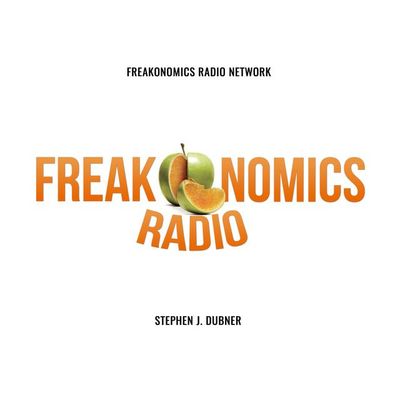
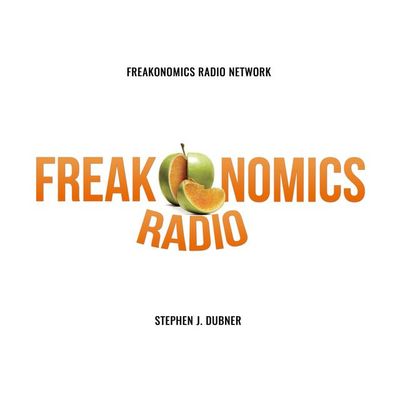
458. How to Manage Your Goal Hierarchy
<p>In this special crossover episode, <em>People I (Mostly) Admire</em> host Steve Levitt admits to <em>No Stupid Questions</em> co-host Angela Duckworth that he knows almost nothing about psychology. But once Angela gives Steve a quick tutorial on “goal conflict,” he is suddenly a fan. They also talk parenting, self-esteem, and how easy it is to learn econometrics if you feel like it. </p>

457. Is Dialysis a Test Case of Medicare for All?
<p>Kidney failure is such a catastrophic (and expensive) disease that Medicare covers treatment for anyone, regardless of age. Since Medicare reimbursement rates are fairly low, the dialysis industry had to find a way to tweak the system if they wanted to make big profits. They succeeded.</p>
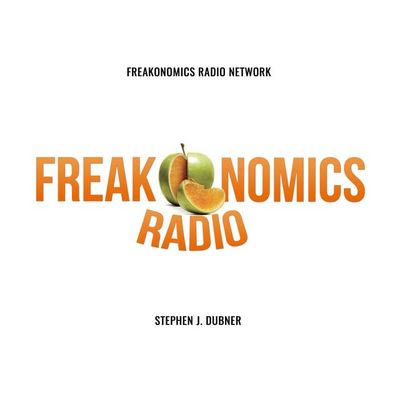
456. How to Fix the Hot Mess of U.S. Healthcare
<p>Medicine has evolved from a calling into an industry, adept at dispensing procedures and pills (and gigantic bills), but less good at actual health. Most reformers call for big, bold action. What happens if, instead, you think small? </p>
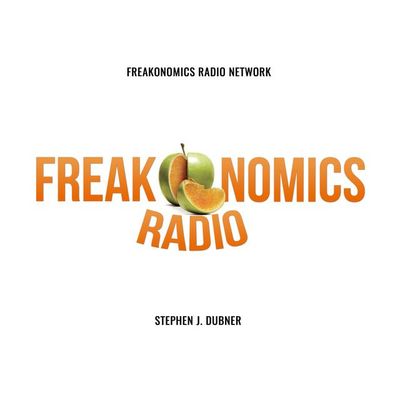
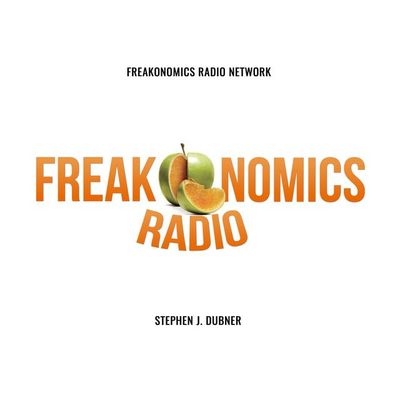
How Does New York City Keep Reinventing Itself? (Bonus)
<p>In a word: networks. Once it embraced information as its main currency, New York was able to climb out of a deep fiscal (and psychic) pit. Will that magic trick still work after Covid? In this installment of the Freakonomics Radio Book Club, guest host Kurt Andersen interviews Thomas Dyja, author of <em>New York, New York, New York: Four Decades of Success, Excess and Transformation.</em></p>
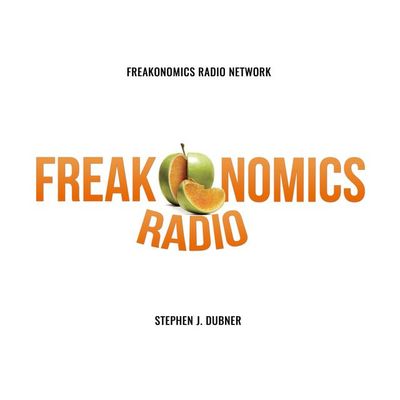
455. Are You Ready for a Fresh Start?
<p>Behavioral scientists have been exploring if — and when — a psychological reset can lead to lasting change. We survey evidence from the London Underground, Major League Baseball, and New Year’s resolutions; we look at accidental fresh starts, forced fresh starts, and fresh starts that backfire. And we wonder: will the pandemic’s end provide the biggest fresh start ever?</p>
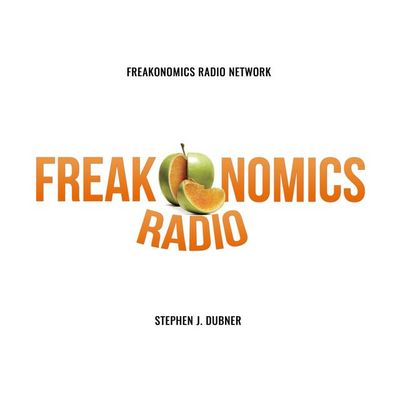
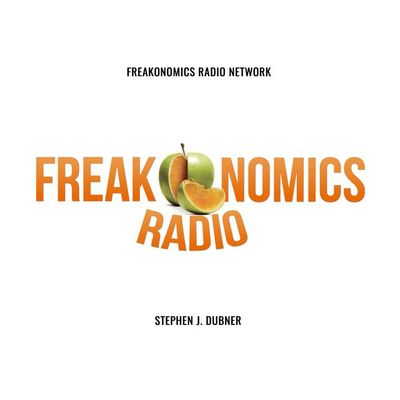
453. A Rescue Plan for Black America
<p><em>New York Times</em> columnist Charles Blow argues that white supremacy in America will never fully recede, and that it’s time for Black people to do something radical about it. In <em>The Devil You Know: A Black Power Manifesto</em>, he urges a “reverse migration” to the South to consolidate political power and create a region where it’s safe to be Black. (This is an episode of the Freakonomics Radio Book Club.)</p>
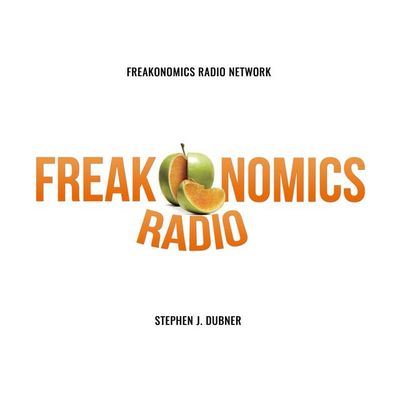
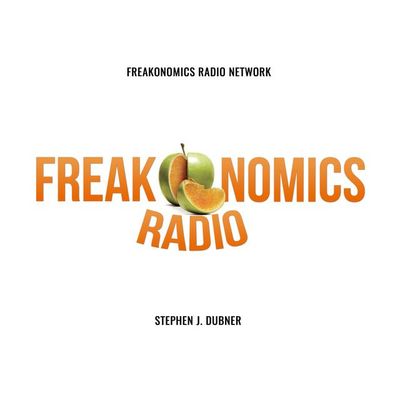
452. Jeff Immelt Knows He Let You Down
<p>Not so long ago, G.E. was the most valuable company in the world, a conglomerate that included everything from light bulbs and jet engines to financial services and <em>The Apprentice</em>. Now it’s selling off body parts to survive. What does the C.E.O. who presided over the decline have to say for himself? </p>
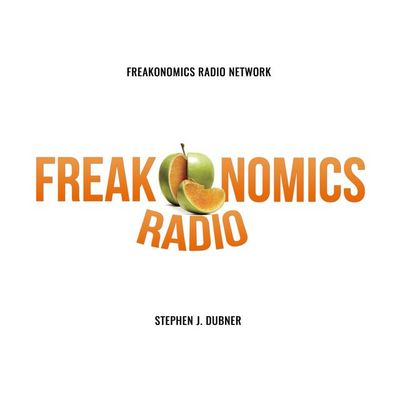
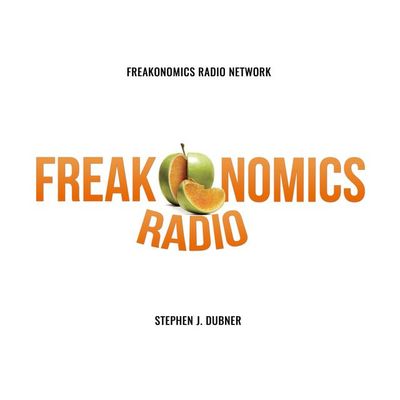
450. How to Be Better at Death
<p>Caitlin Doughty is a mortician who would like to put herself out of business. Our corporate funeral industry, she argues, has made us forget how to offer our loved ones an authentic sendoff. Doughty is the author of <em>Smoke Gets in Your Eyes: And Other Lessons From the Crematory</em>. In this installment of the Freakonomics Radio Book Club, she is interviewed by guest host Maria Konnikova.</p>
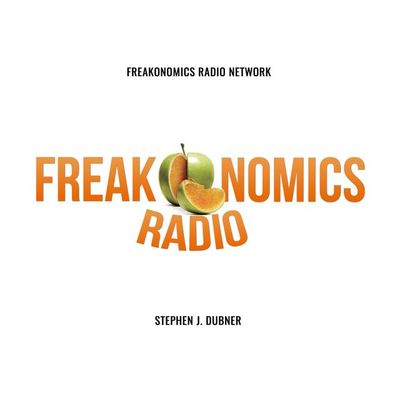
449. How to Fix the Incentives in Cancer Research
<p>For all the progress made in fighting cancer, it still kills 10 million people a year, and some types remain especially hard to detect and treat. Pancreatic cancer, for instance, is nearly always fatal. A new clinical-trial platform could change that by aligning institutions that typically compete against one another.</p>
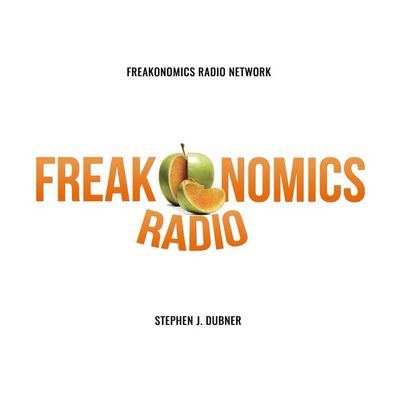
448. The Downside of Disgust
<p>It’s a powerful biological response that has preserved our species for millennia. But now it may be keeping us from pursuing strategies that would improve the environment, the economy, even our own health. So is it time to dial down our disgust reflex? You can help fix things — as Stephen Dubner does in this episode — by chowing down on some delicious insects.</p>
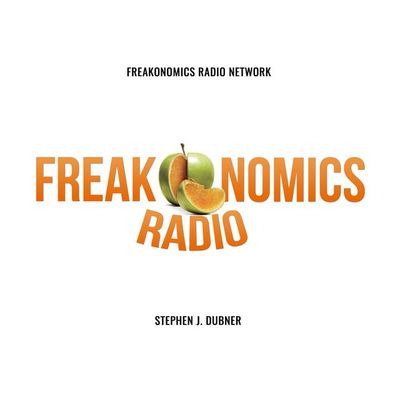
447. How Much Do We Really Care About Children?
<p>They can’t vote or hire lobbyists. The policies we create to help them aren’t always so helpful. Consider the car seat: parents hate it, the safety data are unconvincing, and new evidence suggests an unintended consequence that is as anti-child as it gets.</p>
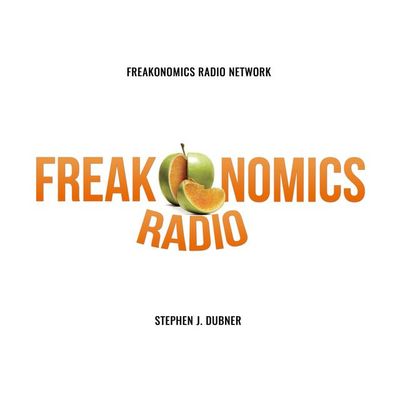
446. “We Get All Our Great Stuff from Europe — Including Witch Hunting.”
<p>We’ve collected some of our favorite moments from <em>People I (Mostly) Admire</em>, the latest show from the Freakonomics Radio Network. Host Steve Levitt seeks advice from scientists and inventors, memory wizards and basketball champions — even his fellow economists. He also asks about quitting, witch trials, and whether we need a Manhattan Project for climate change. </p>
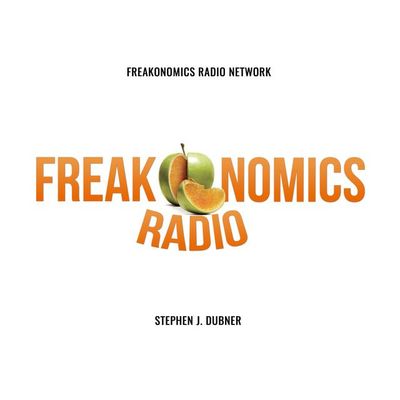
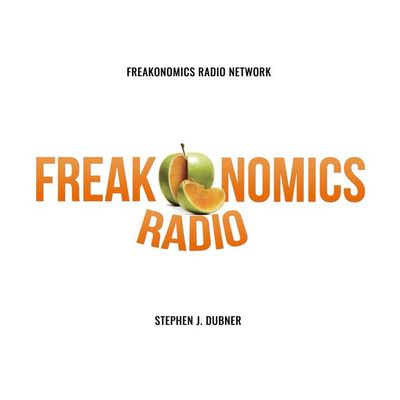
445. Why Do We Seek Comfort in the Familiar?
<p>In this episode of <em>No Stupid Questions</em> — a Freakonomics Radio Network show launched earlier this year — Stephen Dubner and Angela Duckworth debate why we watch, read, and eat familiar things during a crisis, and if it might in fact be better to try new things instead. Also: is a little knowledge truly as dangerous as they say? </p>
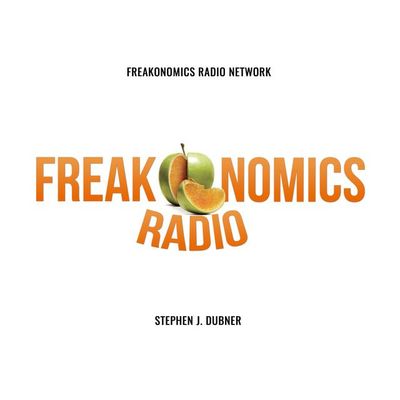
444. How Do You Cure a Compassion Crisis?
<p>Patients in the U.S. healthcare system often feel they’re treated with a lack of empathy. Doctors and nurses have tragically high levels of burnout. Could fixing the first problem solve the second? And does the rest of society need more compassion too?</p>
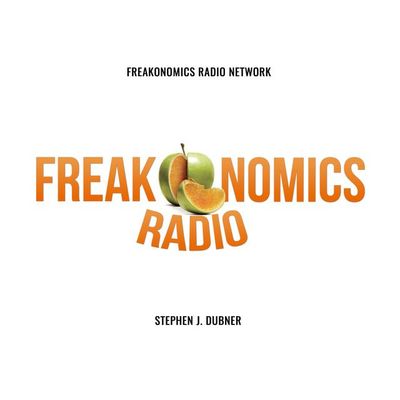
443. A Sneak Peek at Biden’s Top Economist
<p>The incoming president argues that the economy and the environment are deeply connected. This is reflected in his choice for National Economic Council director — Brian Deese, a climate-policy wonk and veteran of the no-drama-Obama era. But don’t mistake Deese’s lack of drama for a lack of intensity.</p>

PLAYBACK (2015): Could the Next Brooklyn Be ... Las Vegas?!
<p>Tony Hsieh, the longtime C.E.O. of Zappos, was an iconoclast and a dreamer. Five years ago, we sat down with him around a desert campfire to talk about those dreams. Hsieh died recently from injuries sustained in a house fire; he was 46.</p>
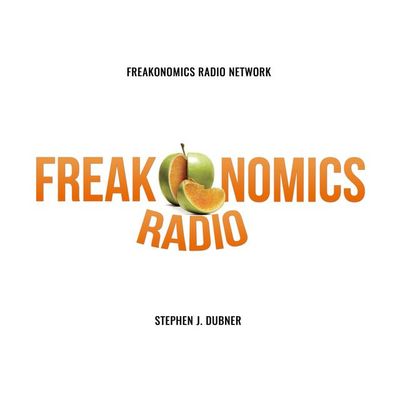
442. Is it Too Late for General Motors to Go Electric?
<p>G.M. produces more than 20 times as many cars as Tesla, but Tesla is worth nearly 10 times as much. Mary Barra, the C.E.O. of G.M., is trying to fix that. We speak with her about the race toward an electrified (and autonomous) future, China and Trump, and what it’s like to be the “fifth-most powerful woman in the world.”</p>
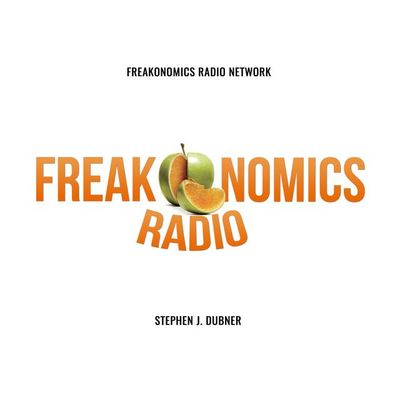
441. Does Advertising Actually Work? (Part 2: Digital)
<p>Google and Facebook are worth a combined $2 trillion, with the vast majority of their revenue coming from advertising. In our previous episode, we learned that TV advertising is much less effective than the industry says. Is digital any better? Some say yes, some say no — and some say we’re in a full-blown digital-ad bubble.</p>
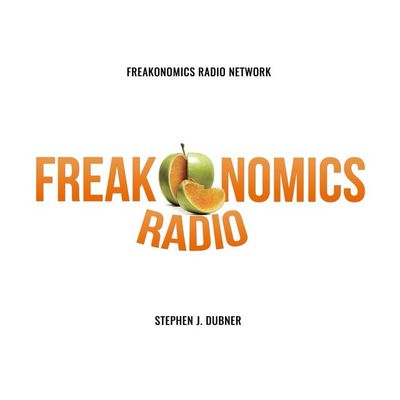
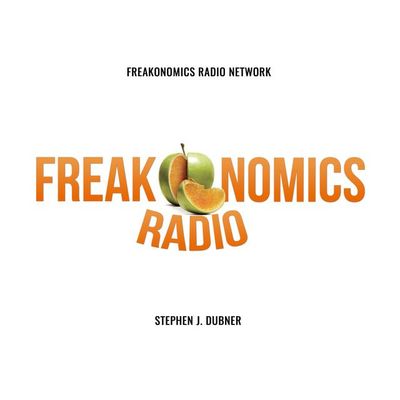
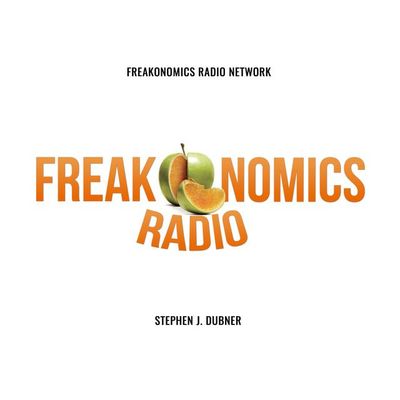
438. How to Succeed by Being Authentic (Hint: Carefully)
<p>John Mackey, the C.E.O. of Whole Foods, has learned the perils of speaking his mind. But he still says what he thinks about everything from “conscious leadership” to the behavioral roots of the obesity epidemic. He also argues for a style of capitalism and politics that at this moment seems like a fantasy. What does he know that we don’t?</p>
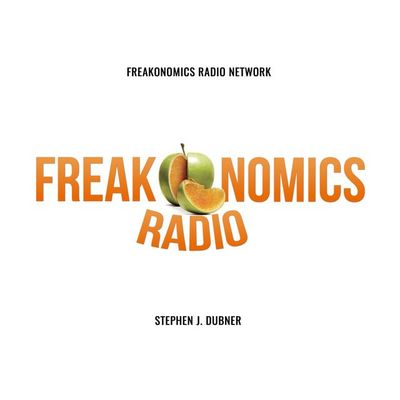
Why the Left Had to Steal the Right’s Dark-Money Playbook
<p>The sociologist Sudhir Venkatesh spent years studying crack dealers, sex workers, and the offspring of billionaires. Then he wandered into an even stranger world: social media. He spent the past five years at Facebook and Twitter. Now that he’s back in the real world, he’s here to tell us how the digital universe really works. In this pilot episode of a new podcast, Venkatesh interviews the progressive political operative Tara McGowan about her digital successes with the Obama campaign, her noisy failure with the Iowa caucus app, and why the best way for Democrats to win more elections was to copy the Republicans.</p>
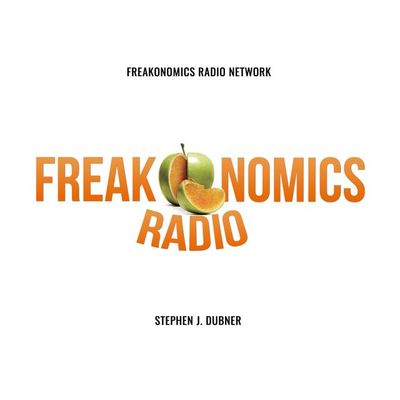
437. Many Businesses Thought They Were Insured for a Pandemic. They Weren’t.
<p>A fine reading of most policies for “business interruption” reveals that viral outbreaks aren’t covered. Some legislators are demanding that insurance firms pay up anyway. Is it time to rethink insurance entirely?</p>
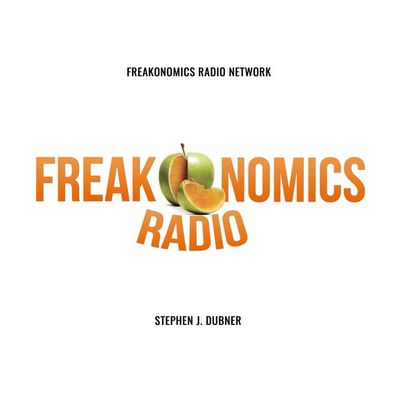
436. Forget Everything You Know About Your Dog
<p>As beloved and familiar as they are, we rarely stop to consider life from the dog’s point of view. That stops now. In this latest installment of the Freakonomics Radio Book Club, we discuss <em>Inside of a Dog</em> with the cognitive scientist (and dog devotee) Alexandra Horowitz.</p>
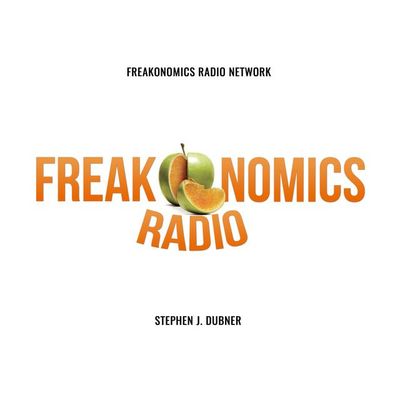
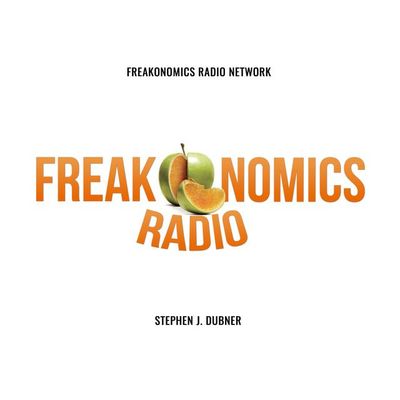
434. Is New York City Over?
<p>The pandemic has hit America's biggest city particularly hard. Amidst a deep fiscal hole, rising homicides, and a flight to the suburbs, some people think the city is heading back to the bad old 1970s. We look at the history — and the data — to see why that’s probably not the case.</p>
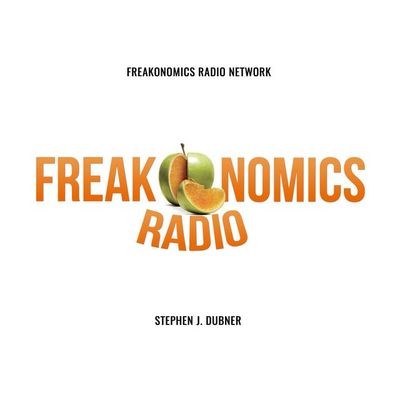
“Don’t Neglect the Thing That Makes You Weird” | People I (Mostly) Admire: Ken Jennings
<p>It was only in his late twenties that America’s favorite brainiac began to seriously embrace his love of trivia. Now he holds the “Greatest of All Time” title on Jeopardy! Steve Levitt digs into how he trained for the show, what it means to have a "geographic memory," and why we lie to our children.</p>
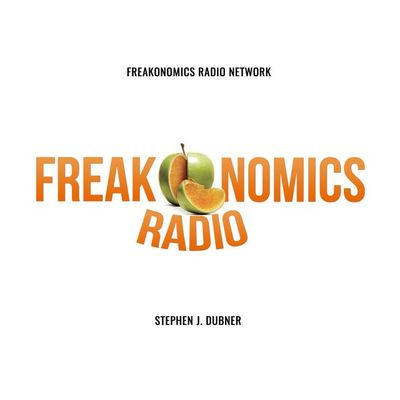
433. How Are Psychedelics and Other Party Drugs Changing Psychiatry?
<p>Three leading researchers from the Mount Sinai Health System discuss how ketamine, cannabis, and ecstasy are being used (or studied) to treat everything from severe depression to addiction to PTSD. We discuss the upsides, downsides, and regulatory puzzles.</p>
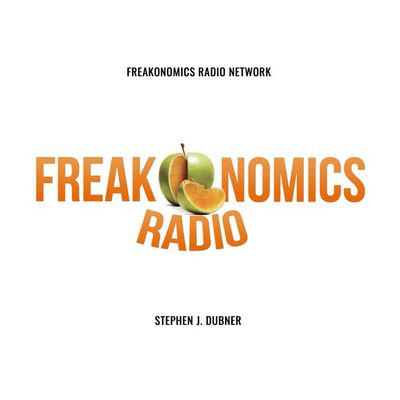
432. When Your Safety Becomes My Danger
<p>The families of U.S. troops killed and wounded in Afghanistan are suing several companies that did reconstruction there. Why? These companies, they say, paid the Taliban protection money, which gave them the funding — and opportunity — to attack U.S. soldiers instead. A look at the messy, complicated, and heart-breaking tradeoffs of conflict-zone economies.</p>
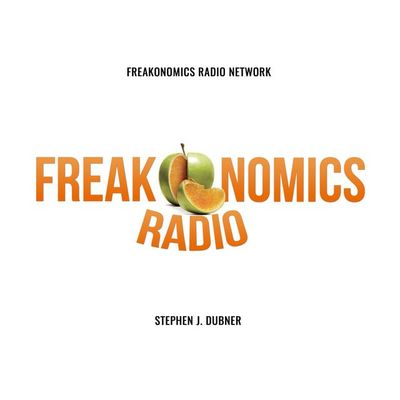
“One Does Not Know Where an Insight Will Come From” | People I (Mostly) Admire: Kerwin Charles
<p>The dean of Yale’s School of Management grew up in a small village in Guyana. During his unlikely journey, he has researched video-gaming habits, communicable disease, and why so many African-Americans haven’t had the kind of success he’s had. Steve Levitt talks to Charles about his parents’ encouragement, his love of <em>Sports Illustrated</em>, and how he talks to his American-born kids about the complicated history of Blackness in America. </p>
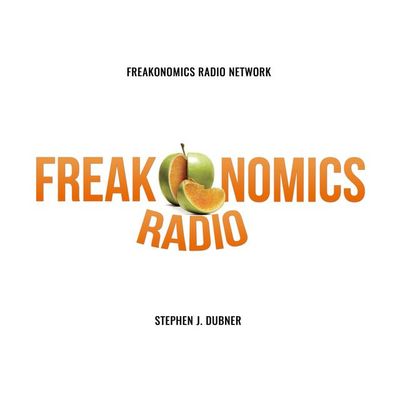
Does Anyone Really Know What Socialism Is? (Ep. 408 Rebroadcast)
<p>Trump says it would destroy us. Biden needs the voters who support it (especially the Bernie voters). The majority of millennials would like it to replace capitalism. But what is “it”? We bring in the economists to sort things out and tell us what the U.S. can learn from the good (and bad) experiences of other (supposedly) socialist countries.</p>
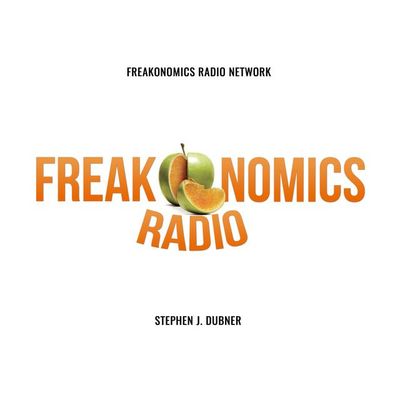
What if Your Company Had No Rules?
<p>Netflix co-founder Reed Hastings came to believe that corporate rules can kill creativity and innovation. In this latest edition of the Freakonomics Radio Book Club, guest host Maria Konnikova talks to Hastings about his new book, <em>No Rules Rules</em>, and why for some companies the greatest risk is taking no risks at all.</p>
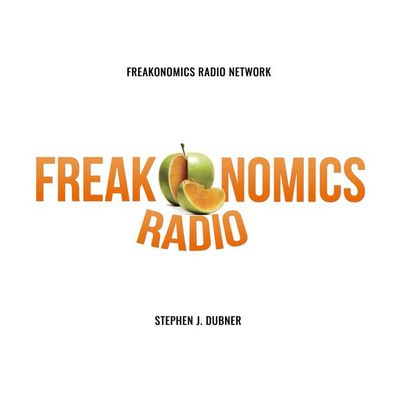
431. Why Can’t Schools Get What the N.F.L. Has?
<p>Thanks to daily Covid testing and regimented protocols, the new football season is underway. Meanwhile, most teachers, students, and parents are essentially waiting for the storm to pass. And school isn’t even a contact sport (usually).</p>
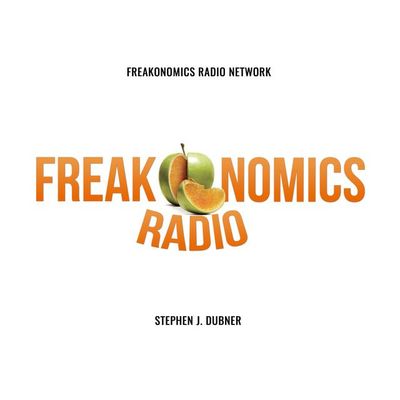
"I Started Crying When I Realized How Beautiful the Universe Is” | People I (Mostly) Admire Ep. 2: Mayim Bialik
<p>She’s best known for playing neurobiologist Amy Farrah Fowler on<em> The Big Bang Theory</em>, but the award-winning actress has a rich life outside of her acting career, as a teacher, mother — and a real-life neuroscientist. Steve Levitt tries to learn more about this one-time academic and Hollywood non-conformist, who is both very similar to him and also quite his opposite.</p>

America’s Hidden Duopoly (Ep. 356 Rebroadcast)
<p>We all know our political system is “broken” — but what if that’s not true? Some say the Republicans and Democrats constitute a wildly successful industry that has colluded to kill off competition, stifle reform, and drive the country apart. So what are you going to do about it?</p>
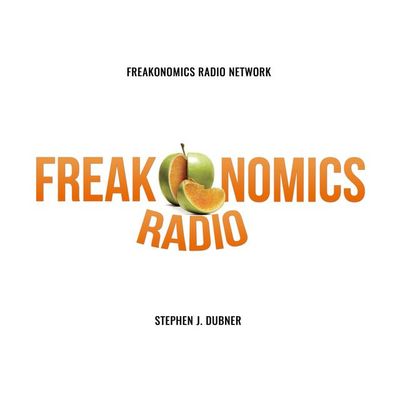
430. Will a Covid-19 Vaccine Change the Future of Medical Research?
<p>We explore the science, scalability, and (of course) economics surrounding the global vaccine race. Guests include the chief medical officer of the first U.S. firm to go to Phase 3 trials with a vaccine candidate; a former F.D.A. commissioner who’s been warning of a pandemic for years; and an economist who thinks Covid-19 may finally change how diseases are cured.</p>
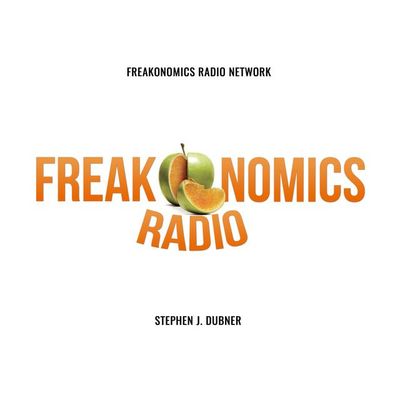
Introducing “People I (Mostly) Admire"
<p>A new interview show with host Steve Levitt. Today he speaks with the Harvard psychologist and linguist Steven Pinker. By cataloging the steady march of human progress, the self-declared “polite Canadian” has managed to enrage people on opposite ends of the political spectrum. Levitt tries to understand why. </p>
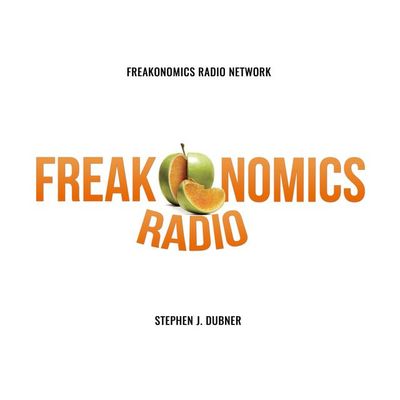
The Economics of Sports Gambling (Ep. 388 Rebroadcast)
<p>What happens when tens of millions of fantasy-sports players are suddenly able to bet real money on real games? We’re about to find out. A recent Supreme Court decision has cleared the way to bring an estimated $300 billion in black-market sports betting into the light. We sort out the winners and losers.</p>

429. Is Economic Growth the Wrong Goal?
<p>The endless pursuit of G.D.P., argues the economist Kate Raworth, shortchanges too many people and also trashes the planet. Economic theory, she says, “needs to be rewritten” — and Raworth has tried, in a book called <em>Doughnut Economics</em>. It has found an audience among reformers, and now the city of Amsterdam is going whole doughnut.</p>
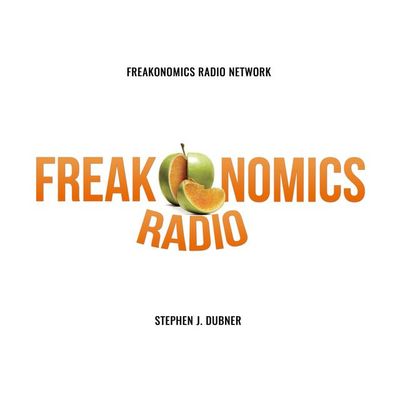
How the Supermarket Helped America Win the Cold War (Ep. 386 Rebroadcast)
<p>Aisle upon aisle of fresh produce, cheap meat, and sugary cereal — a delicious embodiment of free-market capitalism, right? Not quite. The supermarket was in fact the endpoint of the U.S. government’s battle for agricultural abundance against the U.S.S.R. Our farm policies were built to dominate, not necessarily to nourish — and we are still living with the consequences.</p>
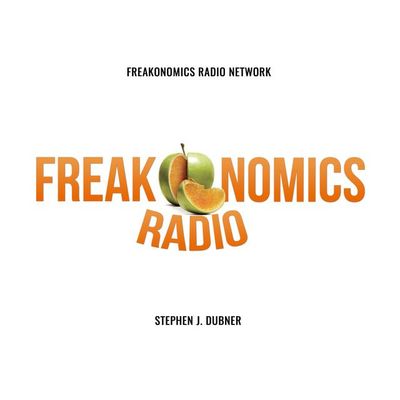
428. The Simple Economics of Saving the Amazon Rain Forest
<p>Everyone agrees that massive deforestation is an environmental disaster. But most of the standard solutions — scolding the Brazilians, invoking universal morality — ignore the one solution that might actually work</p>
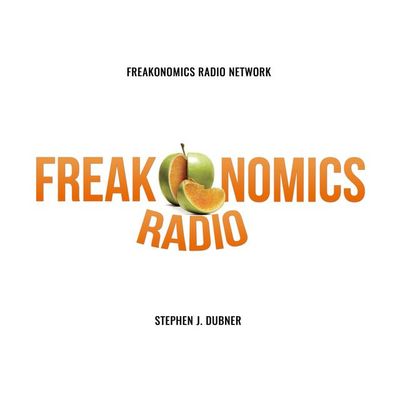
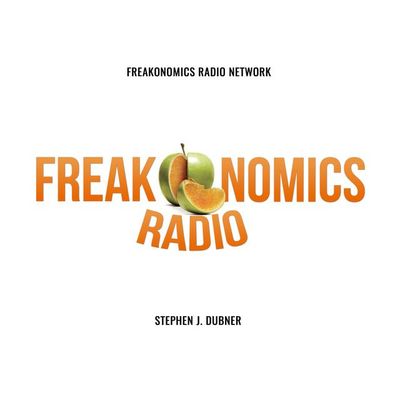
426. Should America (and FIFA) Pay Reparations?
<p>The racial wealth gap in the U.S. is massive. We explore the causes, consequences, and potential solutions. Also: another story of discrimination and economic disparity, this one perpetrated by an international sporting authority. The first of a two-part series.</p>
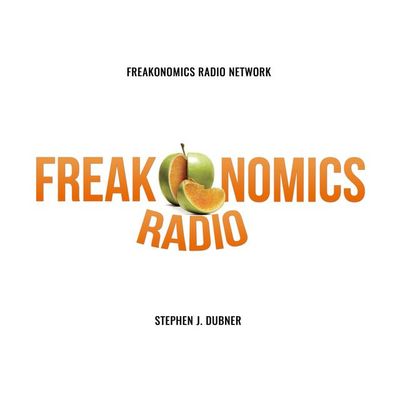
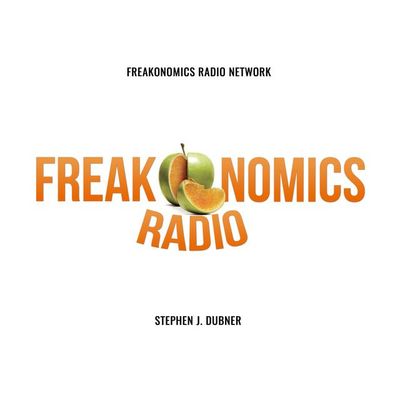
424. How to Make Your Own Luck
<p>Before she decided to become a poker pro, Maria Konnikova didn’t know how many cards are in a deck. But she did have a Ph.D. in psychology, a brilliant coach, and a burning desire to know whether life is driven more by skill or chance. She found some answers in poker — and in her new book <em>The Biggest Bluff</em>, she’s willing to tell us everything she learned.</p>
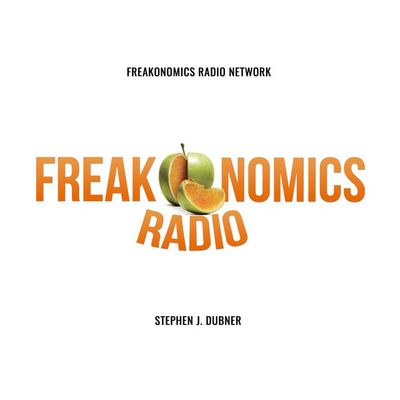
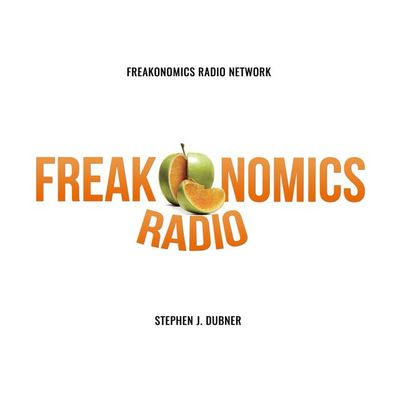
422. Introducing "No Stupid Questions"
<p>In this new addition to the Freakonomics Radio Network, co-hosts Stephen Dubner and Angela Duckworth discuss the relationship between age and happiness. Also: does all creativity come from pain? New episodes of "No Stupid Questions" are released every Sunday evening — please subscribe wherever you get your podcasts.</p>
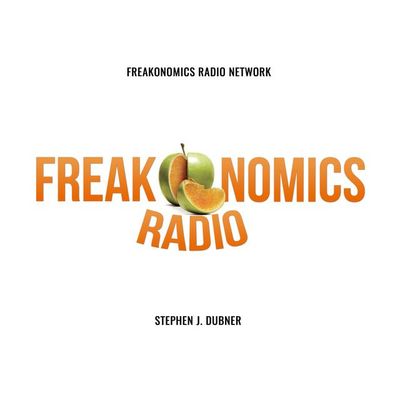
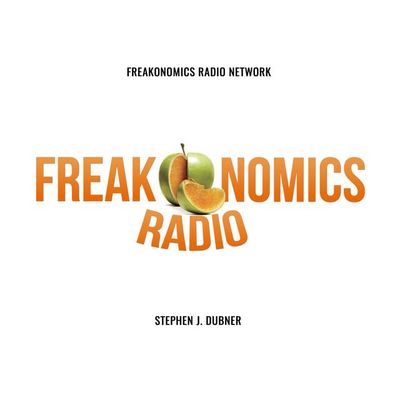
420. Which Jobs Will Come Back, and When?
<p>Covid-19 is the biggest job killer in a century. As the lockdown eases, what does re-employment look like? Who will be first and who last? Which sectors will surge and which will disappear? Welcome to the Great Labor Reallocation of 2020.</p>

How to Make Meetings Less Terrible (Ep. 389 Rebroadcast)
<p>In the U.S. alone, we hold 55 million meetings a day. Most of them are woefully unproductive, and tyrannize our offices. The revolution begins now — with better agendas, smaller invite lists, and an embrace of healthy conflict.</p>
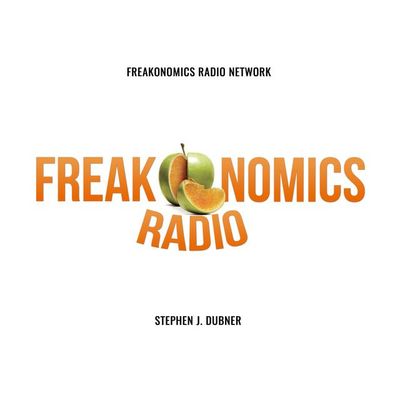
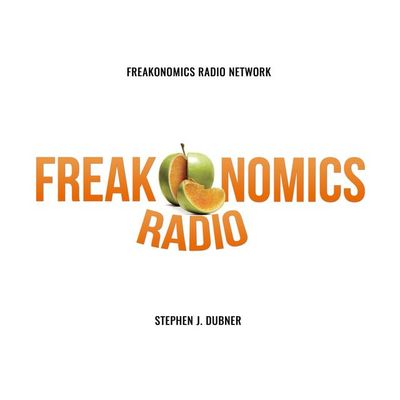
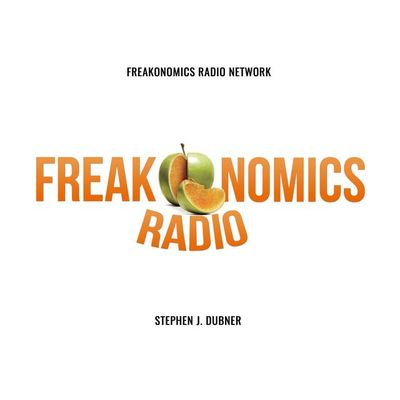
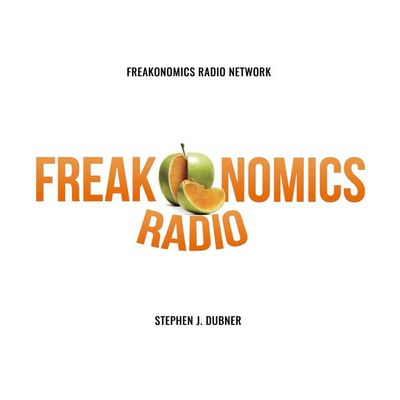
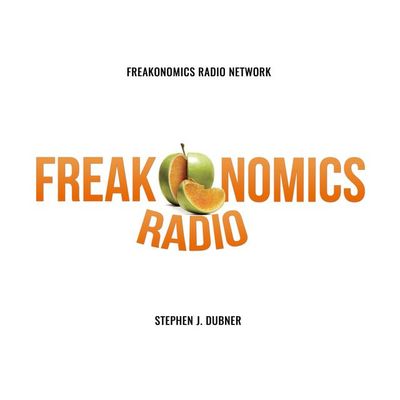
415. How Rahm Emanuel Would Run the World
<p>As a former top adviser to presidents Clinton and Obama, he believes in the power of the federal government. But as former mayor of Chicago, he says that cities are where real problems get solved — especially in the era of Covid-19.</p>
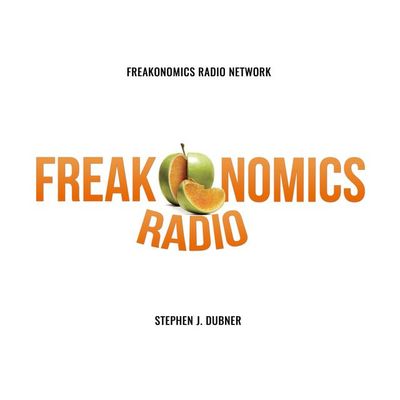
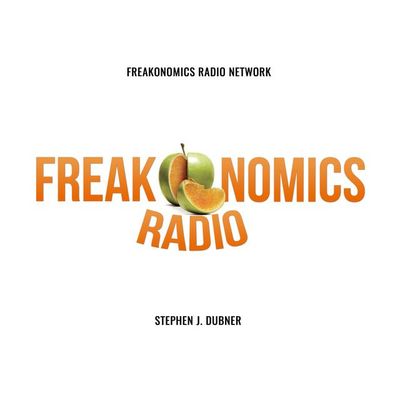
413. Who Gets the Ventilator?
<p>Should a nurse or doctor who gets sick treating Covid-19 patients have priority access to a potentially life-saving healthcare device? Americans aren’t used to rationing in medicine, but it’s time to think about it. We consult a lung specialist, a bioethicist, and (of course) an economist.</p>
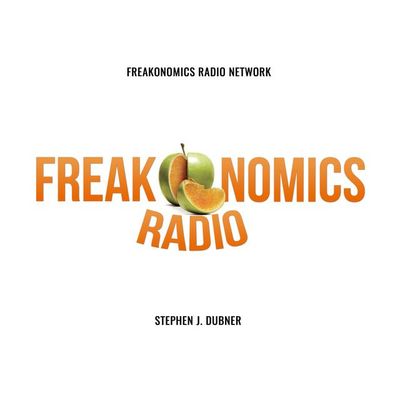
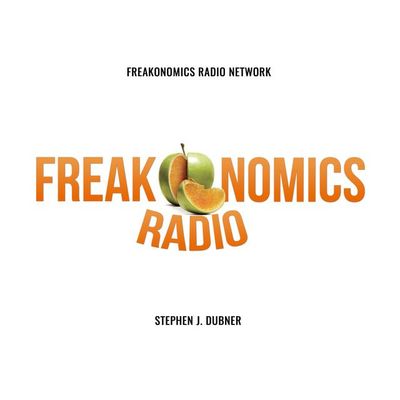
411. Is $2 Trillion the Right Medicine for a Sick Economy?
<p>Congress just passed the biggest aid package in modern history. We ask six former White House economic advisors and one U.S. Senator: Will it actually work? What are its best and worst features? Where does $2 trillion come from, and what are the long-term effects of all that government spending? </p>
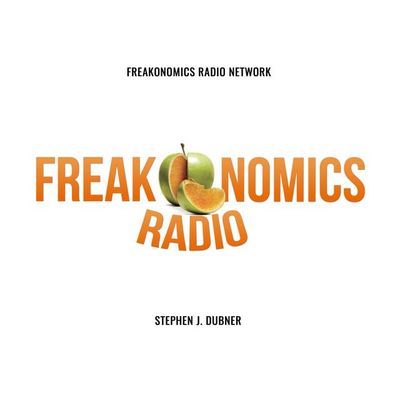
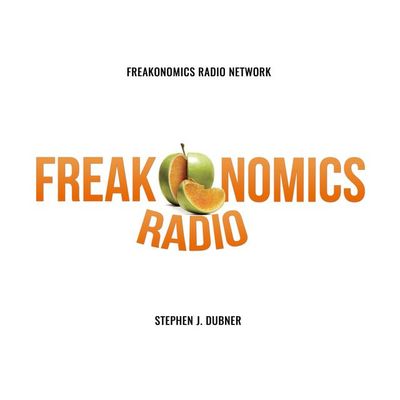
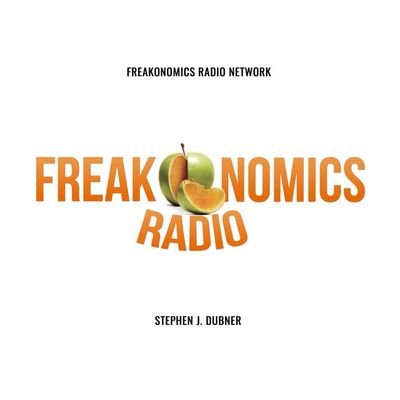
Why Rent Control Doesn’t Work (Ep. 373 Rebroadcast)
<p>As cities become ever-more expensive, politicians and housing advocates keep calling for rent control. Economists think that’s a terrible idea. They say it helps a small (albeit noisy) group of renters, but keeps overall rents artificially high by disincentivizing new construction. So what happens next?</p>
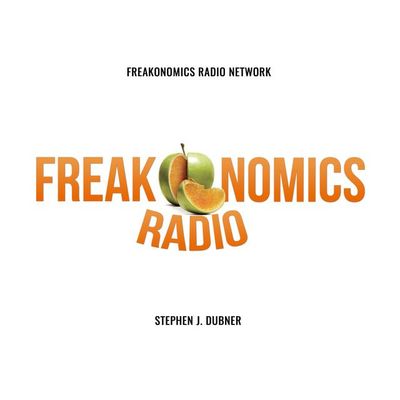
408. Does Anyone Really Know What Socialism Is?
<p>Trump says it would destroy us. Sanders says it will save us. The majority of millennials would like it to replace capitalism. But what is “it”? We bring in the economists to sort things out and tell us what the U.S. can learn from the good (and bad) experiences of other (supposedly) socialist countries.</p>
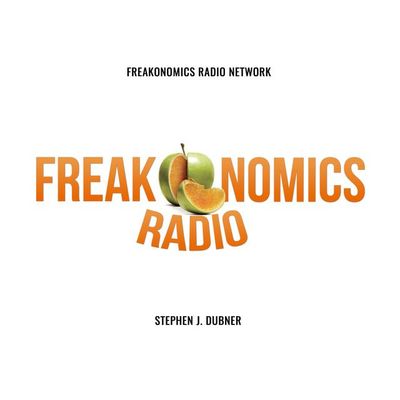
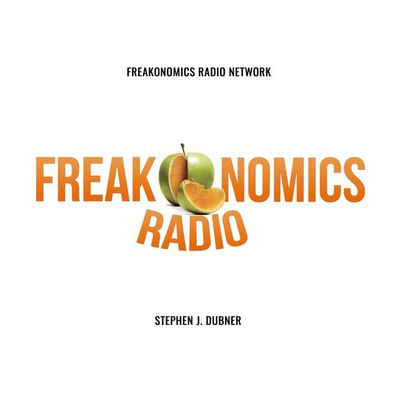
406. Can You Hear Me Now?
<p>When he became chairman of the Federal Communications Commission, Ajit Pai announced that he was going to take a “weed whacker” to Obama-era regulations. So far, he’s kept his promise, and earned the internet’s ire for reversing the agency’s position on net neutrality. Pai defends his actions and explains how the U.S. can “win” everything from the 5G race to the war on robocalls.</p>
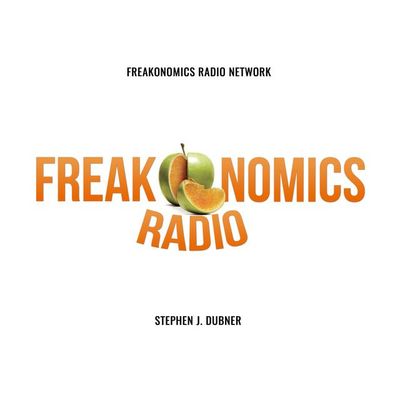
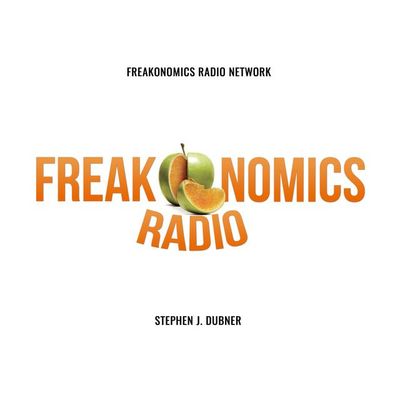
404. Does the President Matter as Much as You Think?
<p>We asked this same question nearly a decade ago. The answer then: probably not. But a lot has changed since then, and we’re three years into one of the most anomalous presidencies in American history. So once again we try to sort out presidential signal from noise. What we hear from legal and policy experts may leave you surprised, befuddled — and maybe infuriated.</p>
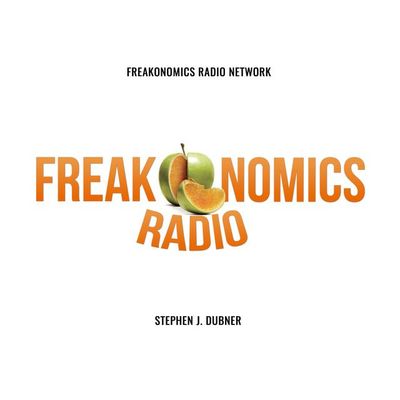
How the San Francisco 49ers Stopped Being Losers (Ep. 350 Update)
<p>One of the most storied (and valuable) sports franchises in the world had fallen far. So they decided to do a full reboot — and it worked: this week, they are headed back to the Super Bowl. Before the 2018 season, we sat down with the team’s owner, head coach, general manager, and players as they were plotting their turnaround. Here’s an update of that episode. </p>
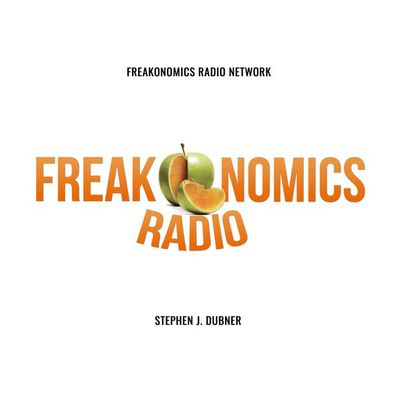
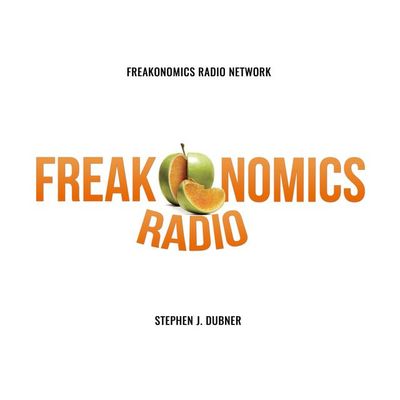
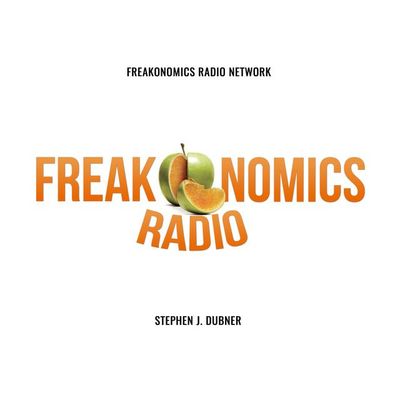
5 Psychology Terms You’re Probably Misusing (Rebroadcast)
<p>We all like to throw around terms that describe human behavior — “bystander apathy” and “steep learning curve” and “hard-wired.” Most of the time, they don’t actually mean what we think they mean. But don’t worry — the experts are getting it wrong, too.</p>
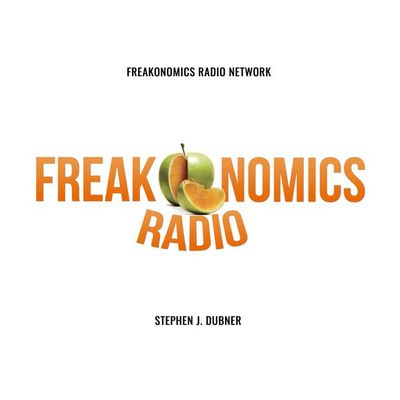
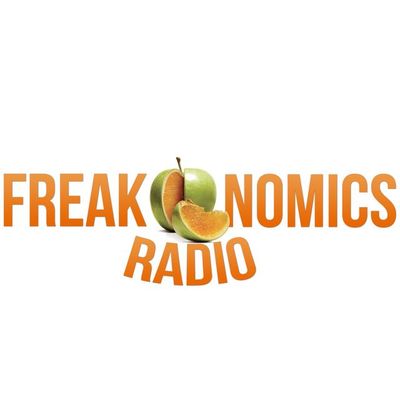
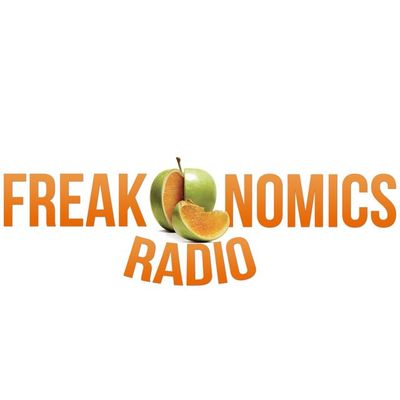
Why Is This Man Running for President? (Update)
<p>A year ago, nobody was taking Andrew Yang very seriously. Now he is America’s favorite entrepre-nerd, with a candidacy that keeps gaining momentum. This episode includes our Jan. 2019 conversation with the leader of the Yang Gang and a fresh interview recorded from the campaign trail in Iowa.</p>
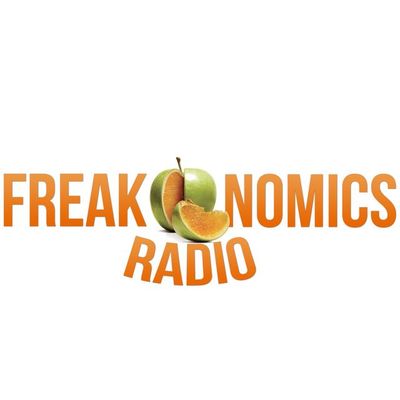
400. How to Hate Taxes a Little Bit Less
<p>Every year, Americans short the I.R.S. nearly half a trillion dollars. Most ideas to increase compliance are more stick than carrot — scary letters, audits, and penalties. But what if we gave taxpayers a chance to allocate how their money is spent, or even bribed them with a thank-you gift?</p>
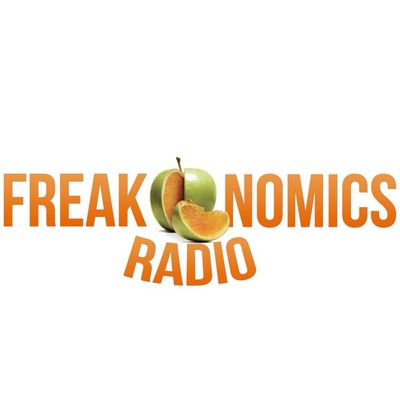
399. Honey, I Grew the Economy
<p>Innovation experts have long overlooked where a lot of innovation actually happens. The personal computer, the mountain bike, the artificial pancreas — none of these came from some big R&D lab, but from users tinkering in their homes. Acknowledging this reality — and encouraging it — would be good for the economy (and the soul too).</p>
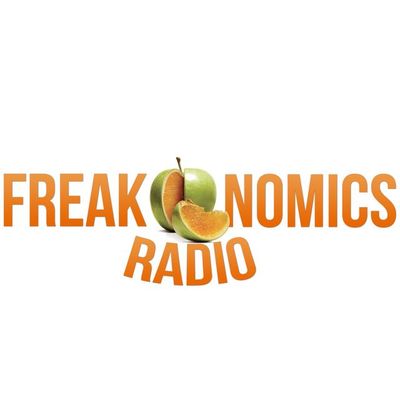
How to Change Your Mind (Rebroadcast)
<p>There are a lot of barriers to changing your mind: ego, overconfidence, inertia — and cost. Politicians who flip-flop get mocked; family and friends who cross tribal borders are shunned. But shouldn’t we be <em>encouraging</em> people to change their minds? And how can we get better at it ourselves?</p>
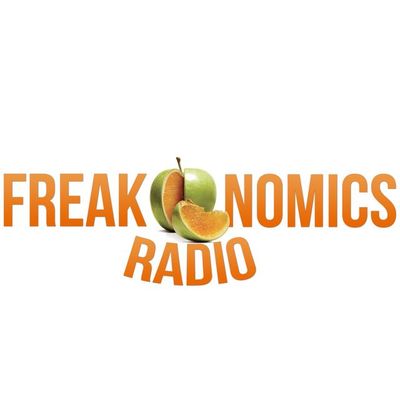
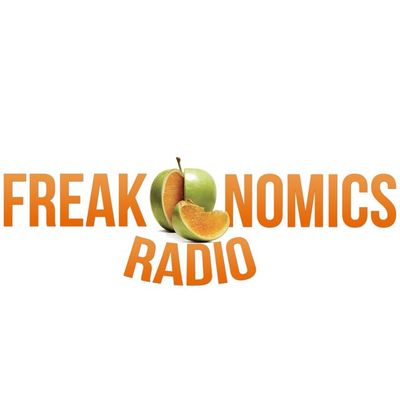
397. How to Save $32 Million in One Hour
<p>For nearly a decade, governments have been using behavioral nudges to solve problems — and the strategy is catching on in healthcare, firefighting, and policing. But is that thinking too small? Could nudging be used to fight income inequality and achieve world peace? Recorded live in London, with commentary from Andy Zaltzman (<em>The Bugle</em>).</p>
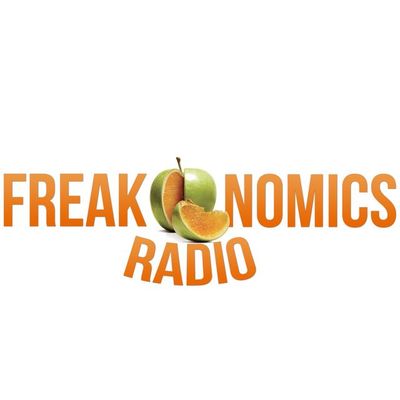
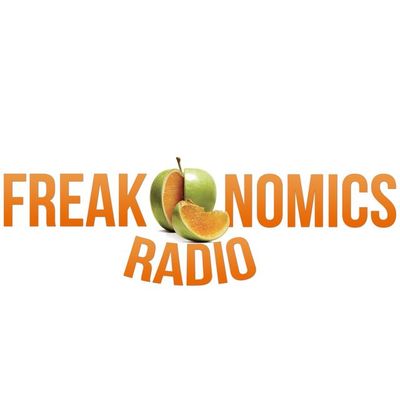
395. Speak Softly and Carry Big Data
<p>Do economic sanctions work? Are big democracies any good at spreading democracy? What is the root cause of terrorism? It turns out that data analysis can help answer all these questions — and make better foreign-policy decisions. Guests include former Department of Defense officials Chuck Hagel and Michèle Flournoy and Chicago Project on Security and Threats researchers Robert Pape and Paul Poast. Recorded live in Chicago; Steve Levitt is co-host.</p>
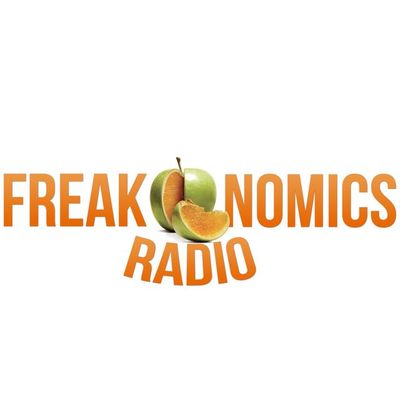
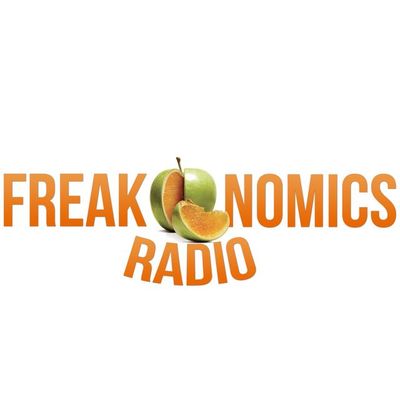
393. Can Britain Get Its “Great” Back?
<p>It used to be a global capital of innovation, invention, and exploration. Now it’s best known for its messy European divorce. We visit London to see if the British spirit of discovery is still alive. Guests include the mayor of London, undersea explorers, a time-use researcher, and a theoretical physicist who helped Liverpool win the Champions League. Dan Schreiber from <em>No Such Thing as a Fish</em> rides shotgun.</p>
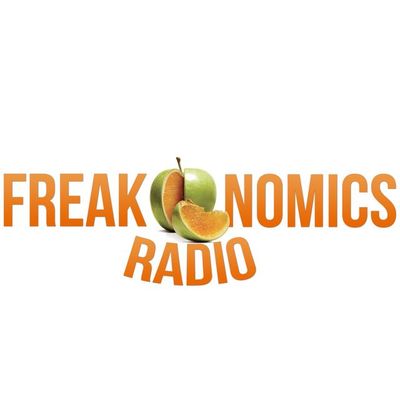
392. The Prime Minister Who Cried Brexit
<p>In 2016, David Cameron held a referendum on whether the U.K. should stay in the European Union. A longtime Euroskeptic, he nevertheless led the Remain campaign. So what did Cameron <em>really</em> want? We ask him that and much more — including why he left office as soon as his side lost and what he’d do differently if given another chance. (Hint: not much.)</p>
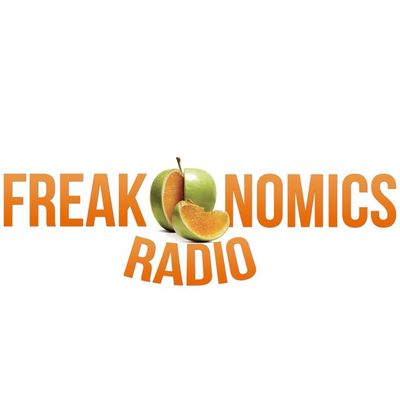

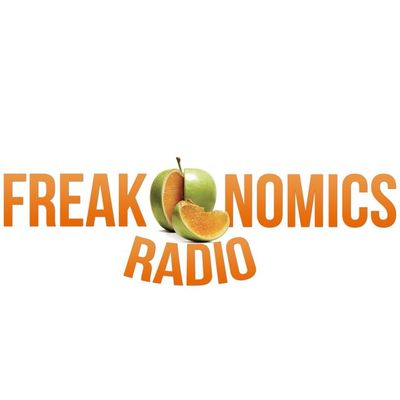
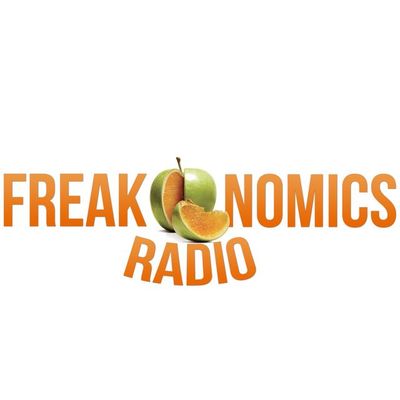
Yes, the Open Office Is Terrible — But It Doesn’t Have to Be (Rebroadcast)
<p>It began as a post-war dream for a more collaborative and egalitarian workplace. It has evolved into a nightmare of noise and discomfort. Can the open office be saved, or should we all just be working from home?</p>
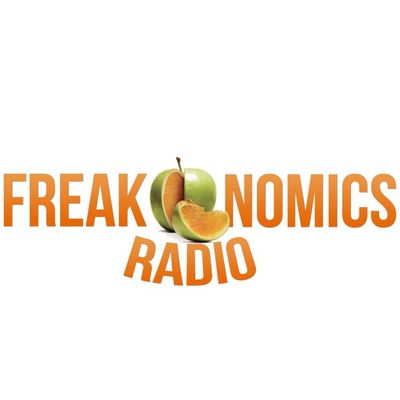
388. The Economics of Sports Gambling
<p>What happens when tens of millions of fantasy-sports players are suddenly able to bet real money on real games? We’re about to find out. A recent Supreme Court decision has cleared the way to bring an estimated $300 billion in black-market sports betting into the light. We sort out the winners and losers.</p>
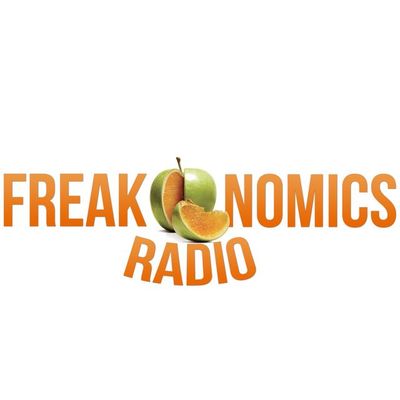
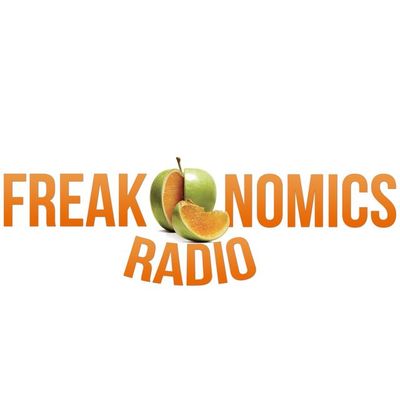
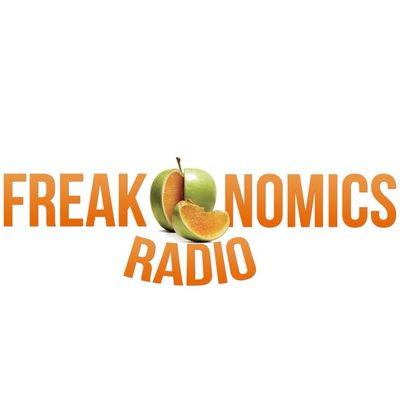
387. Hello, My Name Is Marijuana Pepsi!
<p>Research shows that having a distinctively black name doesn’t affect your economic future. But what is the day-to-day reality of living with such a name? Marijuana Pepsi Vandyck, a newly-minted Ph.D., is well-qualified to answer this question. Her verdict: the data don’t tell the whole story.</p>
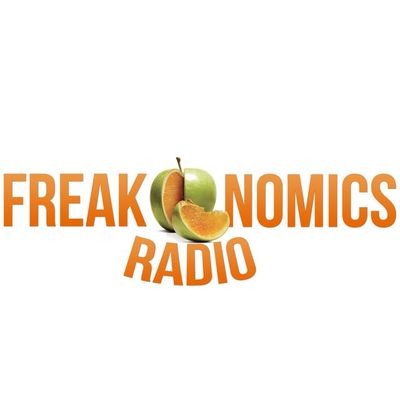
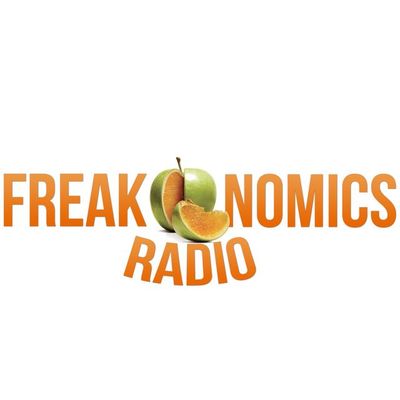
386. How the Supermarket Helped America Win the Cold War
<p>Aisle upon aisle of fresh produce, cheap meat, and sugary cereal — a delicious embodiment of free-market capitalism, right? Not quite. The supermarket was in fact the endpoint of the U.S. government’s battle for agricultural abundance against the U.S.S.R. Our farm policies were built to dominate, not necessarily to nourish — and we are still living with the consequences.</p>
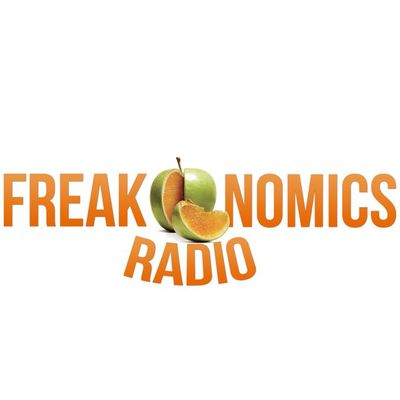
America’s Hidden Duopoly (Rebroadcast)
<p>We all know our political system is “broken” — but what if that’s not true? Some say the Republicans and Democrats constitute a wildly successful industry that has colluded to kill off competition, stifle reform, and drive the country apart. So what are you going to do about it?</p>

385. What Do Nancy Pelosi, Taylor Swift, and Serena Williams Have in Common?
<p>They — along with a great many other high-achieving women — were all once Girl Scouts. So was Sylvia Acevedo. Raised in a poor, immigrant family, she was told that “girls like her” didn’t go to college. But she did, and then became a rocket scientist and tech executive. Now she’s C.E.O. of the very organization she credits with shaping her life. Acevedo tells us how the Girl Scouts are trying to stay relevant, why they’re suing the Boy Scouts, and how they sell so many cookies.</p>
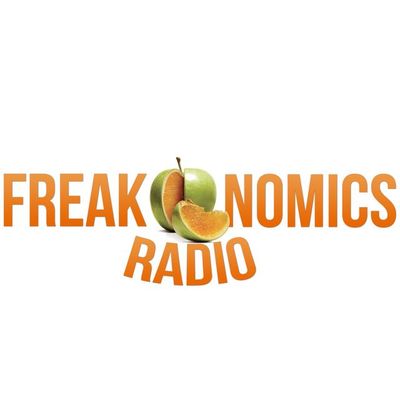
384. Abortion and Crime, Revisited
<p>The controversial theory linking <em>Roe v. Wade</em> to a massive crime drop is back in the spotlight as several states introduce abortion restrictions. Steve Levitt and John Donohue discuss their original research, the challenges to its legitimacy, and their updated analysis. Also: what this means for abortion policy, crime policy, and having intelligent conversations about contentious topics.</p>
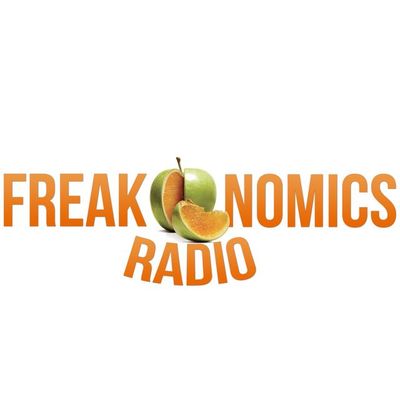
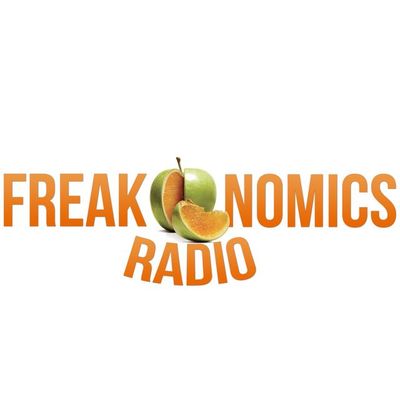

382. How Goes the Behavior-Change Revolution?
<p>An all-star team of behavioral scientists discovers that humans are stubborn (and lazy, and sometimes dumber than dogs). We also hear about binge drinking, humblebragging, and regrets. Recorded live in Philadelphia with guests including Richard Thaler, Angela Duckworth, Katy Milkman, and Tom Gilovich.</p>
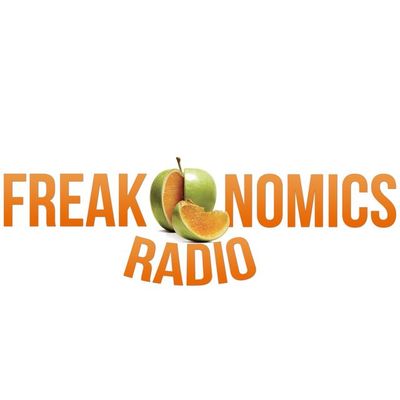
381. Long-Term Thinking in a Start-Up Town
<p>Recorded live in San Francisco. Guests include the keeper of a 10,000-year clock, the co-founder of Lyft, a pioneer in male birth control, a specialist in water security, and a psychology professor who is also a puppy. With co-host Angela Duckworth, fact-checker Mike Maughan, and the Freakonomics Radio Orchestra.</p>
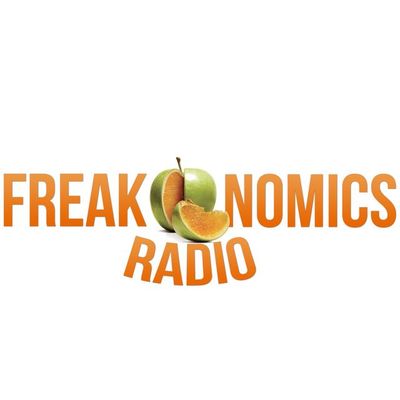
380. Notes From an Imperfect Paradise
<p>Recorded live in Los Angeles. Guests include Mayor Eric Garcetti, the “Earthquake Lady,” the head of the Port of L.A., and a scientist with NASA’s Planetary Protection team. With co-host Angela Duckworth, fact-checker Mike Maughan, and the worldwide debut of Luis Guerra and the Freakonomics Radio Orchestra.</p>
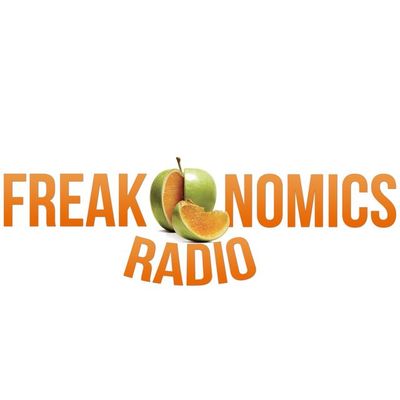
379. How to Change Your Mind
<p>There are a lot of barriers to changing your mind: ego, overconfidence, inertia — and cost. Politicians who flip-flop get mocked; family and friends who cross tribal borders are shunned. But shouldn’t we be <em>encouraging</em> people to change their minds? And how can we get better at it ourselves?</p>
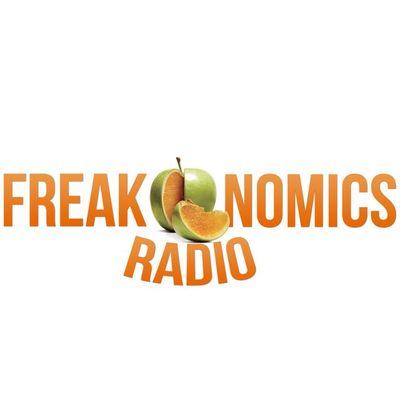
Here’s Why All Your Projects Are Always Late — and What to Do About It (Rebroadcast)
<p>Whether it’s a giant infrastructure plan or a humble kitchen renovation, it’ll inevitably take way too long and cost way too much. That’s because you suffer from “the planning fallacy.” (You also have an “optimism bias” and a bad case of overconfidence.) But don’t worry: we’ve got the solution.</p>
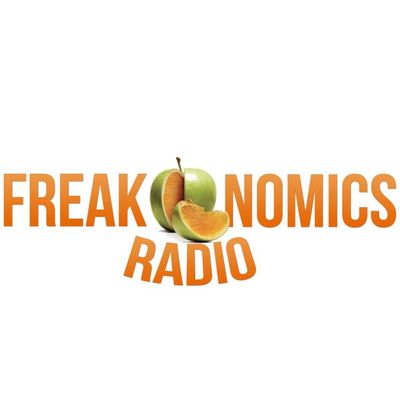
378. 23andMe (and You, and Everyone Else)
<p>The revolution in home DNA testing is giving consumers important, possibly life-changing information. It’s also building a gigantic database that could lead to medical breakthroughs. But how will you deal with upsetting news? What if your privacy is compromised? And are you prepared to have your DNA monetized? We speak with Anne Wojcicki, founder and C.E.O. of 23andMe.</p>
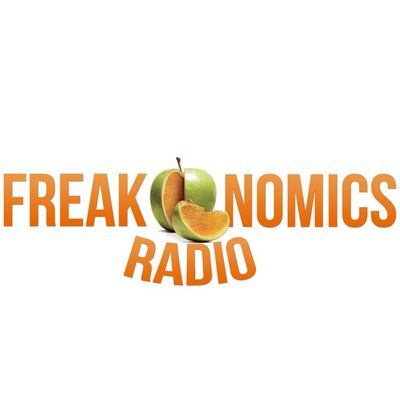
377. The $1.5 Trillion Question-How to fix student loan debt?
<p>As the cost of college skyrocketed, it created a debt burden that’s putting a drag on the economy. One possible solution: shifting the risk of debt away from students and onto investors looking for a cut of the graduates’ earning power.</p>
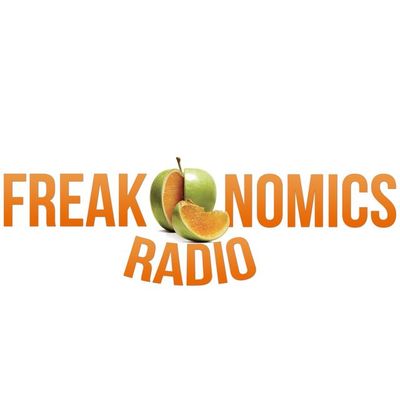
376. The Data-Driven Guide to Sane Parenting
<p>Humans have been having kids forever, so why are modern parents so bewildered? The economist Emily Oster marshals the evidence on the most contentious topics — breastfeeding and sleep training, vaccines and screen time — and tells her fellow parents to calm the heck down.</p>
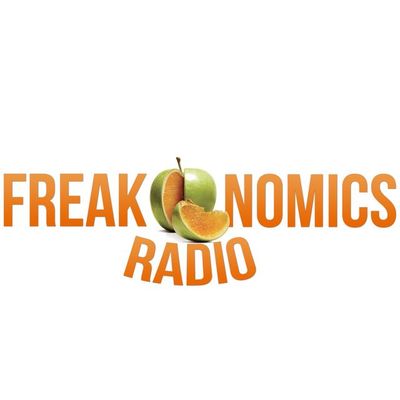
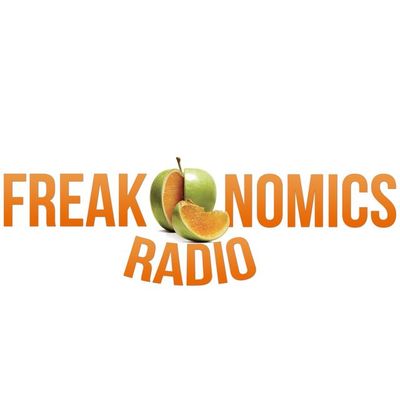
375. The Most Interesting Fruit in the World
<p>The banana used to be a luxury good. Now it’s the most popular fruit in the U.S. and elsewhere. But the production efficiencies that made it so cheap have also made it vulnerable to a deadly fungus that may wipe out the one variety most of us eat. Scientists do have a way to save it — but will Big Banana let them?</p>
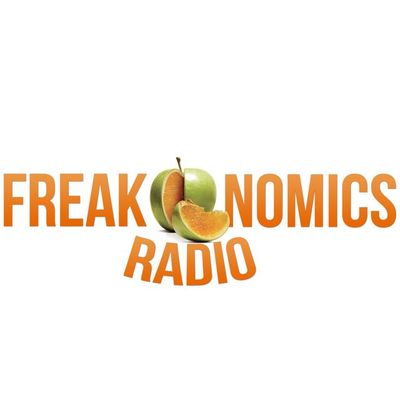
374. How Spotify Saved the Music Industry (But Not Necessarily Musicians)
<p>Daniel Ek, a 23-year-old Swede who grew up on pirated music, made the record labels an offer they couldn’t refuse: a legal platform to stream all the world’s music. Spotify reversed the labels’ fortunes, made Ek rich, and thrilled millions of music fans. But what has it done for all those musicians stuck in the long tail?</p>
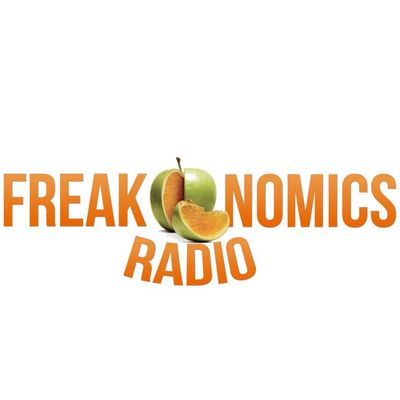
373. Why Rent Control Doesn’t Work
<p>As cities become ever-more expensive, politicians and housing advocates keep calling for rent control. Economists think that’s a terrible idea. They say it helps a small (albeit noisy) group of renters, but keeps overall rents artificially high by disincentivizing new construction. So what happens next?</p>
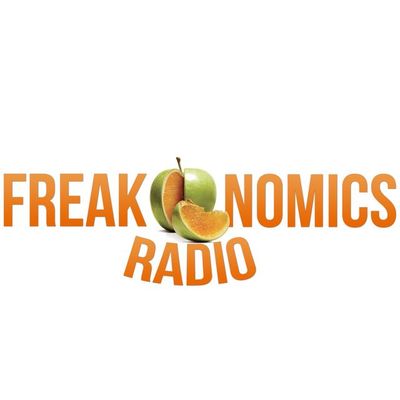
372. Freakonomics Radio Live: “Would You Eat a Piece of Chocolate Shaped Like Dog Poop?”
<p>What your disgust level says about your politics, how Napoleon influenced opera, why New York City’s subways may finally run on time, and more. Five compelling guests tell Stephen Dubner, co-host Angela Duckworth, and fact-checker Jody Avirgan lots of things they didn’t know.</p>
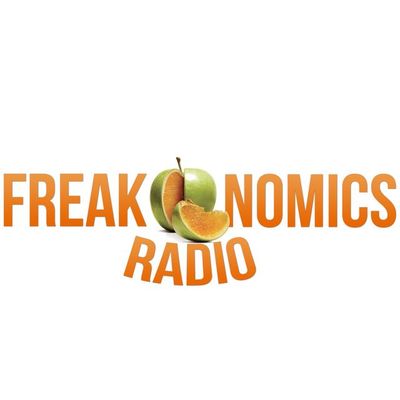
Why You Shouldn’t Open a Restaurant (Update)
<p>Kenji Lopez-Alt became a rock star of the food world by bringing science into the kitchen in a way that everyday cooks can appreciate. Then he dared to start his own restaurant — and discovered problems that even science can’t solve.</p>
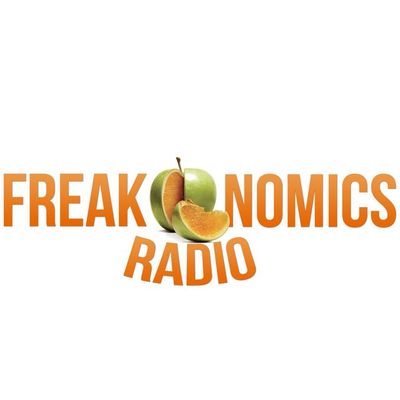
371. A Free-Trade Democrat in the Trump White House
<p>For years, Gary Cohn thought he’d be the next C.E.O. of Goldman Sachs. Instead, he became the “adult in the room” in a chaotic administration. Cohn talks about the fights he won, the fights he lost, and the fights he was no longer willing to have. Also: why he and Trump are still on speaking terms even after he reportedly called the president “a professional liar.”</p>
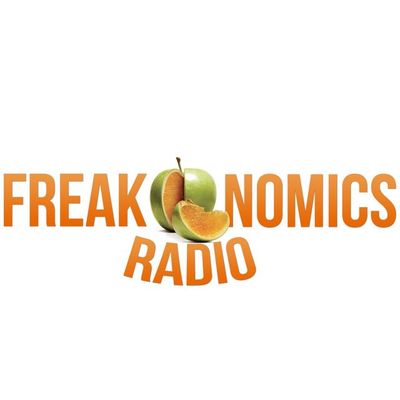
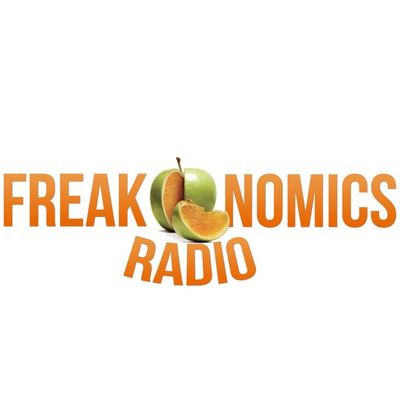
369. A Good Idea Is Not Good Enough
<p>Whether you’re building a business or a cathedral, execution is everything. We ask artists, scientists, and inventors how they turned ideas into reality. And we find out why it’s so hard for a group to get things done — and what you can do about it. (Ep. 4 of the <a href="http://freakonomics.com/how-to-be-creative/" target="_blank">“How to Be Creative” series</a>.)</p>
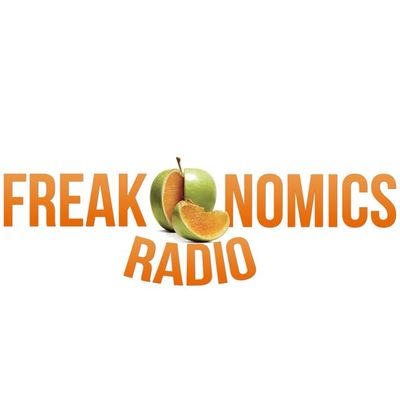
368. Where Do Good Ideas Come From?
<p>Whether you’re mapping the universe, hosting a late-night talk show, or running a meeting, there are a lot of ways to up your idea game. Plus: the truth about brainstorming. (Ep. 3 of the <a href="http://freakonomics.com/how-to-be-creative/" target="_blank">“How to Be Creative” series</a>.)</p>
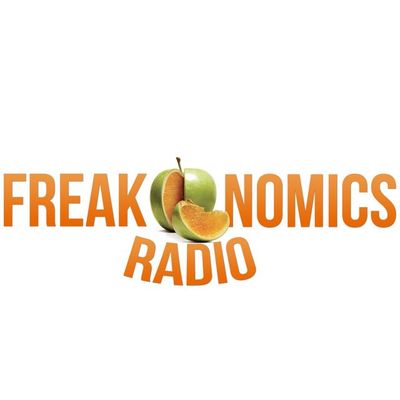
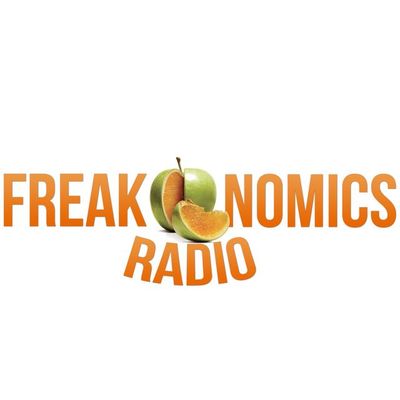
366. This Economist Predicted the Last Crisis. What’s the Next One?
<p>In 2005, Raghuram Rajan said the financial system was at risk “of a catastrophic meltdown.” After stints at the I.M.F. and India’s central bank, he sees another potential crisis — and he offers a solution. Is it stronger governments? Freer markets? Rajan’s answer: neither.</p>
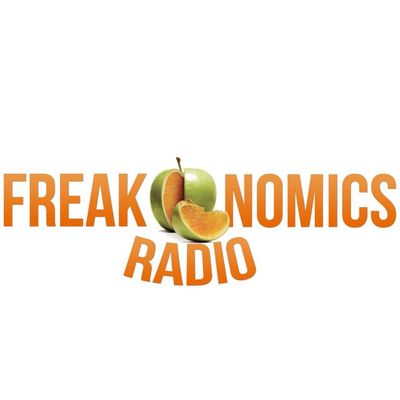
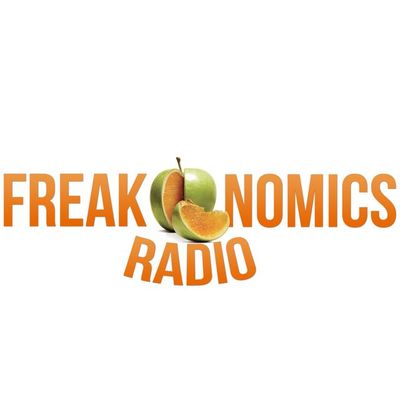
365. Not Just Another Labor Force
<p>If you think talent and hard work give top athletes all the leverage to succeed, think again. As employees in the Sports-Industrial Complex, they’ve got a tight earnings window, a high injury rate, little choice in where they work — and a very early forced retirement. (Ep. 6 of <a href="http://freakonomics.com/hidden-sports/" target="_blank">“The Hidden Side of Sports” series</a>.)</p>
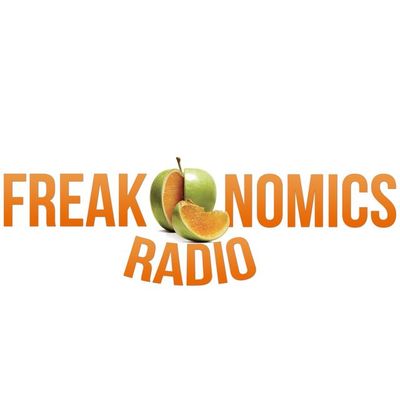
Extra: Mark Cuban Full Interview
<p>A conversation with the <em>Shark Tank</em> star, entrepreneur, and Dallas Mavericks owner recorded for the <em>Freakonomics Radio</em> series <a href="http://freakonomics.com/hidden-sports/" target="_blank">“The Hidden Side of Sports.”</a></p>
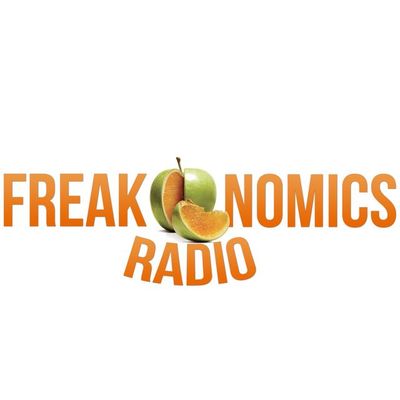
364. Inside the Sports-Industrial Complex
<p>For most of us, the athletes are what make sports interesting. But if you own the team or run the league, your players are essentially very expensive migrant workers who eat into your profits. We talk to N.F.L., N.B.A., and U.F.C. executives about labor costs, viewership numbers, legalized gambling, and the rise of e-sports. (Ep. 5 of <a href="http://freakonomics.com/hidden-sports/" target="_blank">“The Hidden Side of Sports” series</a>.)</p>
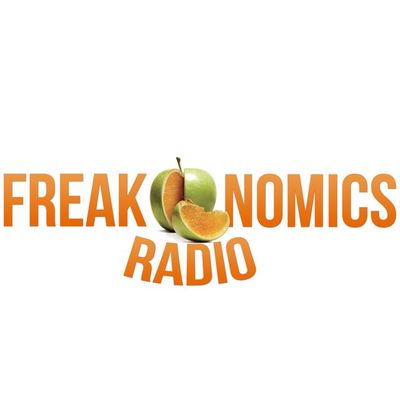
Extra: Mark Teixeira Full Interview
<p>A conversation with former Major League Baseball player and current ESPN analyst Mark Teixeira, recorded for the <em>Freakonomics Radio</em> series <a href="http://freakonomics.com/hidden-sports/" target="_blank">“The Hidden Side of Sports.”</a></p>
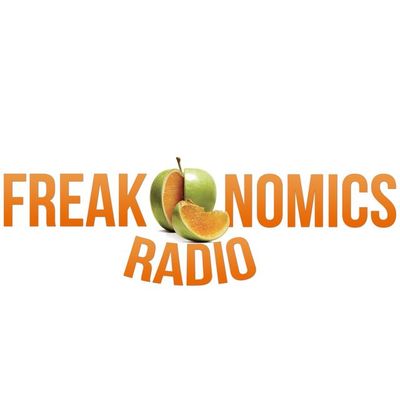
363. Think Like a Winner
<p>Great athletes aren’t just great at the physical stuff. They’ve also learned how to handle pressure, overcome fear, and stay focused. Here’s the good news: you don’t have to be an athlete to use what they know. (Ep. 4 of <a href="http://freakonomics.com/hidden-sports/" target="_blank">“The Hidden Side of Sports” series</a>.)</p>

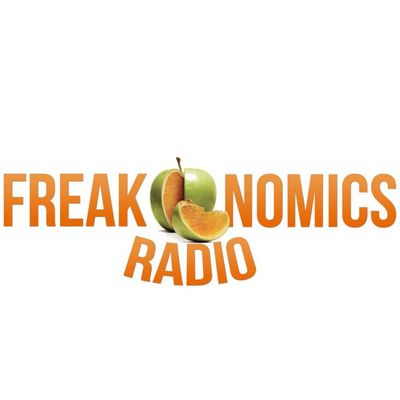
362. Why Is This Man Running for President?
<p>In the American Dream sweepstakes, Andrew Yang was a pretty big winner. But for every winner, he came to realize, there are thousands upon thousands of losers — a “war on normal people,” he calls it. Here’s what he plans to do about it.</p>
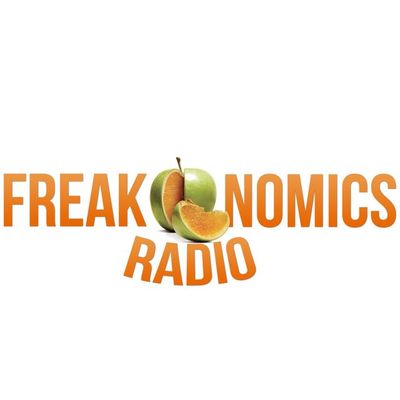
How to Be Happy (Rebroadcast)
<p>The U.N.’s World Happiness Report — created to curtail our unhealthy obsession with G.D.P. — is dominated every year by the Nordic countries. We head to Denmark to learn the secrets of this happiness epidemic (and to see if we should steal them).</p>
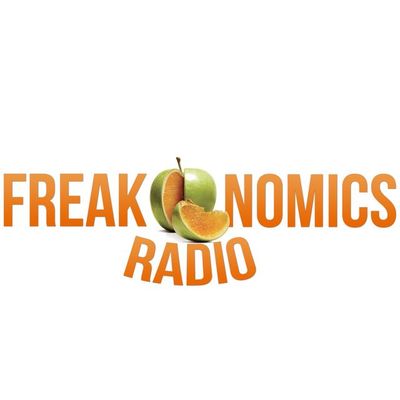
How to Win Games and Beat People (Rebroadcast)
<p>Games are as old as civilization itself, and some people think they have huge social value regardless of whether you win or lose. Tom Whipple is not one of those people. That’s why he consulted an army of preposterously overqualified experts to find the secret to winning any game.</p>
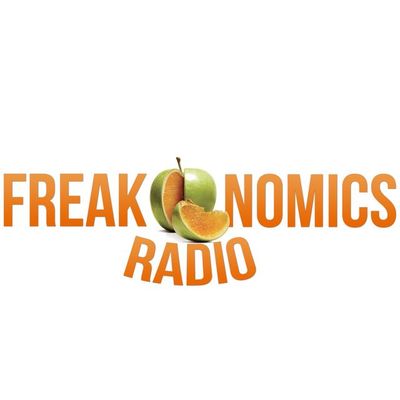
People Aren’t Dumb. The World Is Hard. (Rebroadcast)
<p>You wouldn’t think you could win a Nobel Prize for showing that humans tend to make irrational decisions. But that’s what Richard Thaler has done. The founder of behavioral economics describes his unlikely route to success; his reputation for being lazy; and his efforts to fix the world — one nudge at a time.</p>
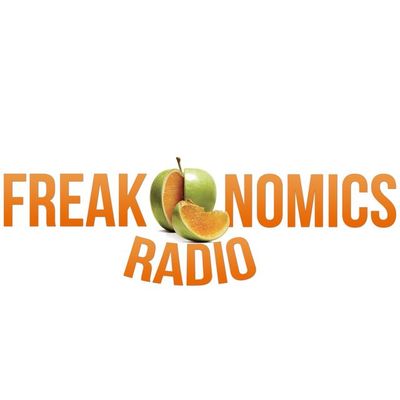
Freakonomics Radio Live: “We Thought of a Way to Manipulate Your Perception of Time.”
<p>We learn how to be less impatient, how to tell fake news from real, and the simple trick that nurses used to make better predictions than doctors. Journalist Manoush Zomorodi co-hosts; our real-time fact-checker is the author and humorist A.J. Jacobs.</p>
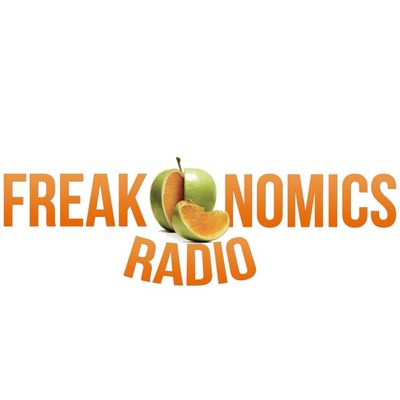
Freakonomics Radio Live: “The World’s a Mess. But Oysters, They Hold it Down.”
<p>Celebrity chef Alex Guarnaschelli joins us to co-host an evening of delicious fact-finding: where a trillion oysters went, whether a soda tax can work, and how beer helped build an empire. <em>Washington Post</em> columnist Alexandra Petri is our real-time fact-checker.</p>
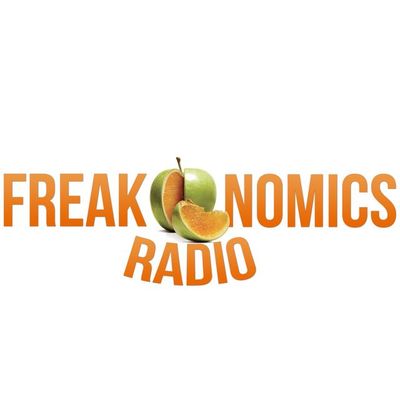
Freakonomics Radio Live: “Where Does Fear Live in the Brain?”
<p>Our co-host is comedian Christian Finnegan, and we learn: the difference between danger and fear; the role of clouds in climate change; and why (and when) politicians are bad at math. <em>Washington Post</em> columnist Alexandra Petri is our real-time fact-checker.</p>
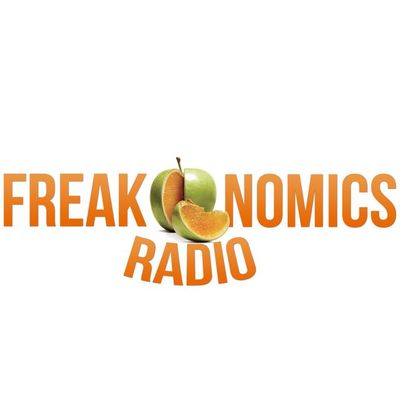
361. Freakonomics Radio Live: “Jesus Could Have Been a Pigeon.”
<p>Our co-host is <em>Grit</em> author Angela Duckworth, and we learn fascinating, Freakonomical facts from a parade of guests. For instance: what we all get wrong about Darwin; what an iPod has in common with the “hell ant”; and how a “memory athlete” memorizes a deck of cards. Mike Maughan is our real-time fact-checker.</p>
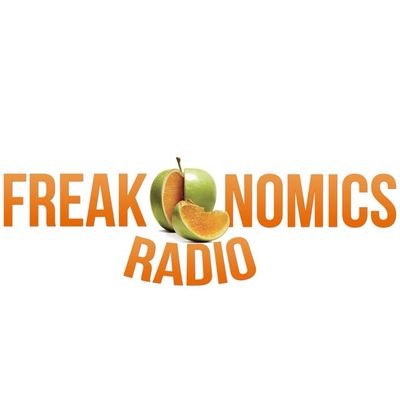
360. Is the Protestant Work Ethic Real?
<p>In the early 20th century, Max Weber argued that Protestantism created wealth. Finally, there are data to prove if he was right. All it took were some missionary experiments in the Philippines and a clever map-matching trick that goes back to 16th-century Germany.</p>
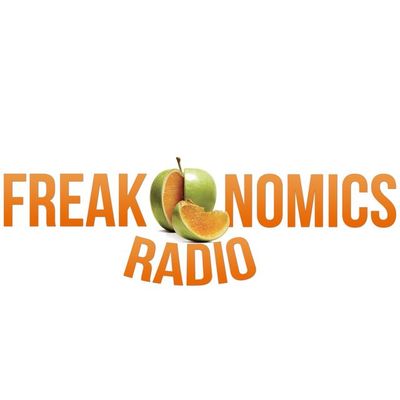
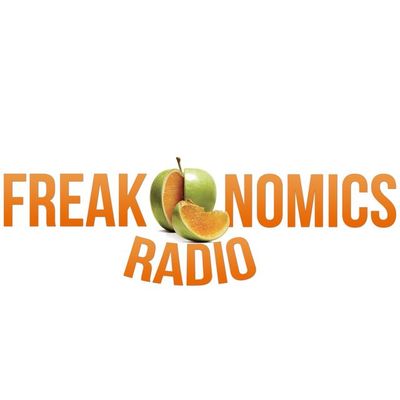
There’s a War on Sugar. Is It Justified? (Rebroadcast)
<p>Some people argue that sugar should be regulated, like alcohol and tobacco, on the grounds that it’s addictive and toxic. How much sense does that make? We hear from a regulatory advocate, an evidence-based skeptic, a former F.D.A. commissioner — and the organizers of Milktoberfest.</p>
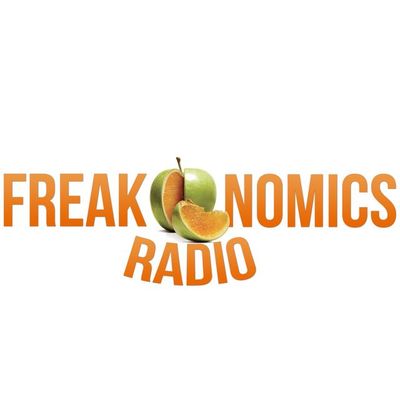
358. Yes, the Open Office Is Terrible — But It Doesn’t Have to Be
<p>It began as a post-war dream for a more collaborative and egalitarian workplace. It has evolved into a nightmare of noise and discomfort. Can the open office be saved, or should we all just be working from home?</p>
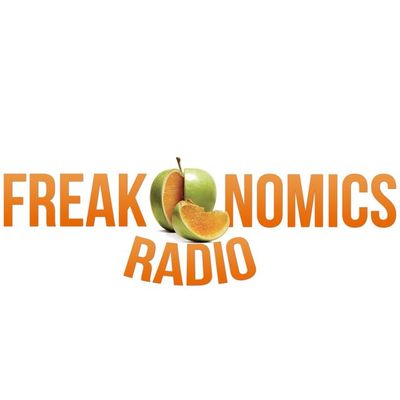
357. Can an Industrial Giant Become a Tech Darling?
<p>The Ford Motor Company is ditching its legacy sedans, doubling down on trucks, and trying to steer its stock price out of a long skid. But C.E.O. Jim Hackett has even bigger plans: to turn a century-old automaker into the nucleus of a “transportation operating system.” Is Hackett just whistling past the graveyard, or does he see what others can’t?</p>
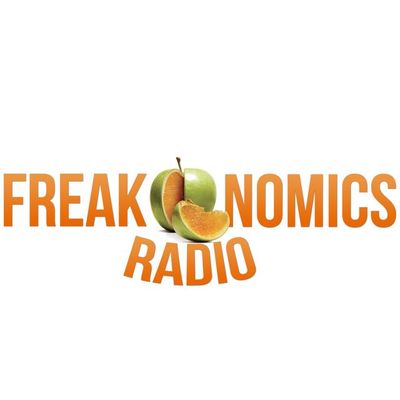
356. America’s Hidden Duopoly
<p>We all know our political system is “broken” — but what if that’s not true? Some say the Republicans and Democrats constitute a wildly successful industry that has colluded to kill off competition, stifle reform, and drive the country apart. So what are you going to do about it?</p>
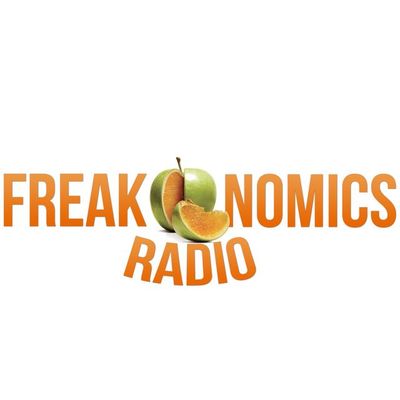
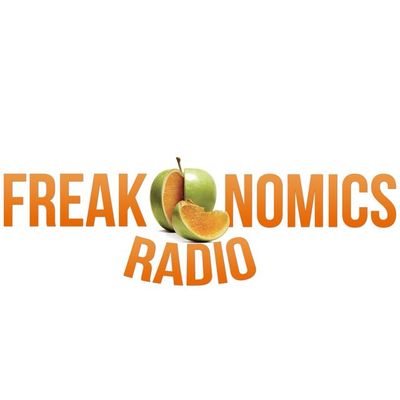
355. Where Does Creativity Come From (and Why Do Schools Kill It Off)?
<p>Family environments and “diversifying experiences” (including the early death of a parent); intrinsic versus extrinsic motivations; schools that value assessments, but don't assess the things we value. All these elements factor into the long, mysterious march towards a creative life. To learn more, we examine the early years of Ai Weiwei, Rosanne Cash, Elvis Costello, Maira Kalman, Wynton Marsalis, Jennifer Egan, and others. (Ep. 2 of the “How to Be Creative” series.)</p>
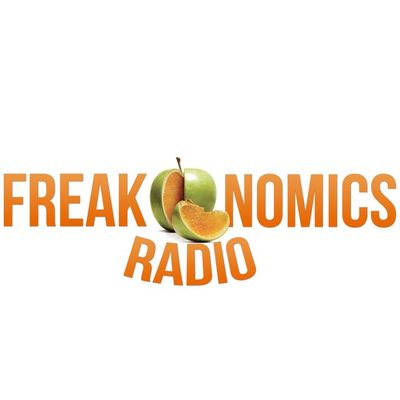
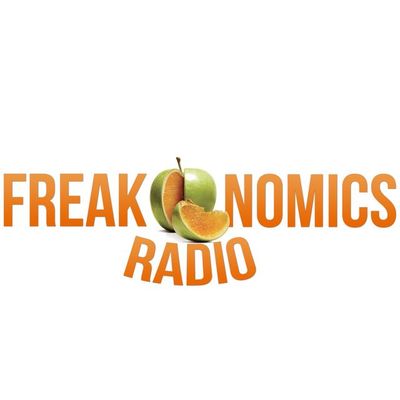
354. How to Be Creative
<p>There are thousands of books on the subject, but what do we actually know about creativity? In this new series, we talk to the researchers who study it as well as artists, inventors, and pathbreakers who live it every day: Ai Weiwei, James Dyson, Elvis Costello, Jennifer Egan, Rosanne Cash, Wynton Marsalis, Maira Kalman, and more. (Ep. 1 of the “How to Be Creative” series.)</p>
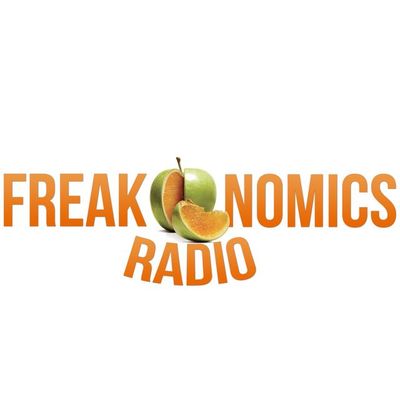
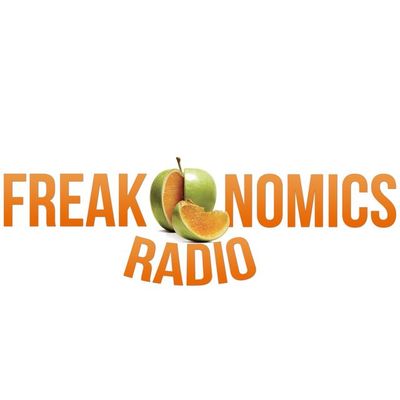
352. Can This Man Stop a Trade War?
<p>The World Trade Organization is the referee for 164 trading partners, each with their own political and economic agendas. Lately, those agendas have gotten more complicated — especially with President Trump’s tariff blitz. Roberto Azevêdo, head of the W.T.O., tells us why it’s so hard to balance protectionism and globalism; what’s really behind the loss of jobs; and what he’d say to Trump (if he ever gets the chance).</p>
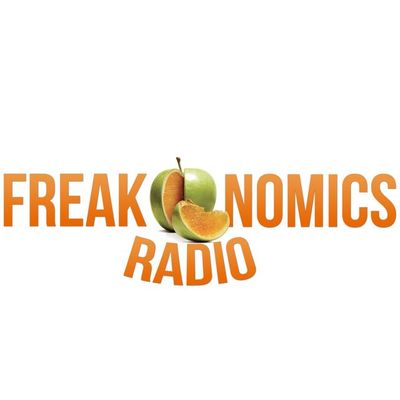
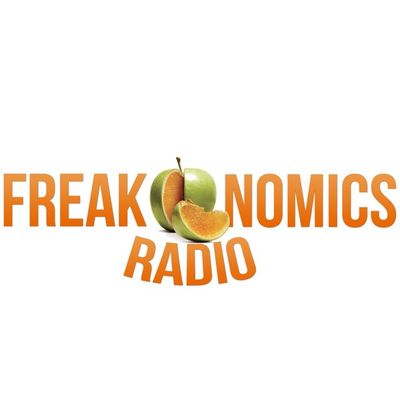
351. Here’s Why You’re Not an Elite Athlete
<p>There are a lot of factors that go into greatness, many of which are not obvious. A variety of Olympic and professional athletes tell us how they made it and what they sacrificed to get there. And if you can identify the sport most likely to get a kid into a top college — well then, touché! (Ep. 3 of “<a href="http://freakonomics.com/hidden-sports" target="_blank">The Hidden Side of Sports</a>” series.)</p>
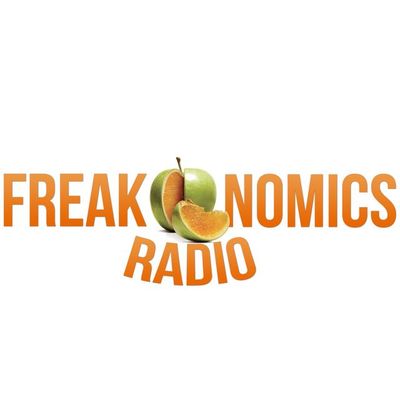
Extra: Full Interviews With Jimmy Garoppolo, Joe Staley, Mike McGlinchey, and Kyle Juszczyk
<p>Stephen Dubner’s conversations with members of the San Francisco 49ers offense, recorded for <em>Freakonomics Radio</em> episode No. 350, part of the “<a href="http://freakonomics.com/hidden-sports" target="_blank">Hidden Side of Sports</a>” series.</p>

350. How to Stop Being a Loser
<p>The San Francisco 49ers, one of the most valuable sports franchises in the world, also used to be one of the best. But they’ve been losing lately — a lot — and one of their players launched a controversy by taking a knee during the national anthem. So why is everyone there so optimistic? To find out, we speak with the team’s owner, head coach, general manager, and star players, including their new $137.5 million quarterback. (Ep. 2 of “The Hidden Side of Sports” series.)</p>
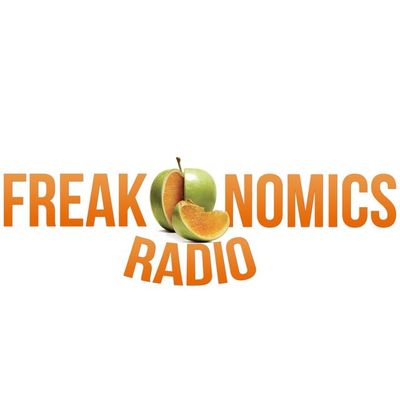
349. How Sports Became Us
<p>Dollar-wise, the sports industry is surprisingly small, about the same size as the cardboard-box industry. So why does it make so much noise? Because it reflects — and often amplifies — just about every political, economic, and social issue of the day. Introducing a new series, “The Hidden Side of Sports.”</p>
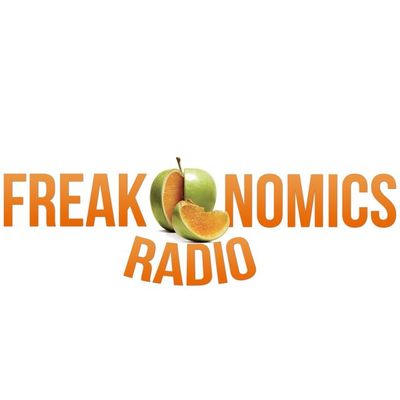
348. Is the Government More Entrepreneurial Than You Think?
<p>We all know the standard story: our economy would be more dynamic if only the government would get out of the way. The economist Mariana Mazzucato says we’ve got that story backward. She argues that the government, by funding so much early-stage research, is hugely responsible for big successes in tech, pharma, energy, and more. But the government also does a terrible job in claiming credit — and, more important, getting a return on its investment.</p>

347. Why You Shouldn’t Open a Restaurant
<p>Kenji Lopez-Alt became a rock star of the food world by bringing science into the kitchen in a way that everyday cooks can appreciate. Then he dared to start his own restaurant — and discovered problems that even science can’t solve.</p>
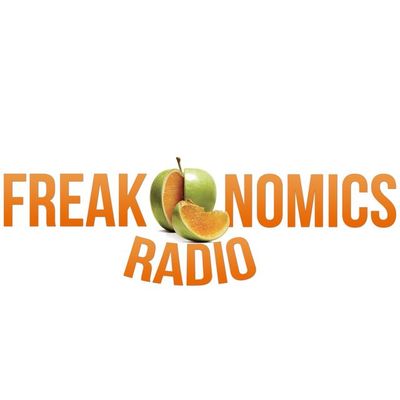
346. Two (Totally Opposite) Ways to Save the Planet
<p>The environmentalists say we’re doomed if we don’t drastically reduce consumption. The technologists say that human ingenuity can solve just about any problem. A debate that’s been around for decades has become a shouting match. Is <em>anyone</em> right?</p>
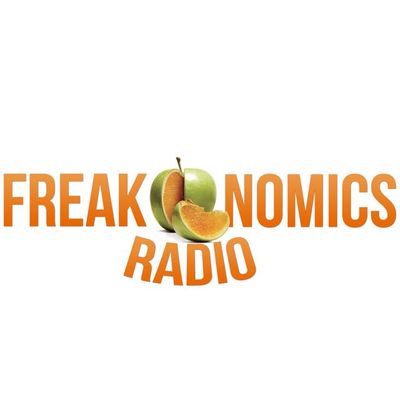
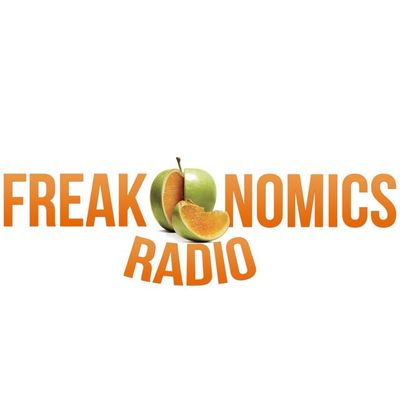
344. Who Decides How Much a Life Is Worth?
<p>After every mass shooting or terrorist attack, victims and survivors receive a huge outpouring of support — including a massive pool of compensation money. How should that money be allocated? We speak with the man who’s done that job after many tragedies, including 9/11. The hard part, it turns out, isn’t attaching a dollar figure to each victim; the hard part is acknowledging that dollars can’t heal the pain.</p>
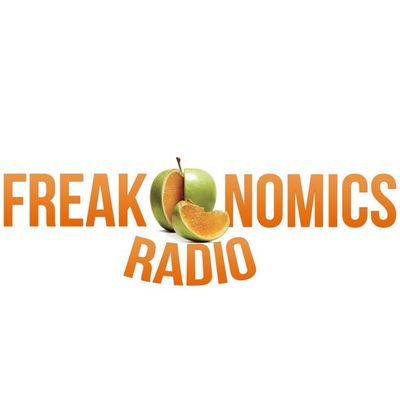
A Conversation With PepsiCo C.E.O. Indra Nooyi (Ep. 316 Update)
<p>One of the world’s biggest and best-known companies just announced that its C.E.O. would be stepping down in the fall. We interviewed her as part of our series “The Secret Life of a C.E.O.," and we thought you might like to hear that episode again, or for the first time if you missed it back then.</p>
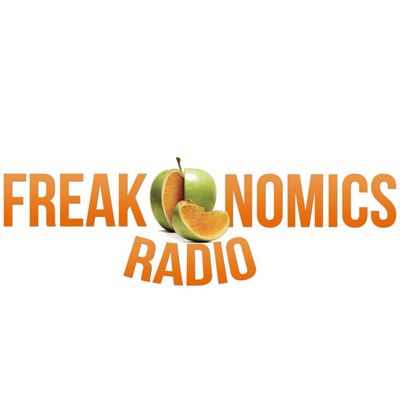
343. An Astronaut, a Catalan, and Two Linguists Walk Into a Bar…
<p>In this live episode of “Tell Me Something I Don’t Know,” we learn why New York has skinny skyscrapers, how to weaponize water, and what astronauts talk about in space. Joining Stephen J. Dubner as co-host is the linguist John McWhorter; Bari Weiss (The New York Times) is the real-time fact-checker.</p>
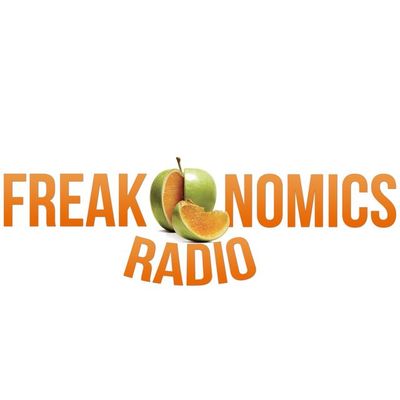
342. Has Lance Armstrong Finally Come Clean?
<p>He was once the most lionized athlete on the planet, with seven straight Tour de France wins and a victory over cancer too. Then the doping charges caught up with him. When he finally confessed to Oprah, he admits, “it didn’t go well at all.” That’s because he wasn’t actually contrite yet. Now, five years later, he says he is. Do you believe him?</p>
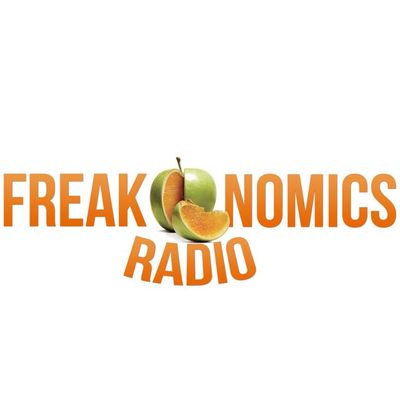
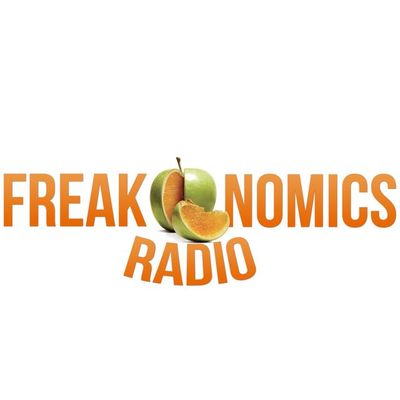
340. People Aren’t Dumb. The World Is Hard.
<p>You wouldn’t think you could win a Nobel Prize for showing that humans tend to make irrational decisions. But that’s what Richard Thaler has done. The founder of behavioral economics describes his unlikely route to success; his reputation for being lazy; and his efforts to fix the world — one nudge at a time.</p>
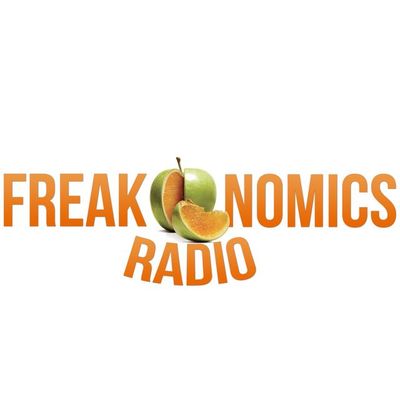
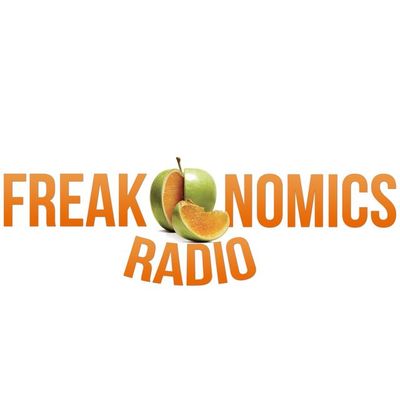
In Praise of Incrementalism (Rebroadcast)
<p>What do Renaissance painting, civil-rights movements, and Olympic cycling have in common? In each case, huge breakthroughs came from taking tiny steps. In a world where everyone is looking for the next moonshot, we shouldn’t ignore the power of incrementalism.</p>
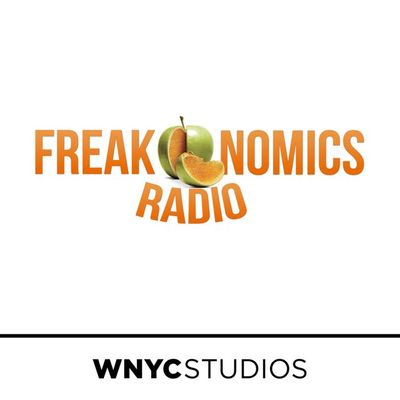
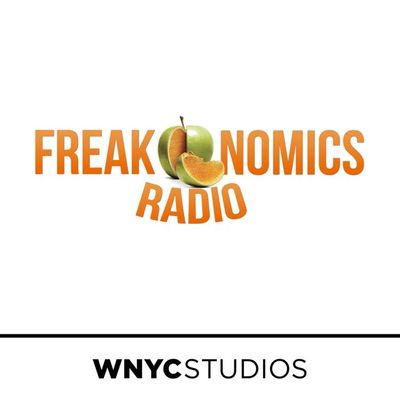
338. How to Catch World Cup Fever
<p>For soccer fans, it's easy. For the rest of us? Not so much, especially since the U.S. team didn't qualify. So here's what to watch for even if you have no team to root for. Because the World Cup isn't just a gargantuan sporting evént; it's a microcosm of human foibles and (yep) economic theory brought to life.</p>
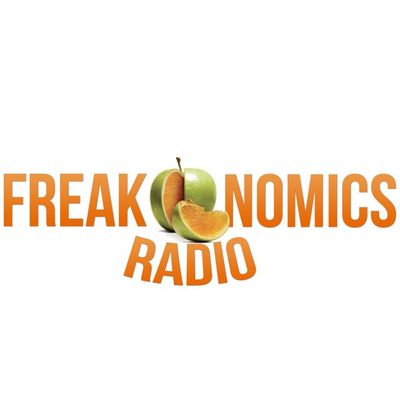
337. How to Build a Smart City
<p>We are in the midst of a historic (and wholly unpredicted) rise in urbanization. But it's hard to retrofit old cities for the 21st century. Enter Dan Doctoroff. The man who helped modernize New York City — and tried to bring the Olympics there — is now C.E.O. of a Google-funded startup that is building, from scratch, the city of the future.</p>
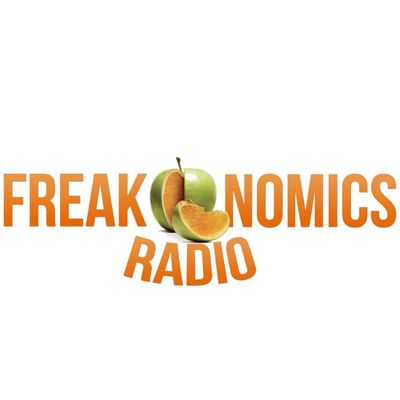
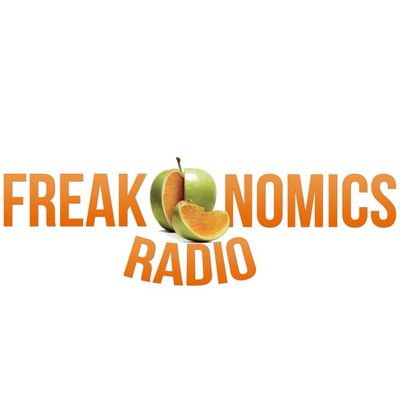
336. The Most Vilified Industry in America Is Also the Most Charitable
<p>Pharmaceutical firms donate an enormous amount of their products (and some cash too). But it doesn't seem to be helping their reputation. We ask Pfizer's generosity chief why the company gives so much, who it really helps, and whether all this philanthropy is just corporate whitewashing.</p>
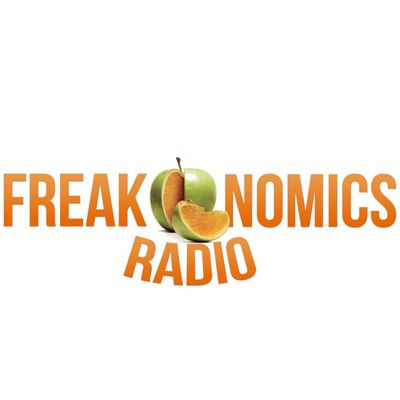
335. Does Doing Good Give You License to Be Bad?
<p>Corporate Social Responsibility programs can attract better job applicants who'll work for less money. But they also encourage employees to misbehave. Don't laugh — you too probably engage in “moral licensing,” even if you don't know it.</p>
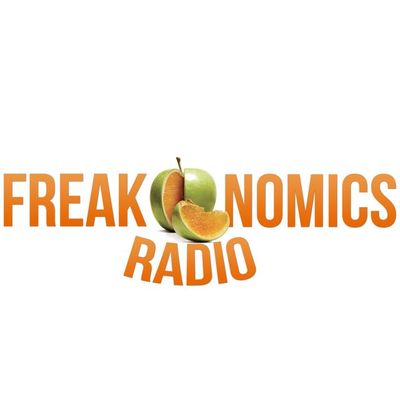
334. 5 Psychology Terms You’re Probably Misusing
<p>We all like to throw around terms that describe human behavior — “bystander apathy” and “steep learning curve” and “hard-wired.” Most of the time, they don't actually mean what we think they mean. But don't worry — the experts are getting it wrong, too.</p>
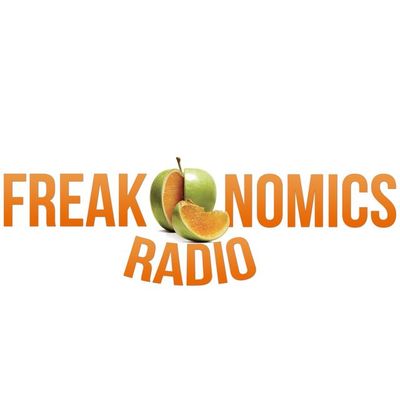
Evolution, Accelerated (Rebroadcast)
<p>A breakthrough in genetic technology has given humans more power than ever to change nature. It could help eliminate hunger and disease; it could also lead to the sort of dystopia we used to only read about in sci-fi novels. So what happens next?</p>
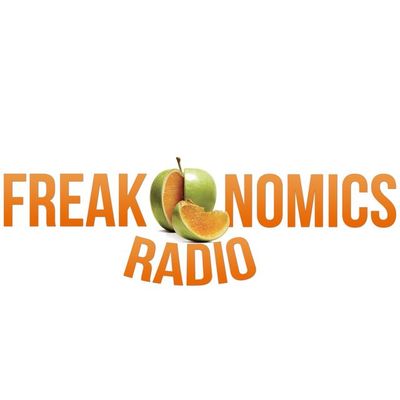
333. The Most Ambitious Thing Humans Have Ever Attempted
<p>Sure, medical progress has been astounding. But today the U.S. spends more on healthcare than any other country, with so-so outcomes. Atul Gawande — cancer surgeon, public-health researcher, and best-selling author — has some simple ideas for treating a painfully complex system.</p>
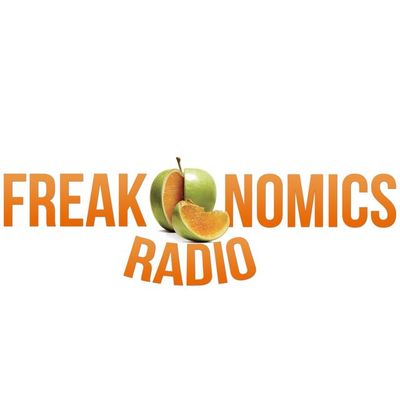

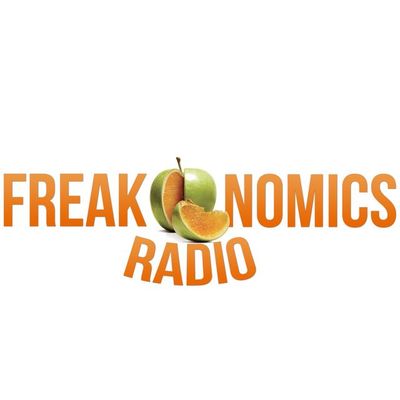
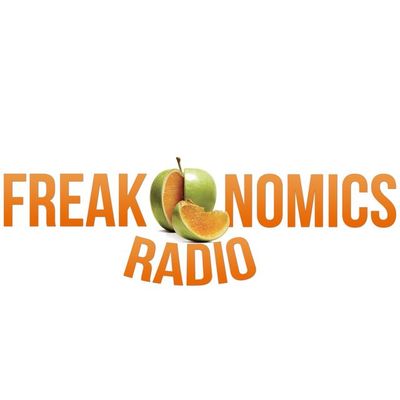
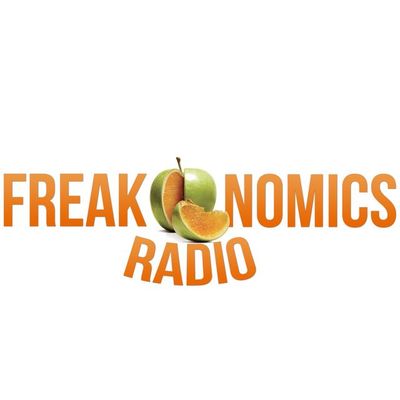
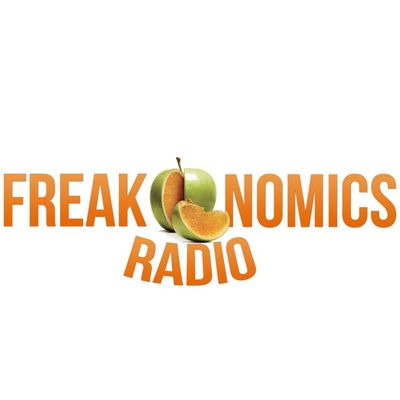
Everything You Always Wanted to Know About Money (But Were Afraid to Ask) (Rebroadcast)
<p>The bad news: roughly 70 percent of Americans are financially illiterate. The good news: all the important stuff can fit on one index card. Here's how to become your own financial superhero.</p>
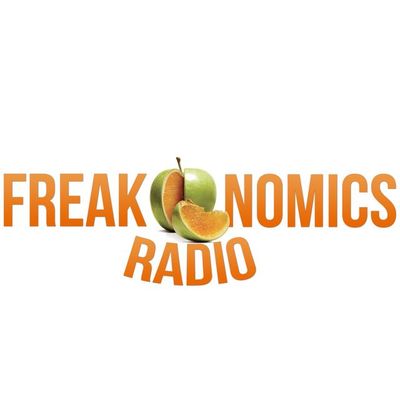
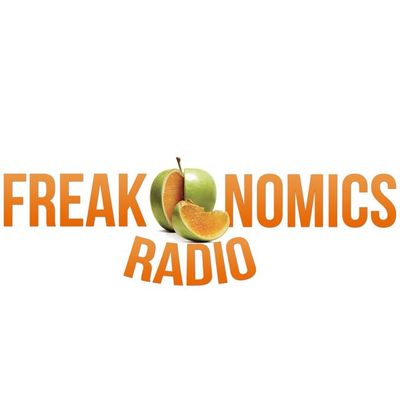
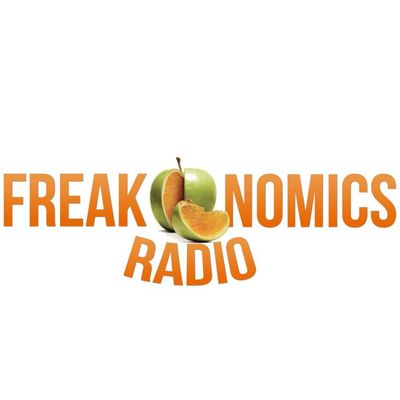

325. How to Train Your Dragon Child
<p>Every 12 years, there's a spike in births among certain communities across the globe, including the U.S. Why? Because the Year of the Dragon, according to Chinese folk belief, confers power, fortune, and more. We look at what happens to Dragon babies when they grow up, and why timing your kid's birth based on the zodiac isn't as ridiculous it sounds.</p>

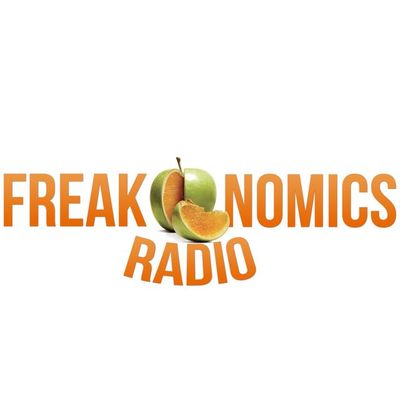
323. Here’s Why All Your Projects Are Always Late — and What to Do About It
<p>Whether it's a giant infrastructure plan or a humble kitchen renovation, it'll inevitably take way too long and cost way too much. That's because you suffer from “the planning fallacy.” (You also have an “optimism bias” and a bad case of overconfidence.) But don't worry: we've got the solution.</p>
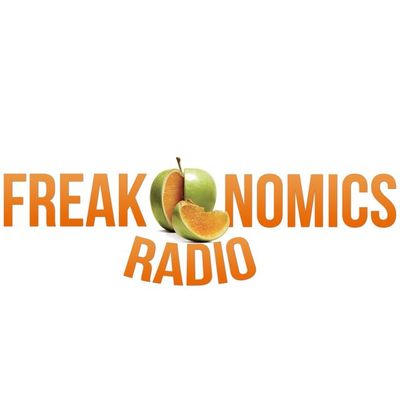
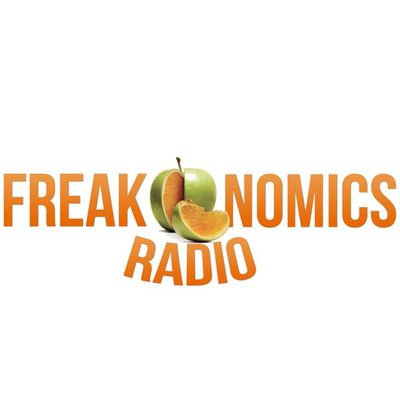
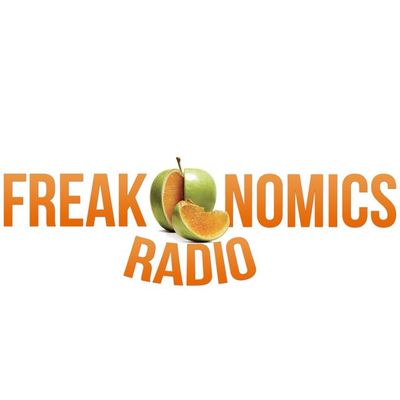
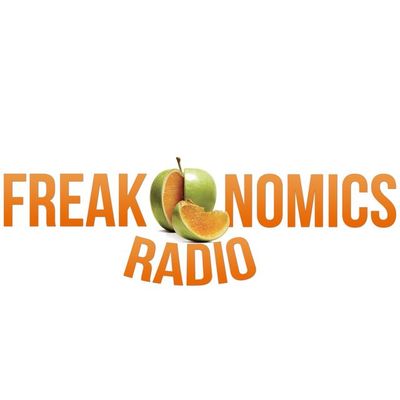
320. Letting Go
<p>If you're a C.E.O., there are a lot of ways to leave your job, from abrupt firing to carefully planned succession (which may still go spectacularly wrong). In this final episode of our "Secret Life of a C.E.O." series, we hear those stories and many more. Also: what happens when you no longer have a corner office to go to — and how will you spend all that money?</p>
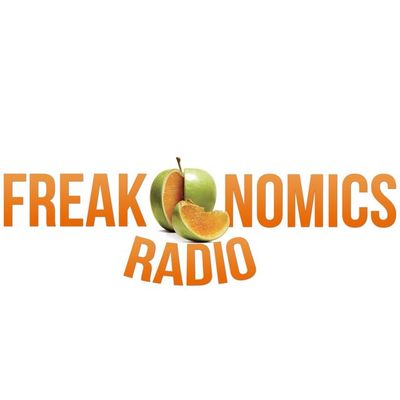
319. After the Glass Ceiling, a Glass Cliff
<p>Only 5 percent of Fortune 500 companies are run by women. Why? Research shows that female executives are more likely to be put in charge of firms that are already in crisis. Are they being set up to fail? (Part 5 of a special series, "The Secret Life of C.E.O.'s.")</p>
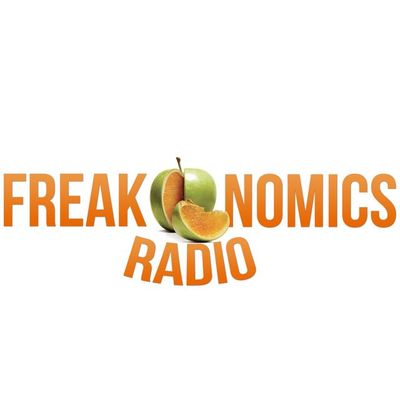
318. It’s Your Problem Now
<p>No, it's not your fault the economy crashed. Or that consumer preferences changed. Or that new technologies have blown apart your business model. But if you're the C.E.O., it is your problem. So what are you going to do about it? First-hand stories of disaster (and triumph) from Mark Zuckerberg, Steve Ballmer, Satya Nadella, Jack Welch, Ellen Pao, Richard Branson, and more. (Part 4 of a special series, "The Secret Life of C.E.O.'s.")</p>
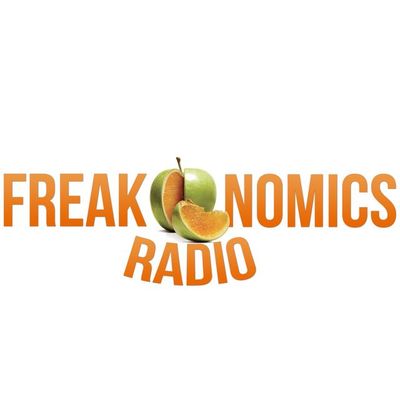
317. What Can Uber Teach Us About the Gender Pay Gap?
<p>The gig economy offers the ultimate flexibility to set your own hours. That's why economists thought it would help eliminate the gender pay gap. A new study, using data from over a million Uber drivers, finds the story isn't so simple.</p>
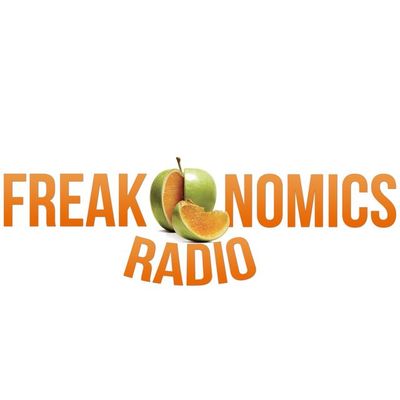
An Egghead’s Guide to the Super Bowl (Rebroadcast)
<p>We assembled a panel of smart dudes -- a two-time Super Bowl champ; a couple of N.F.L. linemen, including one who's getting a math Ph.D. at MIT; and our resident economist -- to tell you what to watch for, whether you're a football fanatic or a total newbie.</p>
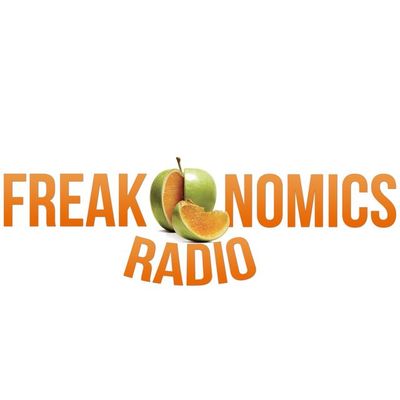
316. “I Wasn’t Stupid Enough to Say This Could Be Done Overnight”
<p>Indra Nooyi became C.E.O. of PepsiCo just in time for a global financial meltdown. She also had a portfolio full of junk food just as the world decided that junk food is borderline toxic. Here's the story of how she overhauled that portfolio, stared down activist investors, and learned to "leave the crown in the garage." (Part 3 of a special series, "The Secret Life of C.E.O.'s")</p>
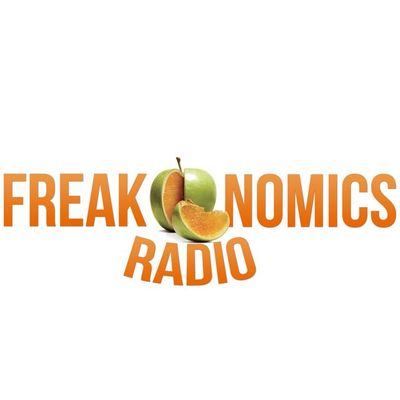
315. How to Become a C.E.O.
<p>Mark Zuckerberg's dentist dad was an early adopter of digital x-rays. Jack Welch blew the roof off a factory. Carol Bartz was a Wisconsin farm girl who got into computers. No two C.E.O.'s have the same origin story — so we tell them all! How the leaders of Facebook, G.E., Yahoo!, PepsiCo, Microsoft, Virgin, the Carlyle Group, Reddit, and Bridgewater Associates made it to the top. (Part 2 of a special series, "The Secret Life of C.E.O.'s.")</p>
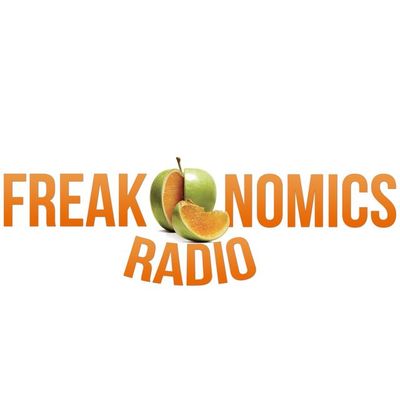
314. What Does a C.E.O. Actually Do?
<p>They're paid a fortune — but for what, exactly? What makes a good C.E.O. — and how can you even tell? Is "leadership science" a real thing — or just airport-bookstore mumbo jumbo? We put these questions to Mark Zuckerberg, Richard Branson, Indra Nooyi, Satya Nadella, Jack Welch, Ray Dalio, Carol Bartz, David Rubenstein, and Ellen Pao. (Part 1 of a special series, "The Secret Life of C.E.O.'s.")</p>
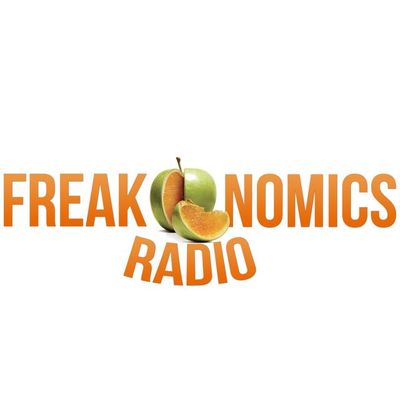
313. How to Be a Modern Democrat — and Win
<p>Gina Raimondo, the governor of tiny Rhode Island, has taken on unions, boosted big business, and made friends with Republicans. She is also one of just 15 Democratic governors in the country. Would there be more of them if there were more like her?</p>
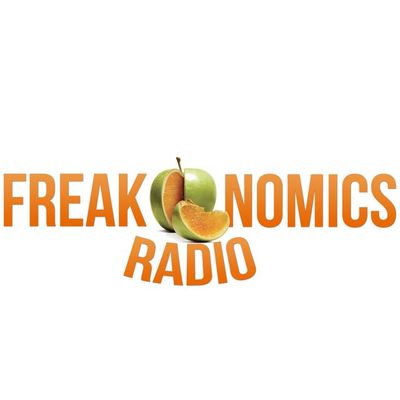
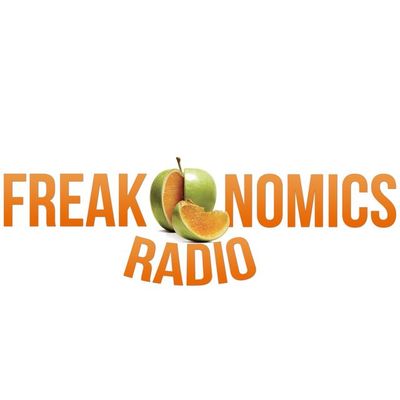
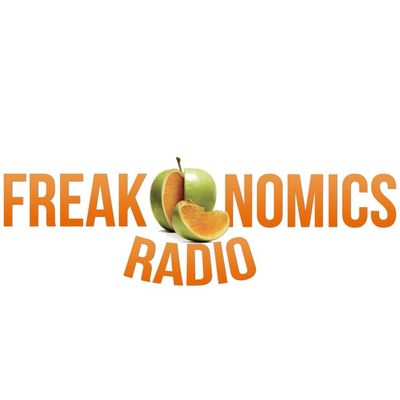
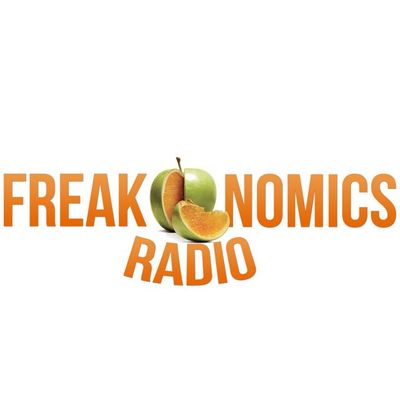
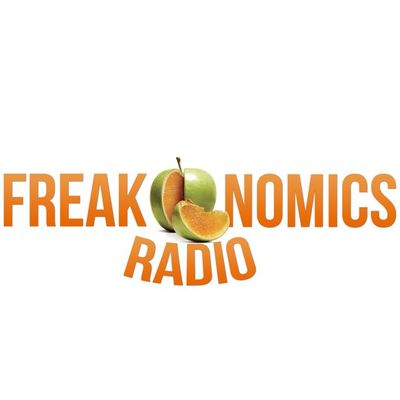
311. Why Is the Live-Event Ticket Market So Screwed Up?
<p>The public has almost no chance to buy good tickets to the best events. Ticket brokers, meanwhile, make huge profits on the secondary markets. Here's the story of how this market got so dysfunctional, how it can be fixed – and why it probably won't be.</p>
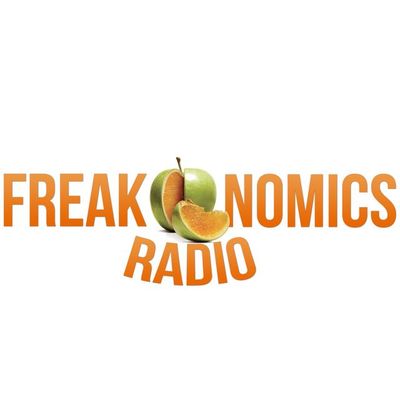
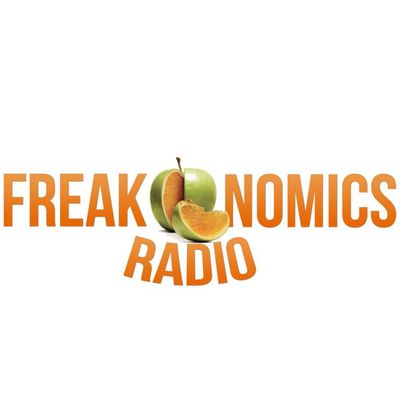
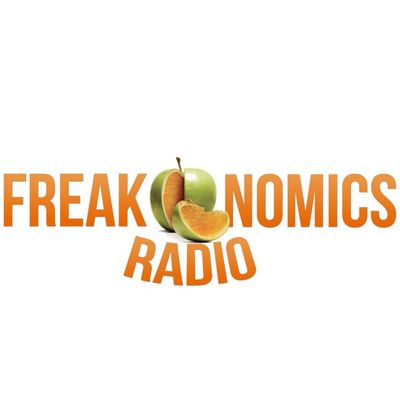
309. Nurses to the Rescue!
<p>They are the most-trusted profession in America (and with good reason). They are critical to patient outcomes (especially in primary care). Could the growing army of nurse practitioners be an answer to the doctor shortage? The data say yes but — big surprise — doctors' associations say no.</p>
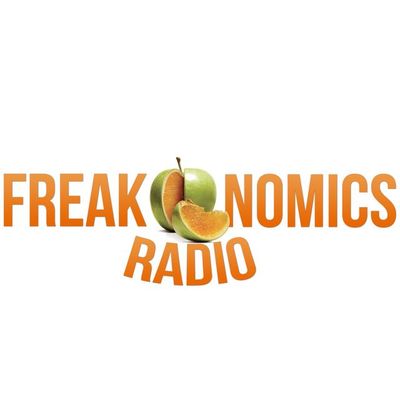
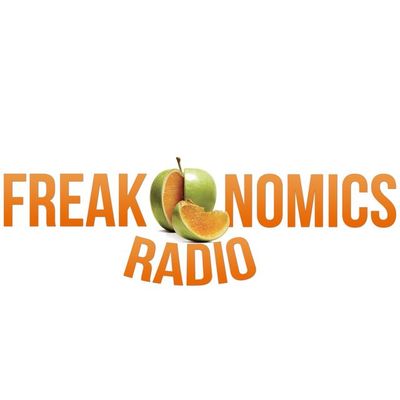
Why Is There So Much Ground Beef in the World? (Special Feature)
<p>In this live episode of "Tell Me Something I Don't Know," you'll learn about carcass balancing, teen sleeping, and brand naming. Joining Stephen J. Dubner as co-host is Alex Wagner (CBS This Morning Saturday); author A.J. Jacobs (It's All Relative) is the live fact-checker.</p>
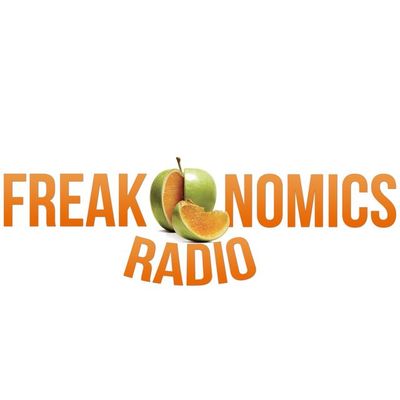
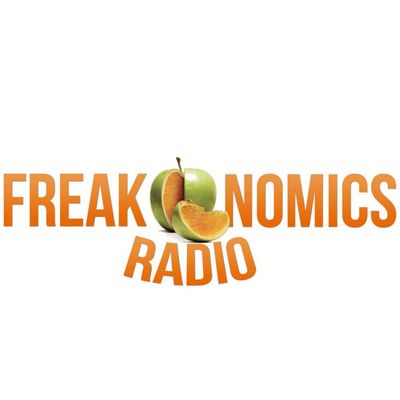
306. How to Launch a Behavior-Change Revolution
<p>Academic studies are nice, and so are Nobel Prizes. But to truly prove the value of a new idea, you have to unleash it to the masses. That's what a dream team of social scientists is doing — and we sat in as they drew up their game plan.</p>
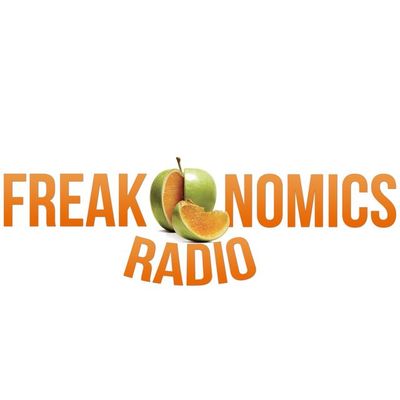
305. The Demonization of Gluten
<p>Celiac disease is thought to affect roughly one percent of the population. The good news: it can be treated by quitting gluten. The bad news: many celiac patients haven't been diagnosed. The weird news: millions of people without celiac disease have quit gluten – which may be a big mistake.</p>
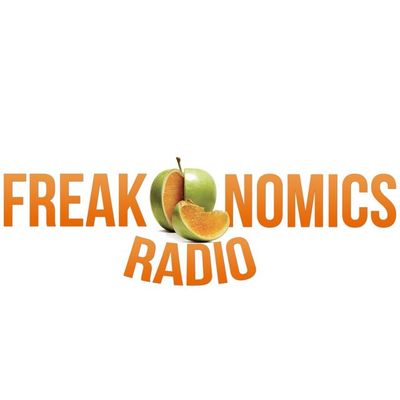
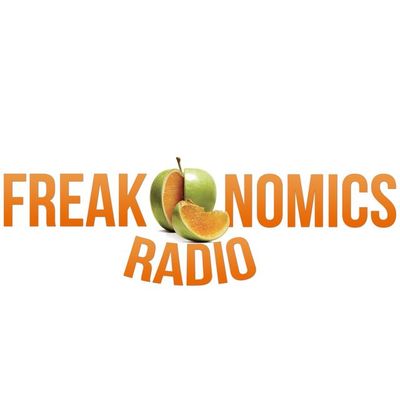
“Tell Me Something I Don't Know” on the topic of Behavior Change (Special Feature)
<p>Stephen J. Dubner hosts an episode full of the world's most renowned behavior change experts, including Colin Camerer, Ayelet Fishbach, David Laibson, Max Bazerman, Katy Milkman, and Kevin Volpp. Angela Duckworth (psychologist and author of Grit) is our special guest co-host, with Mike Maughan (head of global insights at Qualtrics) as real-time fact-checker.</p>
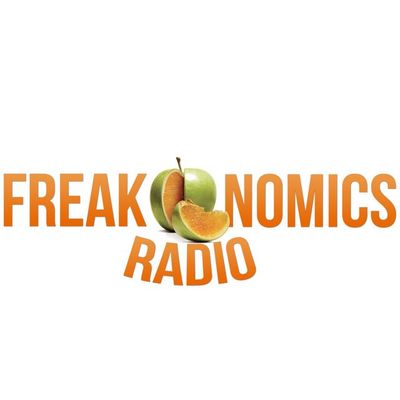
303. Why Larry Summers Is the Economist Everyone Hates to Love
<p>He's been U.S. Treasury Secretary, a chief economist for the Obama White House and the World Bank, and president of Harvard. He's one of the most brilliant economists of his generation (and perhaps the most irascible). And he thinks the Trump Administration is wrong on just about everything.</p>
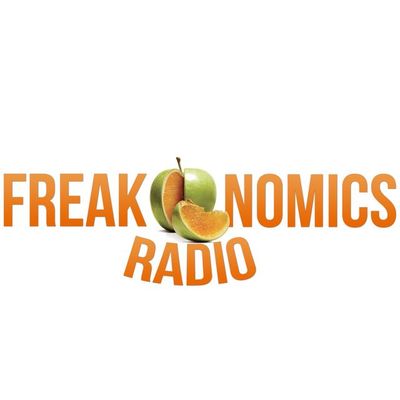
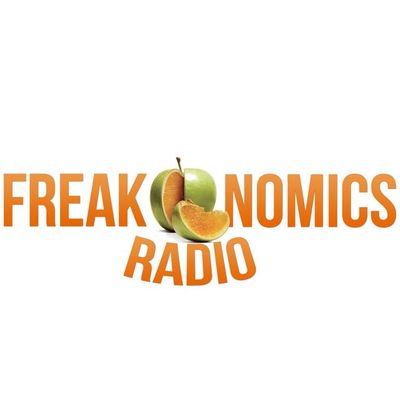
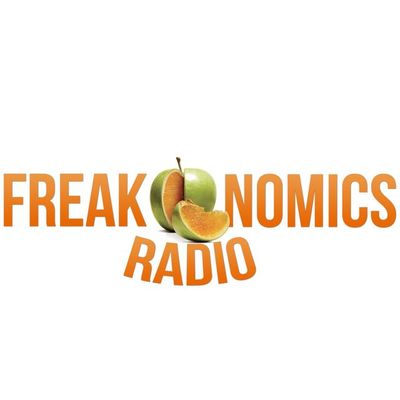
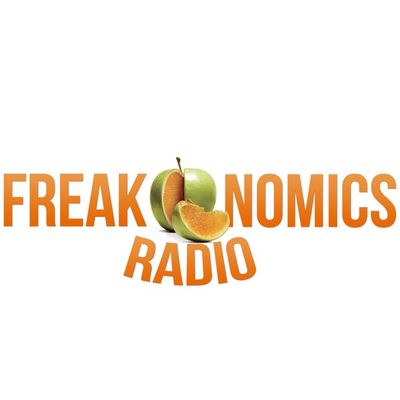
299. "How Much Brain Damage Do I Have?"
<p>John Urschel was the only player in the N.F.L. simultaneously getting a math Ph.D. at M.I.T. But after a new study came out linking football to brain damage, he abruptly retired. Here's the inside story — and a look at how we make decisions in the face of risk versus uncertainty.</p>
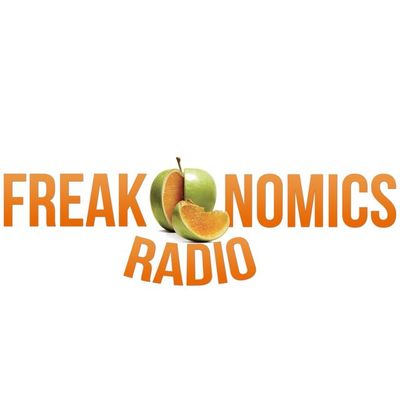
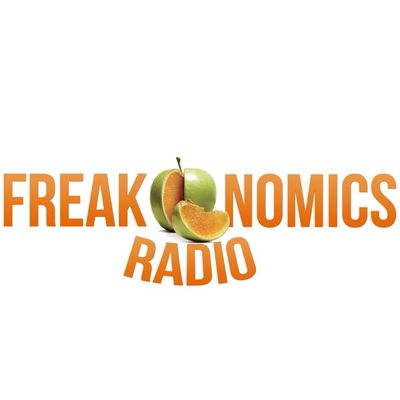
Bad Medicine, Part 2: (Drug) Trials and Tribulations (Rebroadcast)
<p>How do so many ineffective and even dangerous drugs make it to market? One reason is that clinical trials are often run on "dream patients" who aren't representative of a larger population. On the other hand, sometimes the only thing worse than being excluded from a drug trial is being included.</p>
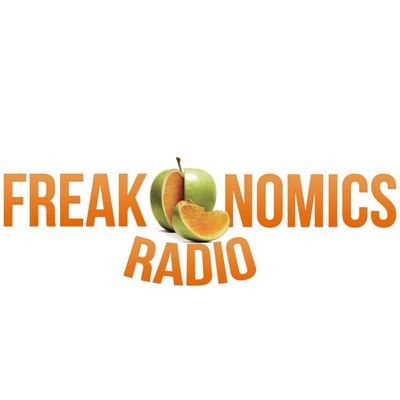
Bad Medicine, Part 1: The Story of 98.6 (Rebroadcast)
<p>We tend to think of medicine as a science, but for most of human history it has been scientific-ish at best. In the first episode of a three-part series, we look at the grotesque mistakes produced by centuries of trial-and-error, and ask whether the new era of evidence-based medicine is the solution.</p>
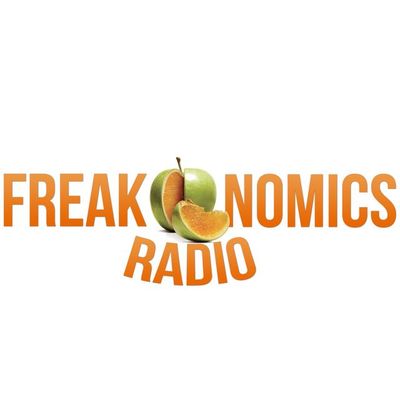
What Are You Waiting For? (Rebroadcast)
<p>Standing in line represents a particularly sloppy — and frustrating — way for supply and demand to meet. Why haven't we found a better way to get what we want? Is it possible that we secretly enjoy waiting in line? And might it even be (gulp) good for us?</p>
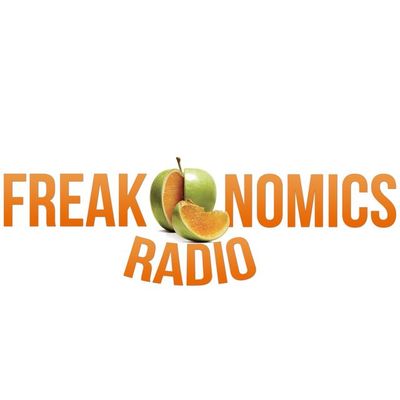
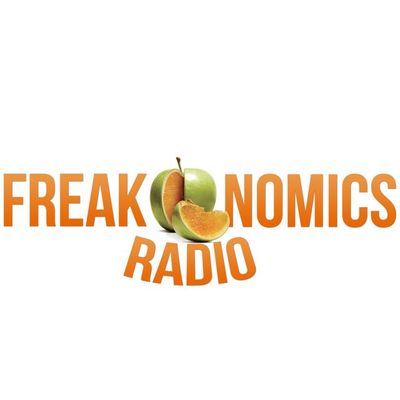
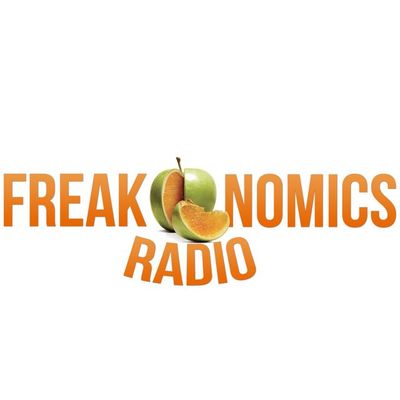
296. These Shoes Are Killing Me!
<p>The human foot is an evolutionary masterpiece, far more functional than we give it credit for. So why do we encase it in "a coffin" (as one foot scholar calls it) that stymies so much of its ability — and may create more problems than it solves?</p>
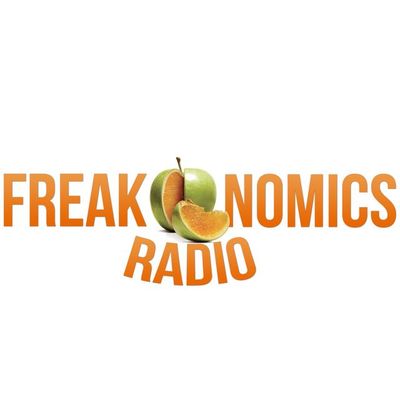
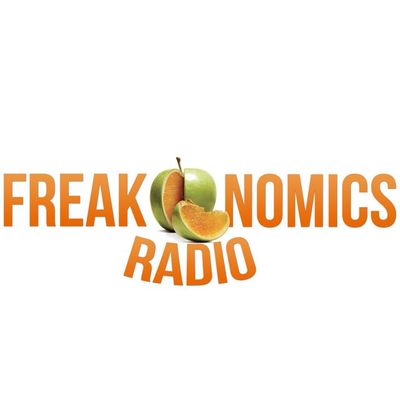
294. The Fracking Boom, a Baby Boom, and the Retreat From Marriage
<p>Over 40 percent of U.S. births are to unmarried mothers, and the numbers are especially high among the less-educated. Why? One argument is that the decline in good manufacturing jobs led to a decline in "marriageable" men. Surely the fracking boom reversed that trend, right?</p>
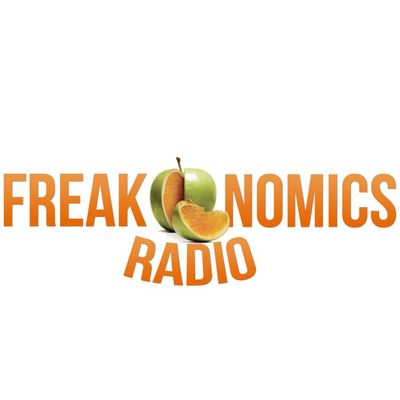
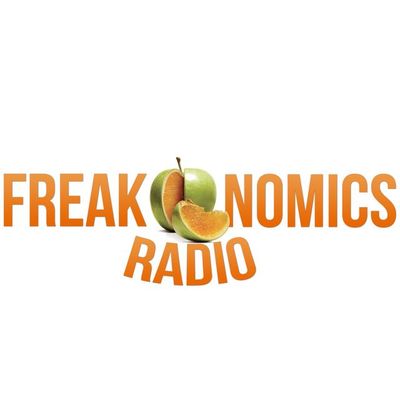
293. Why Hate the Koch Brothers? (Part 2)
<p>Charles Koch, the mega-billionaire CEO of Koch Industries and half of the infamous political machine, sees himself as a classical liberal. So why do most Democrats hate him so much? In a rare series of interviews, he explains his political awakening, his management philosophy, and why he supports legislation that goes against his self-interest.</p>
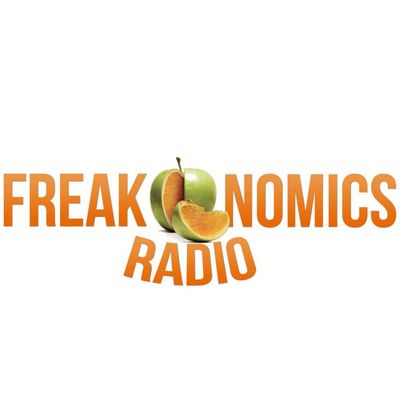
292. Why Hate the Koch Brothers? (Part 1)
<p>Charles Koch, the mega-billionaire CEO of Koch Industries and half of the infamous political machine, sees himself as a classical liberal. So why do most Democrats hate him so much? In a rare series of interviews, he explains his political awakening, his management philosophy and why he supports legislation that goes against his self-interest.</p>
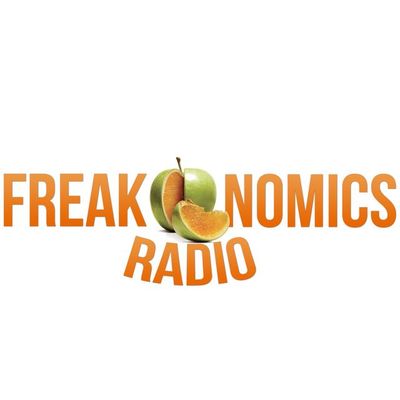
"Tell Me Something I Don't Know" on the topic of Rivalry
<p>Steve Levitt, Scott Turow and Bridget Gainer are panelists. For the "Freakonomics" co-author, the attorney and novelist, and the Cook County commissioner it's "game on!" as they tackle competition of all kinds: athletic, sexual, geopolitical, and the little-known battle between butter and margarine that landed in the Supreme Court. WBEZ's Tricia Bobeda, co-host of the "Nerdette" podcast, is fact-checker.</p>

291. Evolution, Accelerated
<p>A breakthrough in genetic technology has given humans more power than ever to change nature. It could help eliminate hunger and disease; it could also lead to the sort of dystopia we used to only read about in sci-fi novels. So what happens next?<br />Help us meet the Freakonomics Radio listener challenge. If 500 of you become sustaining members at just $7/month before June 30th we'll unlock an additional $25,000 from the Tow Foundation. Become a member now!</p>

290. He’s One of the Most Famous Political Operatives in America. America Just Doesn’t Know It Yet.
<p>Steve Hilton was the man behind David Cameron's push to remake British politics. Things didn't work out so well there. Now he's trying to launch a new political revolution – from sunny California.</p>
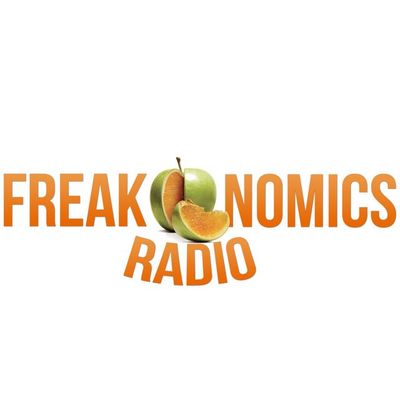
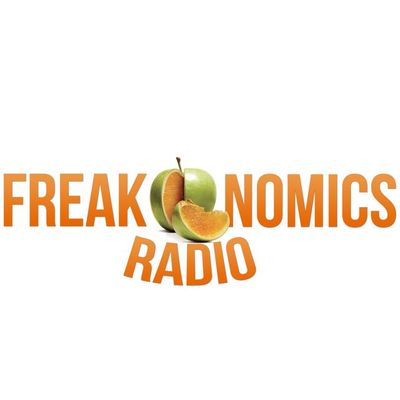
288. Are the Rich Really Less Generous Than the Poor?
<p>A series of academic studies suggest that the wealthy are, to put it bluntly, selfish jerks. It's an easy narrative to swallow — but is it true? A trio of economists set out to test the theory. All it took was a Dutch postal worker's uniform, some envelopes stuffed with cash, and a slight sense of the absurd.</p>

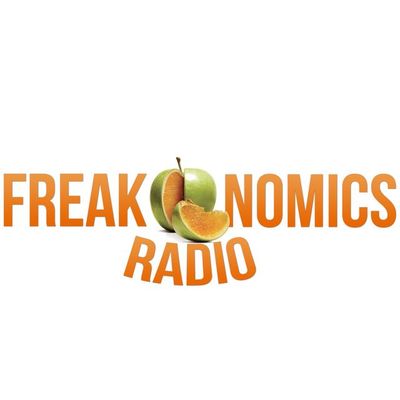
286. How Big is My Penis? (And Other Things We Ask Google)
<p>On the Internet, people say all kinds of things they'd never say aloud -- about sex and race, about their true wants and fears. Seth Stephens-Davidowitz has spent years parsing the data. His conclusion: our online searches are the reflection of our true selves. In the real world, everybody lies.</p>
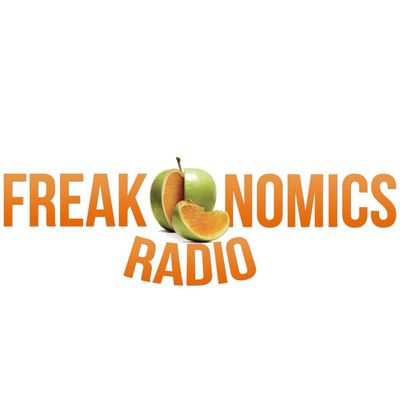
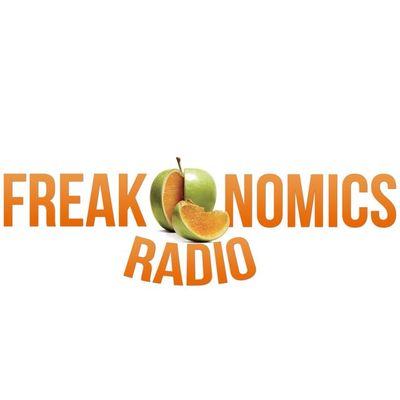
285. There’s a War on Sugar. Is It Justified?
<p>Some people argue that sugar should be regulated, like alcohol and tobacco, on the grounds that it's addictive and toxic. How much sense does that make? We hear from a regulatory advocate, an evidence-based skeptic, a former FDA commissioner — and the organizers of Milktoberfest.</p>
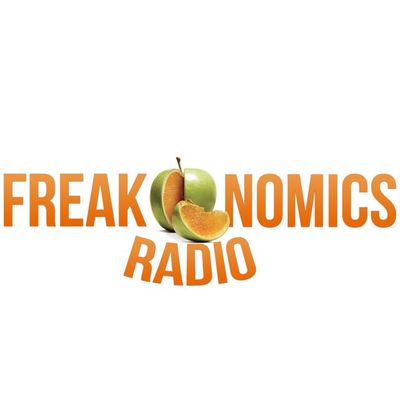
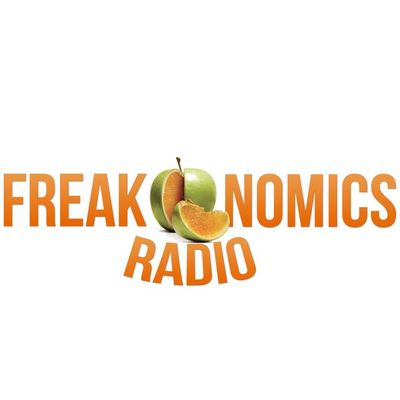
283. What Would Our Economy Look Like? (Earth 2.0 Series)
<p>If we could reboot the planet and create new systems and institutions from scratch, would they be any better than what we've blundered our way into through trial and error? This is the first of a series of episodes that we'll release over several months. Today we start with — what else? — economics. You'll hear from Nobel laureate Angus Deaton, the poverty-fighting superhero Jeff Sachs; and many others.</p>
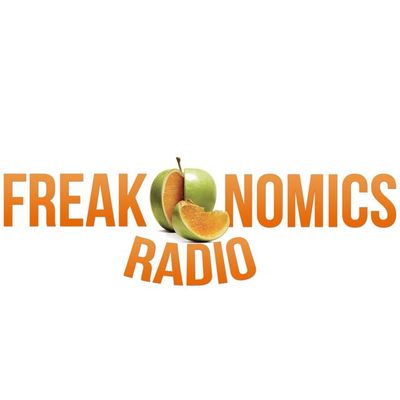
282. Could Solving This One Problem Solve All the Others?
<p>The biggest problem with humanity is humans themselves. Too often, we make choices — what we eat, how we spend our money and time — that undermine our well-being. An all-star team of academic researchers thinks it has the solution: perfecting the science of behavior change. Will it work?</p>
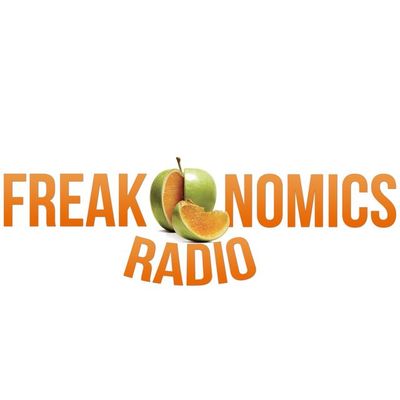
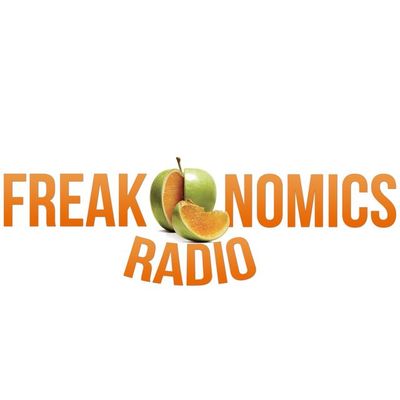
280. “Tell Me Something I Don’t Know” on the topic of Collections.
<p>Hear live journalism wrapped in a game show package and hosted by Stephen J. Dubner. In this episode, Tim Ferriss, Eugene Mirman and Anne Pasternak are panelists. The self-help guru, the comedian and the Brooklyn Museum director talk about brainwaves, sugar, stars and — thanks to fact-checker AJ Jacobs — barf bags.</p>
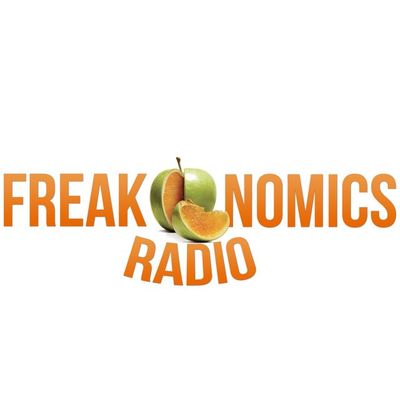
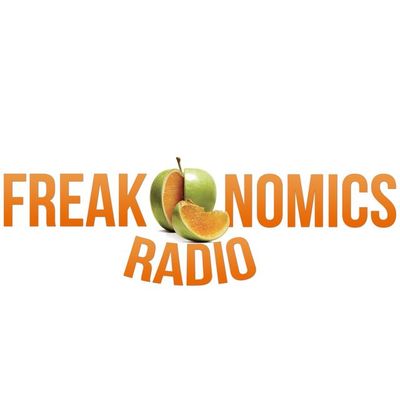
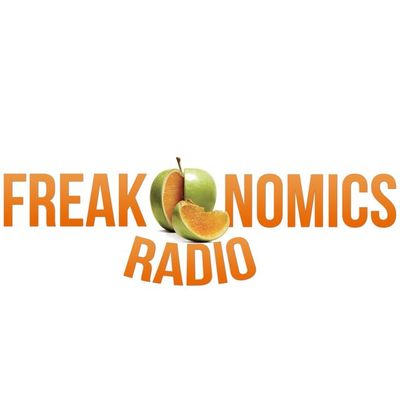
278. Chuck E. Cheese’s: Where a Kid Can Learn Price Theory
<p>The pizza-and-gaming emporium prides itself on affordability, which means its arcade games are really cheap to play. Does that lead to kids hogging the best games — and parents starting those infamous YouTube brawls?</p>
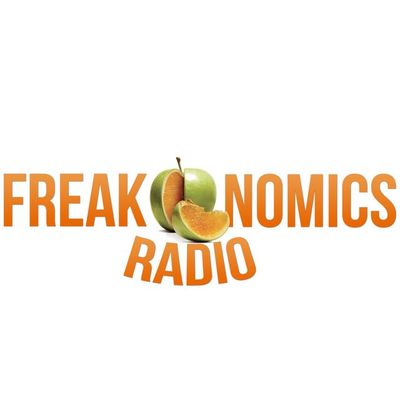
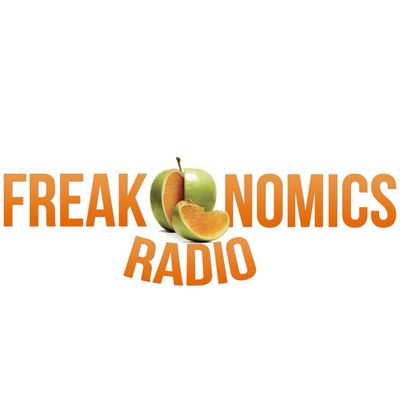
276. No Hollywood Ending for the Visual-Effects Industry
<p>In their chase for a global audience, American movie studios spend billions to make their films look amazing. But almost none of those dollars stay in America. What would it take to bring those jobs back -- and would it be worth it?</p>
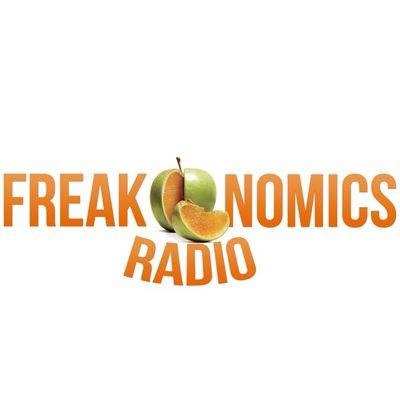
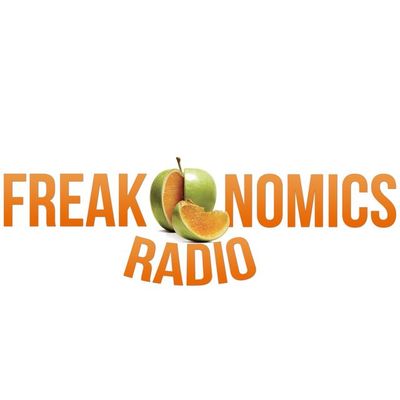
How to Get More Grit in Your Life
<p>The psychologist Angela Duckworth argues that a person's level of stick-to-itiveness is directly related to their level of success. No big surprise there. But grit, she says, isn't something you're born with — it can be learned. Here's how.</p>
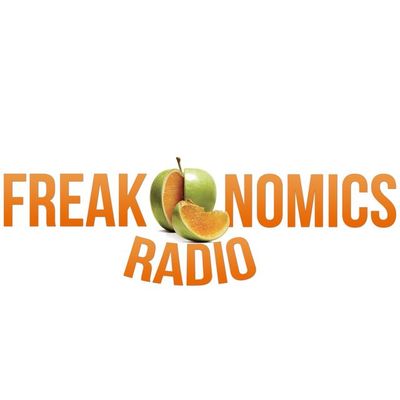
274. An Egghead’s Guide to the Super Bowl
<p>We assembled a panel of smart dudes -- a two-time Super Bowl champ; a couple of NFL linemen, including one who's getting a math Ph.D. at MIT; and our resident economist -- to tell you what to watch for, whether you're a football fanatic or a total newbie.</p>
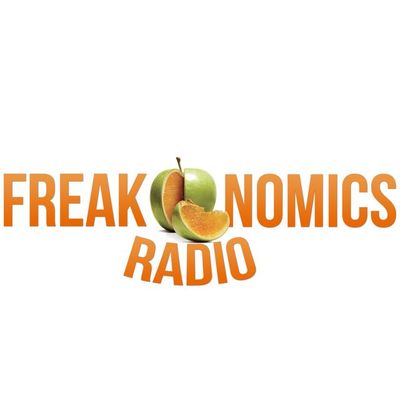
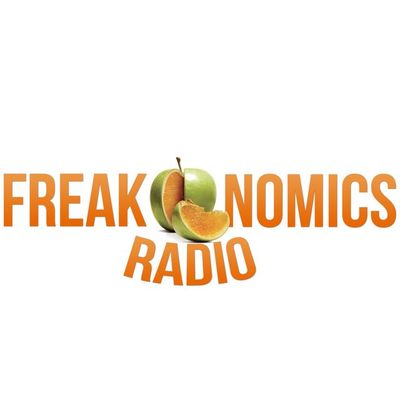
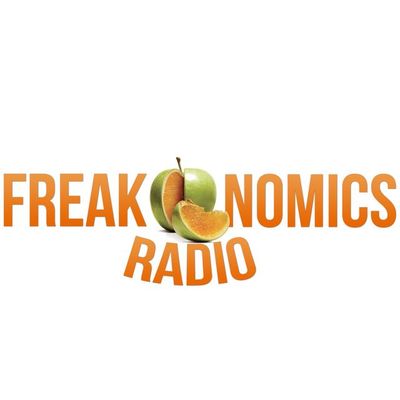
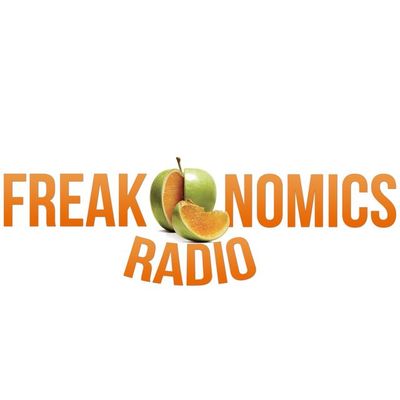
271. The Men Who Started a Thinking Revolution
<p>Starting in the late 1960s, the Israeli psychologists Amos Tversky and Danny Kahneman began to redefine how the human mind actually works. Michael Lewis's new book The Undoing Project explains how the movement they started -- now known as behavioral economics -- has had such a profound effect on academia, governments, and society at large.</p>
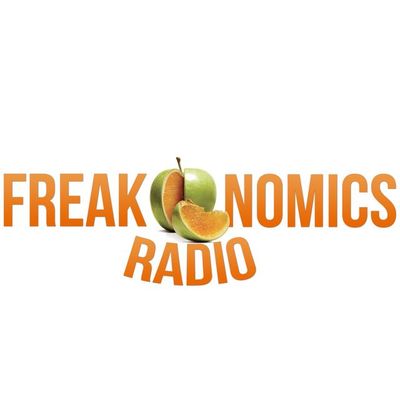
How to Become Great at Just About Anything (Rebroadcast)
<p>What if the thing we call "talent" is grotesquely overrated? And what if deliberate practice is the secret to excellence? Those are the claims of the research psychologist Anders Ericsson, who has been studying the science of expertise for decades. He tells us everything he's learned.</p>
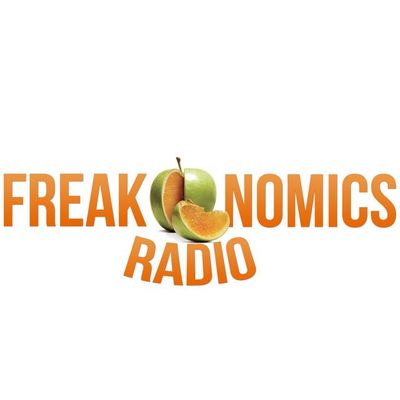
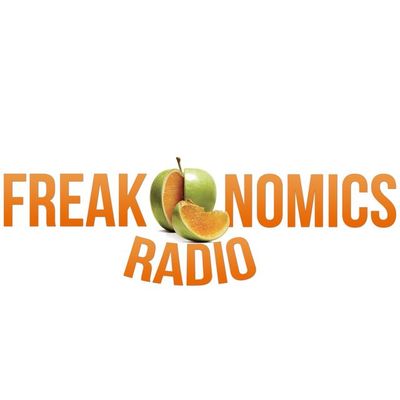
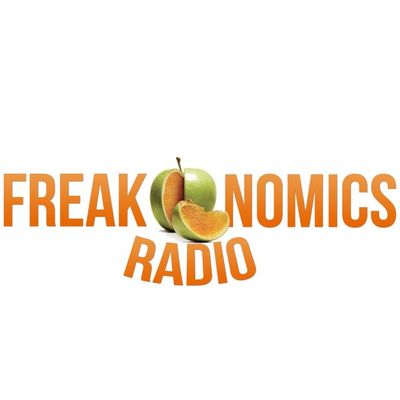
269. Bad Medicine, Part 2: (Drug) Trials and Tribulations
<p>How do so many ineffective and even dangerous drugs make it to market? One reason is that clinical trials are often run on "dream patients" who aren't representative of a larger population. On the other hand, sometimes the only thing worse than being excluded from a drug trial is being included.</p>
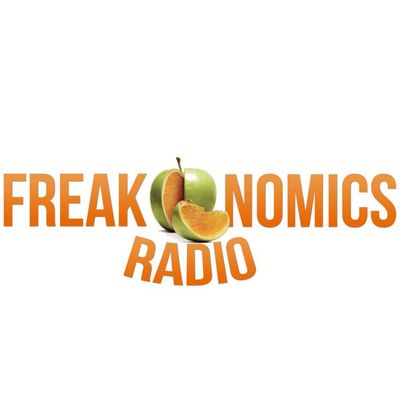
268. Bad Medicine, Part 1: The Story of 98.6
<p>We tend to think of medicine as a science, but for most of human history it has been scientific-ish at best. In the first episode of a three-part series, we look at the grotesque mistakes produced by centuries of trial-and-error, and ask whether the new era of evidence-based medicine is the solution.</p>

The No-Tipping Point (Rebroadcast)
<p>The restaurant business model is warped: kitchen wages are too low to hire cooks, while diners are put in charge of paying the waitstaff. So what happens if you eliminate tipping, raise menu prices, and redistribute the wealth? New York restaurant maverick Danny Meyer is about to find out.</p>
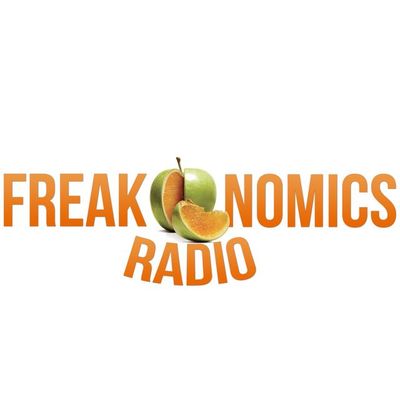
267. How to Make a Bad Decision
<p>Some of our most important decisions are shaped by something as random as the order in which we make them. The gambler's fallacy, as it's known, affects loan officers, federal judges -- and probably you too. How to avoid it? The first step is to admit just how fallible we all are.</p>
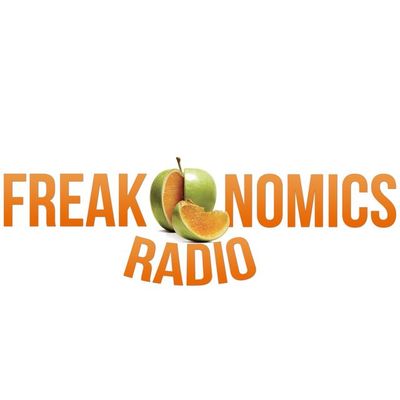
Introducing Stephen J. Dubner's new podcast, "Tell Me Something I Don't Know"
<p>"Tell Me Something I Don't Know" is a live game show hosted by Stephen J. Dubner of "Freakonomics Radio." He has always had a mission: to tell you the things you thought you knew but didn't, and things you never thought you wanted to know, but do. Now, with "TMSIDK," he has a new way of doing just that. This new show is still journalism, still factual -- but disguised in the most entertaining, unexpected, and occasionally ridiculous conversation you're likely to hear.<br />Audience contestants come on stage and try to wow a panel of experts with a fascinating fact, a historical wrinkle, a new line of research -- anything, really, as long as it's interesting, useful and true (or at least true-ish). The panel -- an ever-changing mix of comedians, brainiacs, and other high achievers -- poke and prod the contestants, and ultimately choose a winner. And there's a real-time, human fact-checker on hand to filter out the bull.<br />This debut episode features Barnard College president Debora Spar, New York Public Library president Tony Marx, and comedian Andy Zaltzman; Jody Avirgan from FiveThirtyEight handles the fact-checking. You can subscribe now on iTunes. And don't worry, Freakonomics Radio isn't going anywhere -- this is just a special bonus episode of Dubner's new side gig.</p>
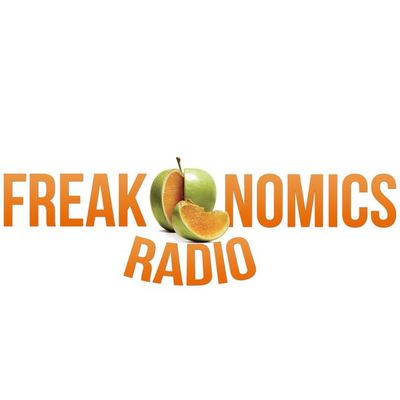
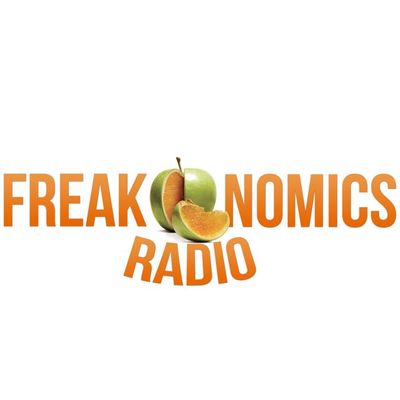
How Much Does the President Really Matter? (Rebroadcast )
<p>The U.S. president is often called the "leader of free world." But if you ask an economist or a Constitutional scholar how much the occupant of the Oval Office matters, they won't say much. We look at what the data have to say about measuring leadership, and its impact on the economy and the country.</p>

265. The White House Gets Into the Nudge Business
<p>A tiny behavioral-sciences startup is trying to improve the way federal agencies do their work. Considering the size (and habits) of most federal agencies, this isn't so simple. But after a series of early victories -- and a helpful executive order from President Obama -- they are well on their way.</p>
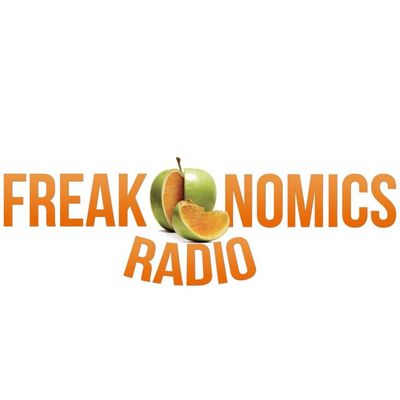
264. In Praise of Incrementalism
<p>What do Renaissance painting, civil-rights movements, and Olympic cycling have in common? In each case, huge breakthroughs came from taking tiny steps. In a world where everyone is looking for the next moonshot, we shouldn't ignore the power of incrementalism.</p>
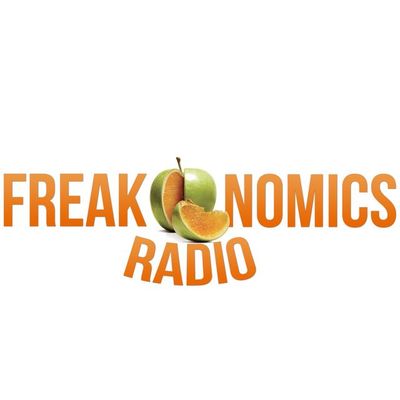
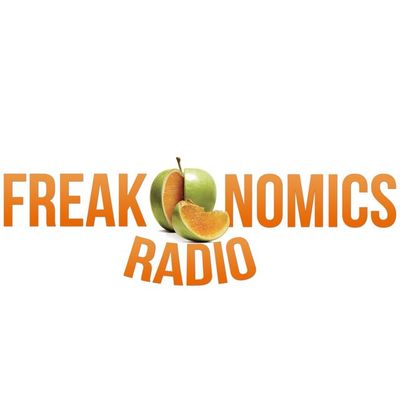
262. This Is Your Brain on Podcasts
<p>Neuroscientists still have a great deal to learn about the human brain. One recent MRI study sheds some light, finding that a certain kind of storytelling stimulates enormous activity across broad swaths of the brain. The takeaway is obvious: you should be listening to even more podcasts.</p>
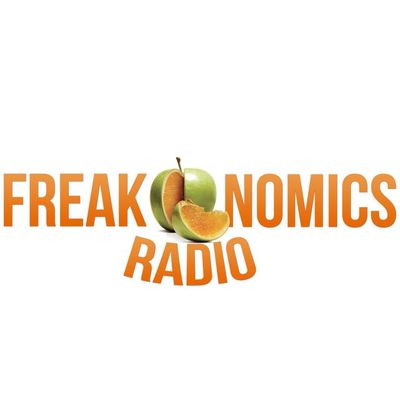
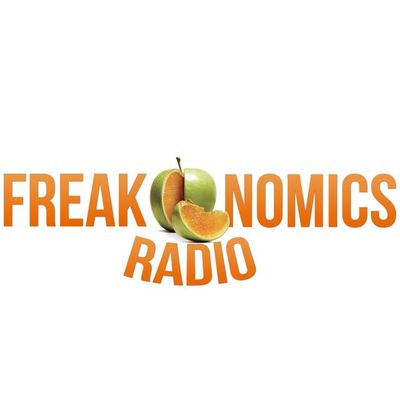
261. Why Are We Still Using Cash?
<p>It facilitates crime, bribery, and tax evasion -- and yet some governments (including ours) are printing more cash than ever. Other countries, meanwhile, are ditching cash entirely. And if Star Trek is right, we won't have money of any sort in the 24th century.</p>
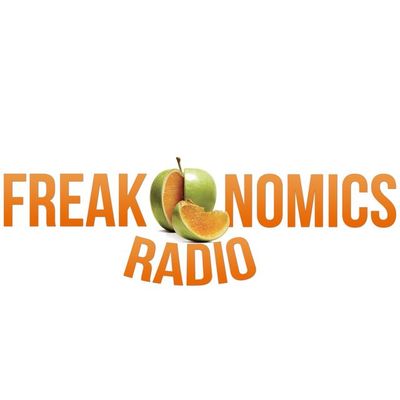
260. Has the U.S. Presidency Become a Dictatorship?
<p>Sure, we all pay lip service to the Madisonian system of checks and balances. But as one legal scholar argues, presidents have been running roughshod over the system for decades. The result? An accumulation of power that's turned the presidency into a position the founders wouldn't have recognized.</p>
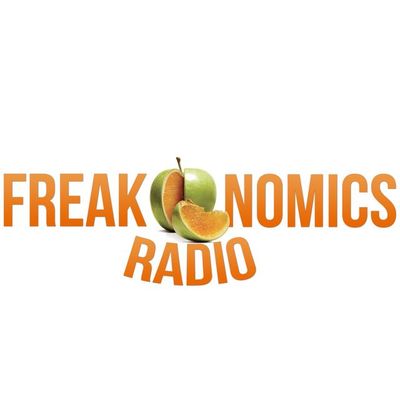
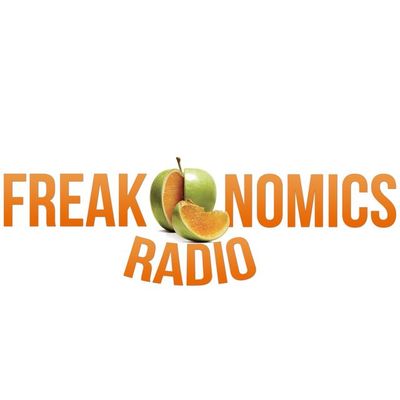
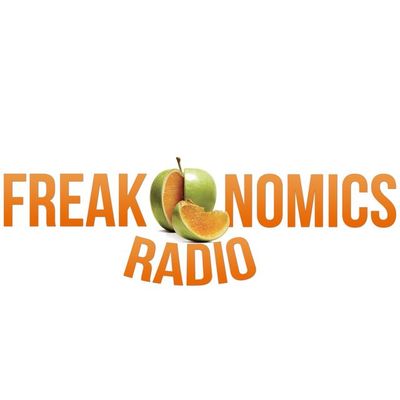
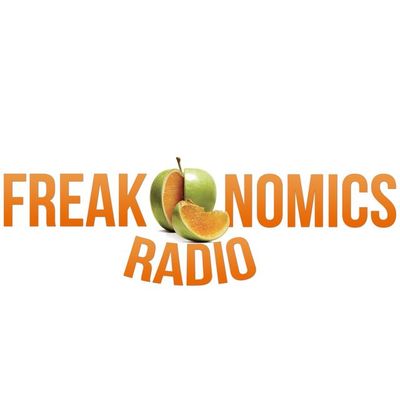
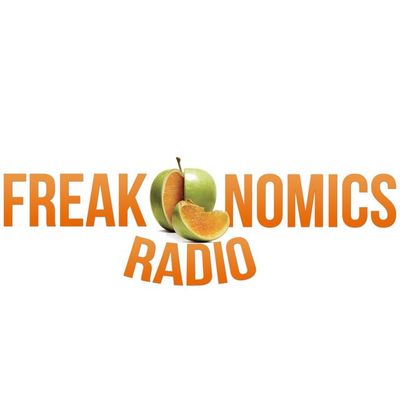
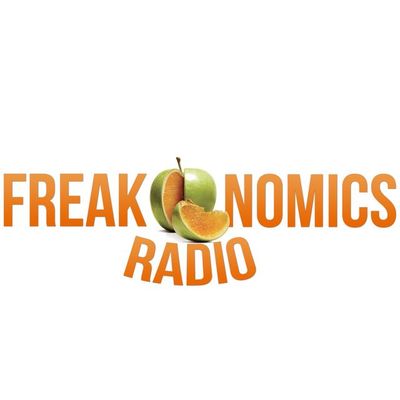
256. What Are You Waiting For?
<p>Standing in line represents a particularly sloppy - and frustrating - way for supply and demand to meet. Why haven't we found a better way to get what we want? Is it possible that we secretly enjoy waiting in line? And might it even be (gulp) good for us?</p>

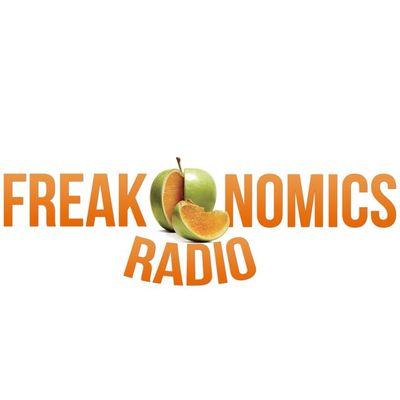
255. Ten Ideas to Make Politics Less Rotten
<p>We Americans may love our democracy -- at least in theory -- but at the moment our feelings toward the federal government lie somewhere between disdain and hatred. Which electoral and political ideas should be killed off to make way for a saner system?</p>
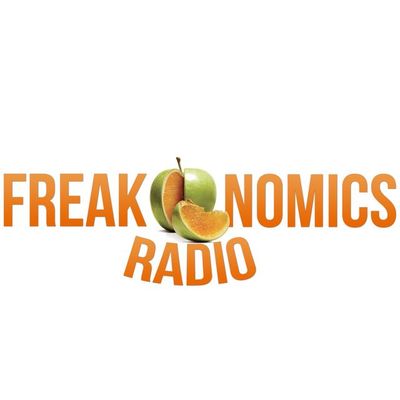
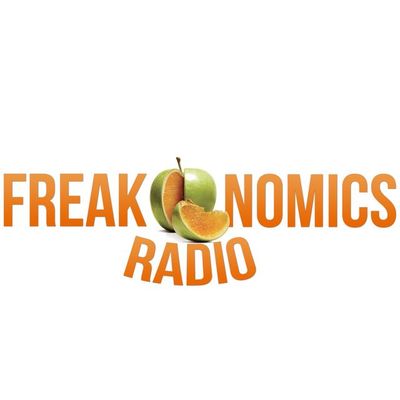
253. Is the Internet Being Ruined?
<p>It's a remarkable ecosystem that allows each of us to exercise control over our lives. But how much control do we truly have? How many of our decisions are really being made by Google and Facebook and Apple? And, perhaps most importantly: is the Internet's true potential being squandered?</p>
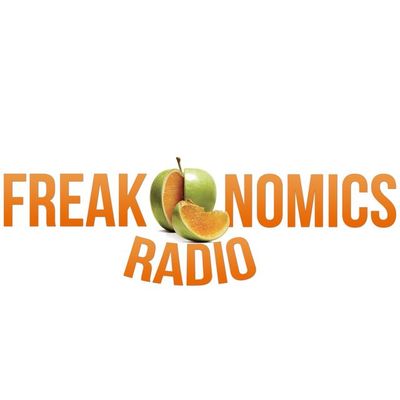
252. Confessions of a Pothole Politician
<p>Eric Garcetti, the mayor of Los Angeles, has big ambitions but knows he must first master the small stuff. He's also a polymath who relies heavily on data and new technologies. Could this be what modern politics is supposed to look like?</p>
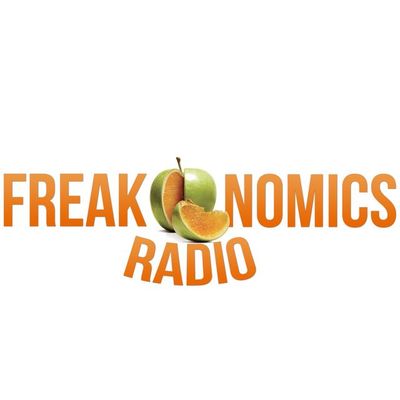
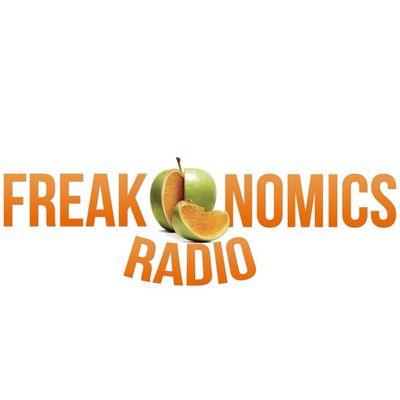
How Much Does the President Really Matter? (Rebroadcast)
<p>The U.S. president is often called the "leader of free world." But if you ask an economist or a Constitutional scholar how much the occupant of the Oval Office matters, they won't say much. We look at what the data have to say about measuring leadership, and its impact on the economy and the country.</p>
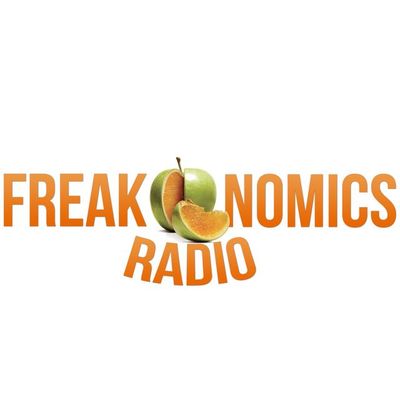
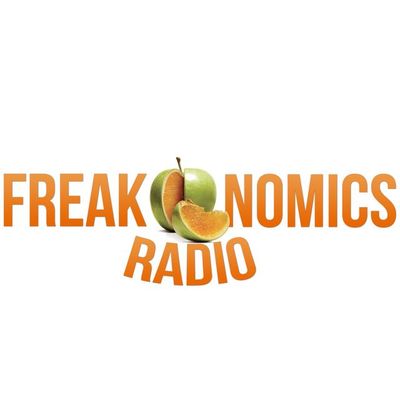

251. Are We in a Mattress-Store Bubble?
<p>You've seen them — everywhere! — and often clustered together, as if central planners across America decided that what every city really needs is a Mattress District. There are now dozens of online rivals too. Why are there so many stores selling something we buy so rarely?</p>
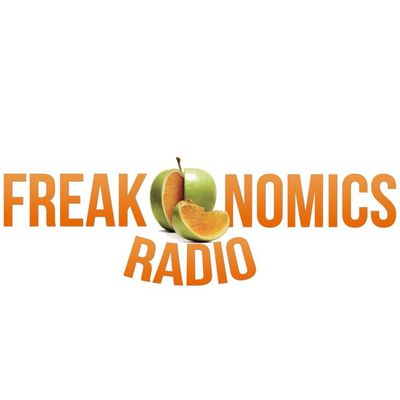
250. Why Does Everyone Hate Flying? And Other Questions Only a Pilot Can Answer
<p>Patrick Smith, the author of Cockpit Confidential, answers every question we can throw at him about what really happens up in the air. Just don't get him started on pilotless planes -- or whether the autopilot is actually doing the flying.</p>
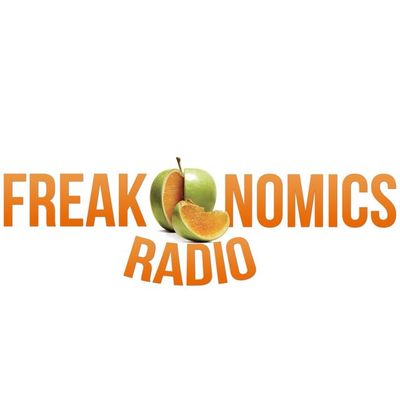
249. The Longest Long Shot
<p>When the uncelebrated Leicester City Football Club won the English Premier League, it wasn't just the biggest underdog story in recent history. It was a sign of changing economics — and that other impossible, wonderful events might be lurking just around the corner.</p>
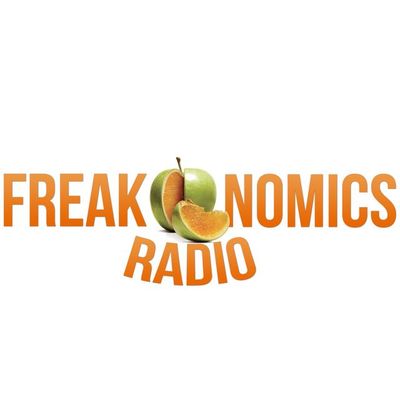
248. How to Be Tim Ferriss
<p>Our Self-Improvement Month concludes with a man whose entire life and career are one big pile of self-improvement. Nutrition? Check. Bizarre physical activities? Check. Working less and earning more? Check. Tim Ferriss, creator of the Four-Hour universe, may at first glance look like a charlatan, but it seems more likely that he's a wizard -- and the kind of self-improvement ally we all want on our side.</p>
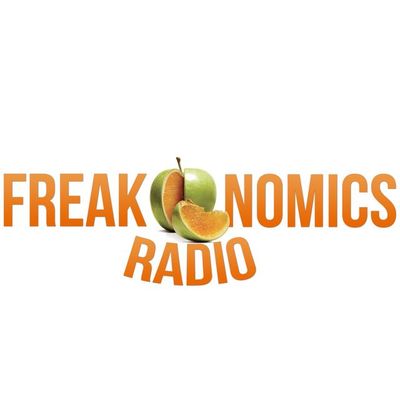
247. How to Win Games and Beat People
<p>Games are as old as civilization itself, and some people think they have huge social value regardless of whether you win or lose. Tom Whipple is not one of those people. That's why he consulted an army of preposterously overqualified experts to find the secret to winning any game.</p>
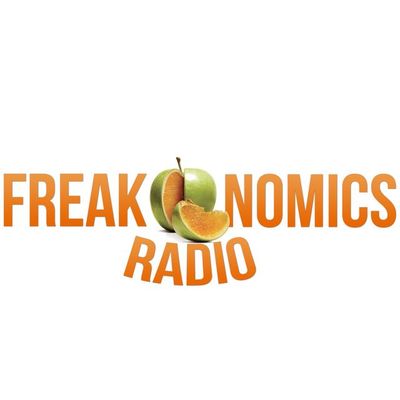
246. How to Get More Grit in Your Life
<p>The psychologist Angela Duckworth argues that a person's level of stick-to-itiveness is directly related to their level of success. No big surprise there. But grit, she says, isn't something you're born with -- it can be learned. Here's how.</p>
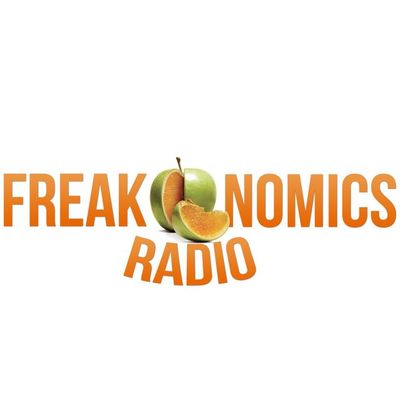
245. Being Malcolm Gladwell
<p>"Books are a pain in the ass," says Gladwell, who has written some of the most popular, influential, and beloved non-fiction books in recent history. In this wide-ranging and candid conversation, he describes other pains in the ass -- as well as his passions, his limits, and why he'll never take up golf.</p>
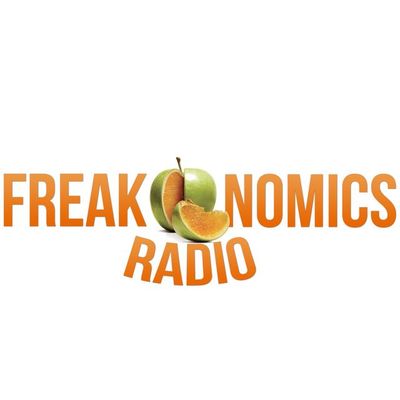
244. How to Become Great at Just About Anything
<p>What if the thing we call "talent" is grotesquely overrated? And what if deliberate practice is the secret to excellence? Those are the claims of the research psychologist Anders Ericsson, who has been studying the science of expertise for decades. He tells us everything he's learned.</p>
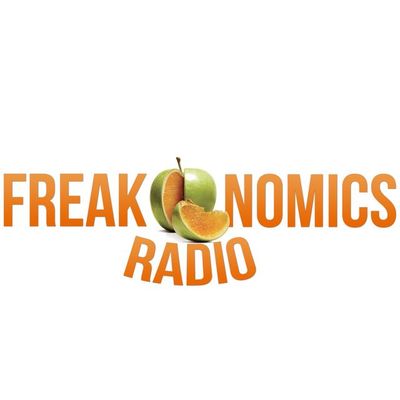
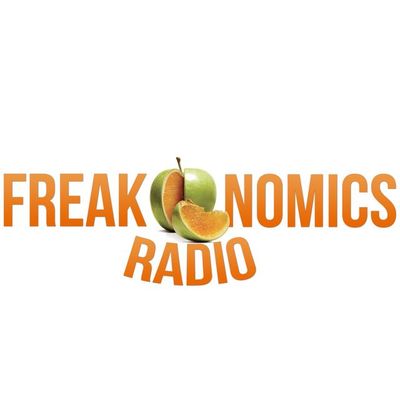
242. Is the World Ready for a Guaranteed Basic Income?
<p>A lot of full-time jobs in the modern economy simply don't pay a living wage. And even those jobs may be obliterated by new technologies. What's to be done so that financially vulnerable people aren't just crushed? It may finally be time for an idea that economists have promoted for decades.</p>
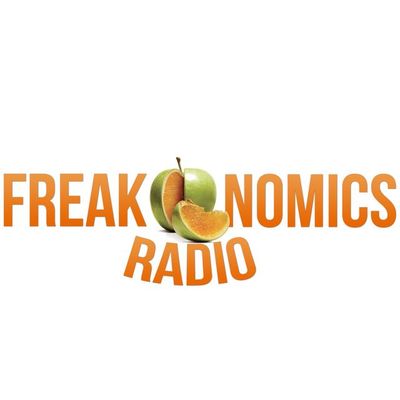
241. Are Payday Loans Really as Evil as People Say?
<p>Critics -- including President Obama -- say short-term, high-interest loans are predatory, trapping borrowers in a cycle of debt. But some economists see them as a useful financial instrument for people who need them. As the Consumer Financial Protection Bureau promotes new regulation, we ask: who's right?</p>
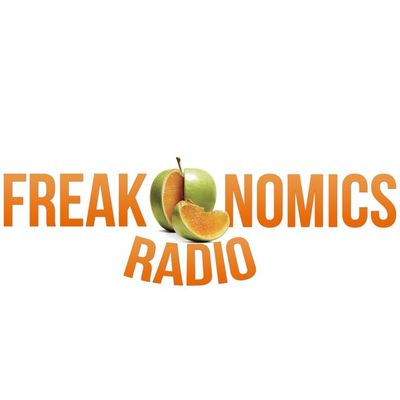
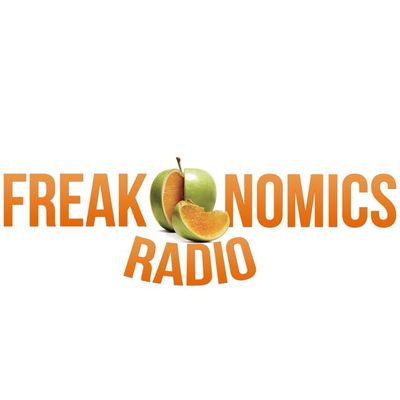
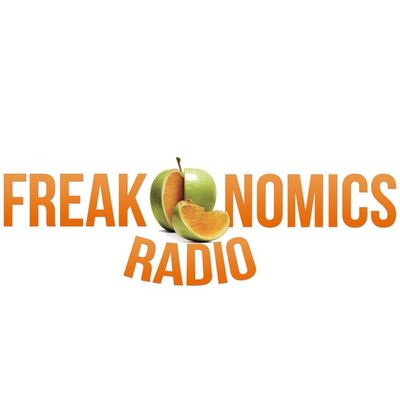
240. Yes, the American Economy Is in a Funk -- But Not for the Reasons You Think
<p>As sexy as the digital revolution may be, it can't compare to the Second Industrial Revolution (electricity! the gas engine! antibiotics!), which created the biggest standard-of-living boost in U.S. history. The only problem, argues the economist Robert Gordon, is that the Second Industrial Revolution was a one-time event. So what happens next?</p>
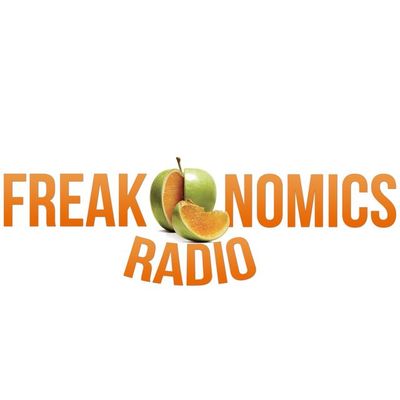
239. The No-Tipping Point
<p>The restaurant business model is warped: kitchen wages are too low to hire cooks, while diners are put in charge of paying the waitstaff. So what happens if you eliminate tipping, raise menu prices, and redistribute the wealth? New York restaurant maverick Danny Meyer is about to find out.</p>
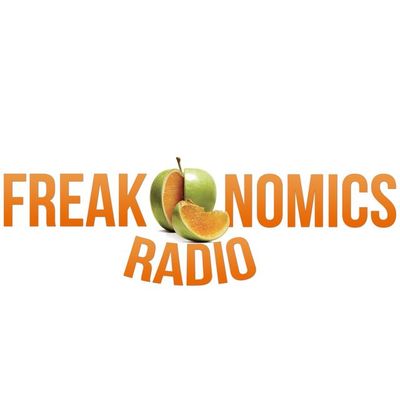
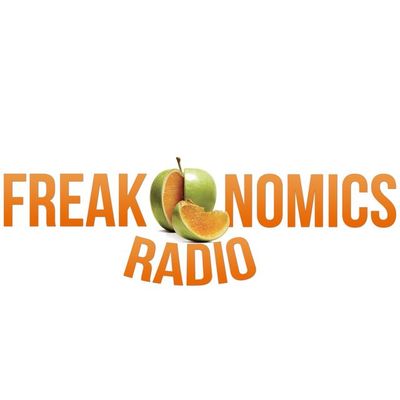
237. Ask Not What Your Podcast Can Do for You
<p>Now and again, Freakonomics Radio puts hat in hand and asks listeners to donate to the public-radio station that produces the show. Why on earth should anyone pay good money for something that can be had for free? Here are a few reasons.</p>
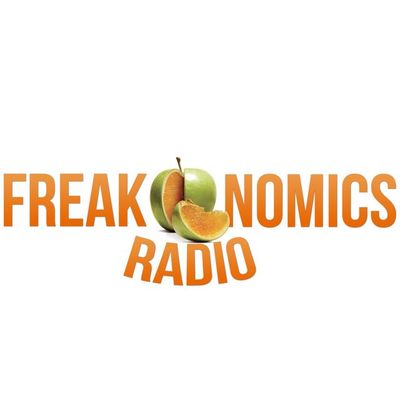
236. How Can This Possibly Be True?
<p>A famous economics essay features a pencil (yes, a pencil) arguing that “not a single person on the face of this earth knows how to make me.” Is the pencil just bragging? In any case, what can the pencil teach us about our global interdependence — and the proper role of government in the economy?</p>
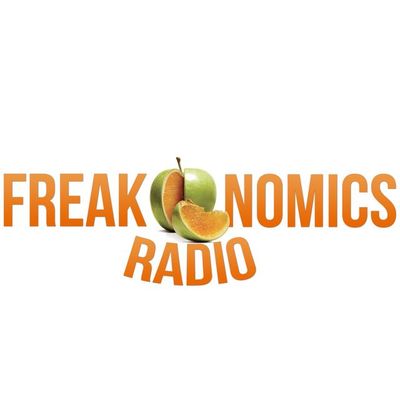
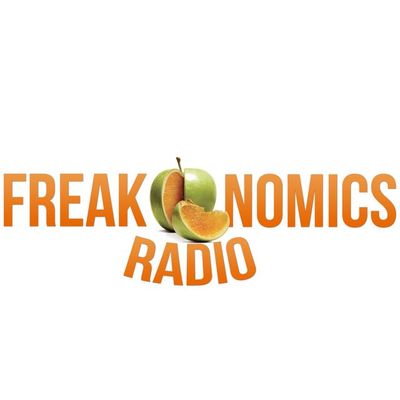
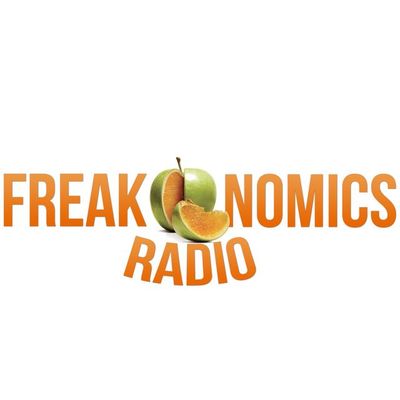
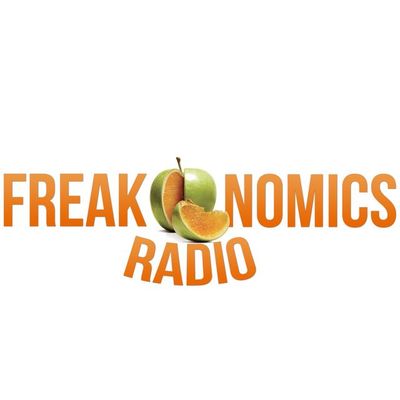
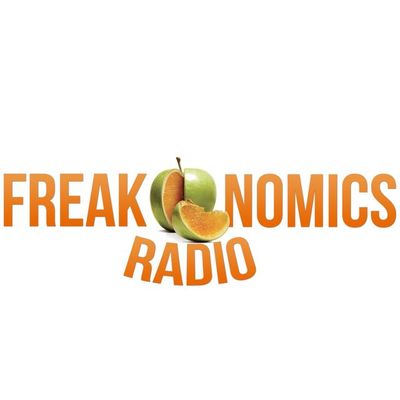
233. How to Be Less Terrible at Predicting the Future
<p>Experts and pundits are notoriously bad at forecasting, in part because they aren't punished for bad predictions. Also, they tend to be deeply unscientific. The psychologist Philip Tetlock is finally turning prediction into a science -- and now even you could become a superforecaster.</p>
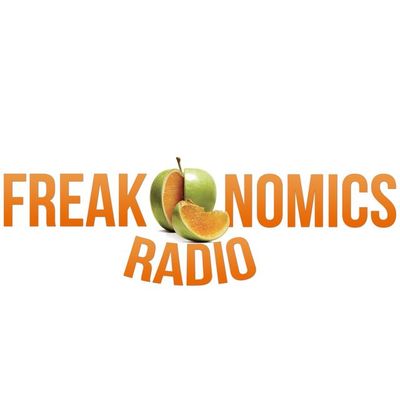

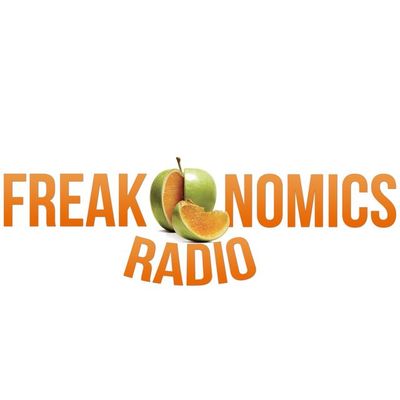
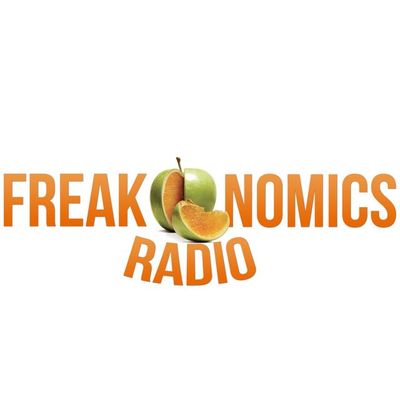
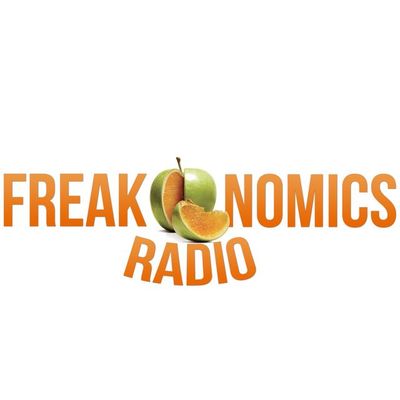
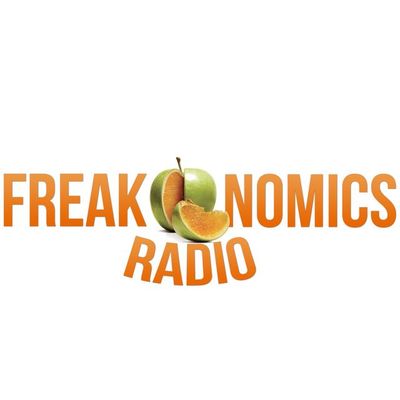
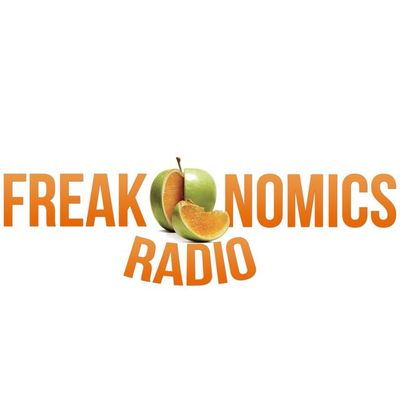

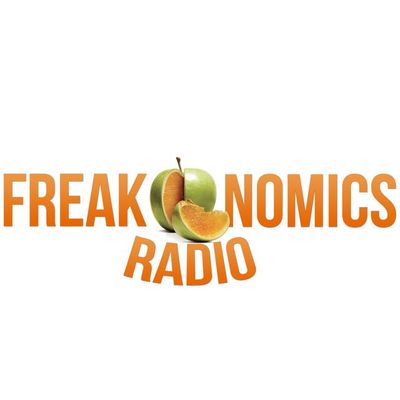
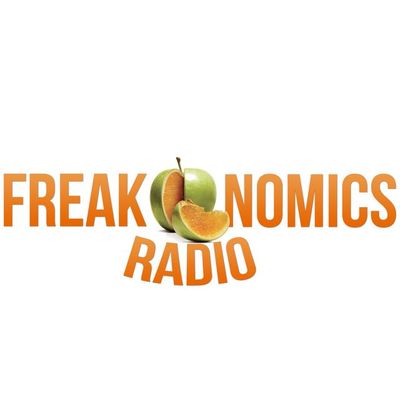
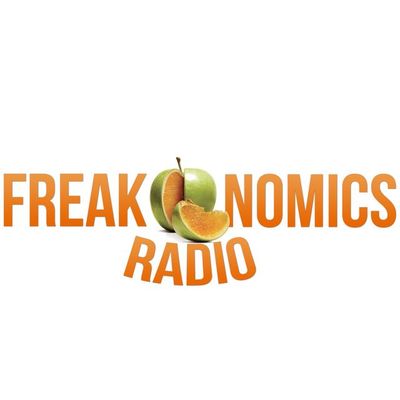
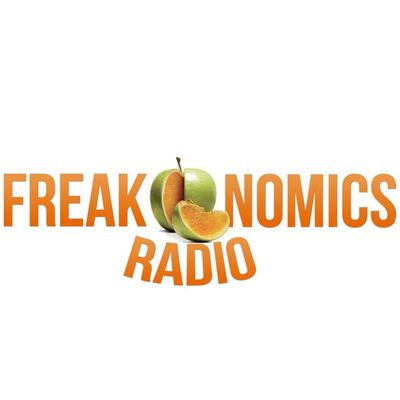
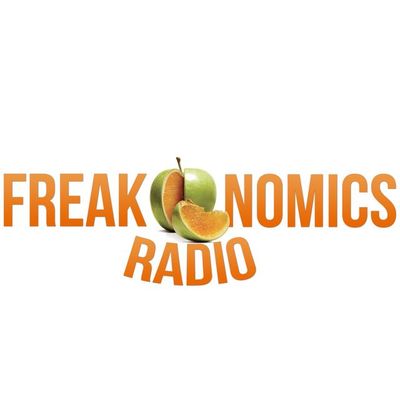
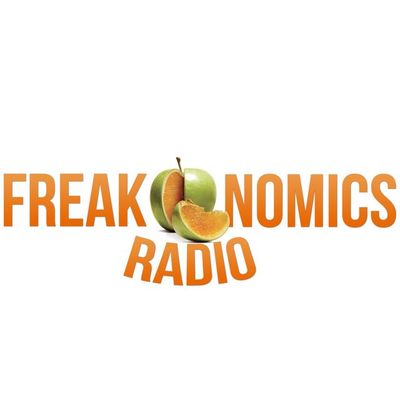
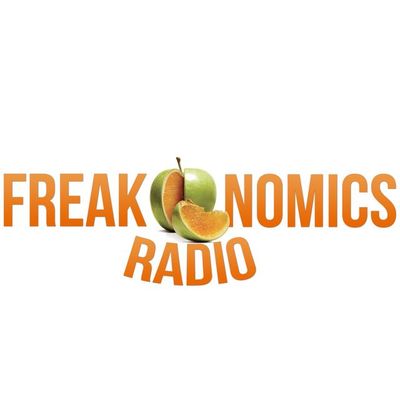
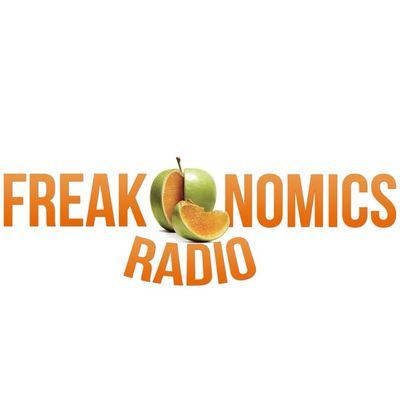
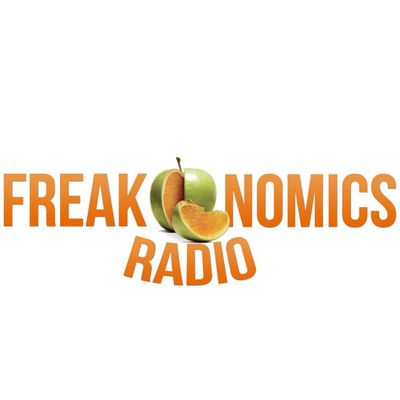
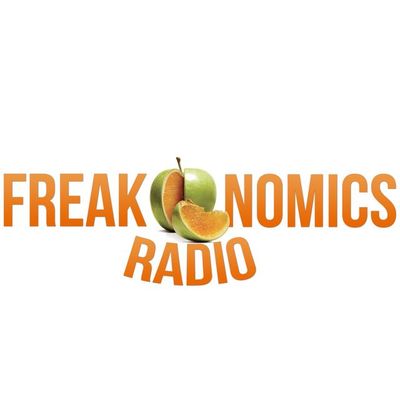
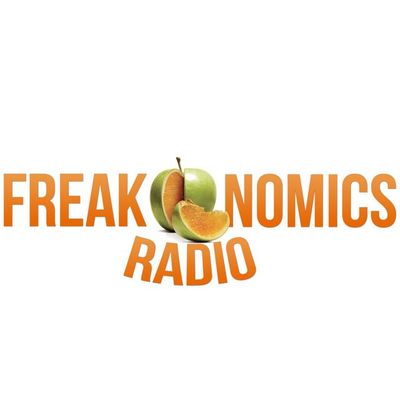
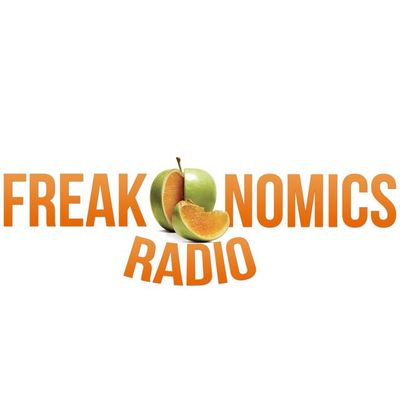
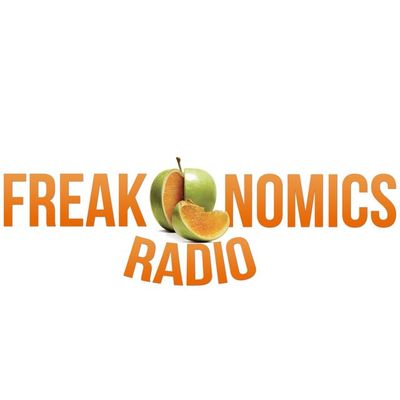
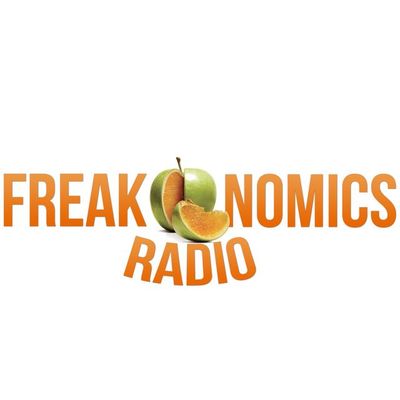
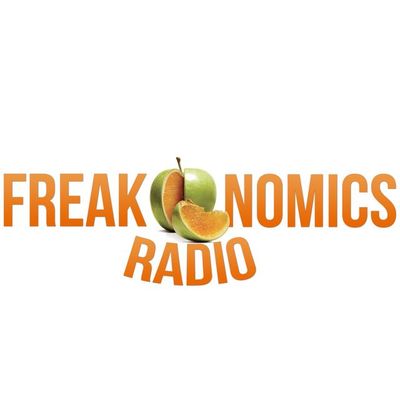
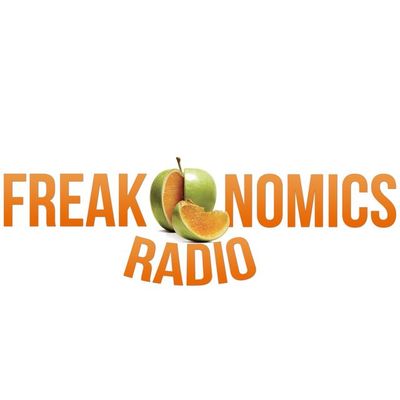
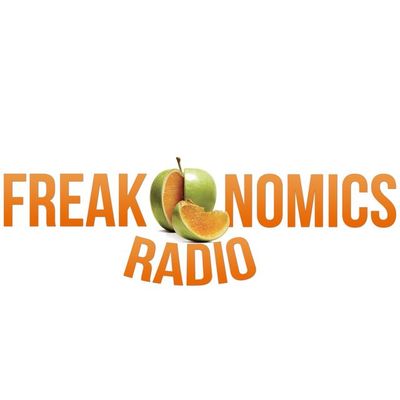
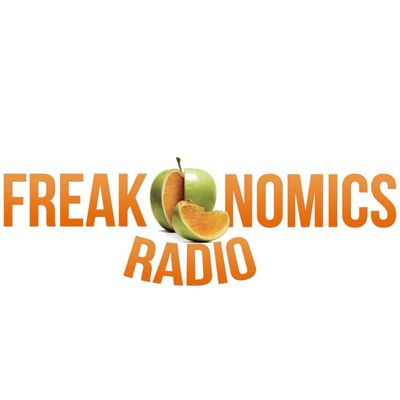
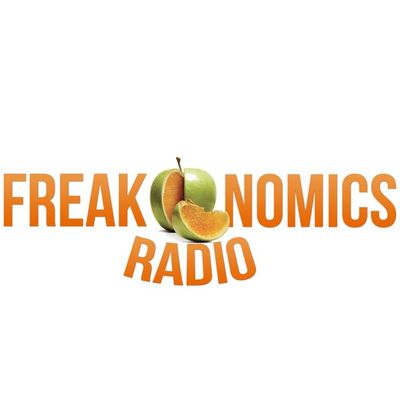
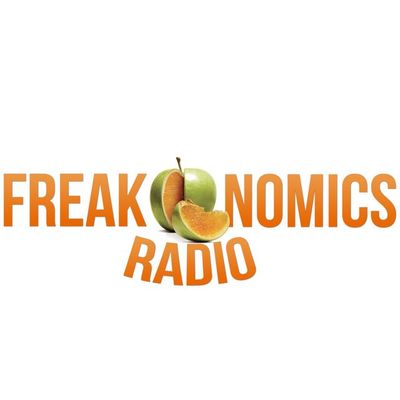

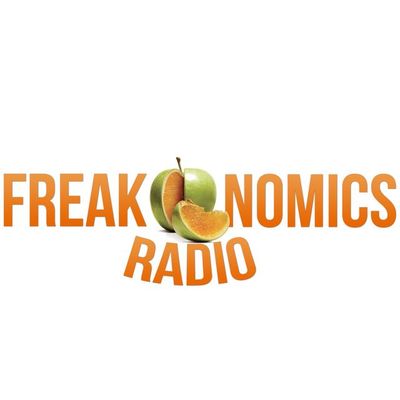
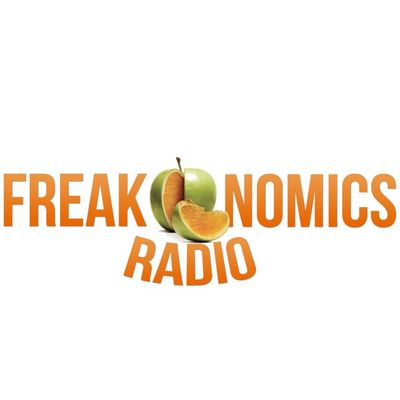
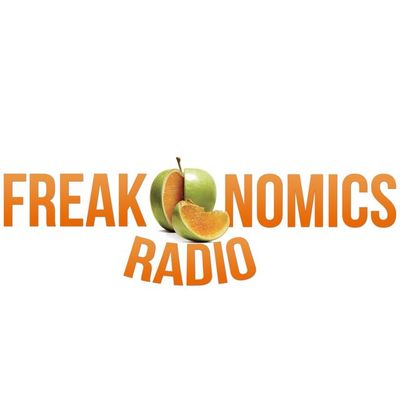
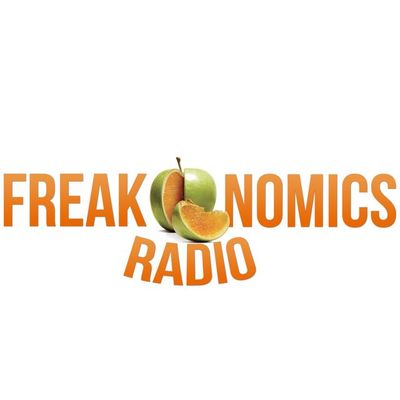
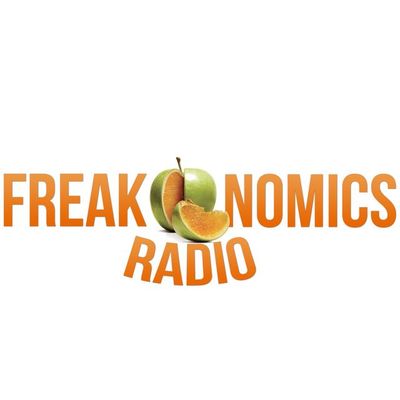
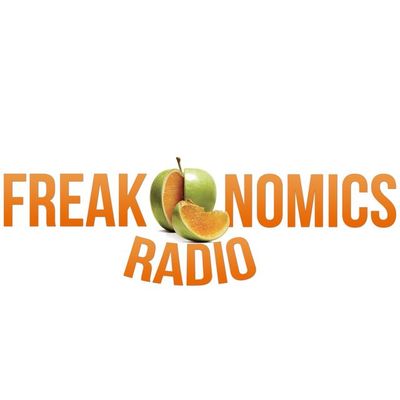
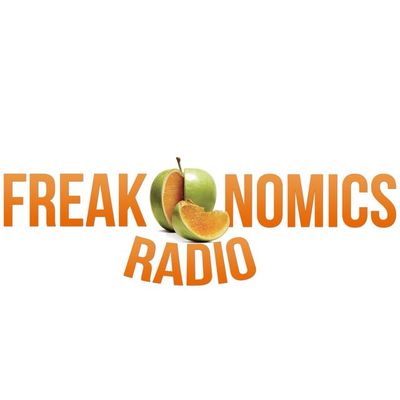
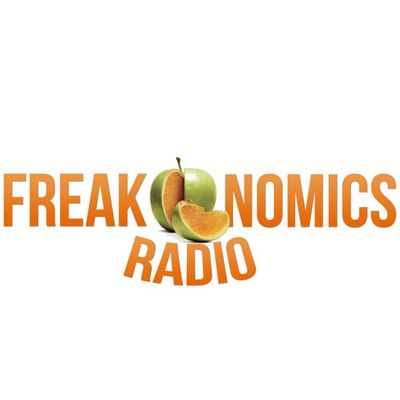
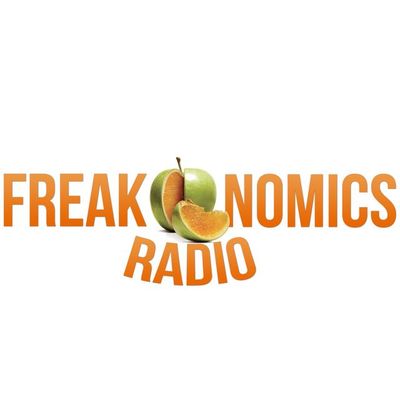
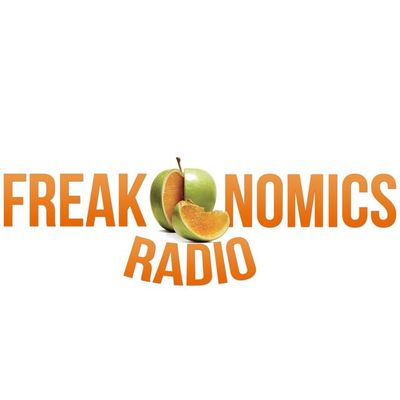
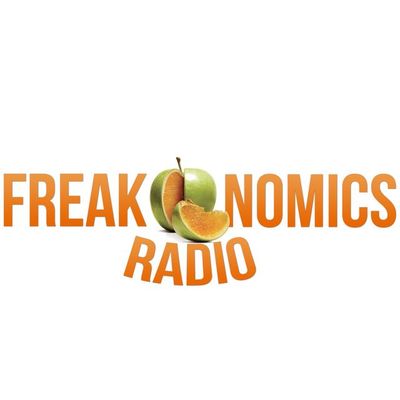
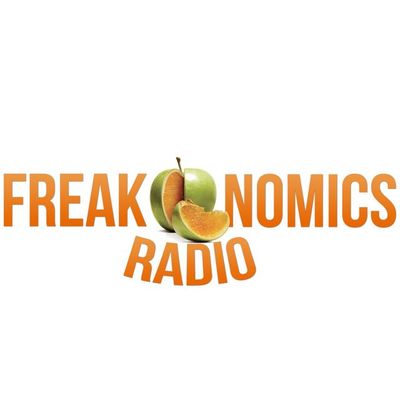
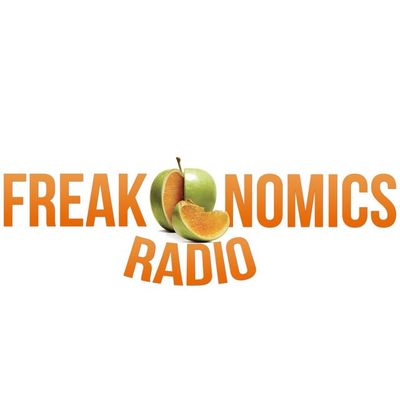
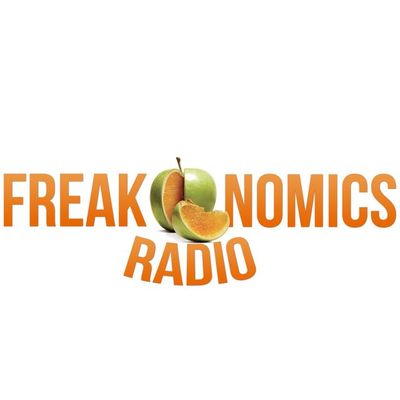
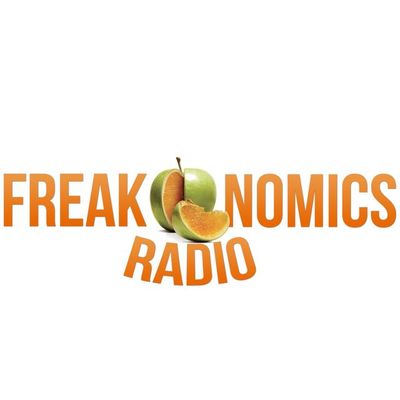
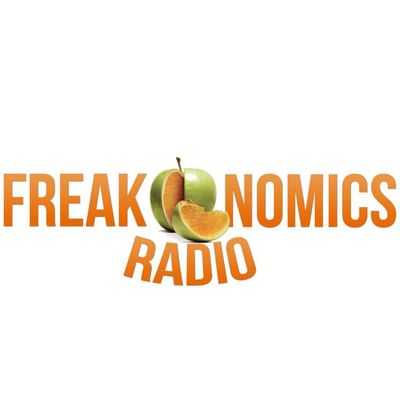
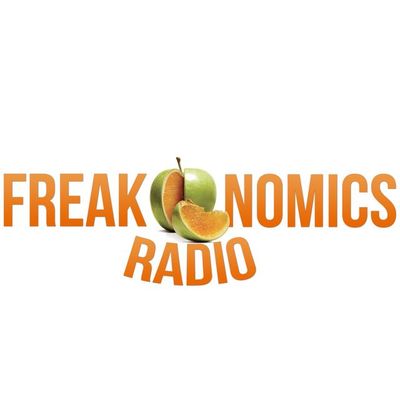
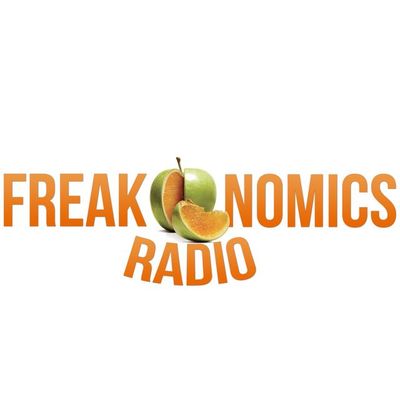
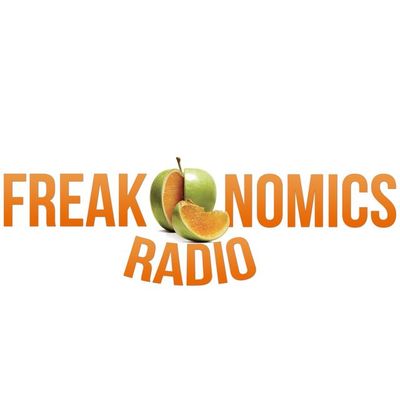
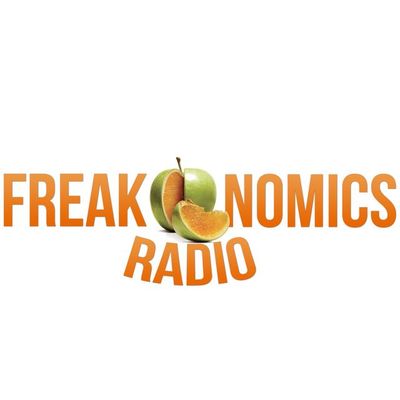
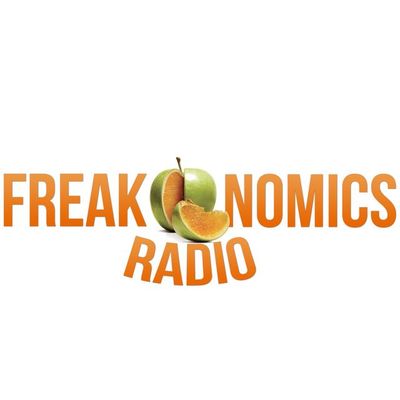
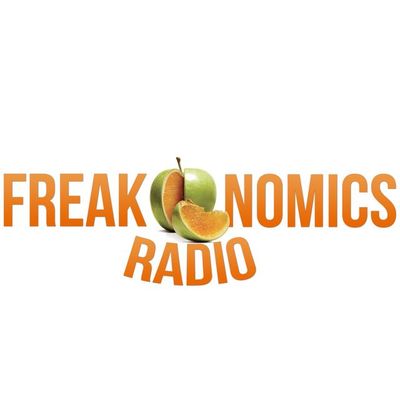
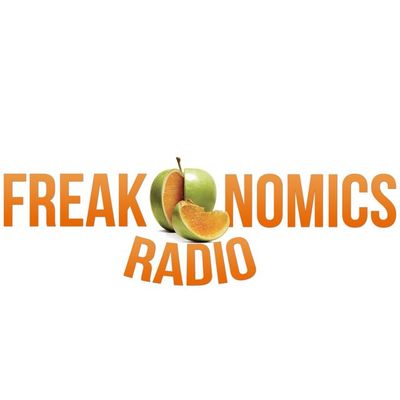
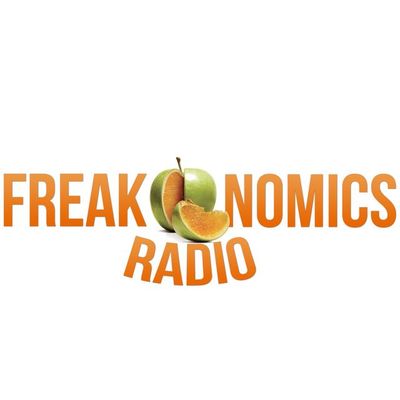
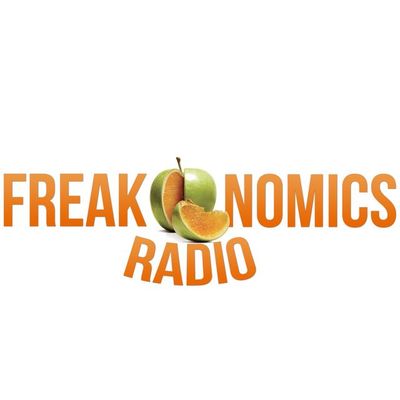
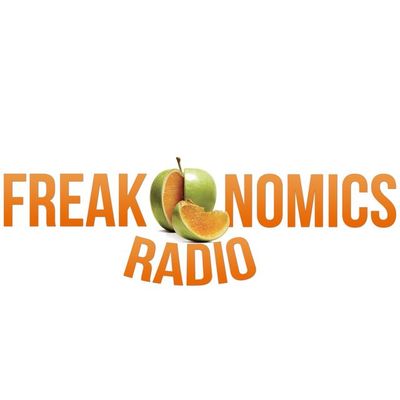
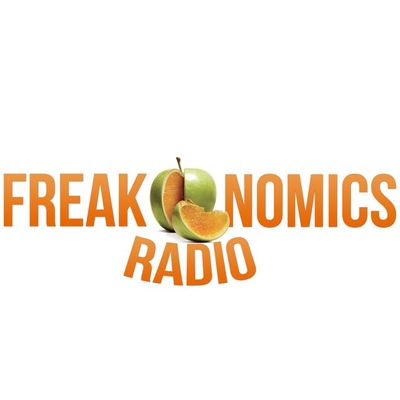
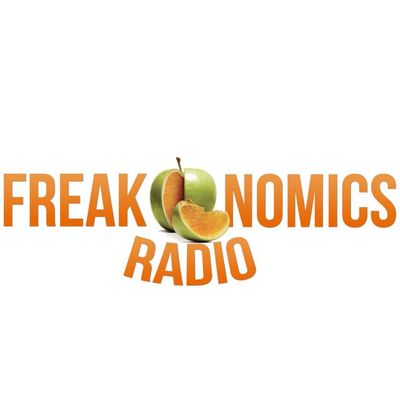
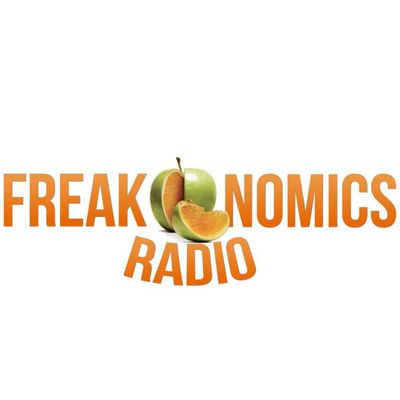
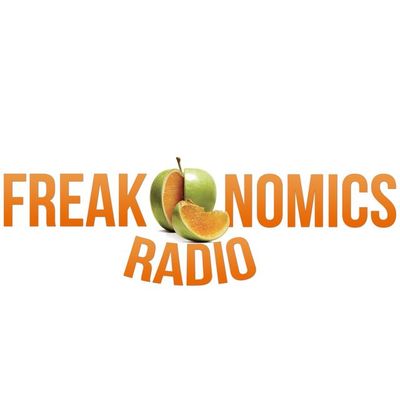
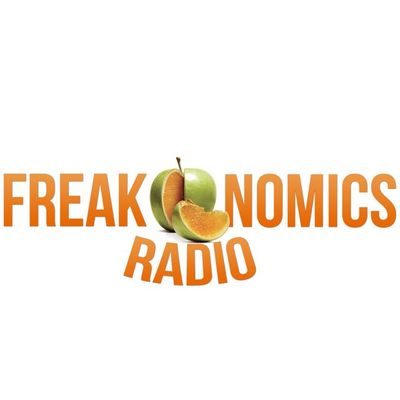
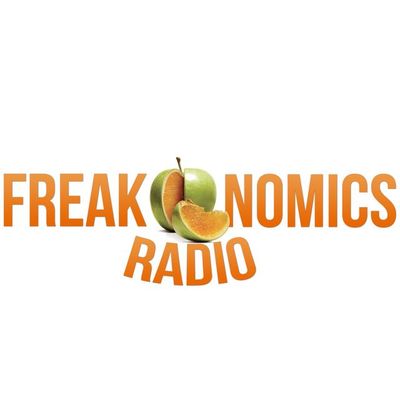
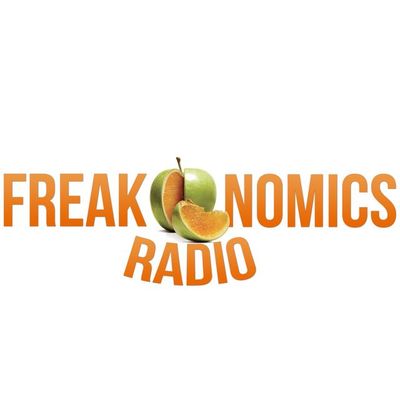
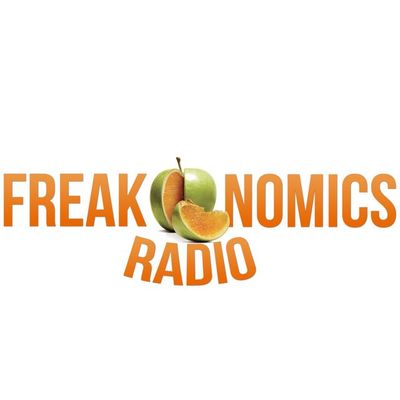
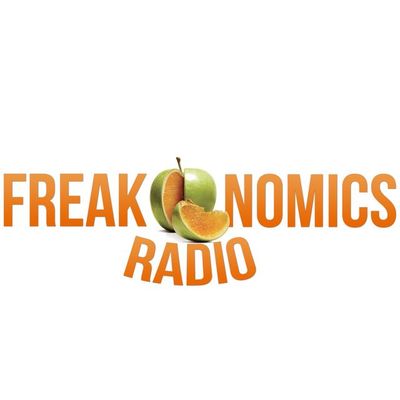

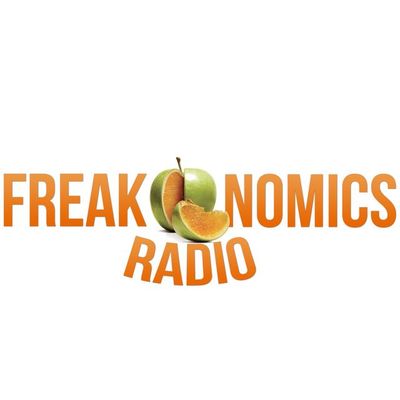
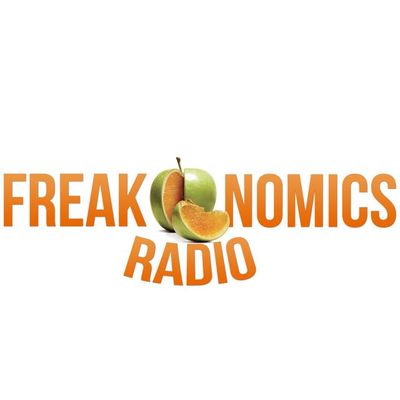
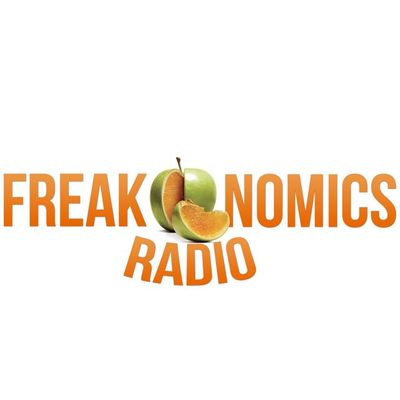
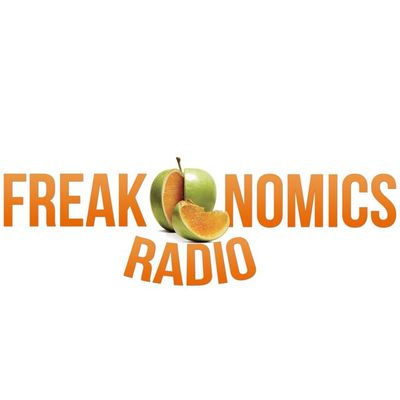
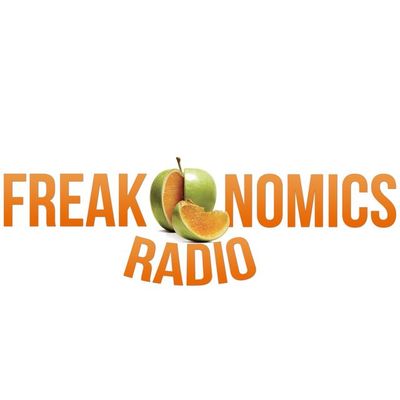
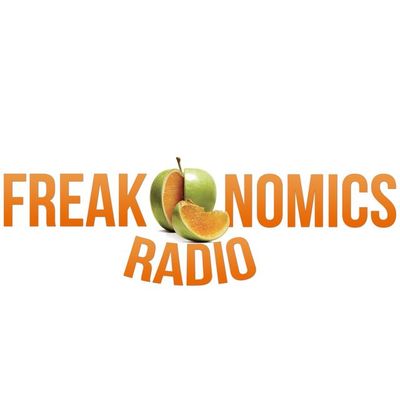
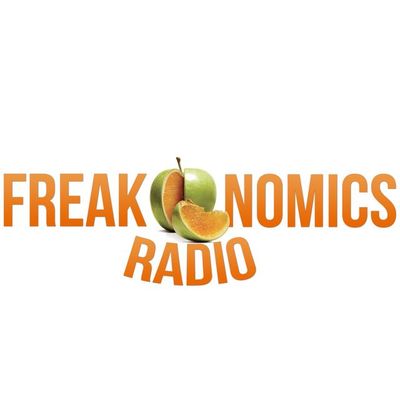
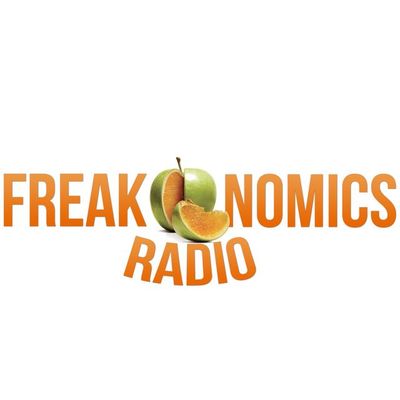
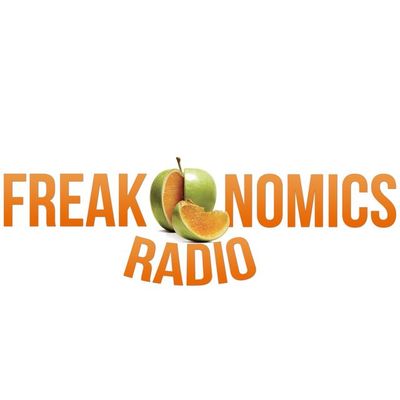
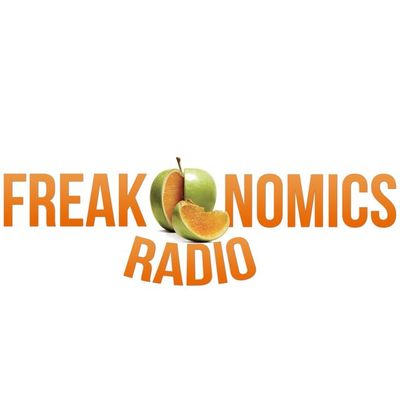
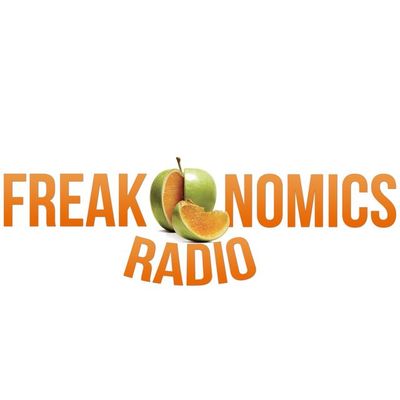
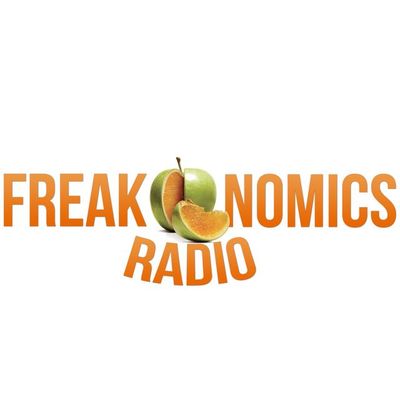
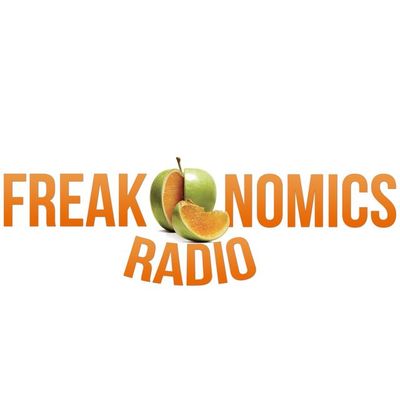
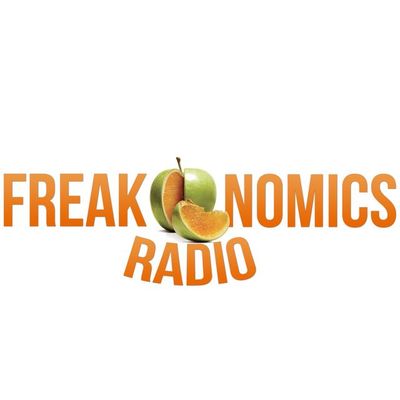
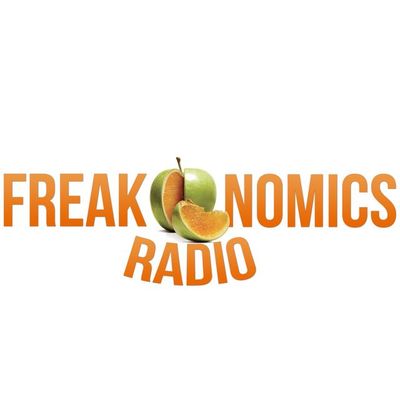
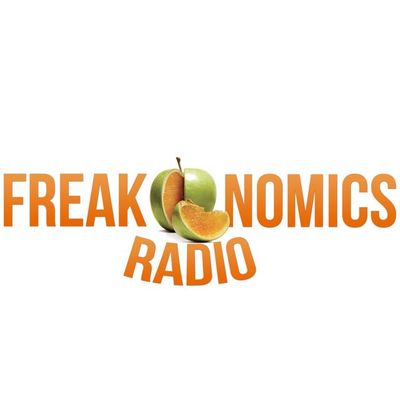
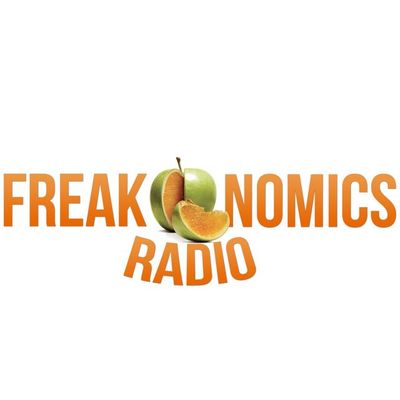
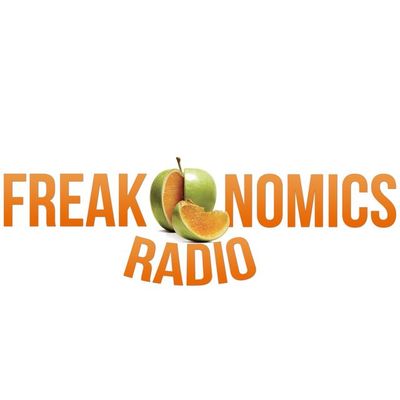
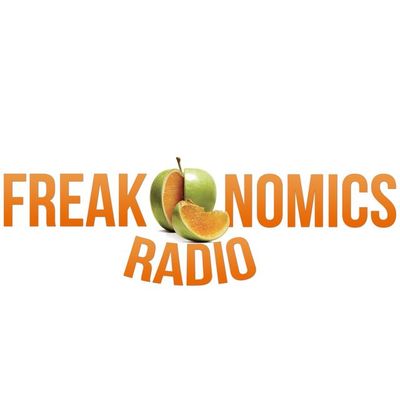
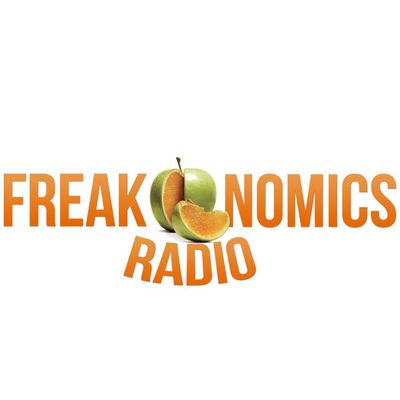
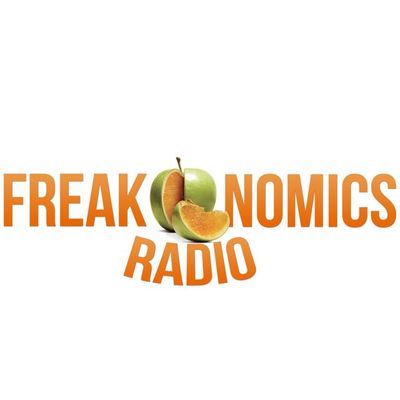

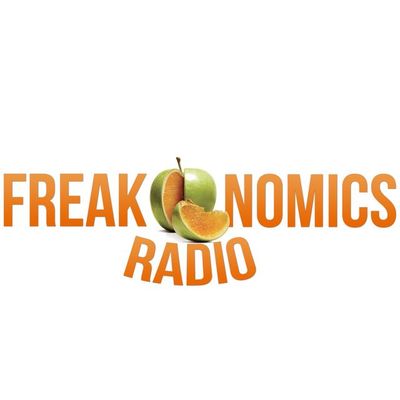
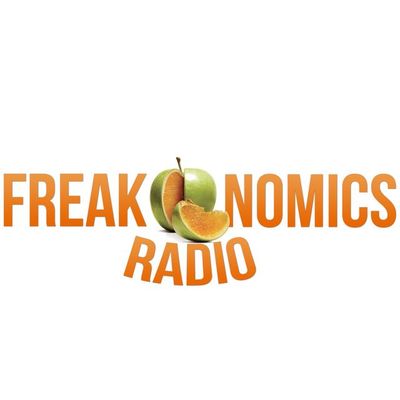
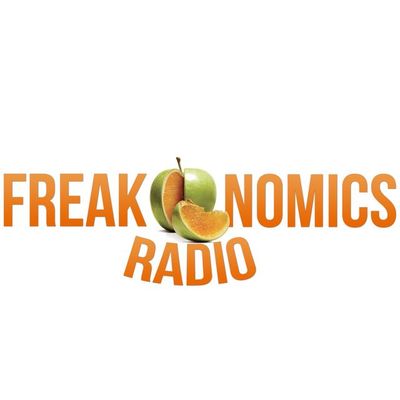
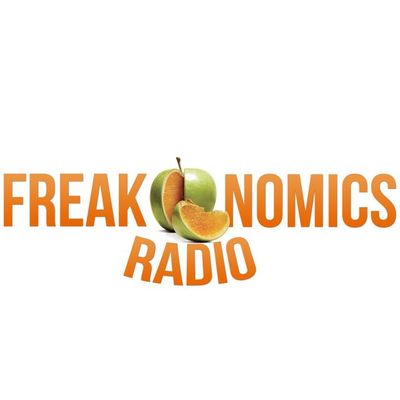
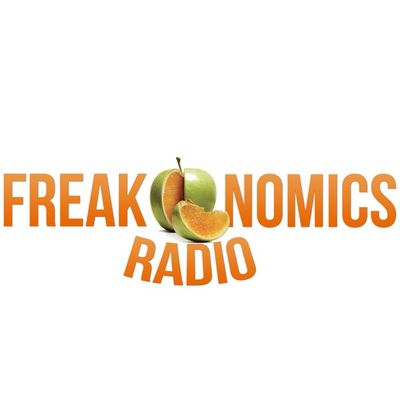
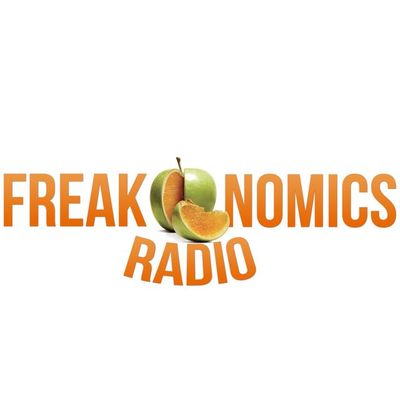
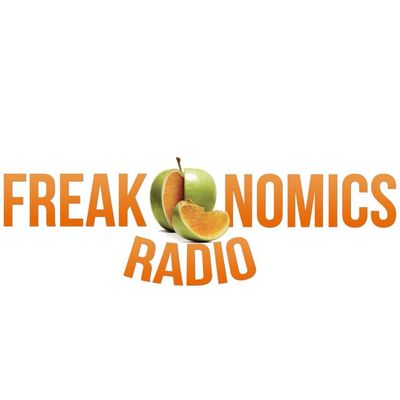
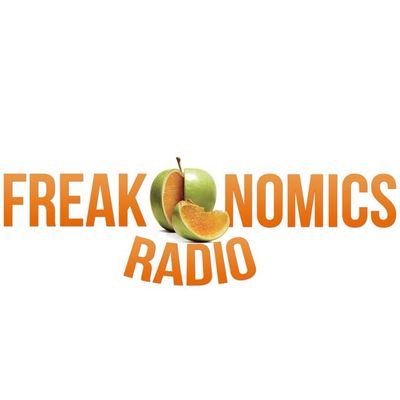
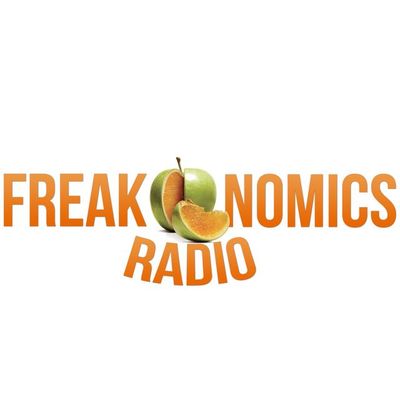
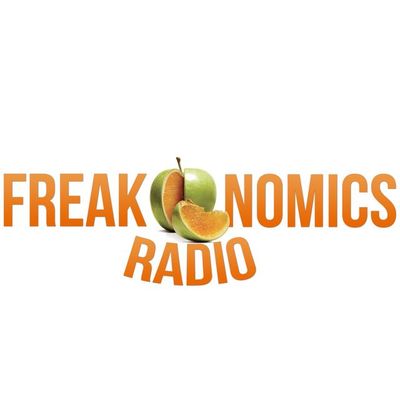
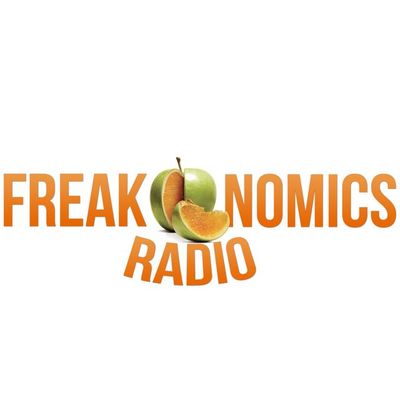
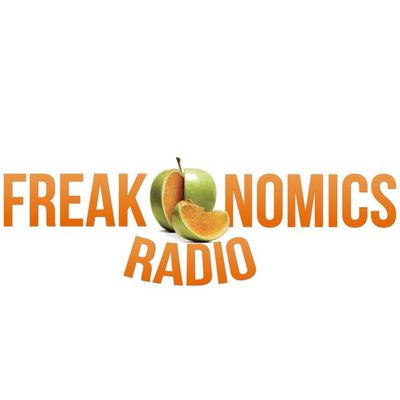
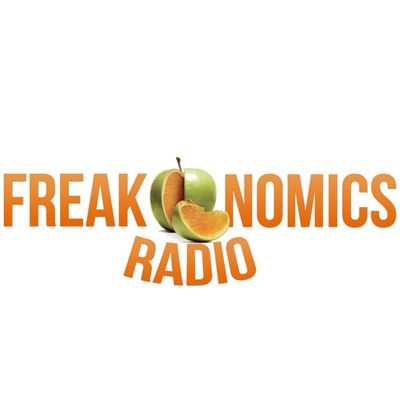
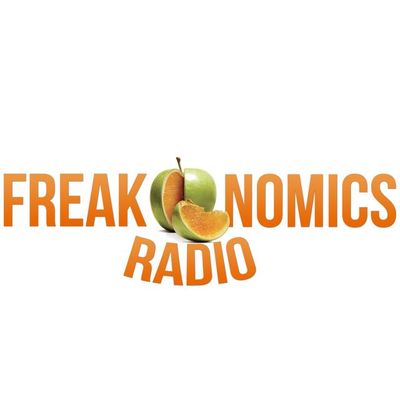
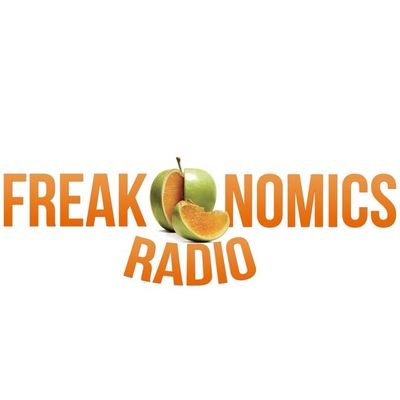
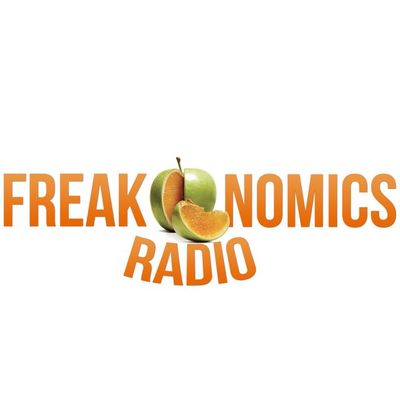
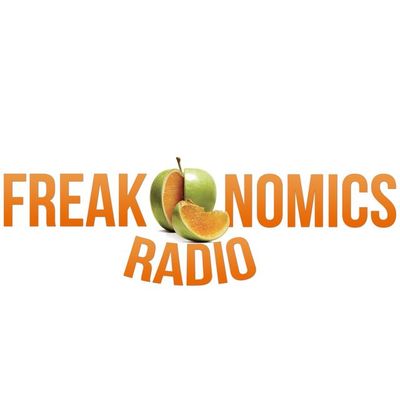
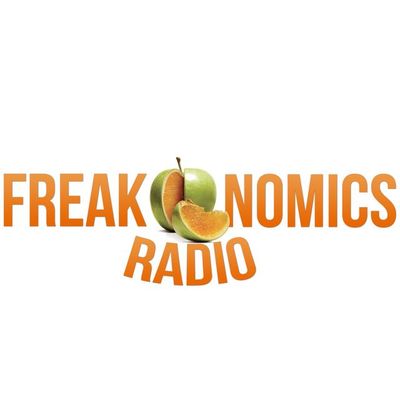
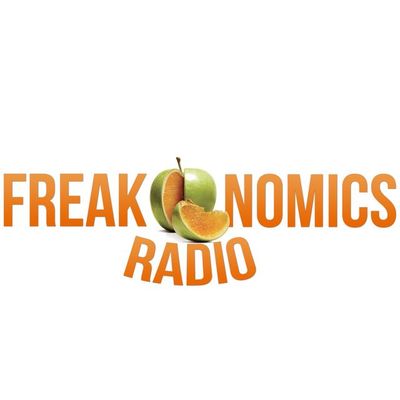
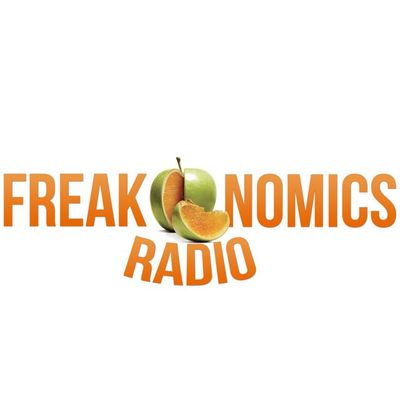
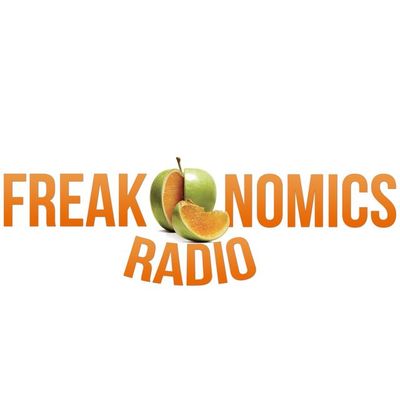
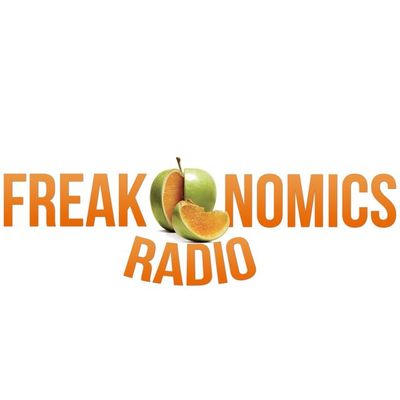
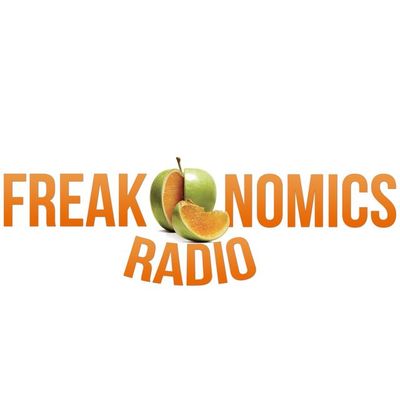
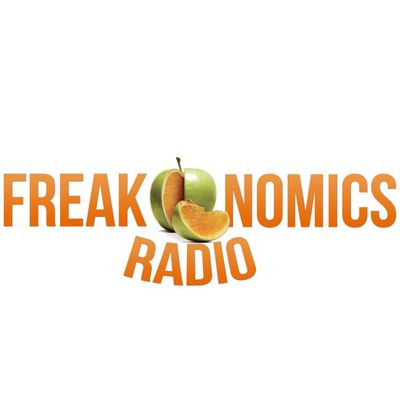
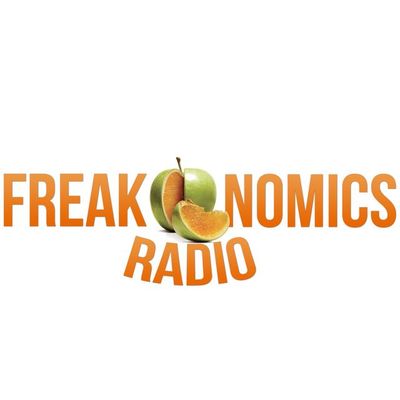
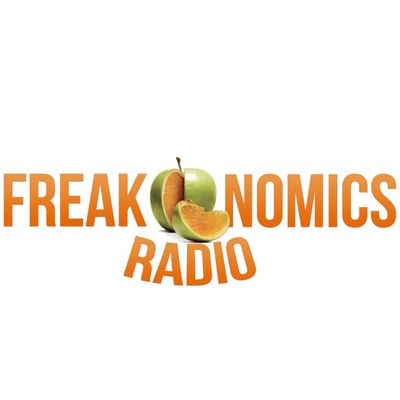
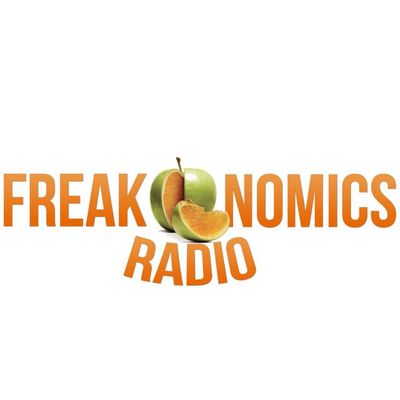
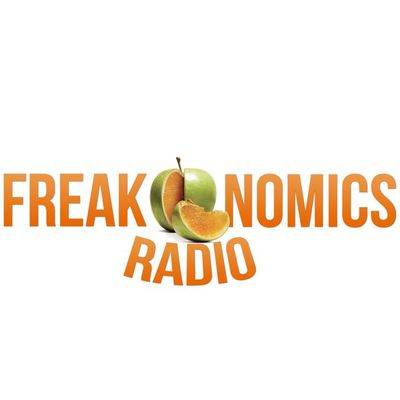
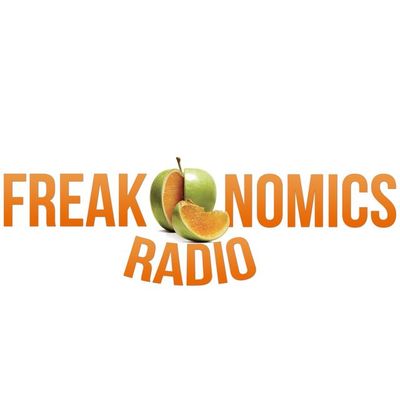
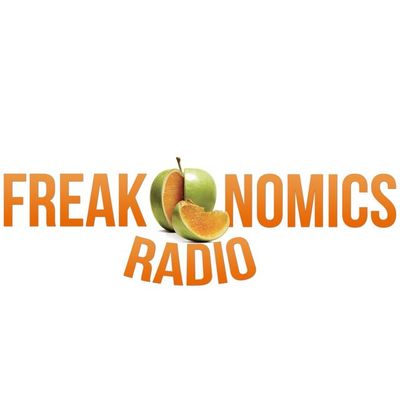
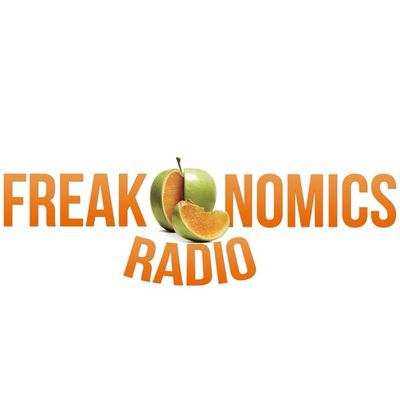
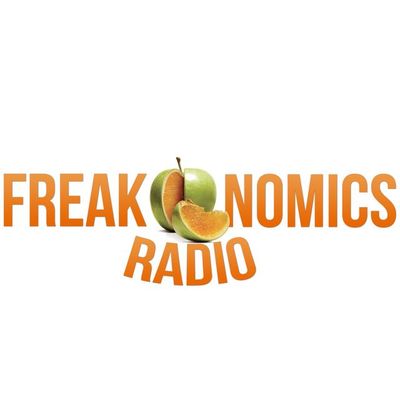
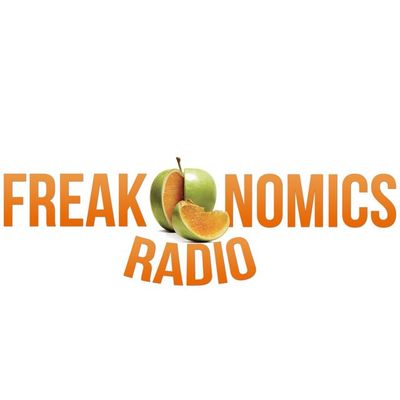
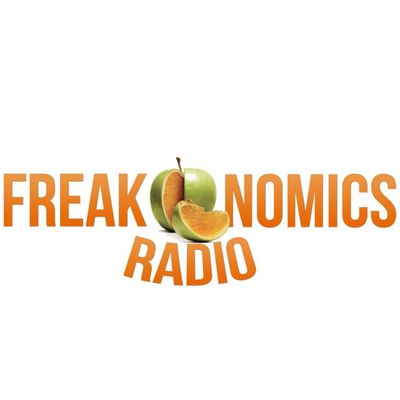
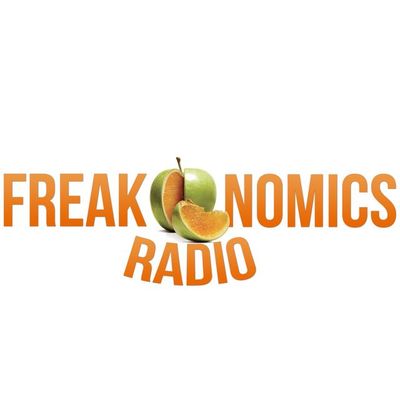
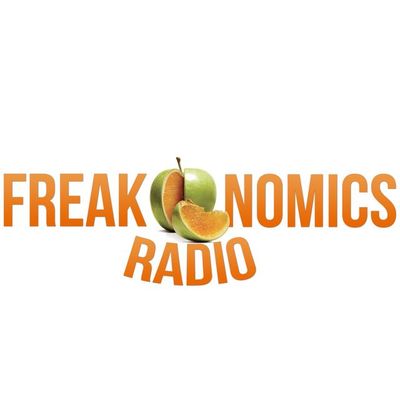
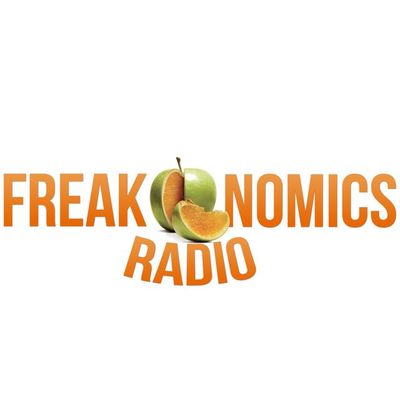
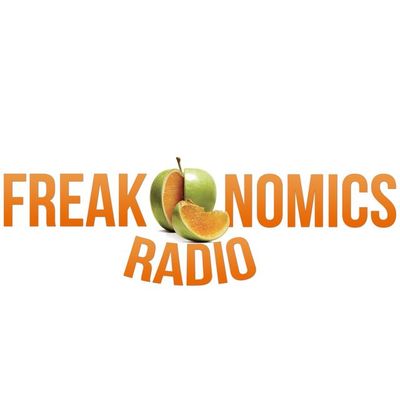
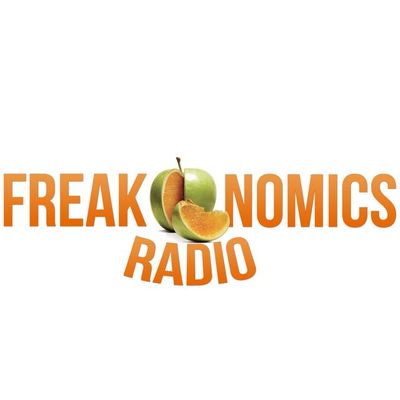
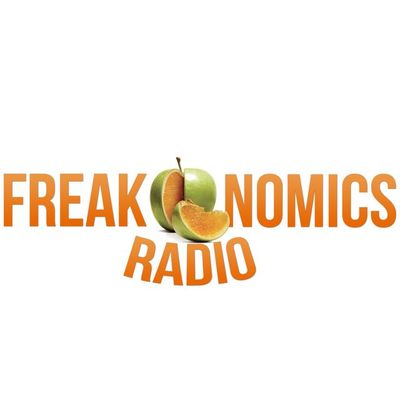
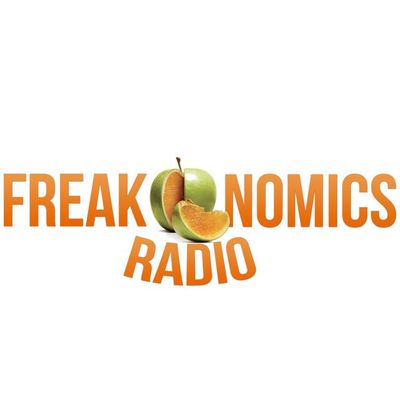
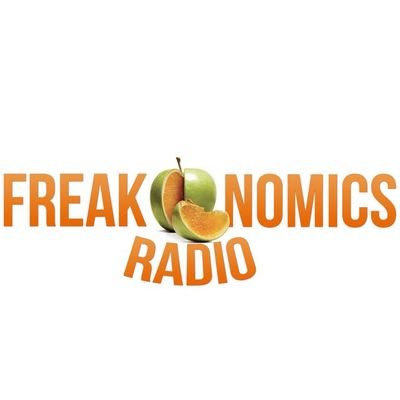
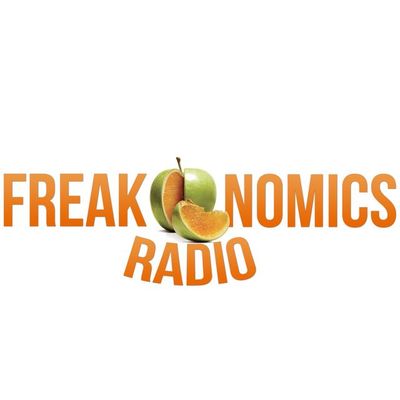
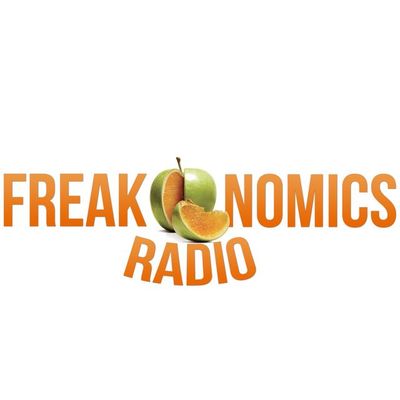
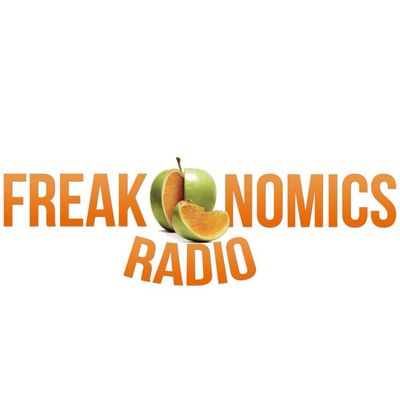
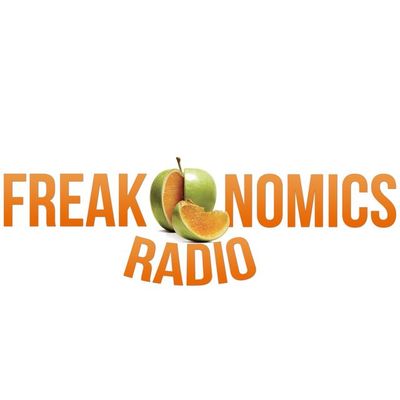
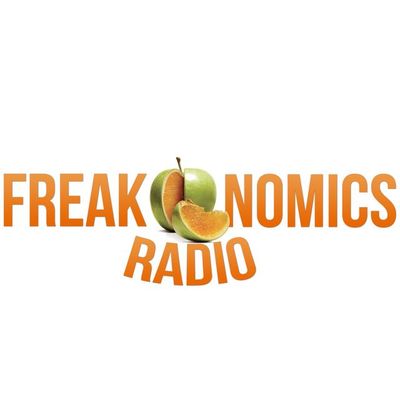
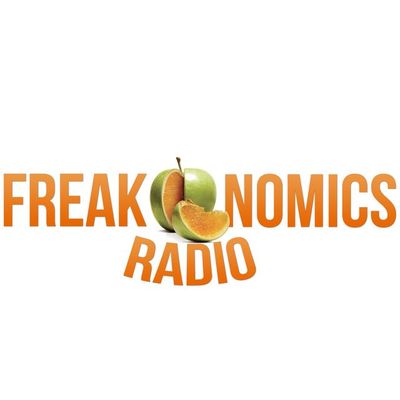
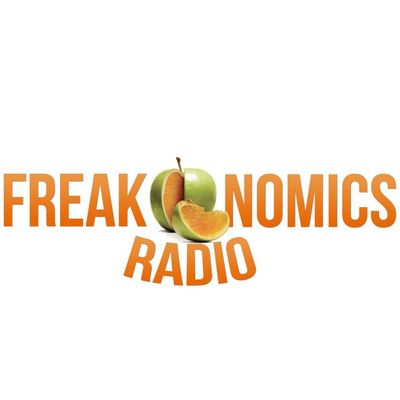
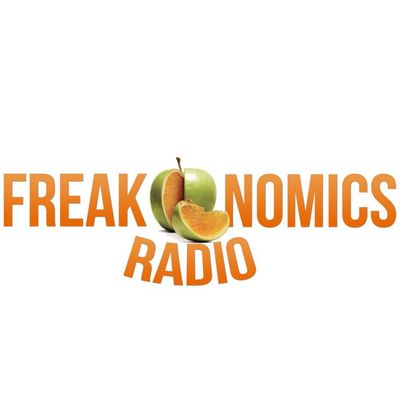
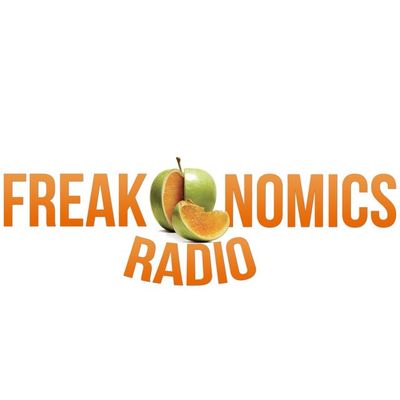
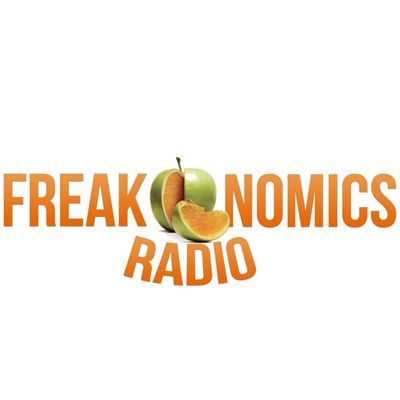
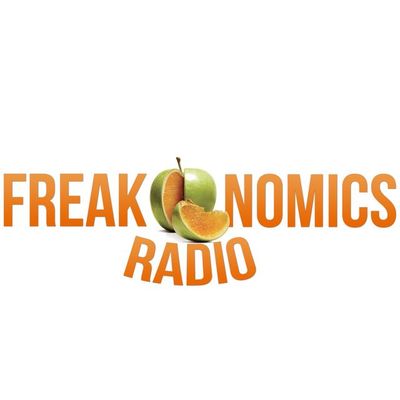

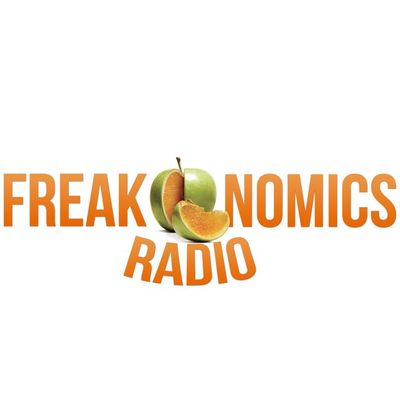

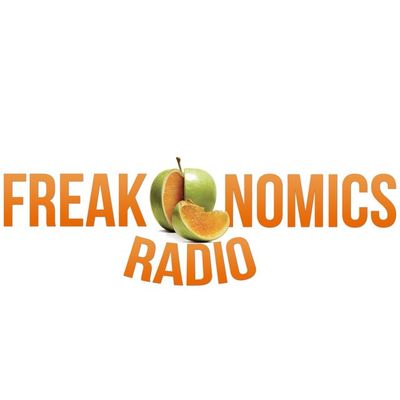
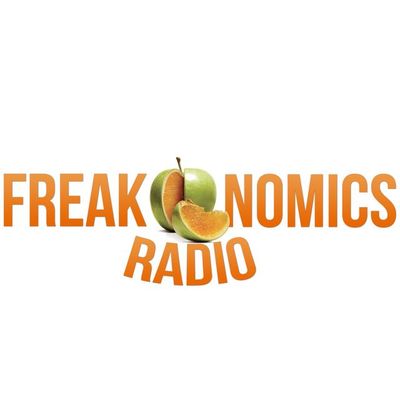
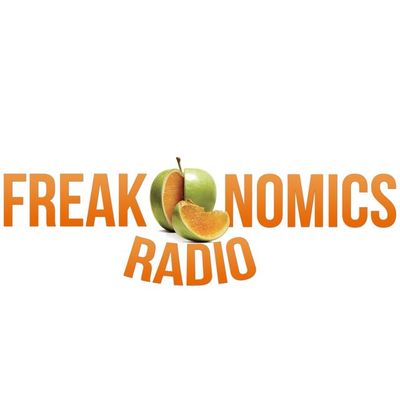
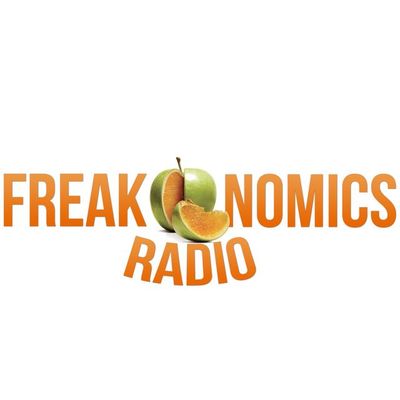
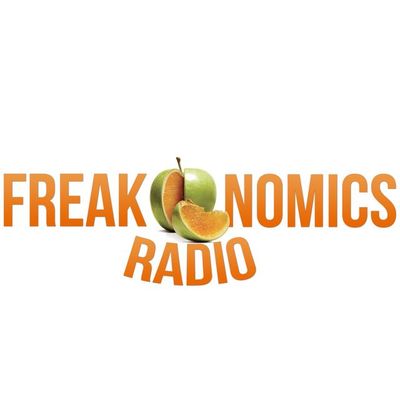
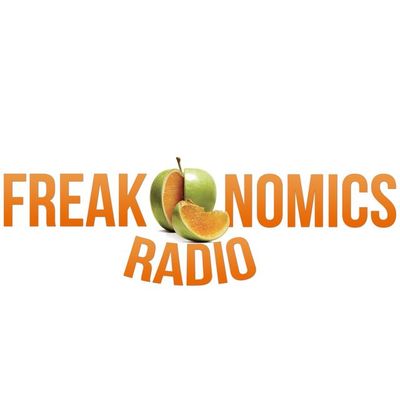
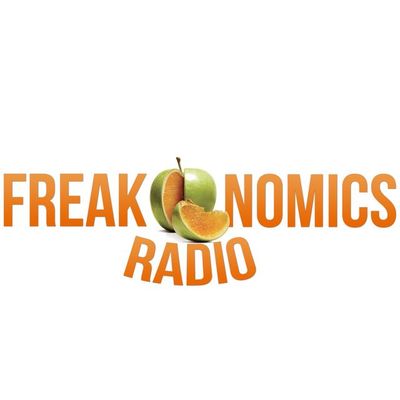
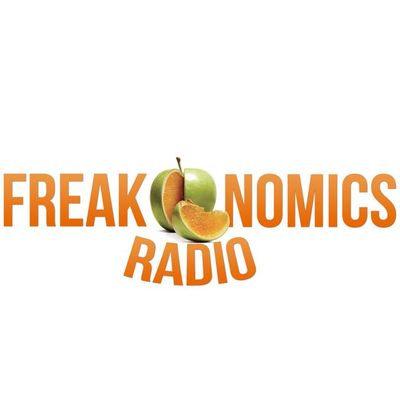
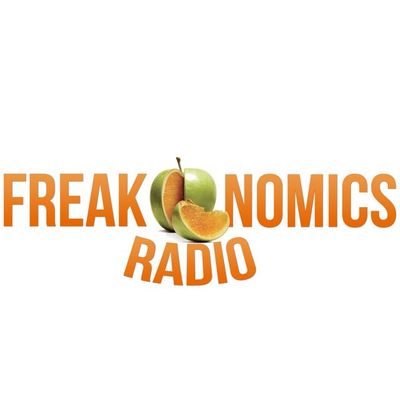

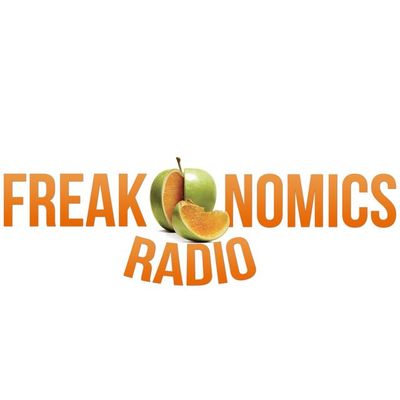
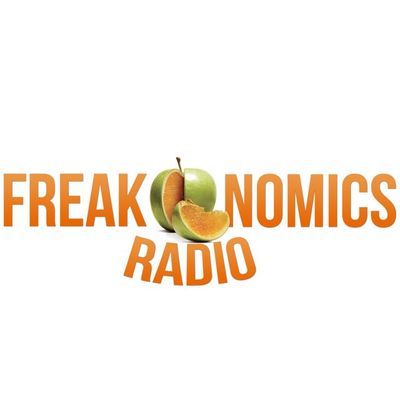
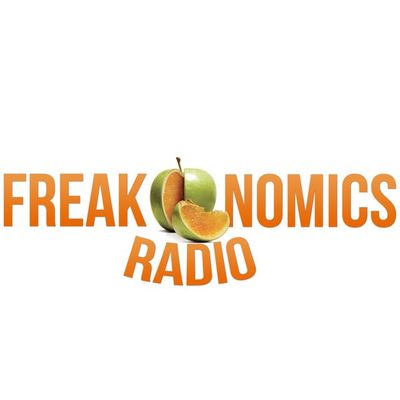
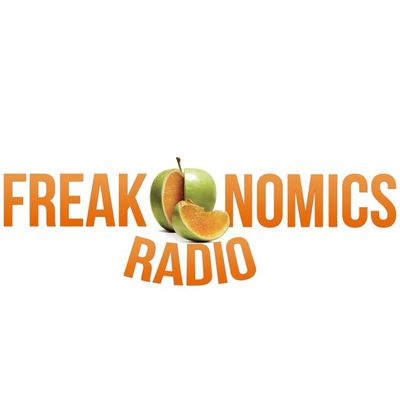
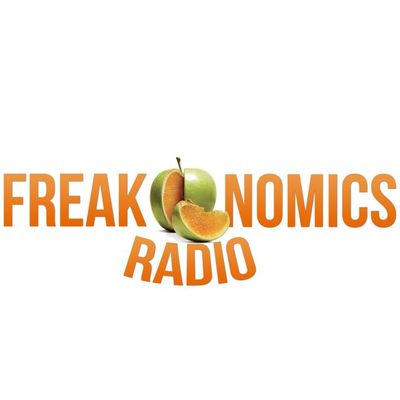
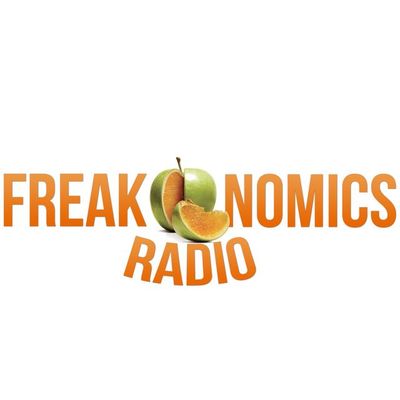
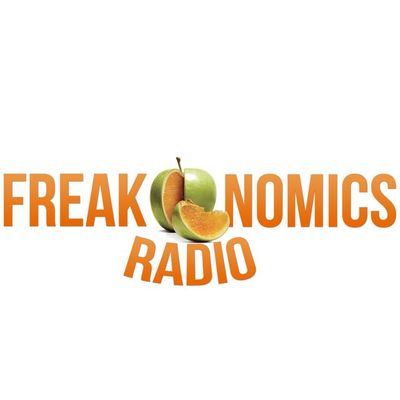
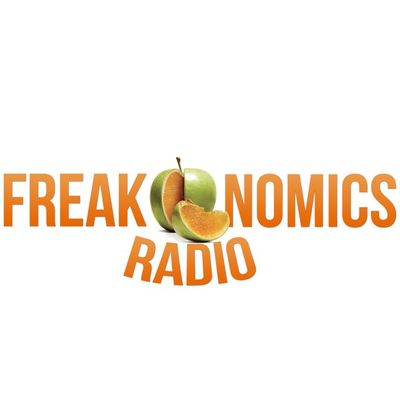

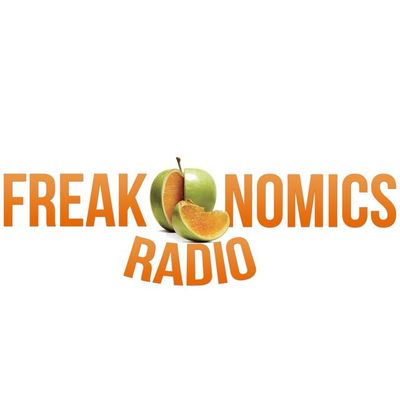
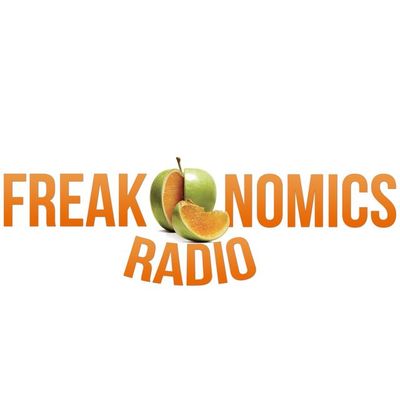
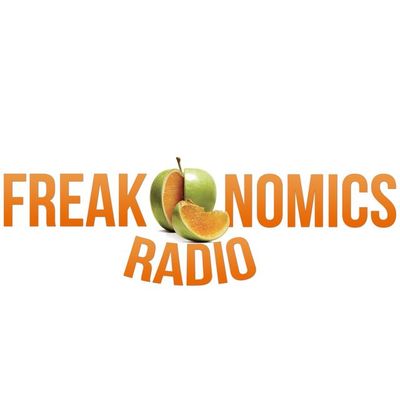
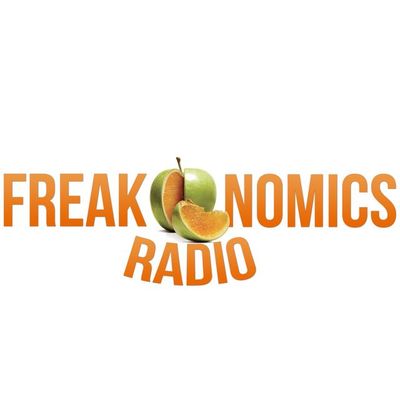
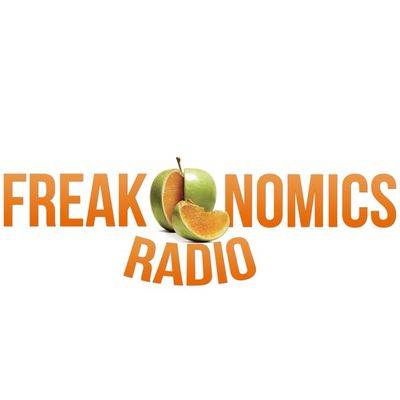
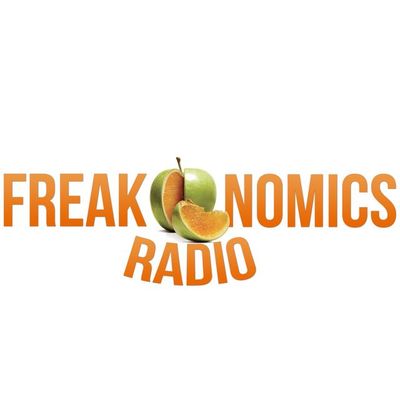
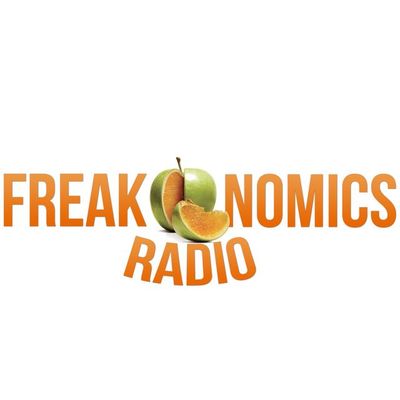
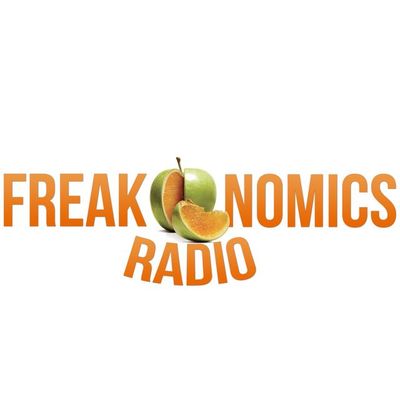
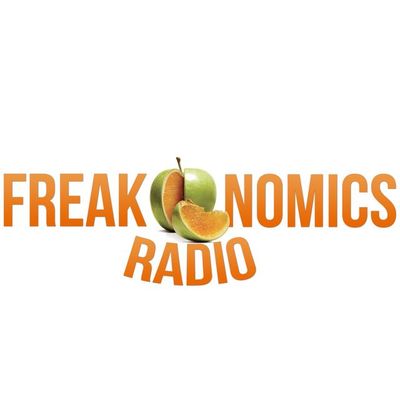
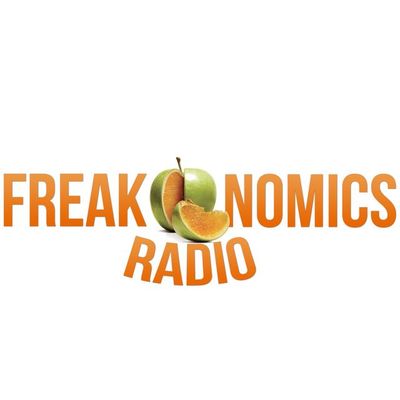
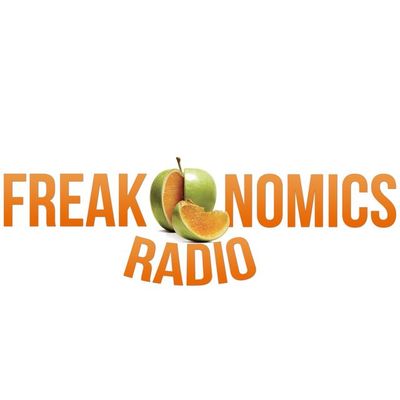
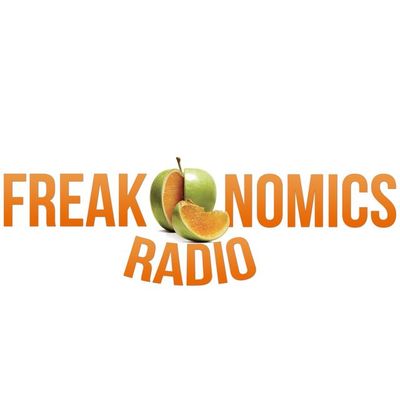
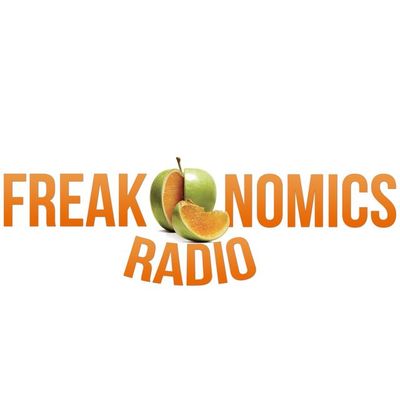
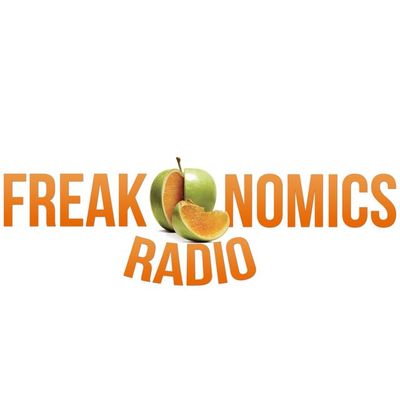
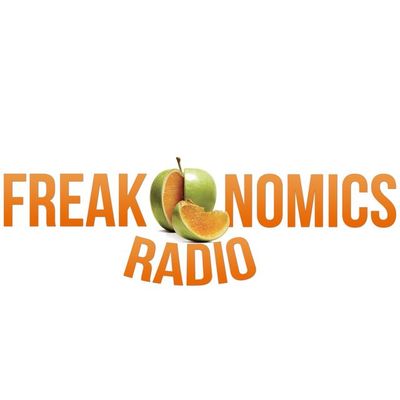
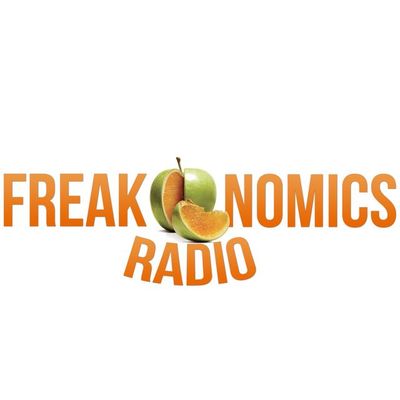
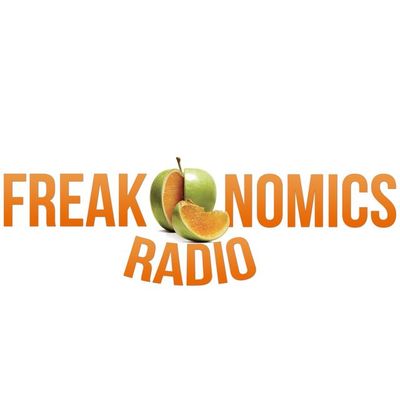
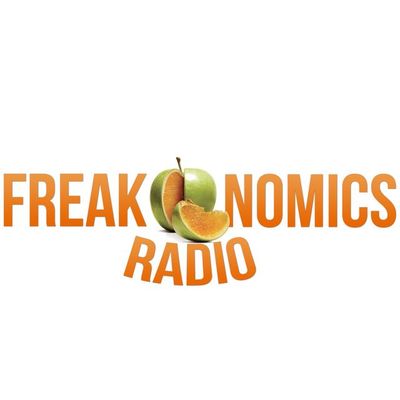
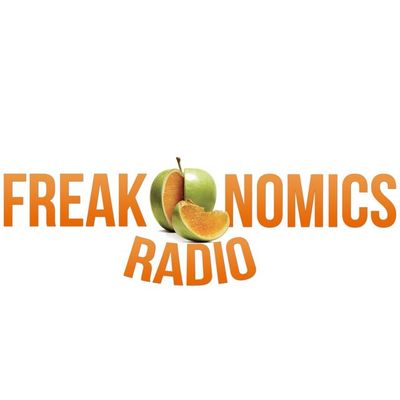
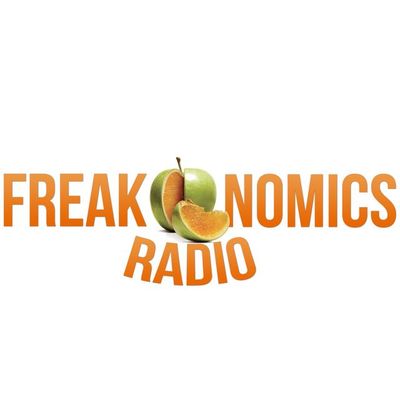
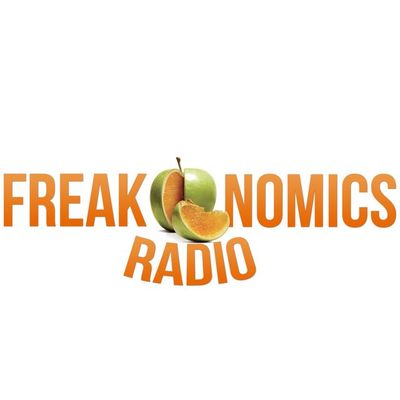
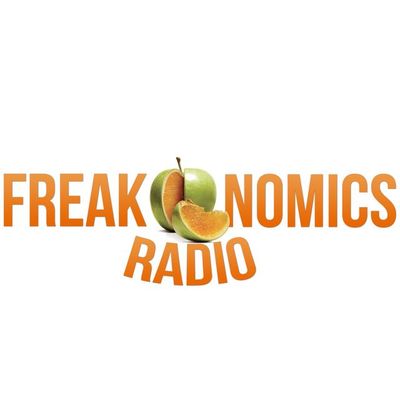
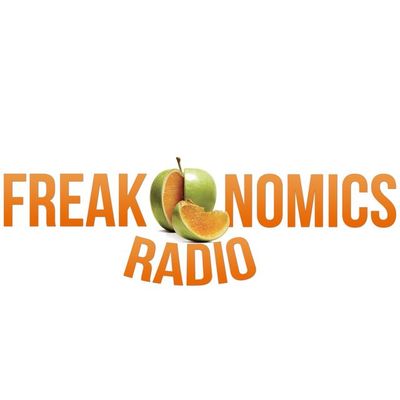
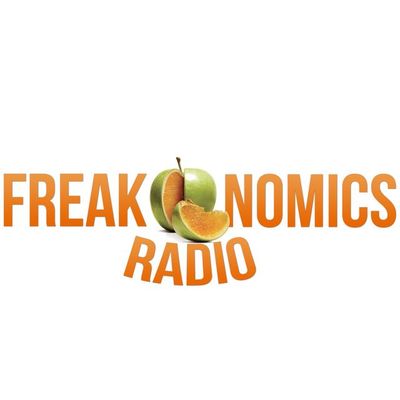
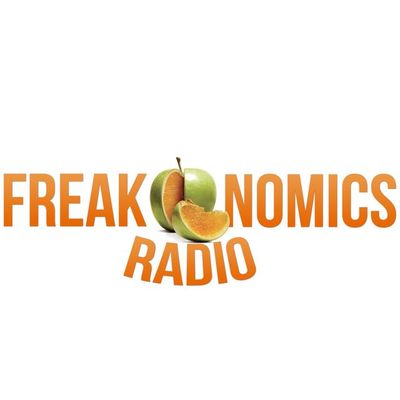
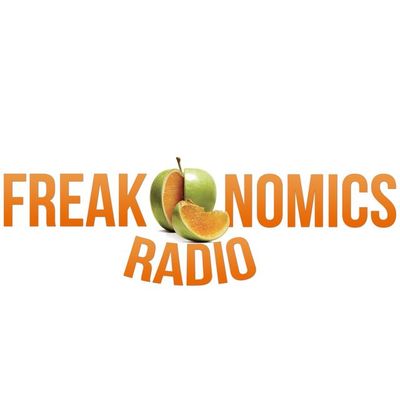
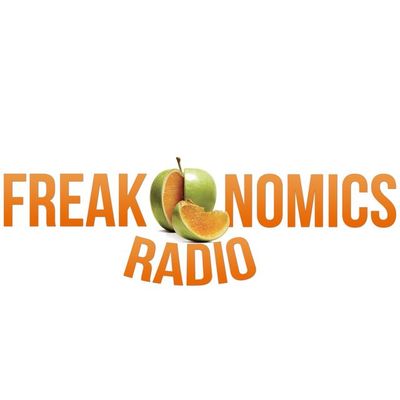
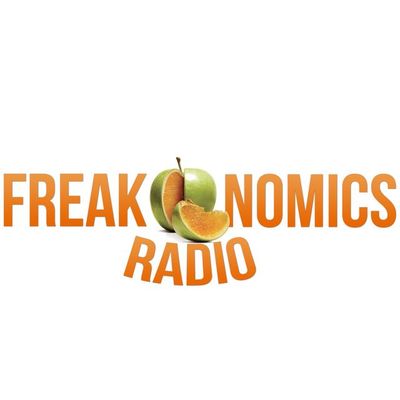
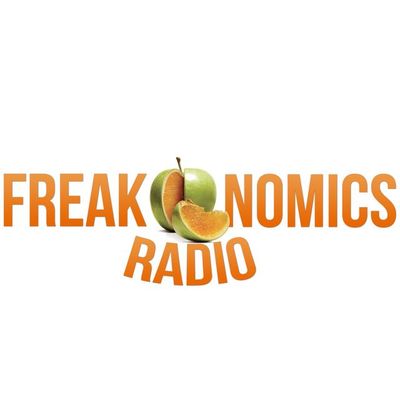
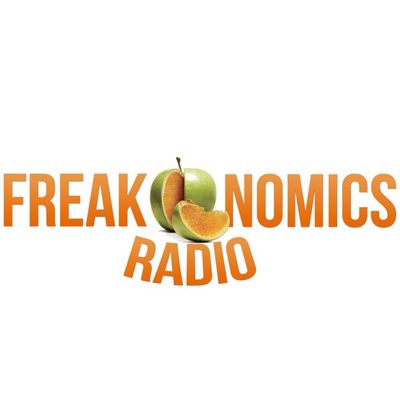
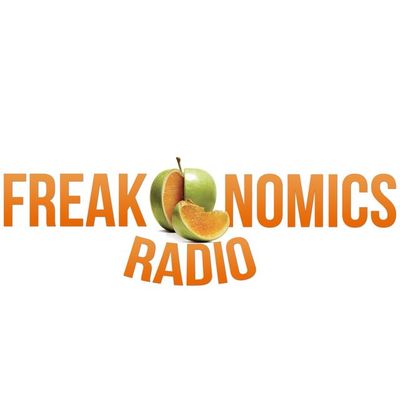
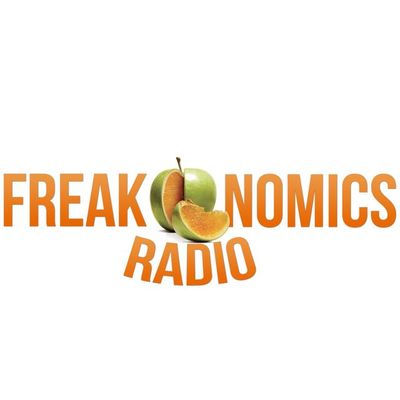
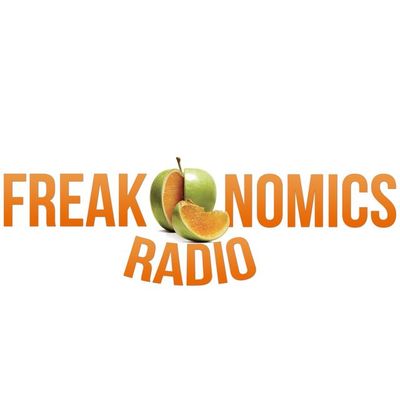
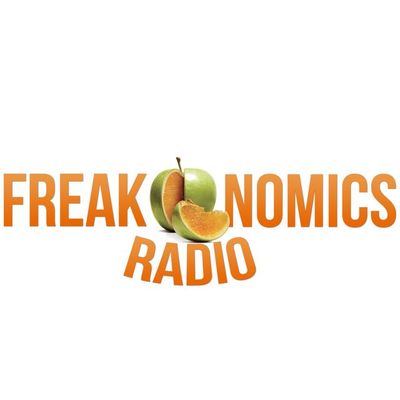
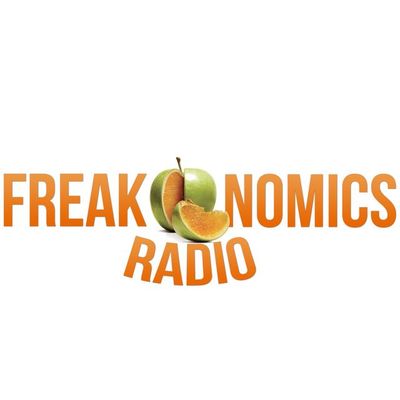
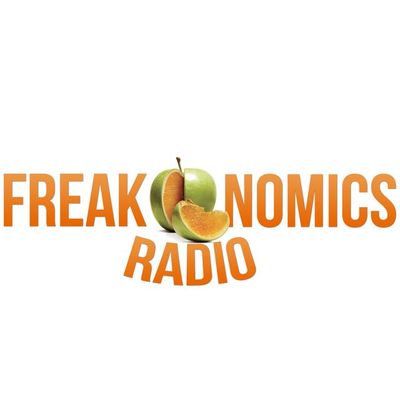
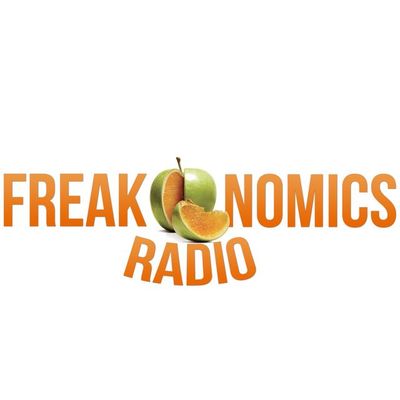
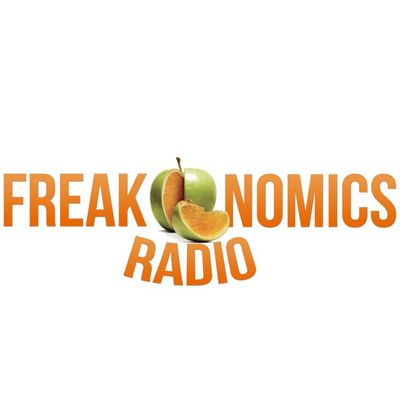
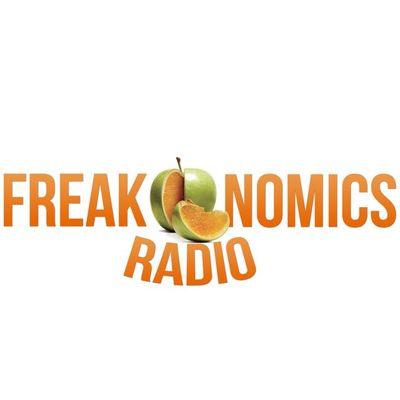
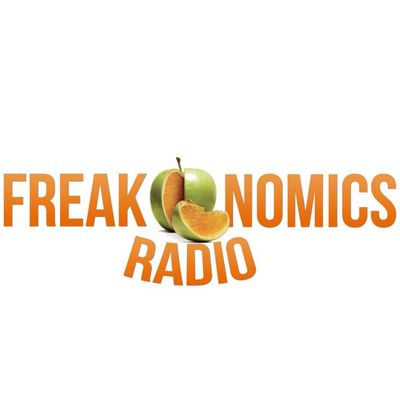
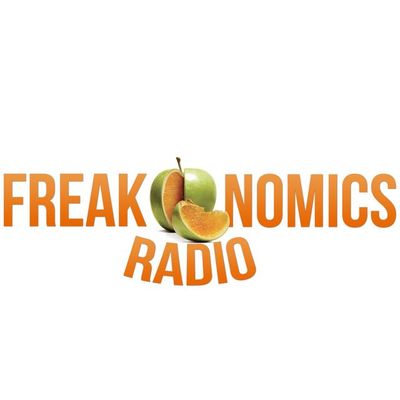
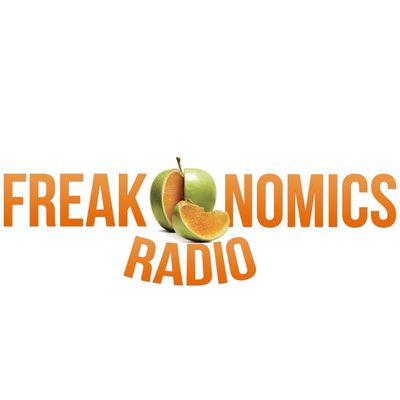
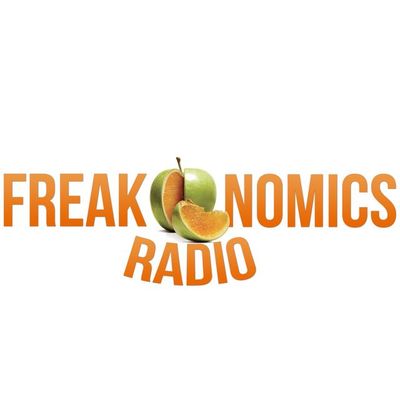
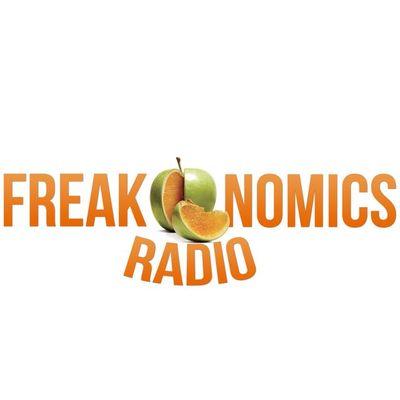
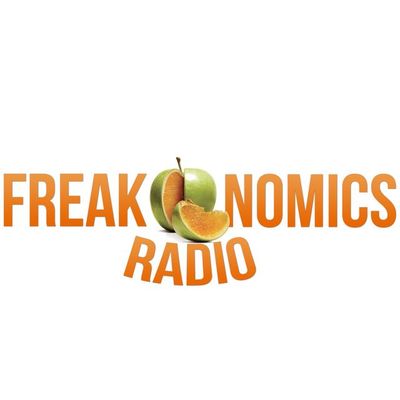
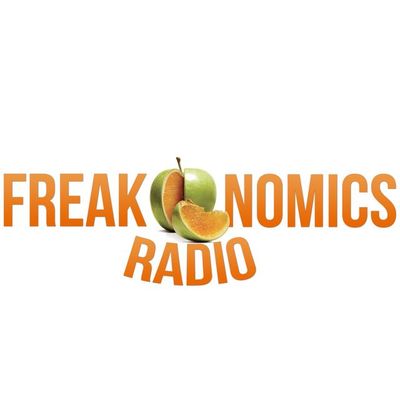
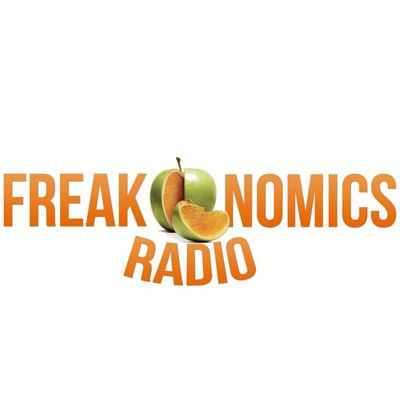
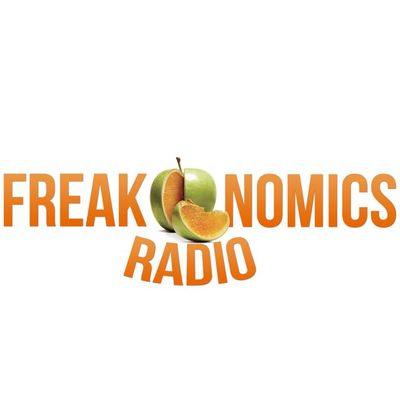
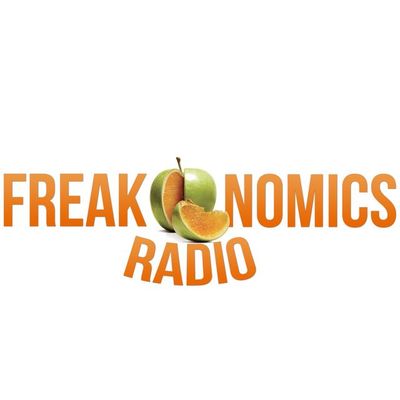
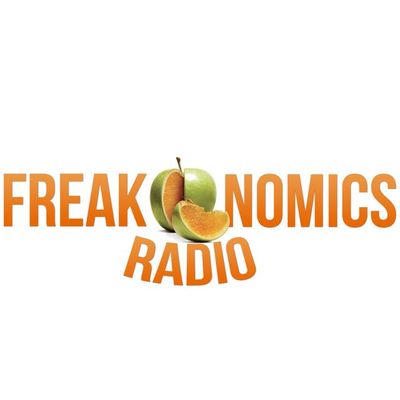
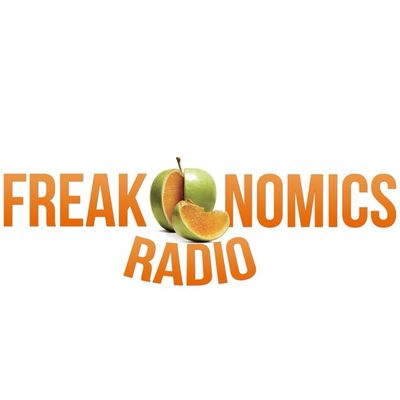
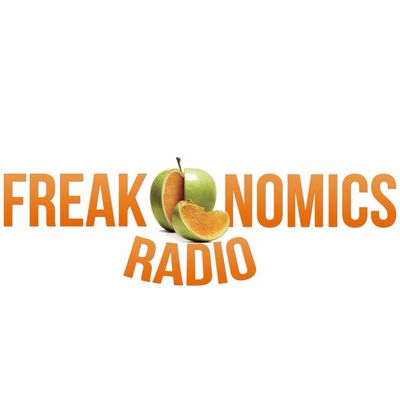
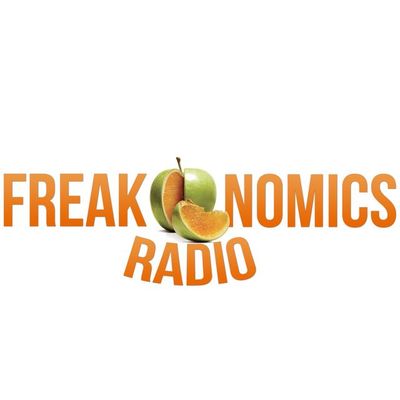
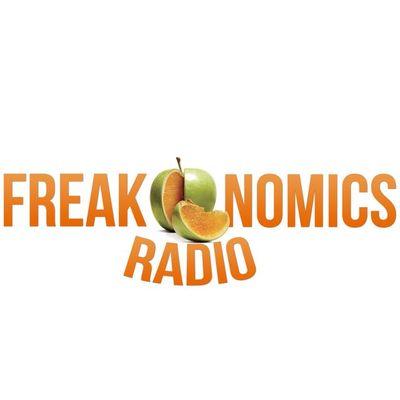
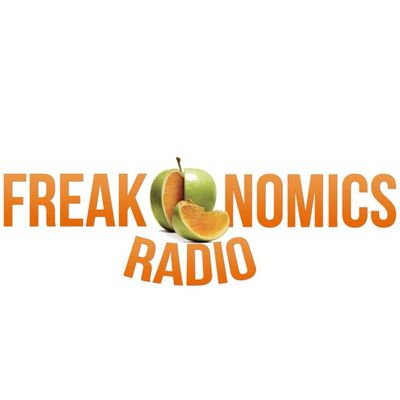
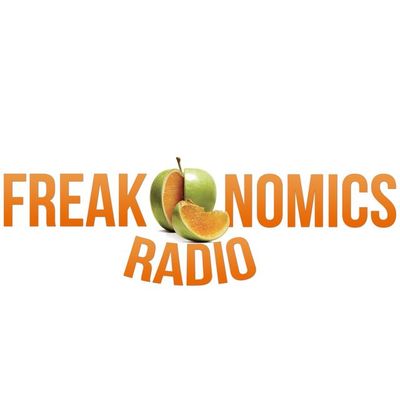
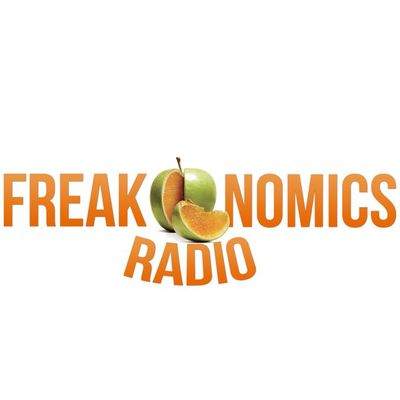
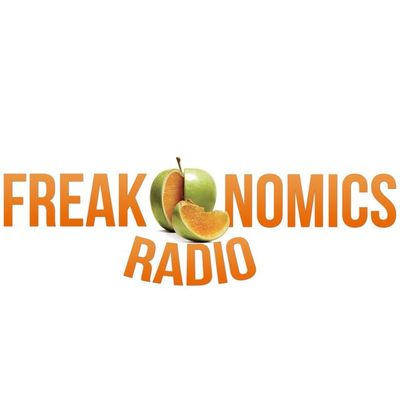
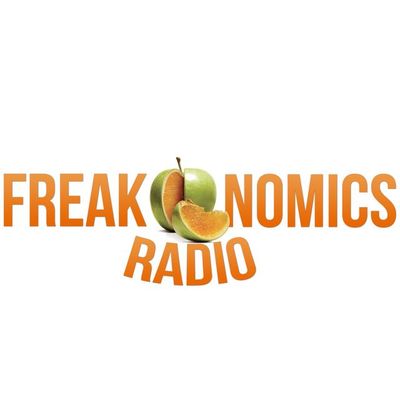
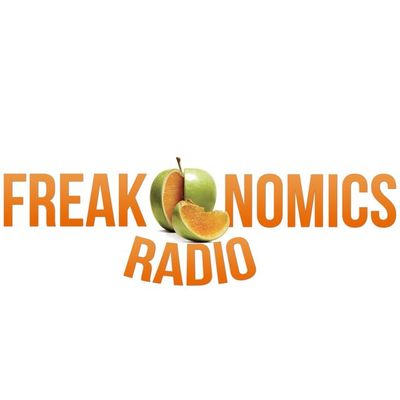
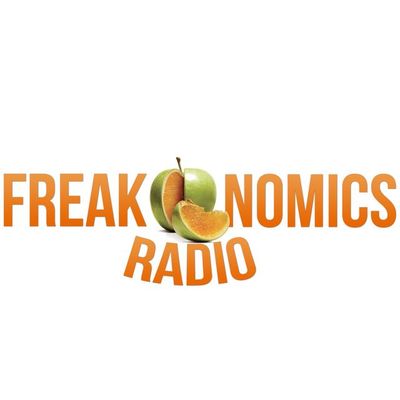
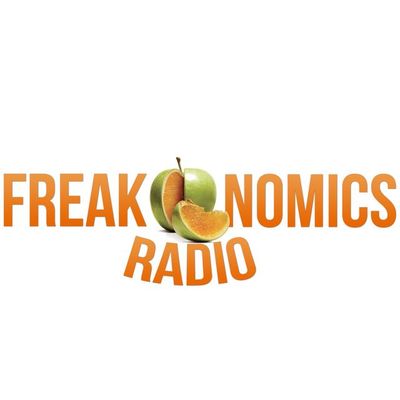
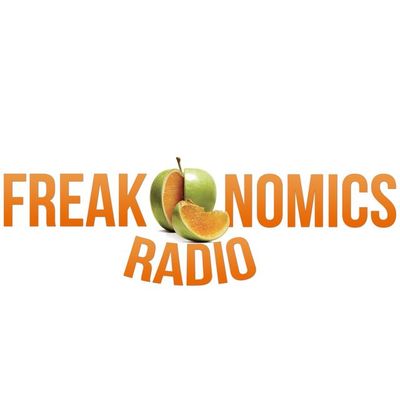

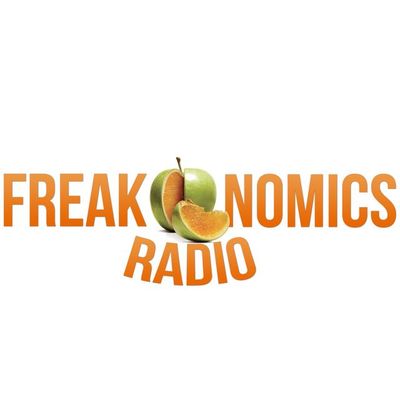

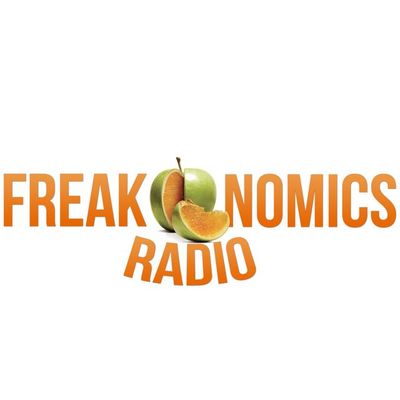

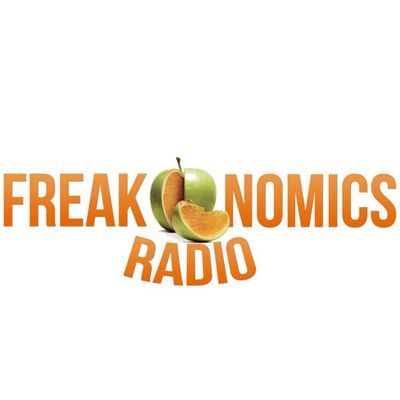
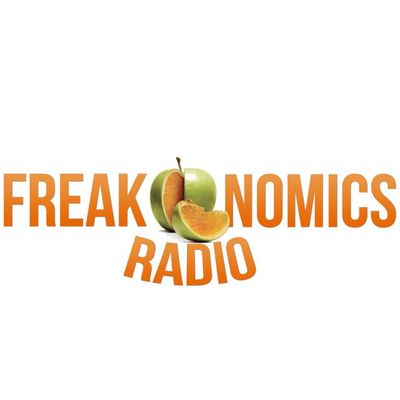
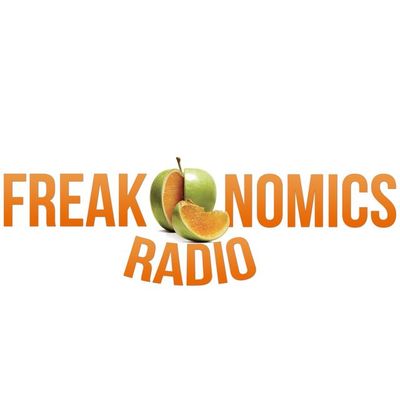
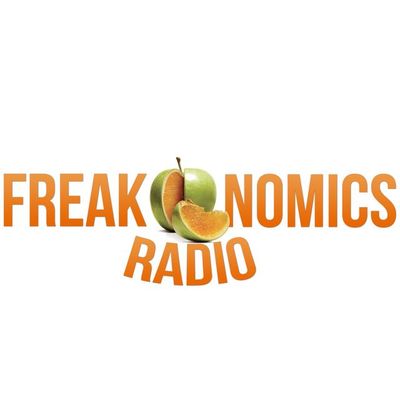
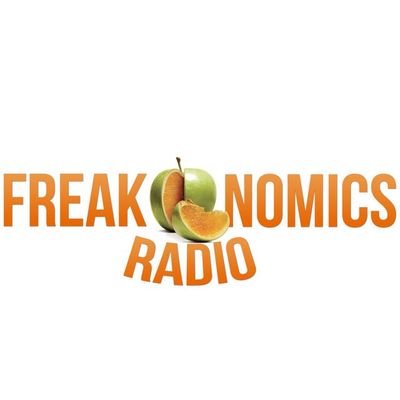
28. Why Can’t We Predict Earthquakes?
<p>We talk to a U.S. Geological Survey physicist about the science -- and folly -- of predicting earthquakes. There are lots of known knowns; and, fortunately, not too many unknown unknowns. But it's the known unknowns -- the timing of the next Big One -- that are the most dangerous.</p>
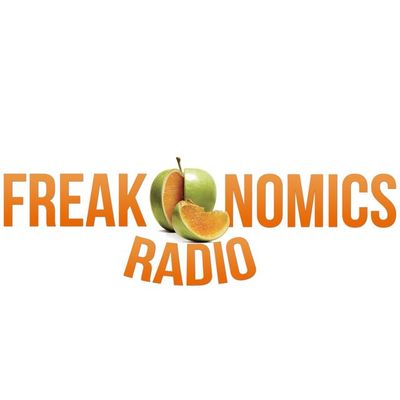
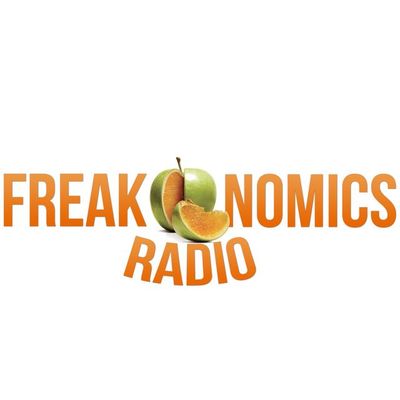
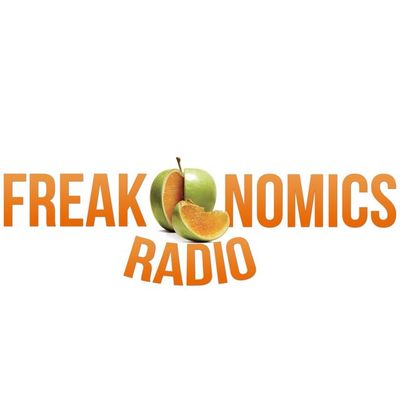
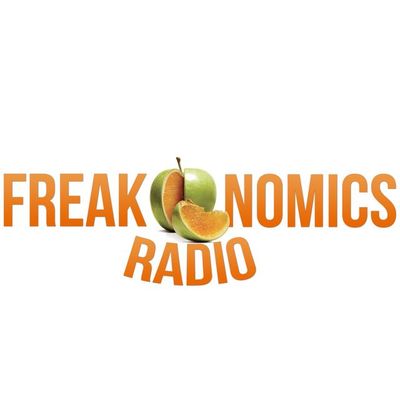
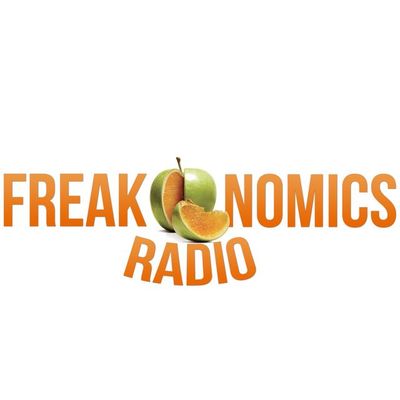
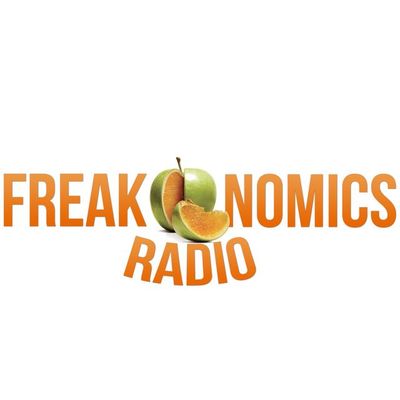
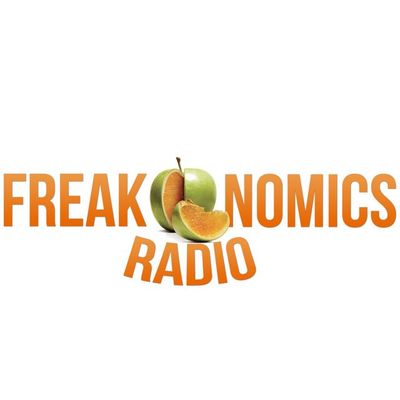
21. Bring on the Pain!
<p>It's not about how much something hurts -- it's how you remember the pain. This week, lessons on pain from the New York City subway, the professional hockey rink, and a landmark study of colonoscopy patients. So have a listen; we promise, it won't hurt a bit.</p>
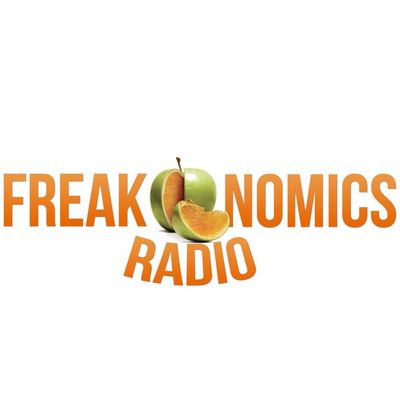
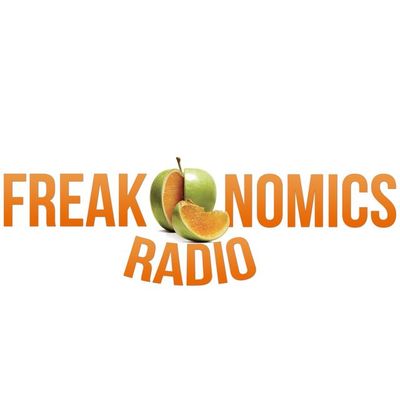
19. Waiter, There’s a Physicist in My Soup! (Part 1)
<p>The "molecular gastronomy" movement -- which gets a bump in visibility next month with the publication of the mammoth cookbook "Modernist Cuisine" -- is all about bringing more science into the kitchen. In many ways, it's the opposite of the "slow food" movement. In this episode, you'll hear chieftains from the two camps square off: Alice Waters for the slow foodies and Nathan Myhrvold for the mad scientists. Bon appetit!</p>
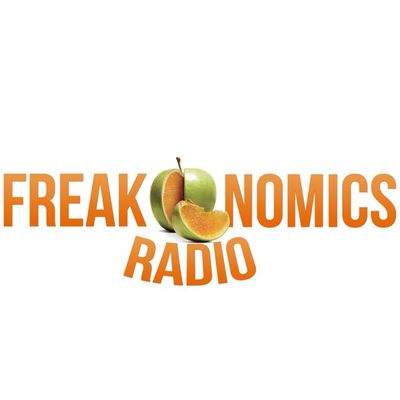
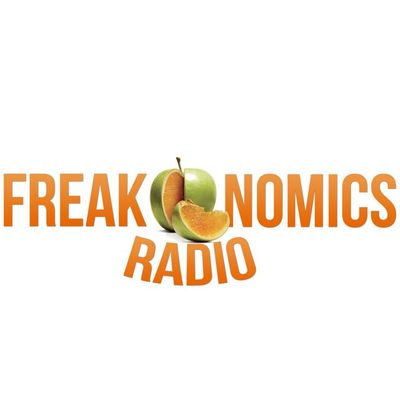
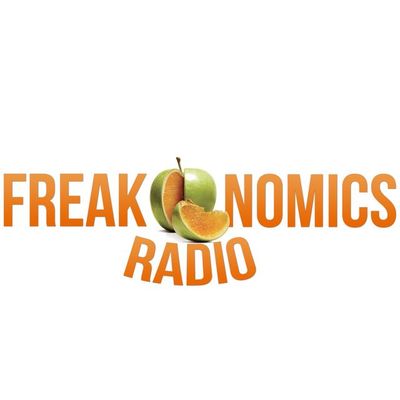
16. Exit Interview: Schools Chancellor, NYC
<p>Having already amassed an eventful resume -- the Clinton White House, the Department of Justice, and Bertelsmann -- Joel I. Klein spent the past eight years at chancellor of the biggest school system in the country. So what'd he learn?</p>

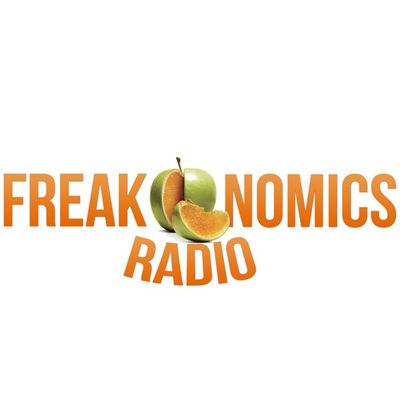
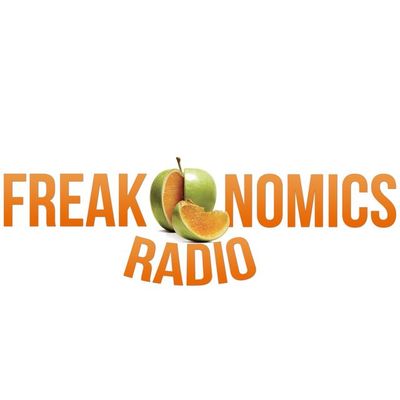
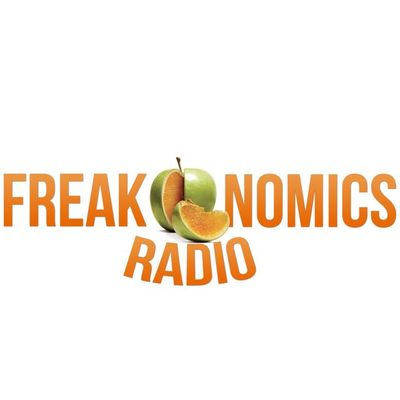
12. Is America Ready for a "No-Lose Lottery"?
<p>For the most part, Americans don't like the simple, boring act of putting money in a savings account. We do, however, love to play the lottery. So what if you combined the two, creating a new kind of savings account with a lottery payout?</p>

11. How Much Does the President of the U.S. Really Matter?
<p>The U.S. president is often called the "leader of free world." But if you ask an economist or a Constitutional scholar how much the occupant of the Oval Office matters, they won't say much. We look at what the data have to say about measuring leadership, and its impact on the economy and the country.</p>

10. The NFL's Best Real Estate Isn't For Sale. Yet.
<p>The NFL is very good at making money. So why on earth doesn't it sell ad space on the one piece of real estate that football fans can’t help but see: the players themselves? The explanation is trickier than you might think. It has to do with Peyton Manning, with Eli Manning, and with ... wait for it ... Tevye.</p>
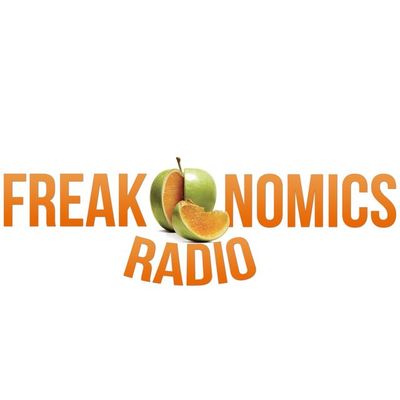
9. Reading, Rockets, and 'Rithmetic
<p>Government and the private sector often feel far apart. One is filled with compliance-driven bureaucracy. The other, with market-fueled innovation. But something is changing in a multi-billion dollar corner of the Department of Education. It's an experiment, which takes cues from the likes of Google and millionaires who hope to go to the moon.</p>
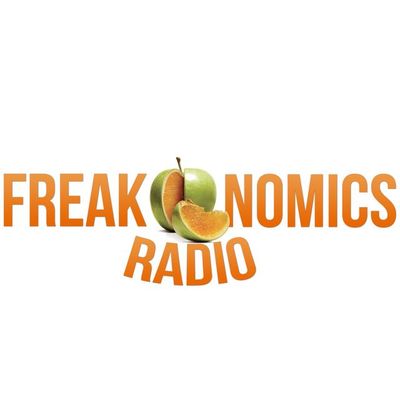
8. Who Stole All the Runs in Major League Baseball?
<p>It was a pretty good baseball season -- especially if you're a fan of the Yankees, Rays, Twins, Rangers, Reds, Braves, Phillies, or Giants, all of whom made the playoffs. But the post-season just opened with a telling event, a no-hitter pitched by the Phillies' Roy Halladay, which shows what's been missing all season: runs.</p>
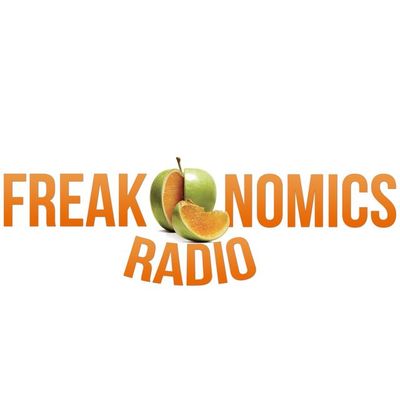
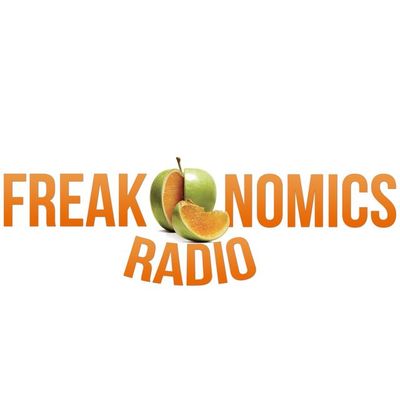
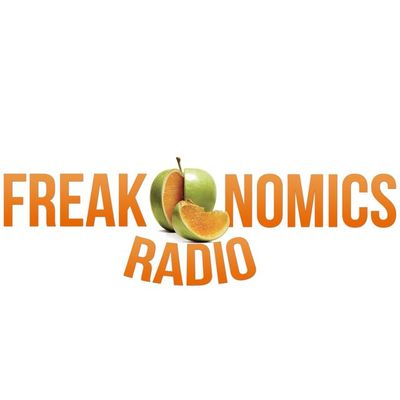
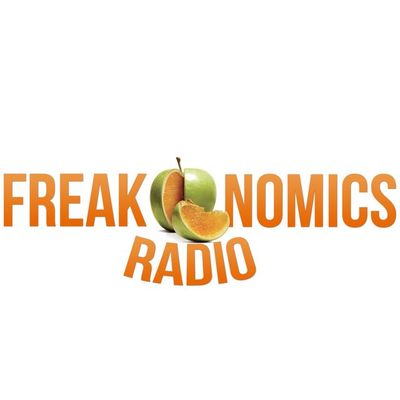
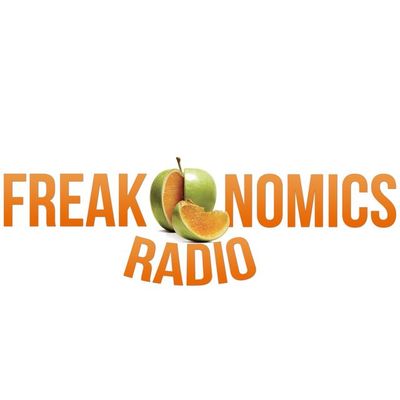
3. What Would the World Look Like if Economists Were in Charge?
<p>In this episode we speculate what would happen if economists got to run the world. Hear from a high-end call girl; an Estonian who ran his country according to the gospel of Milton Friedman; and a guy who wants to start building new nations in the middle of the ocean.</p>
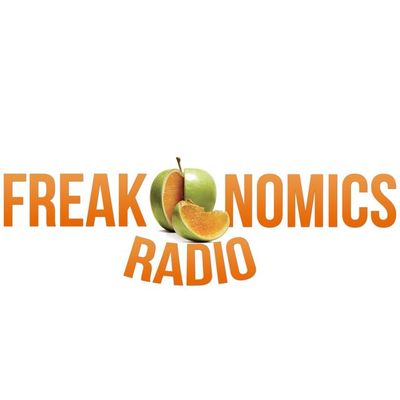
2. Is America's Obesity Epidemic For Real?
<p>Americans keep putting on pounds. So is it time for a cheeseburger tax? Or would a chill pill be the best medicine? In this episode, we explore the underbelly of fat through the eyes of a 280-pound woman, a top White House doctor, and a couple of overweight academics.</p>
